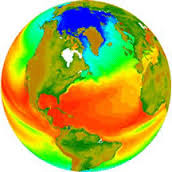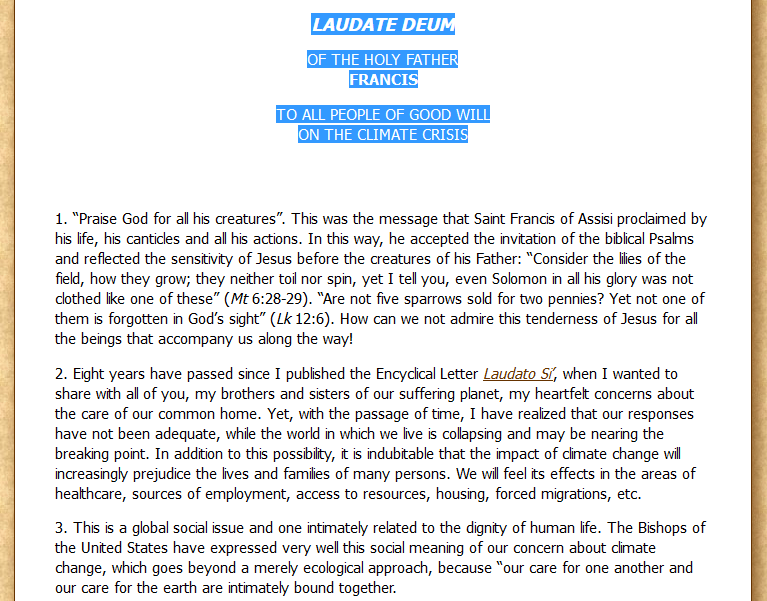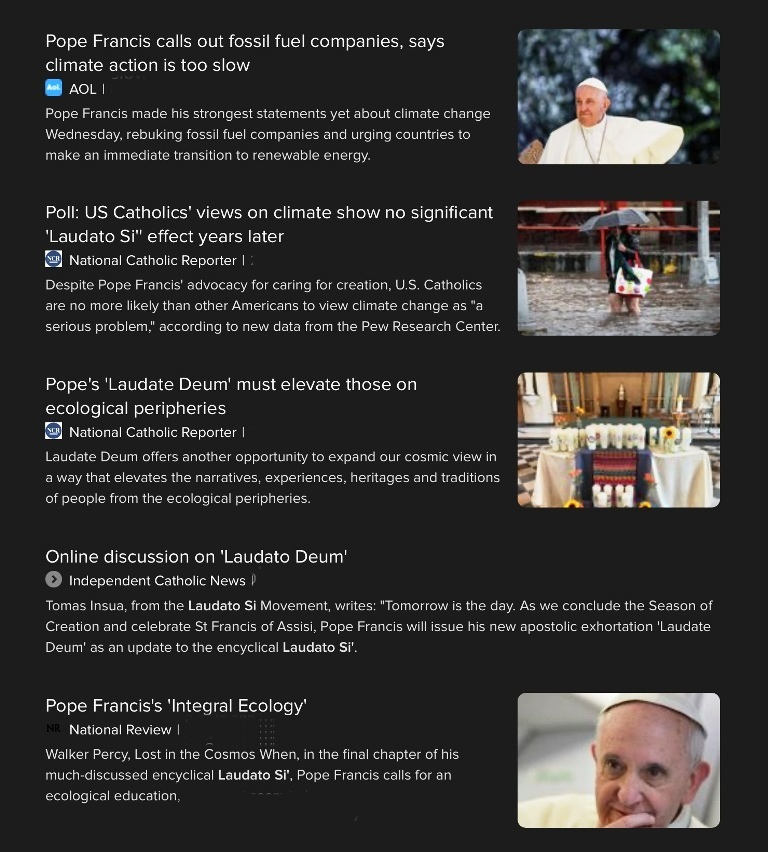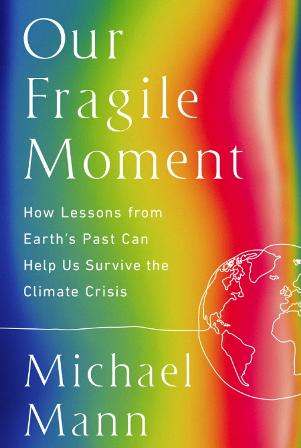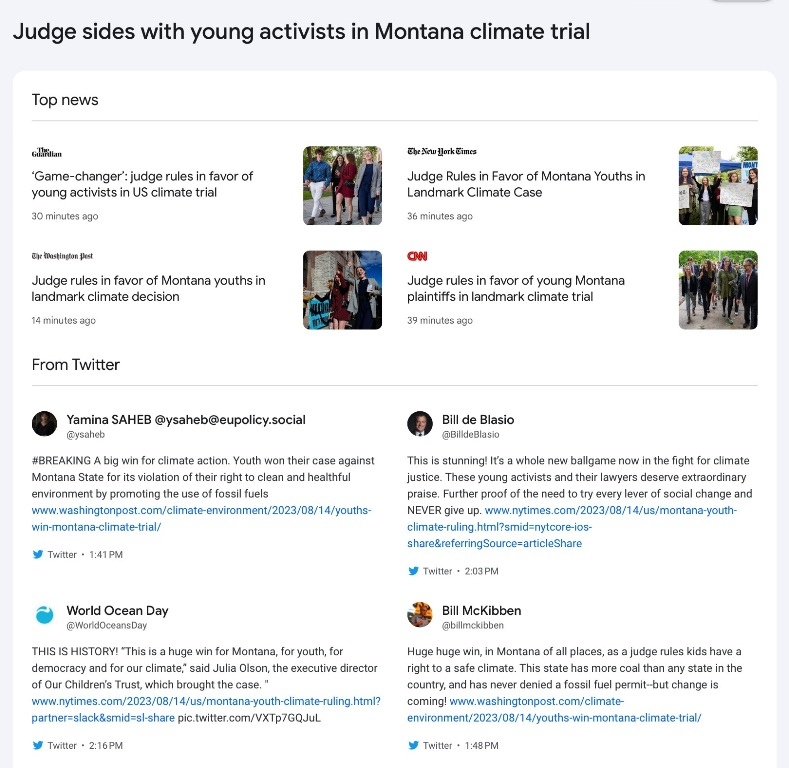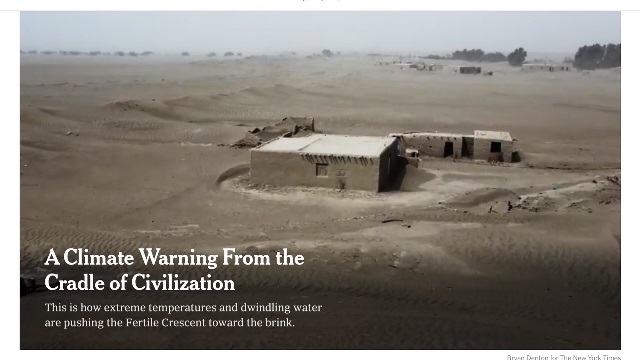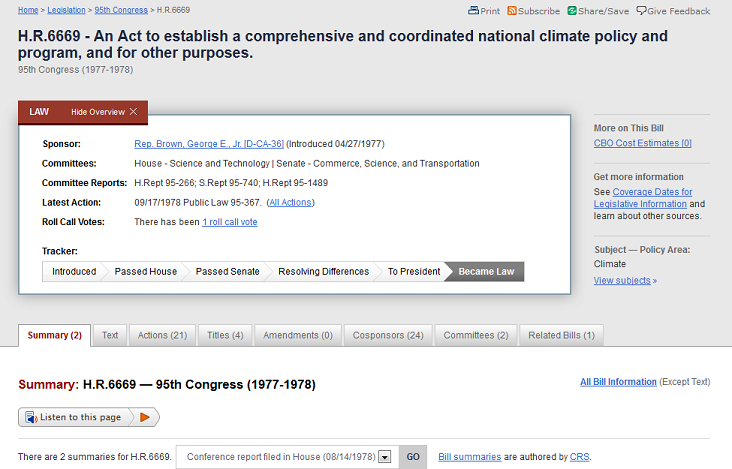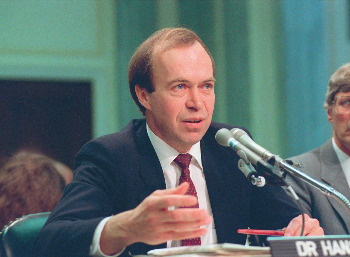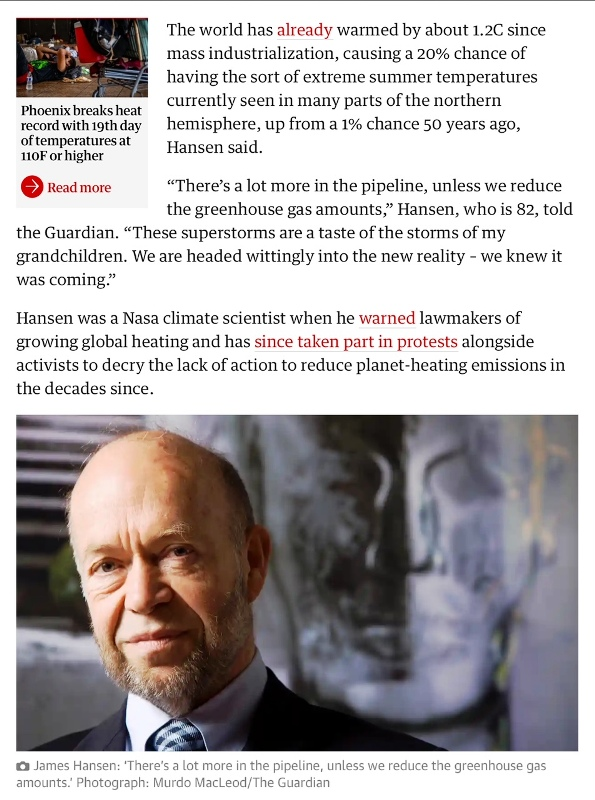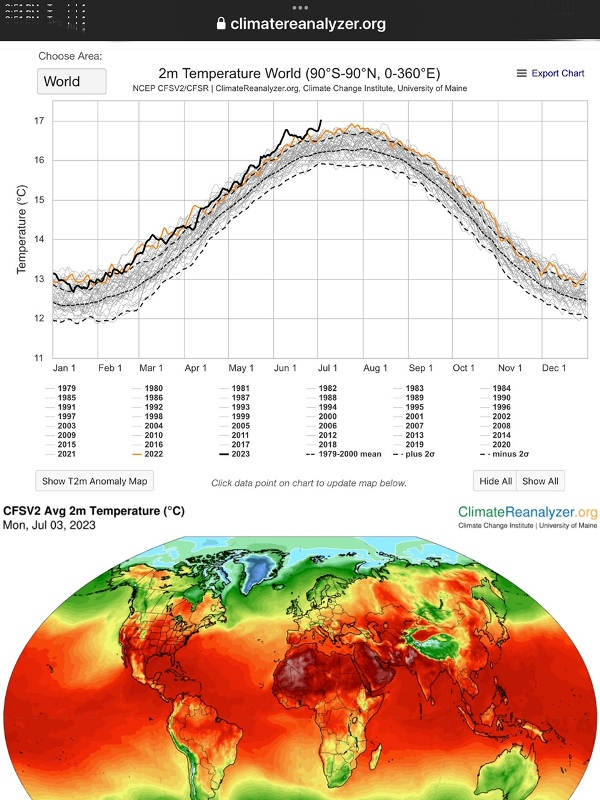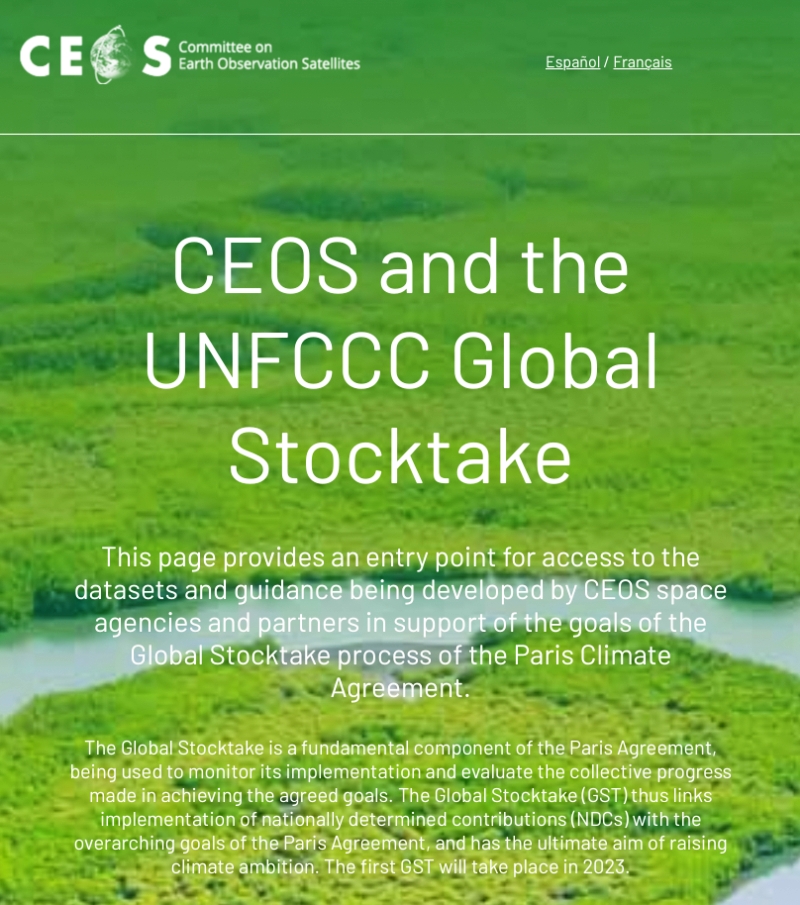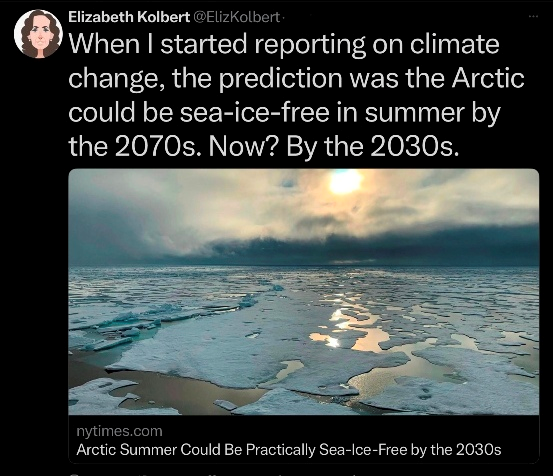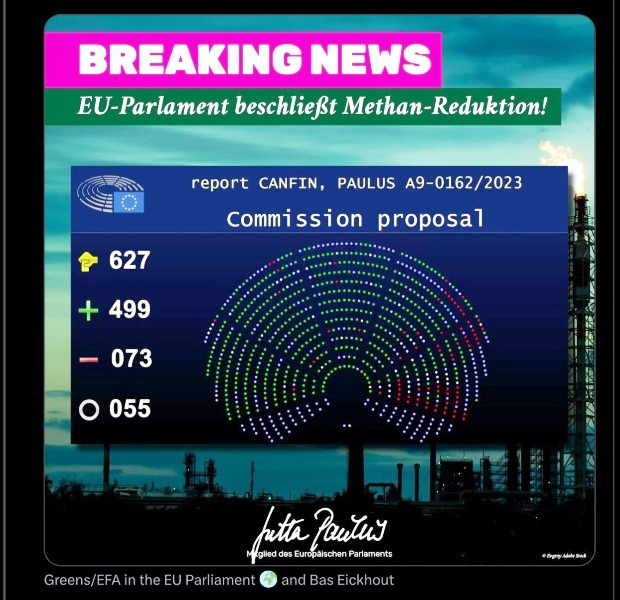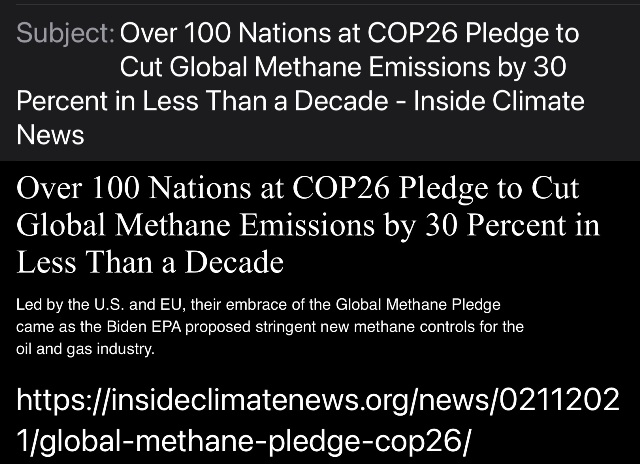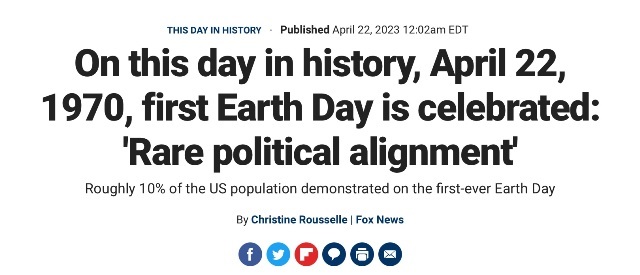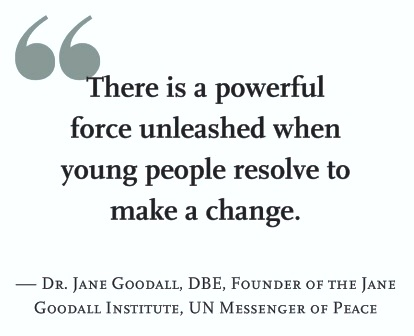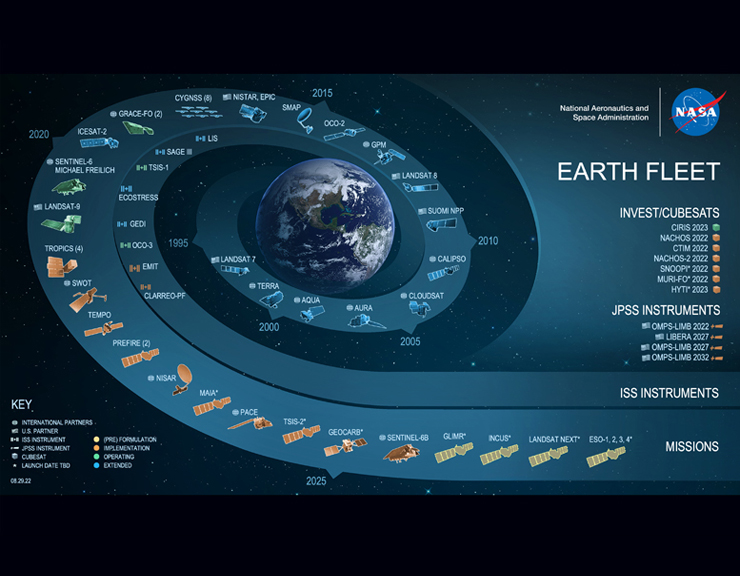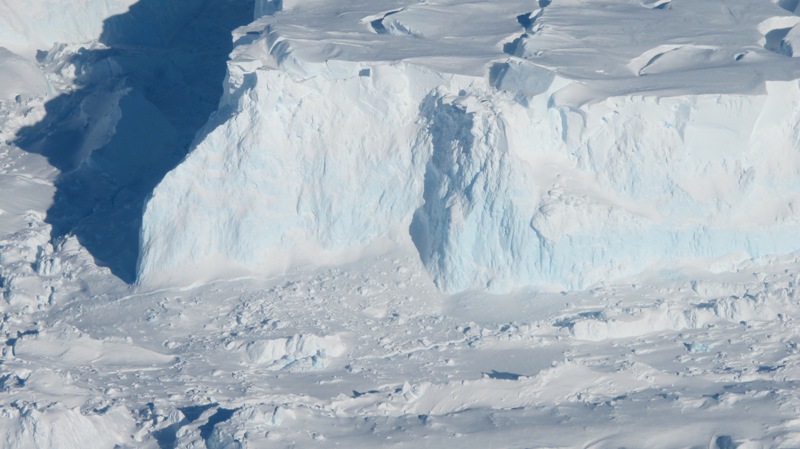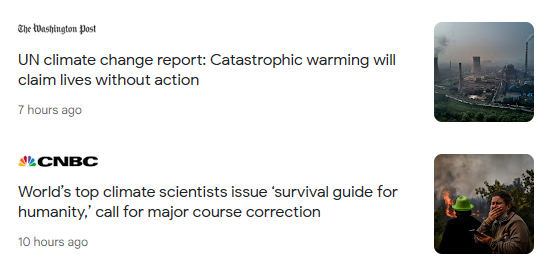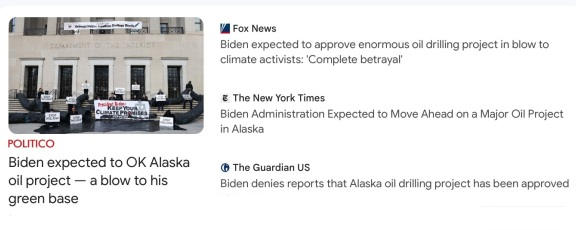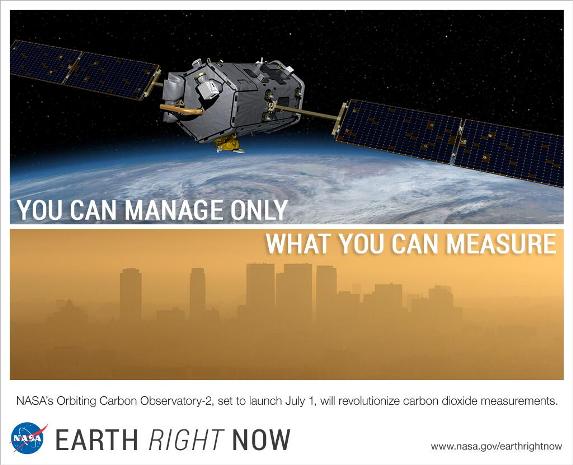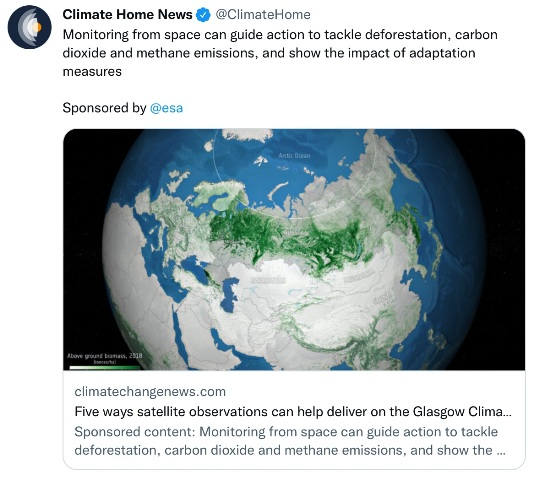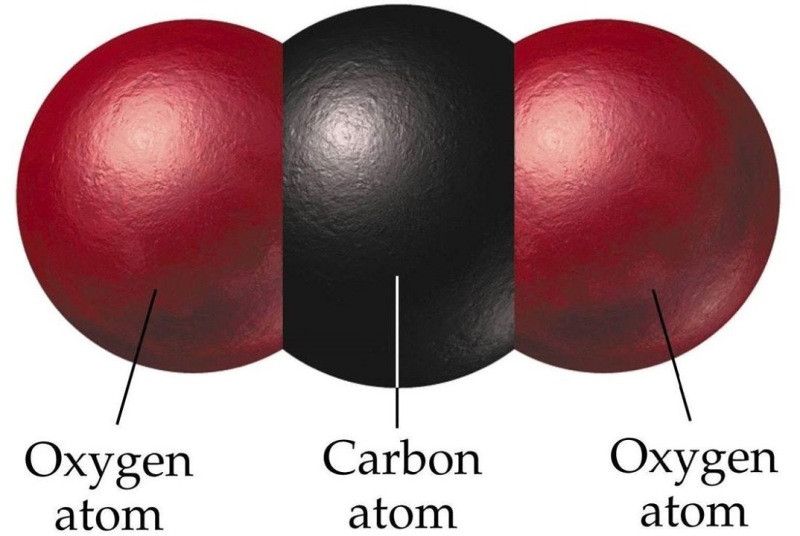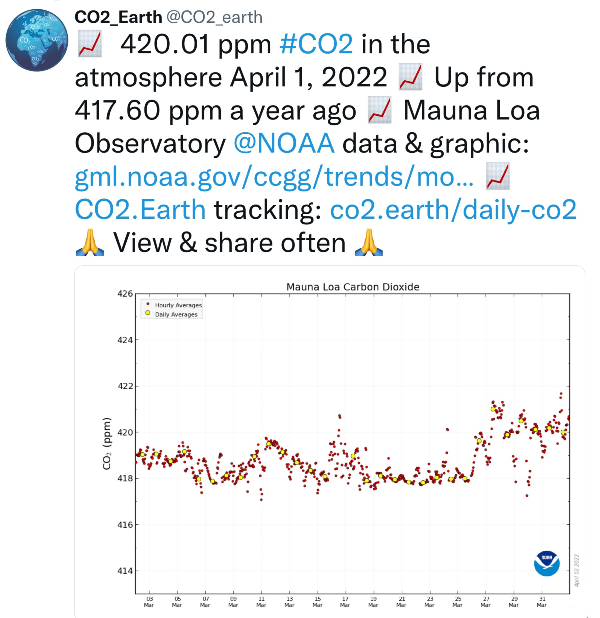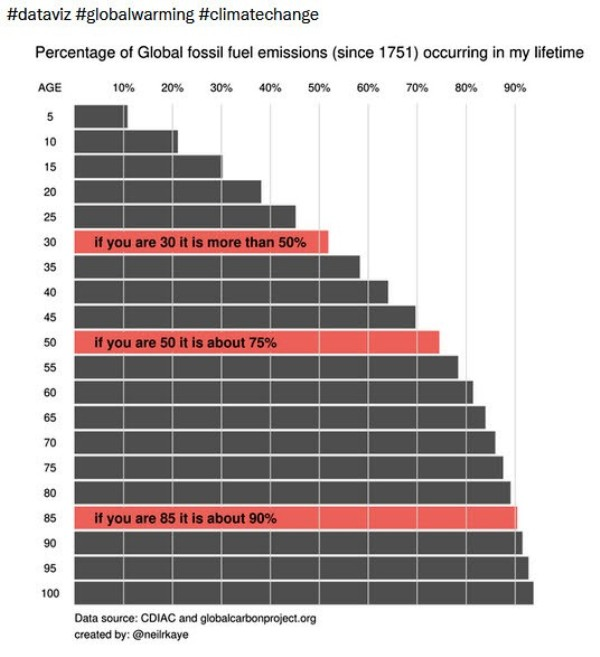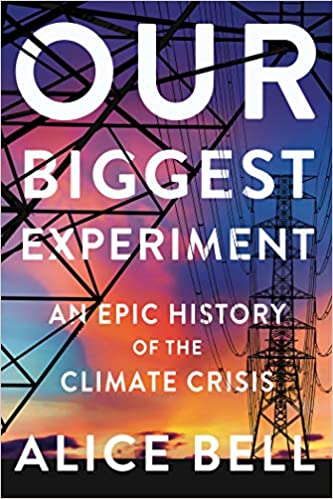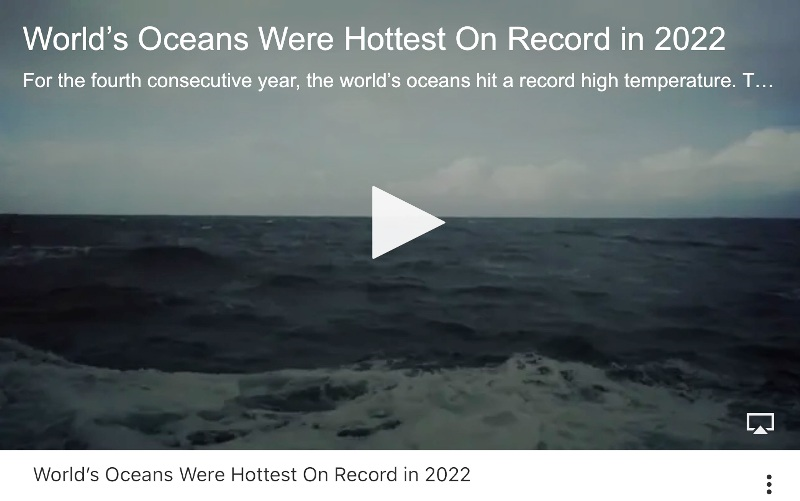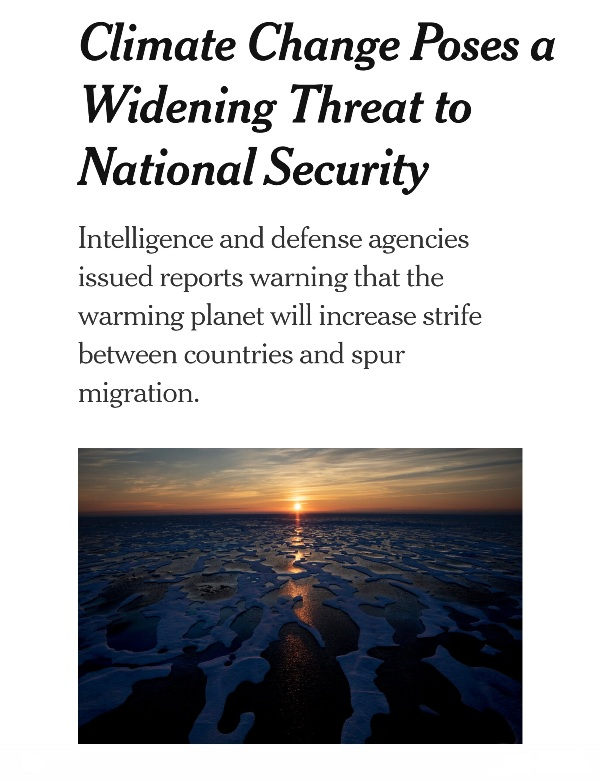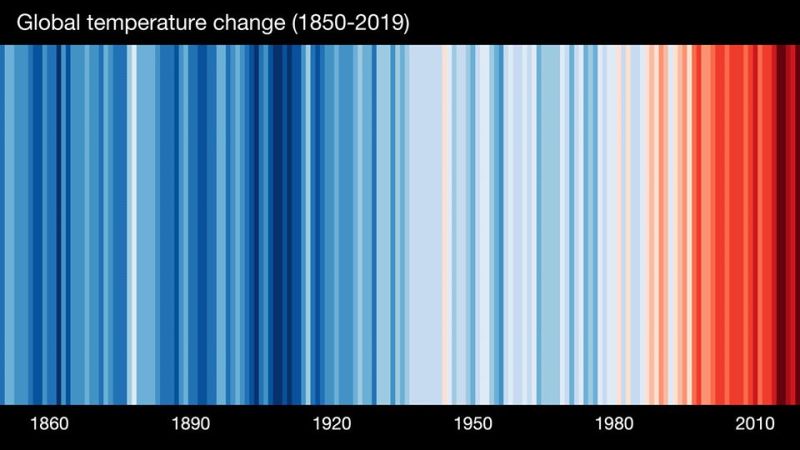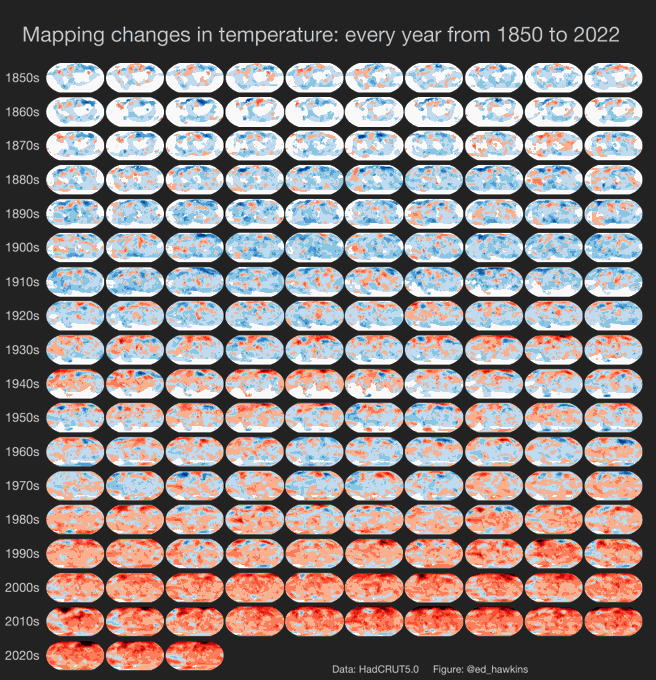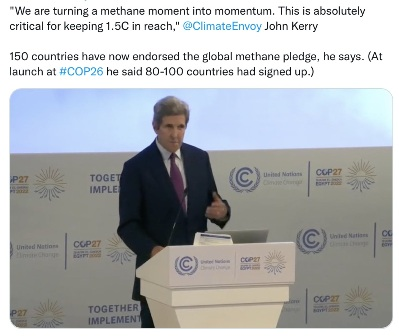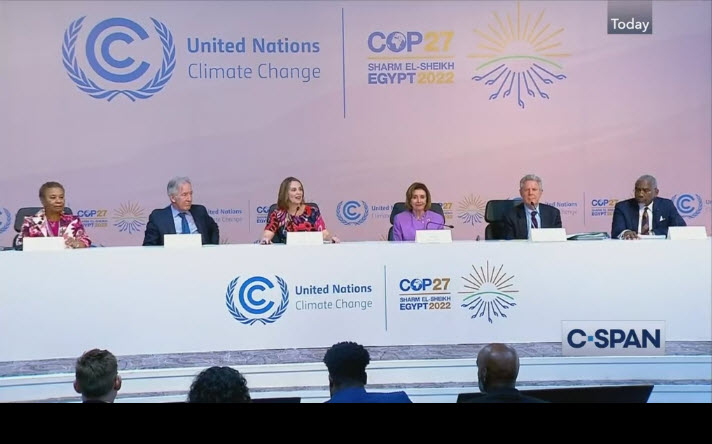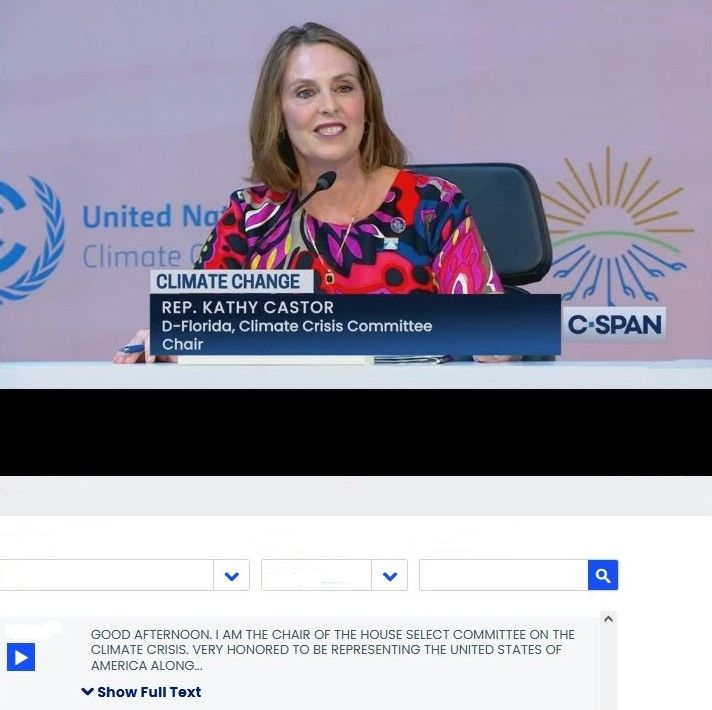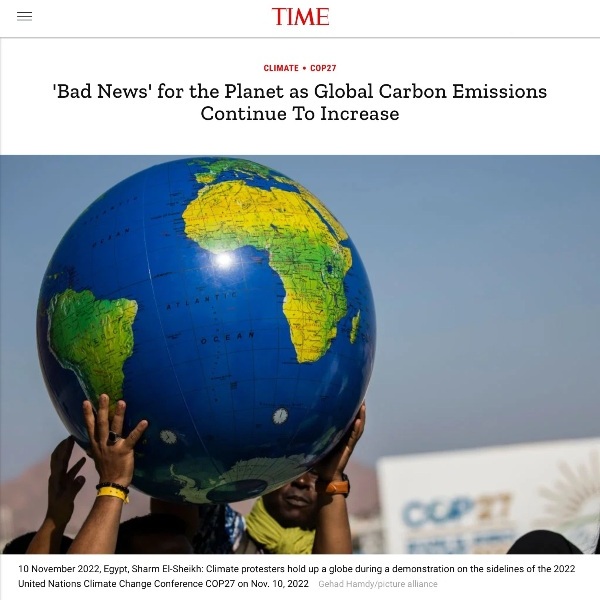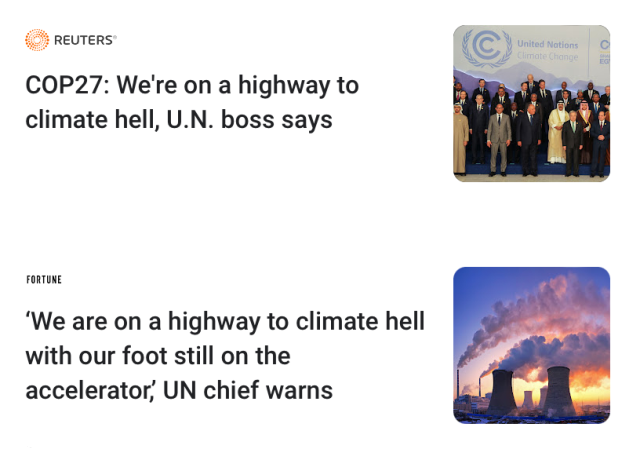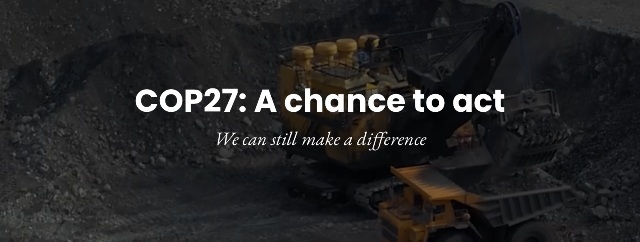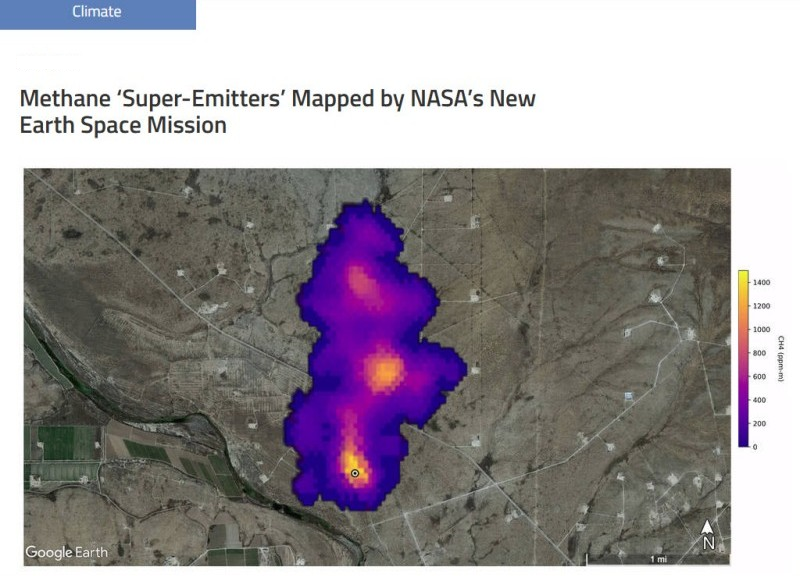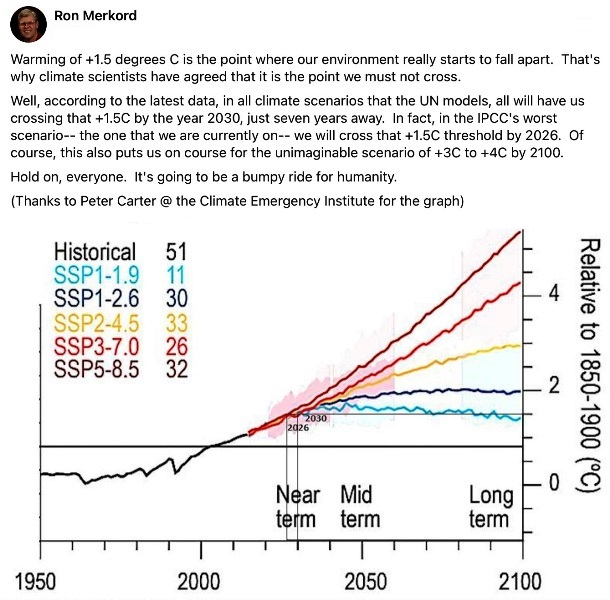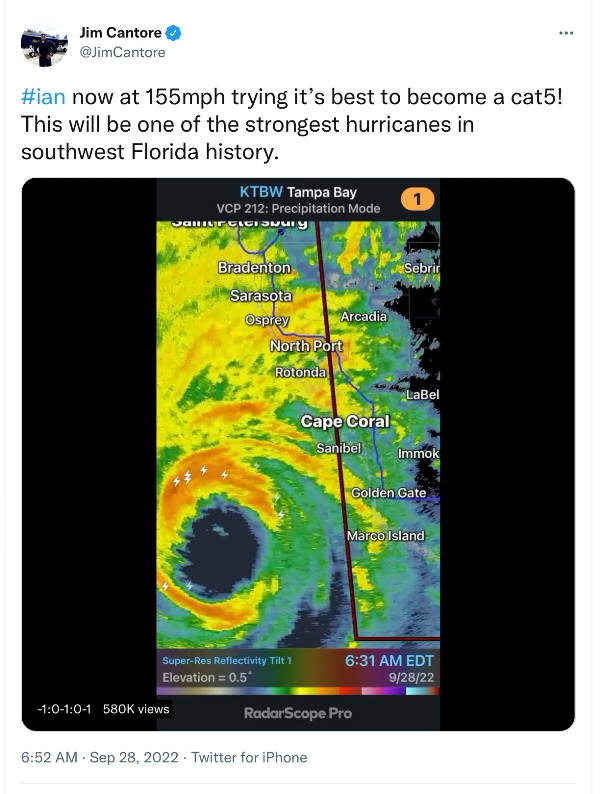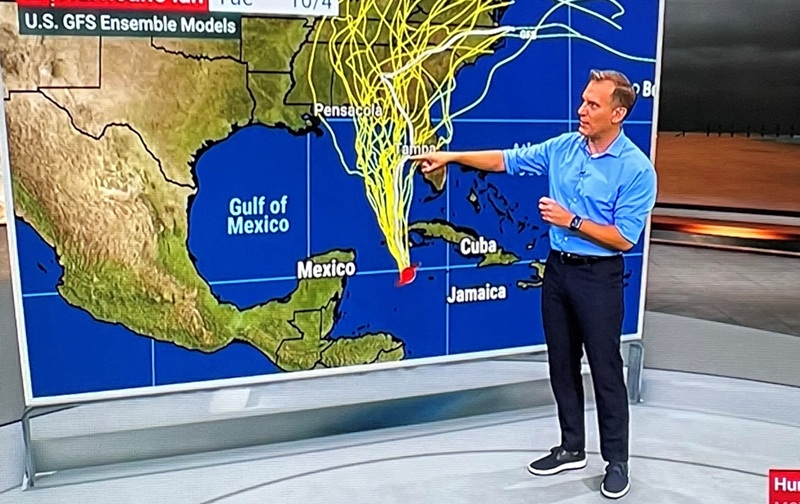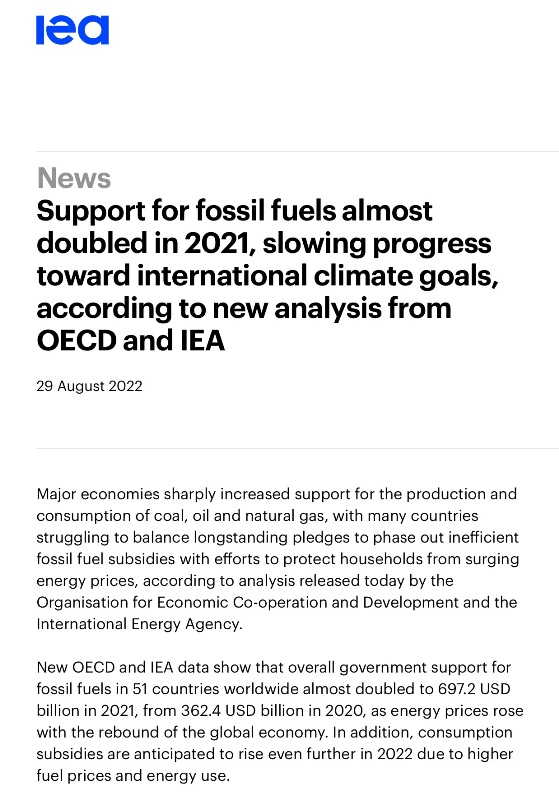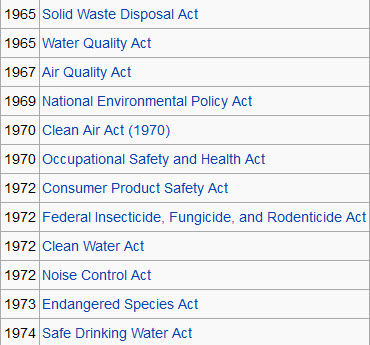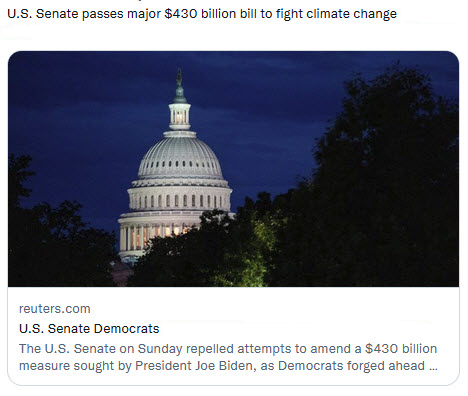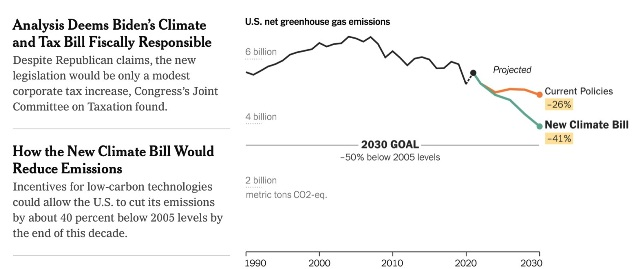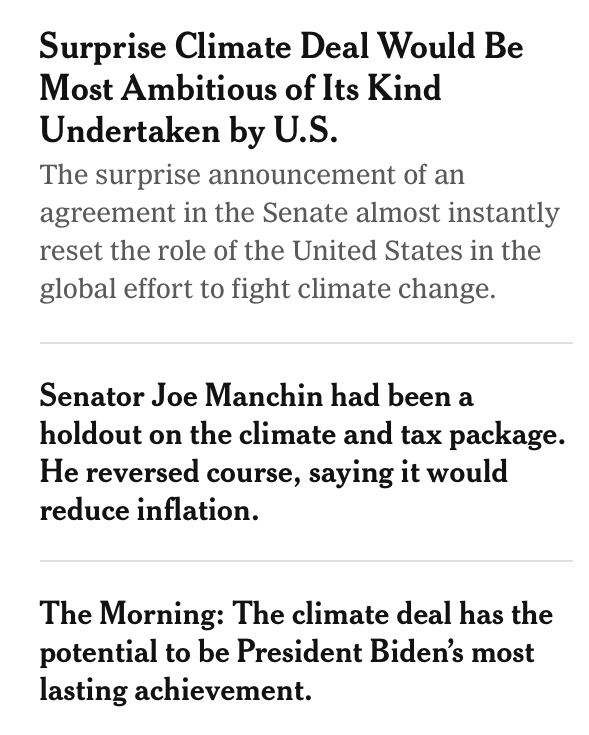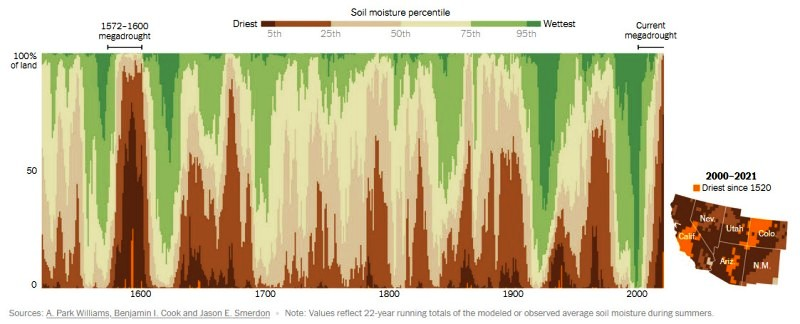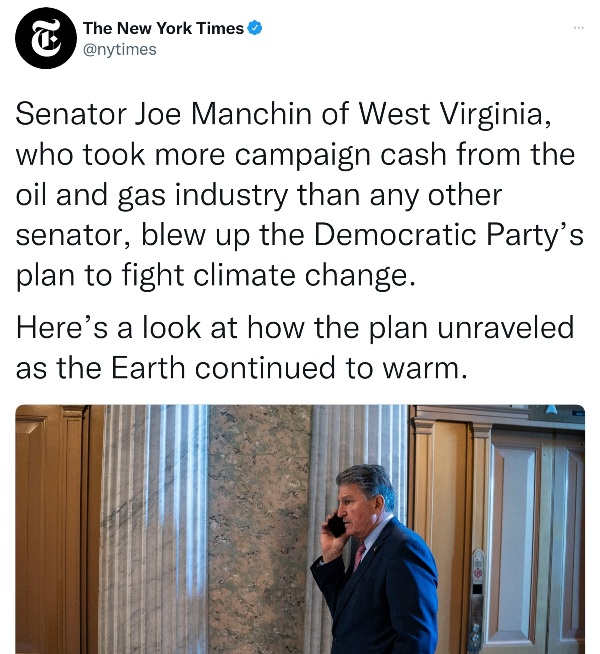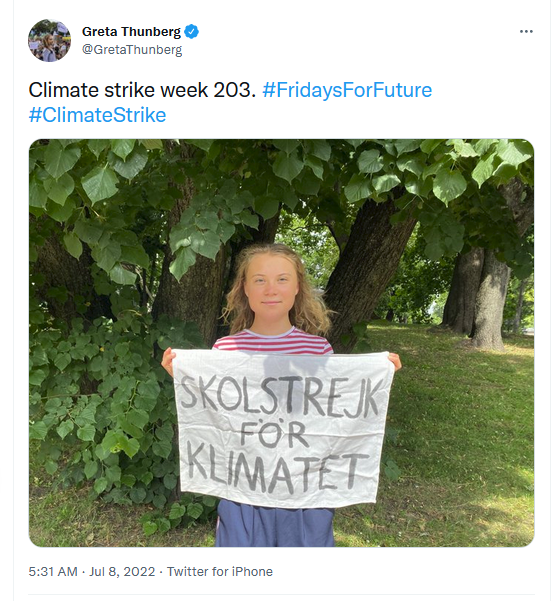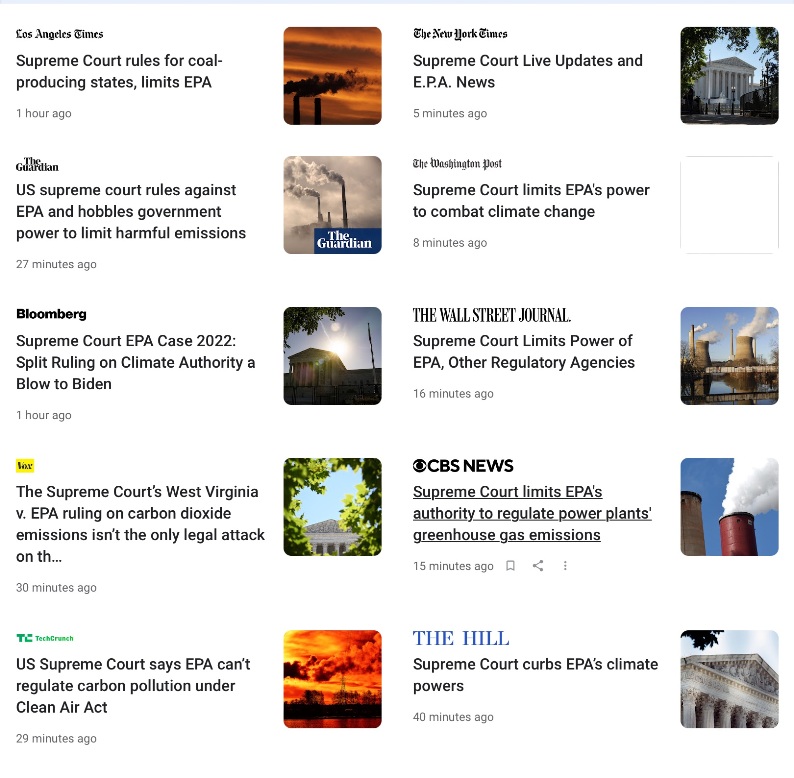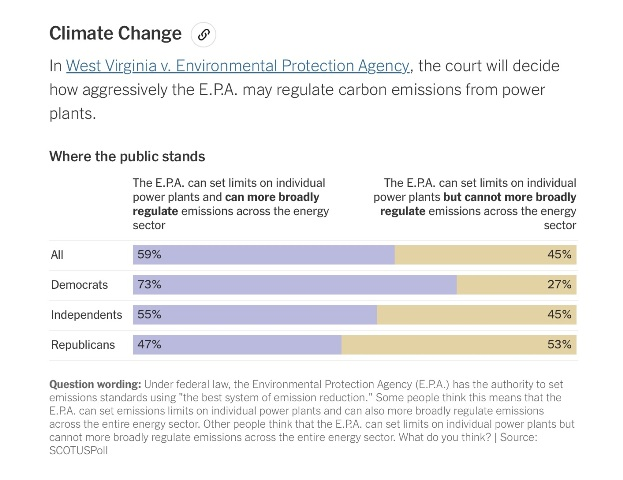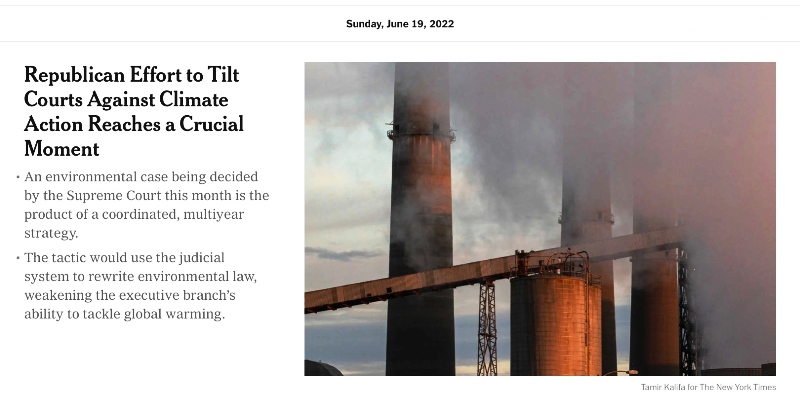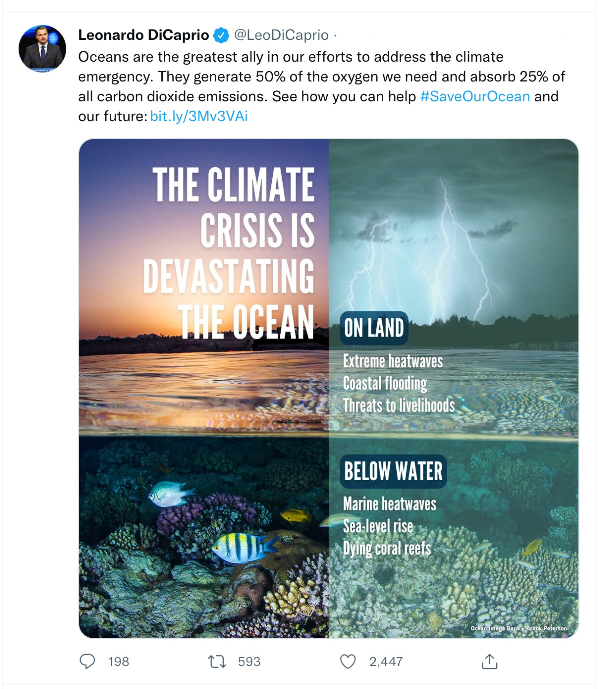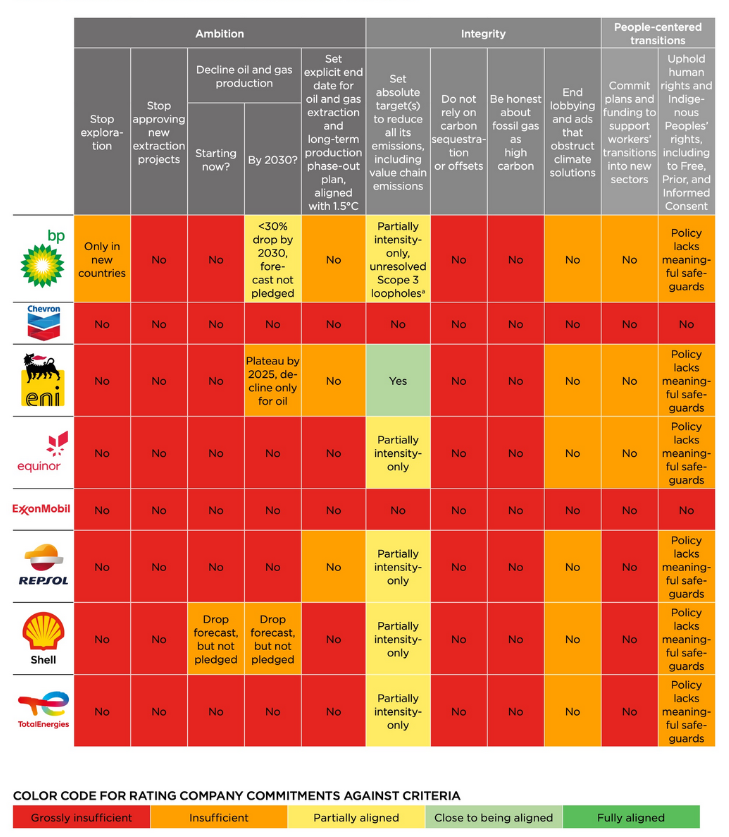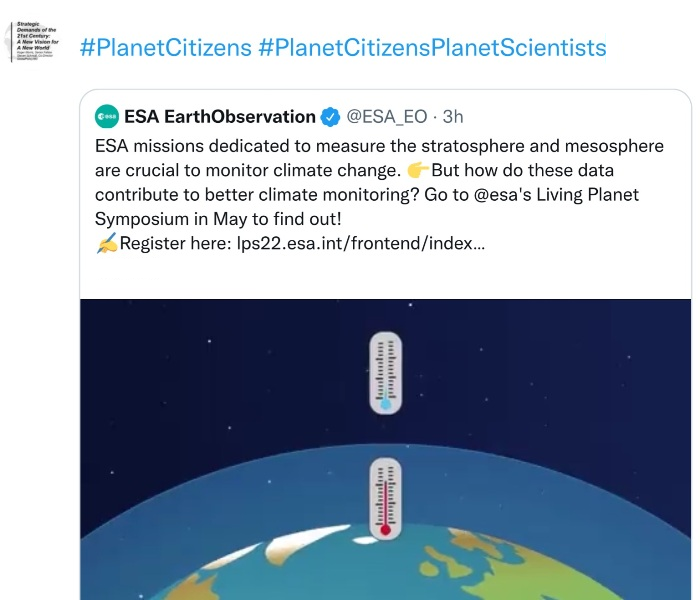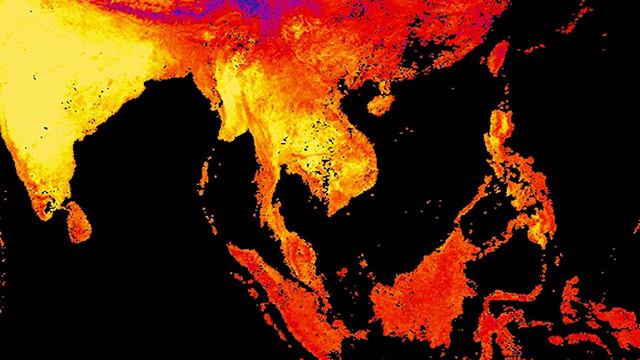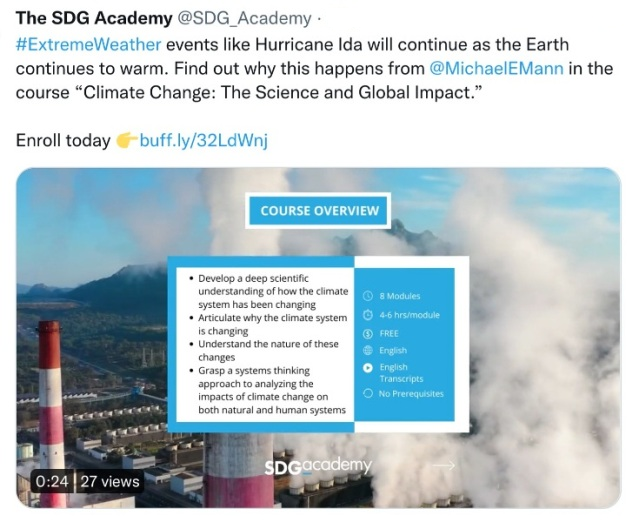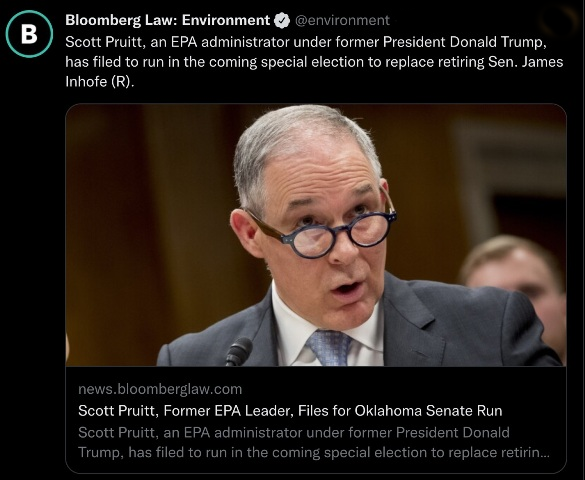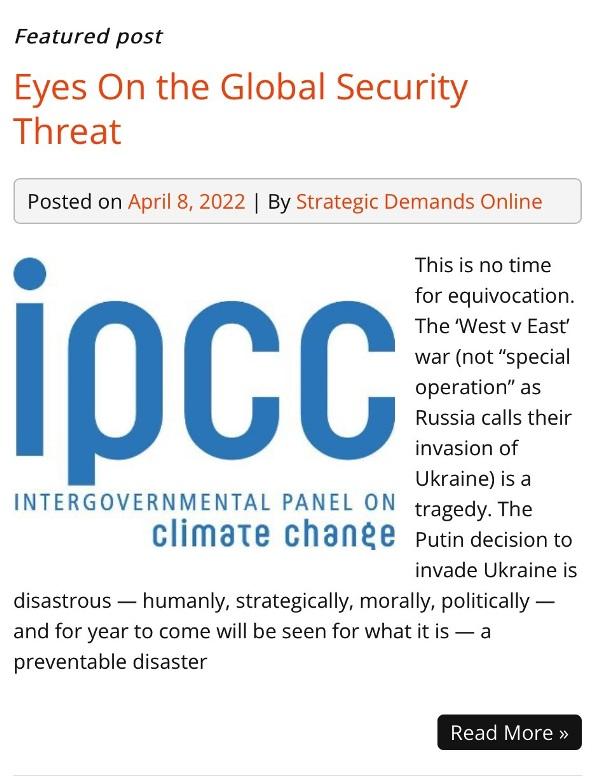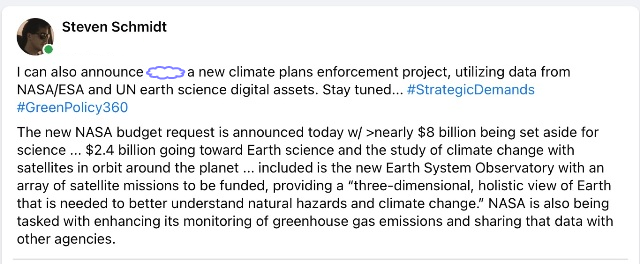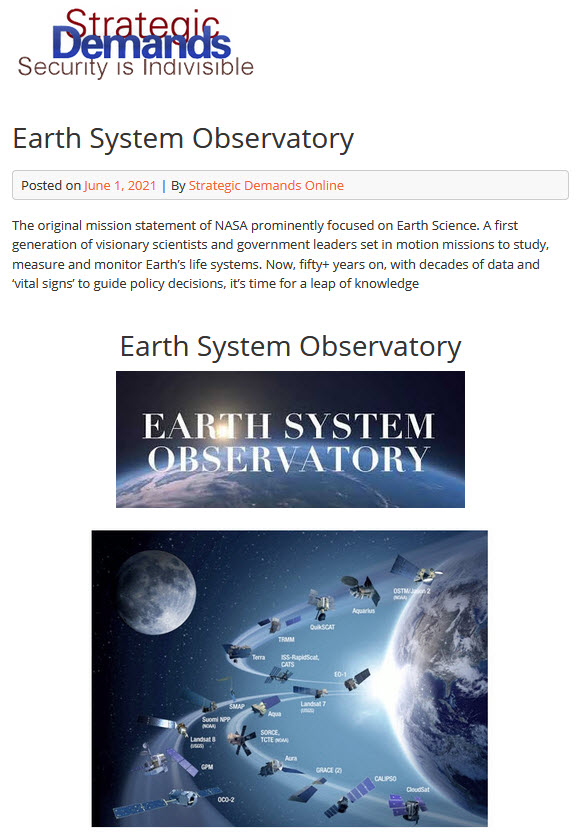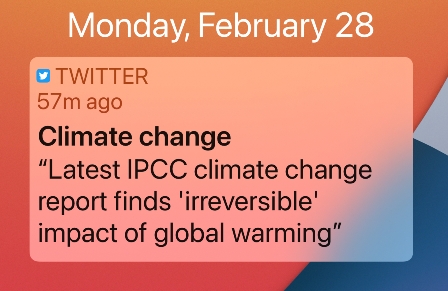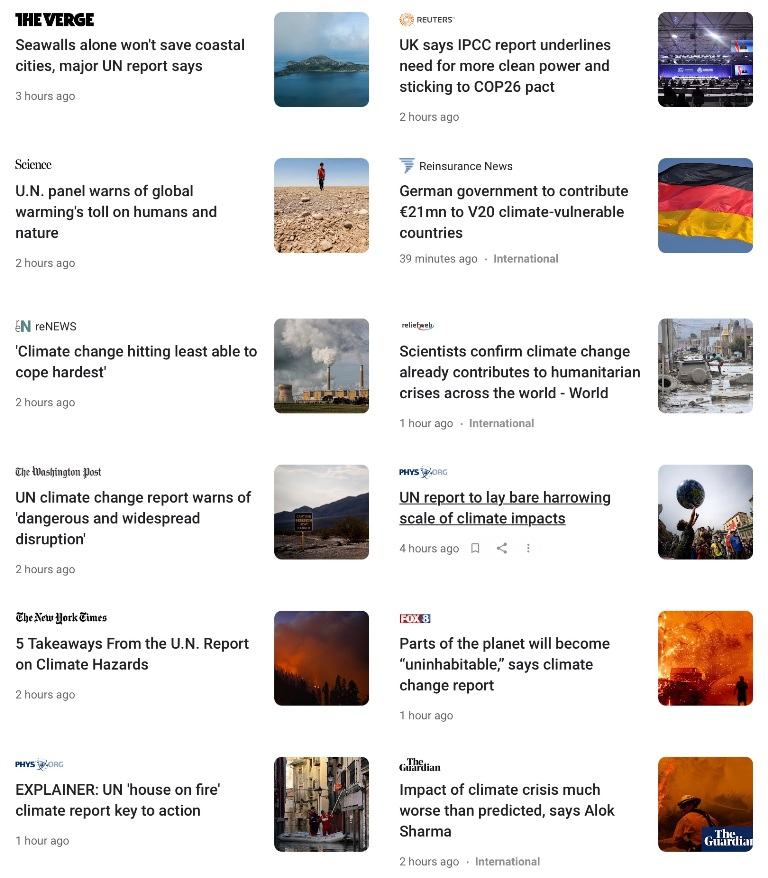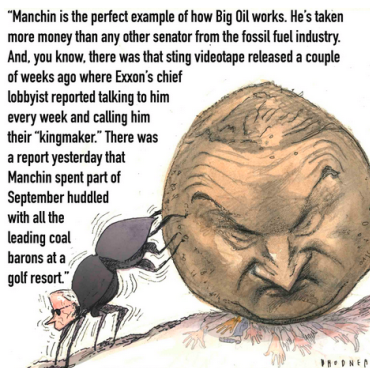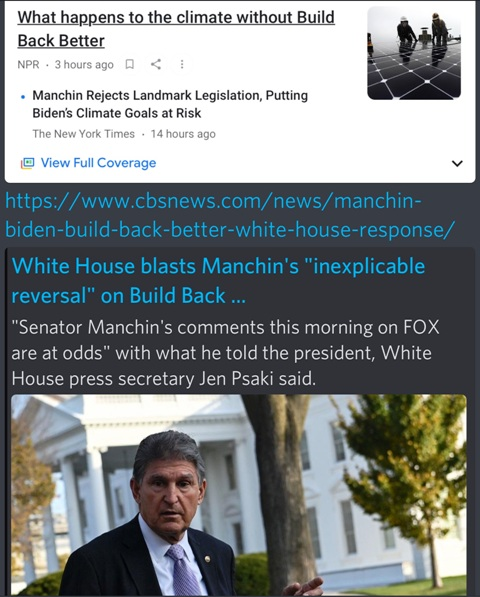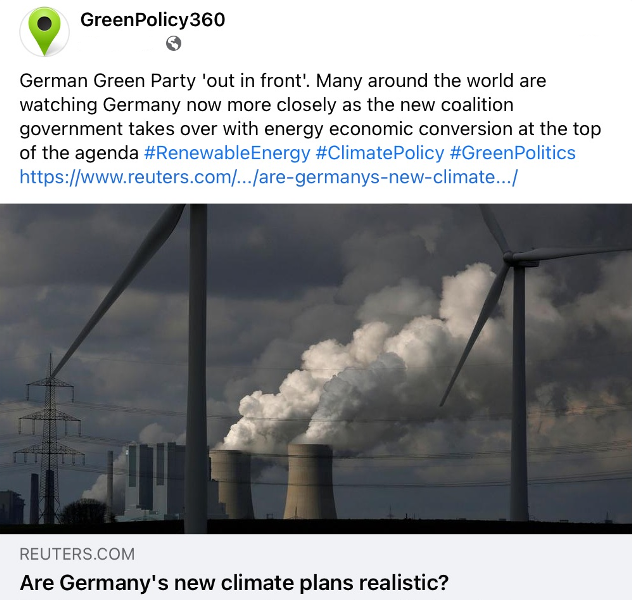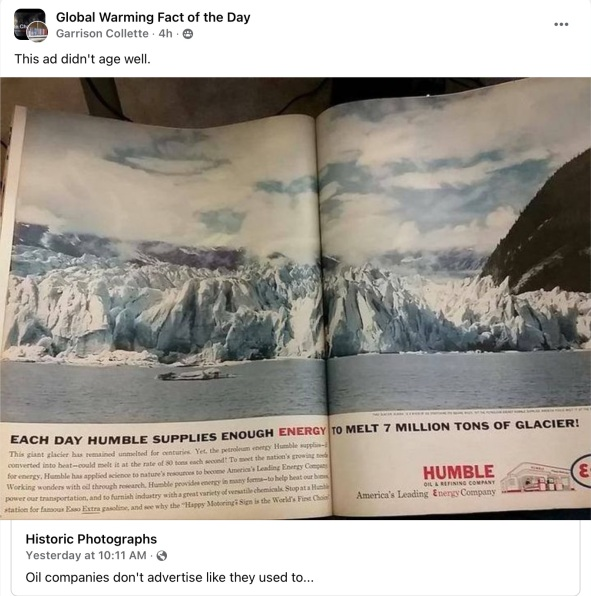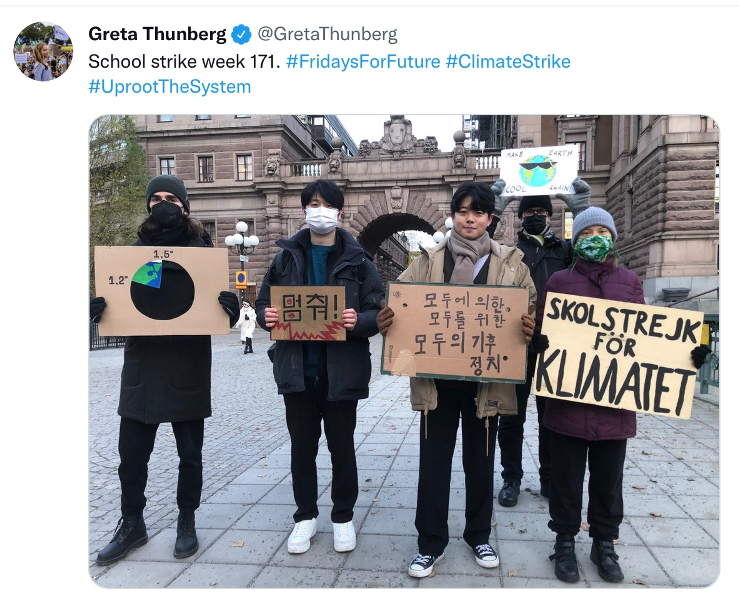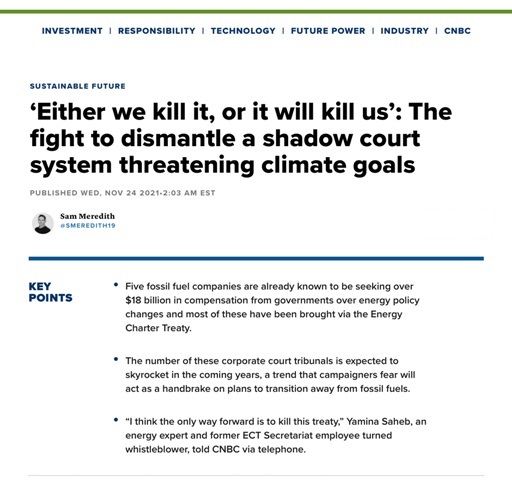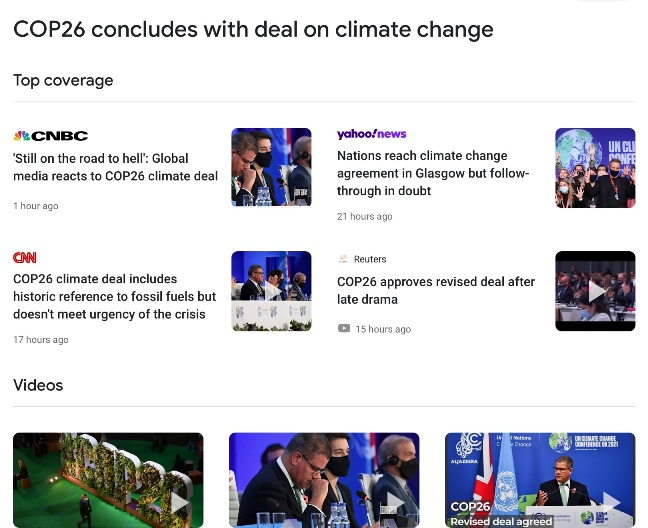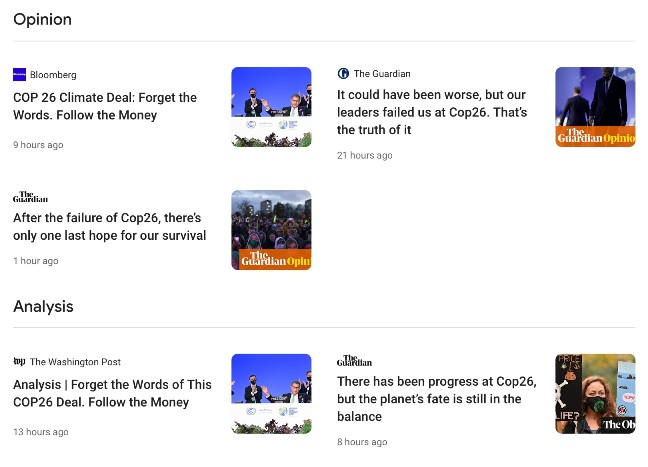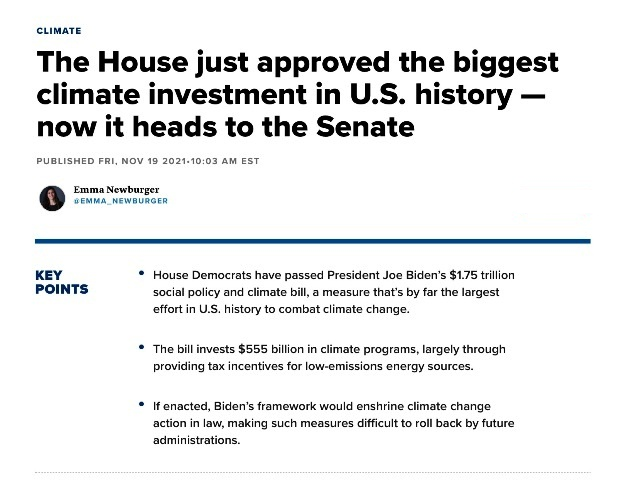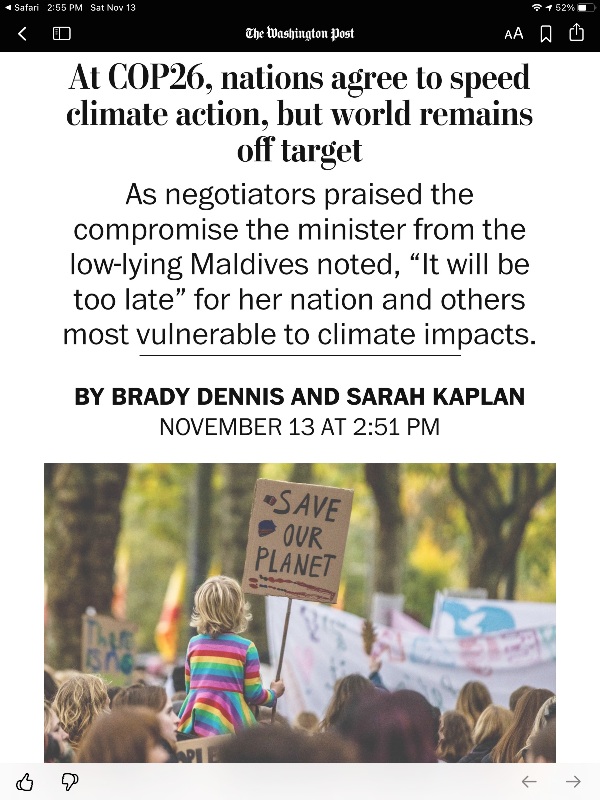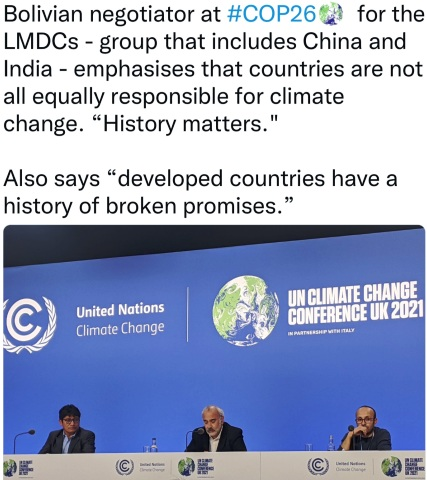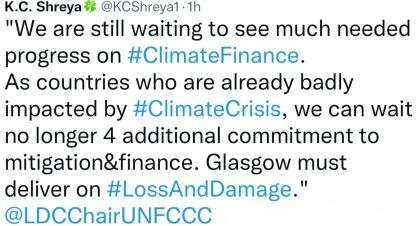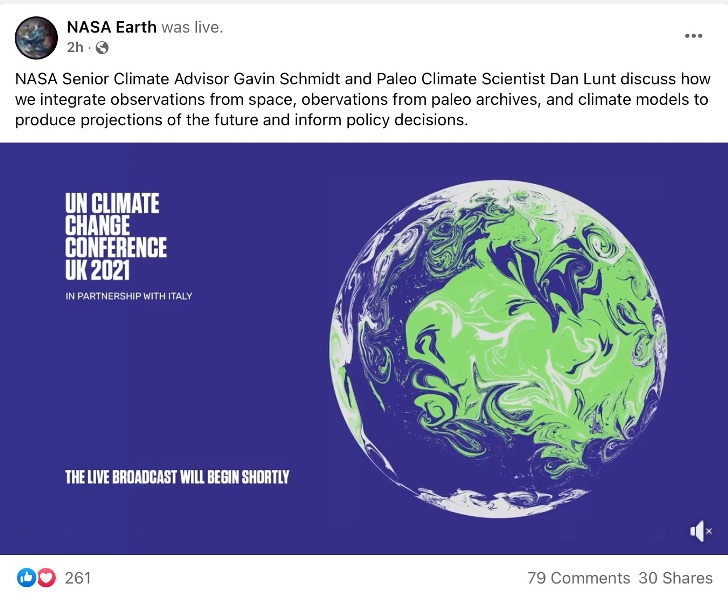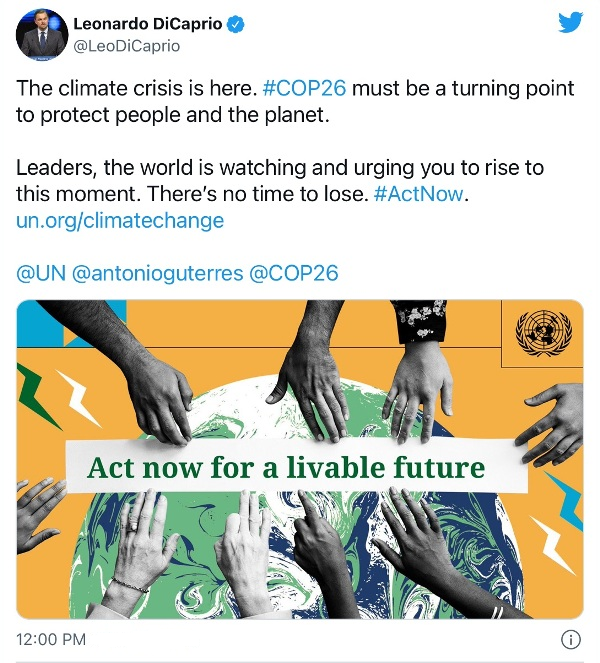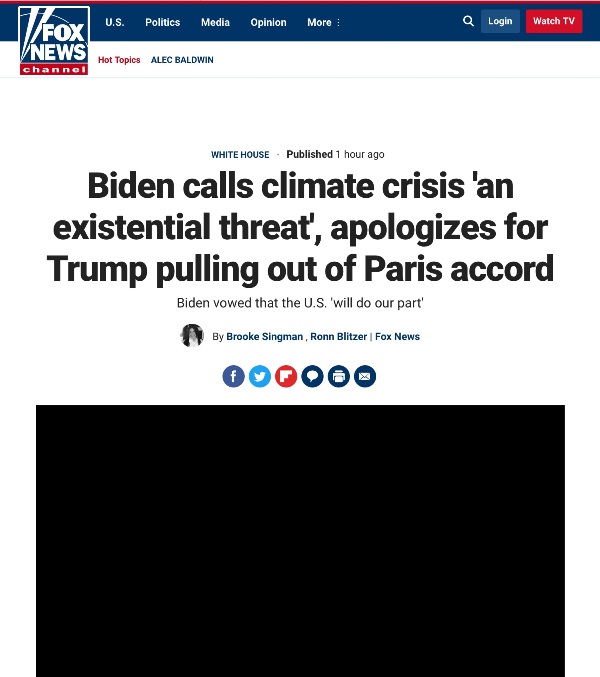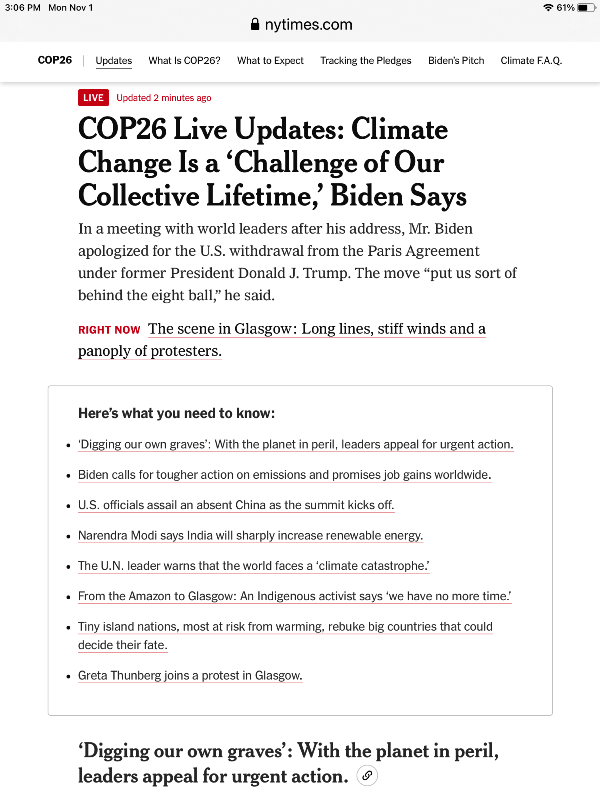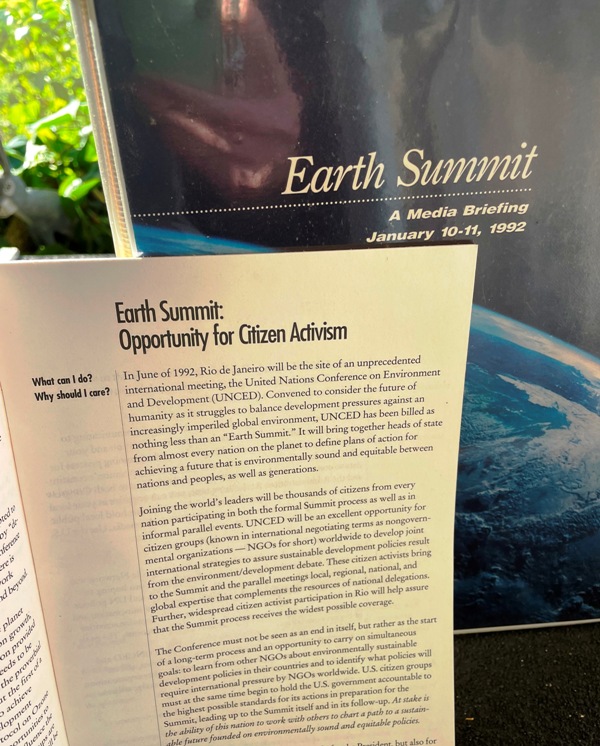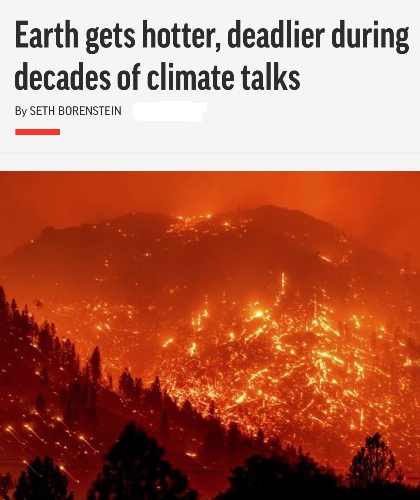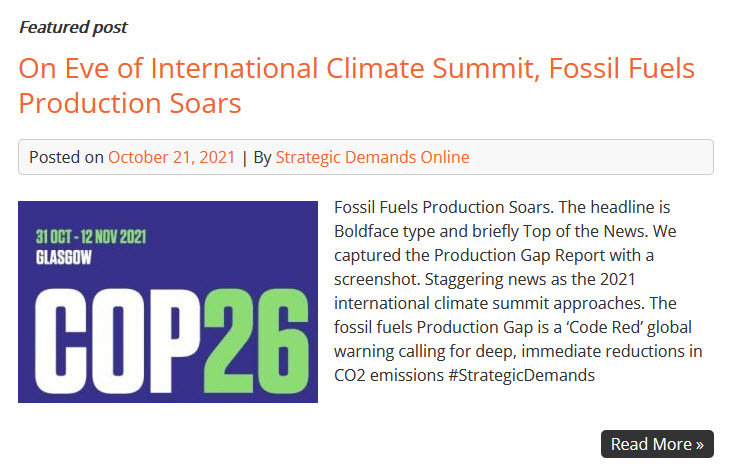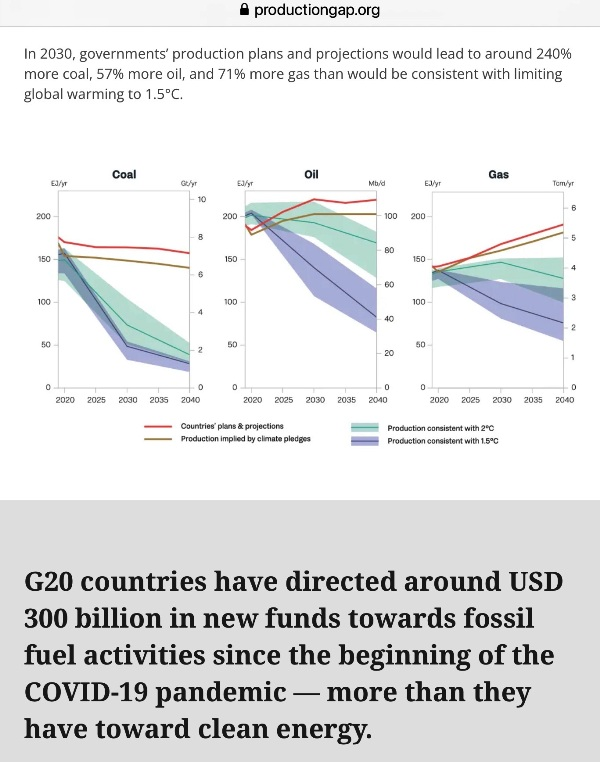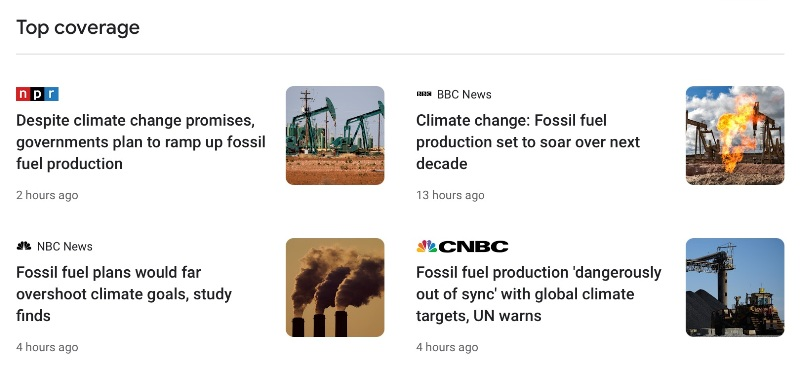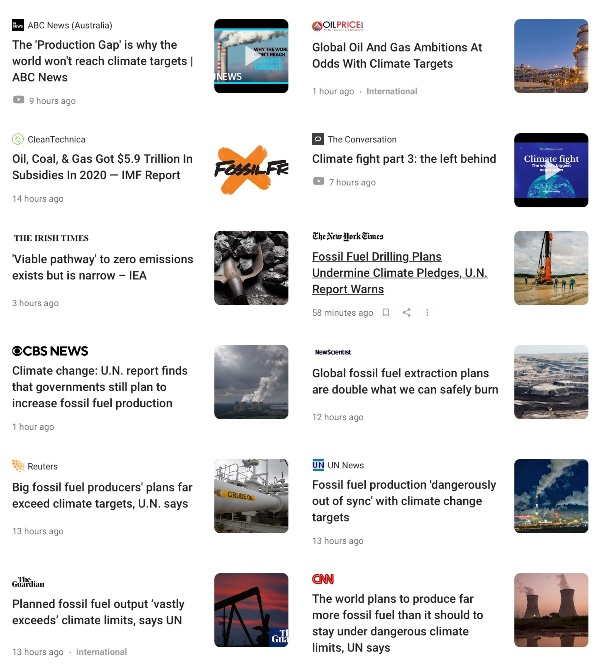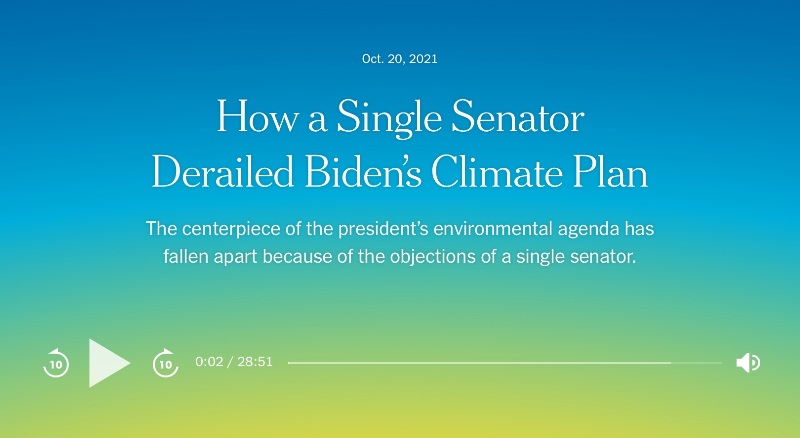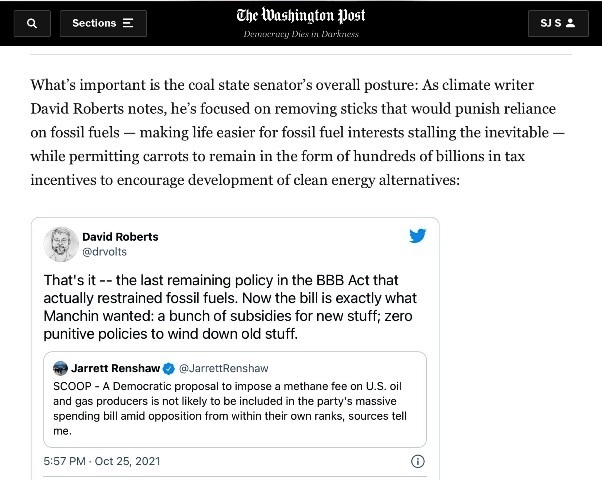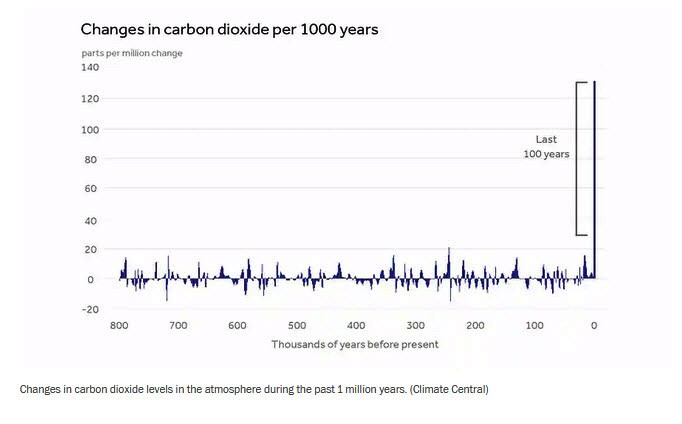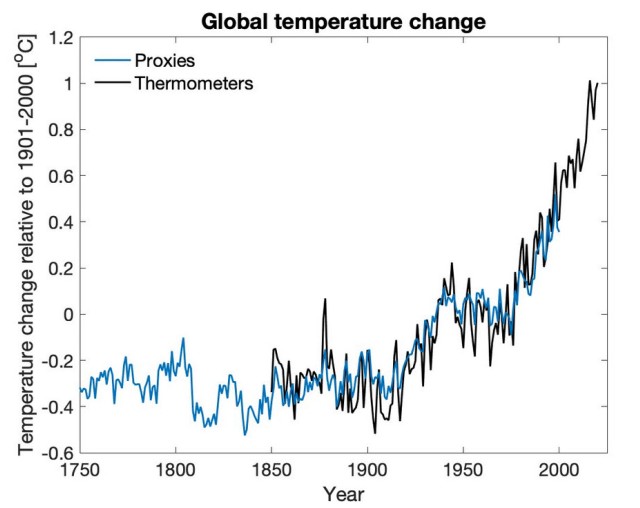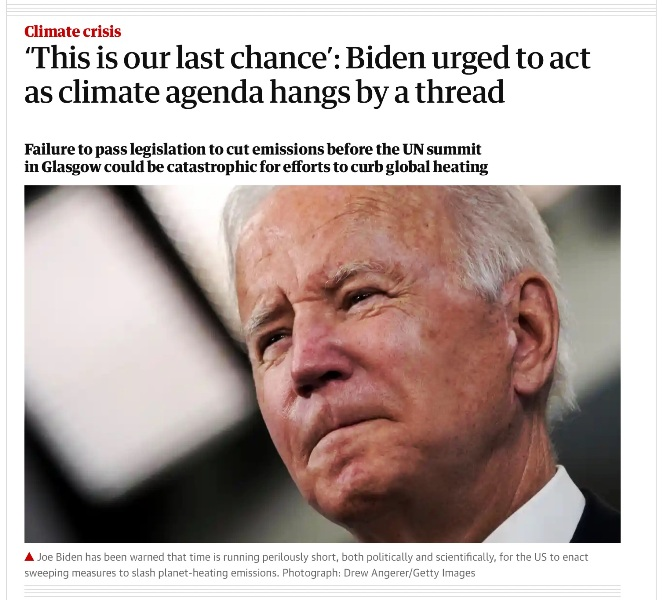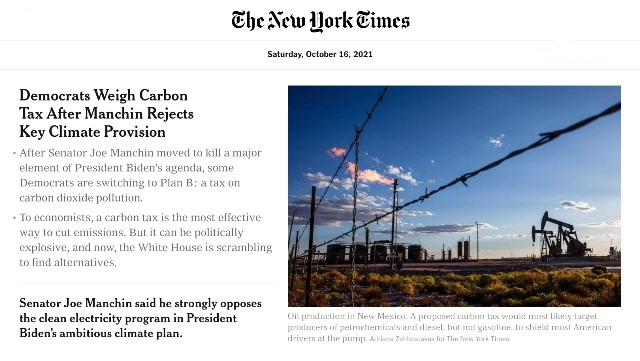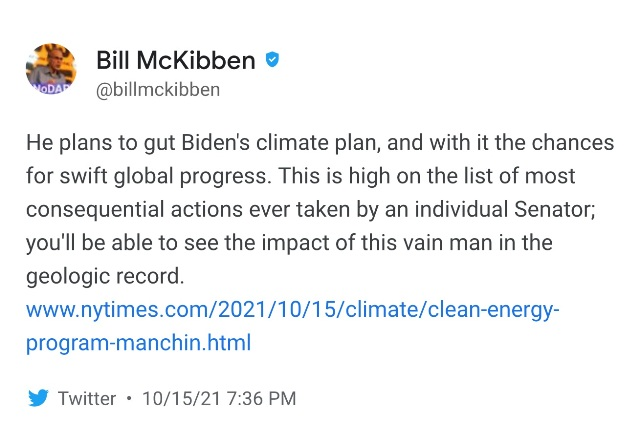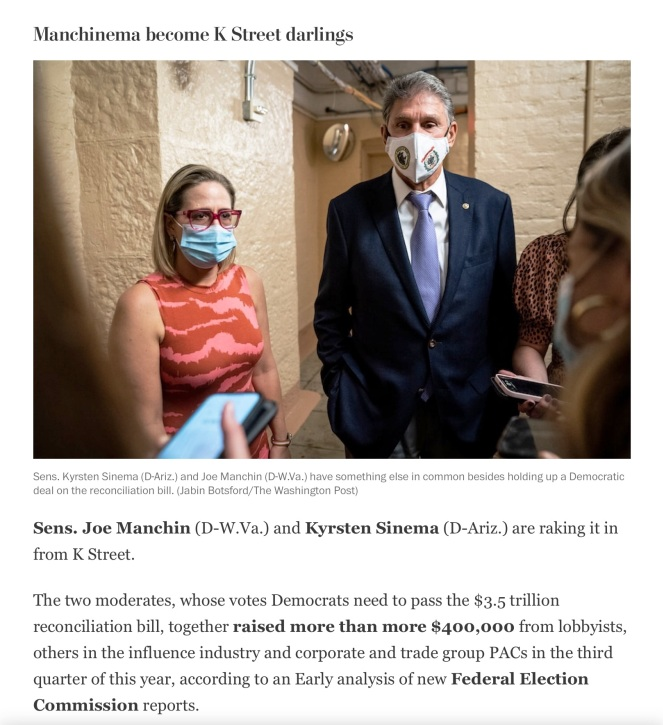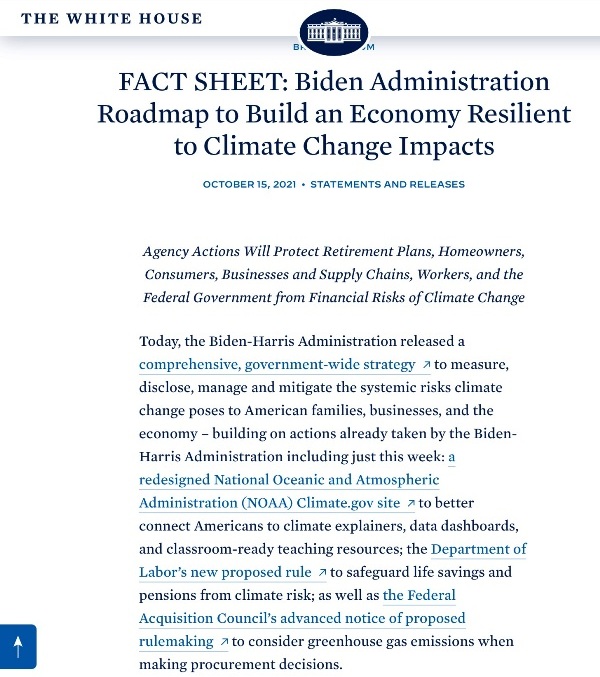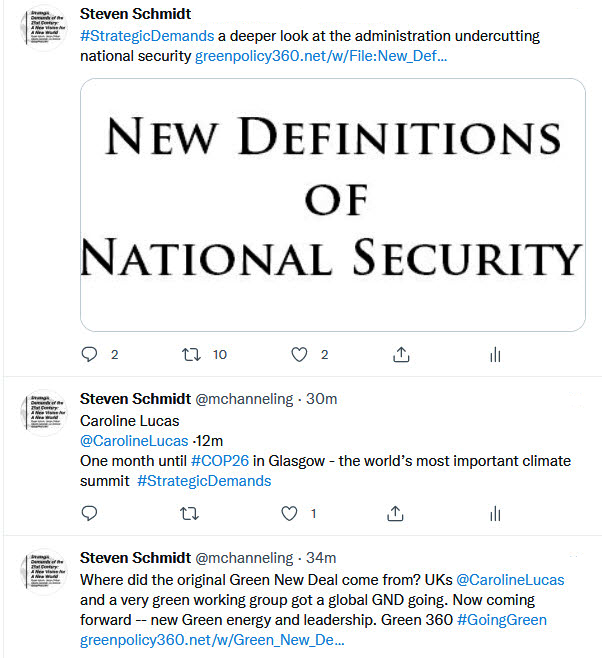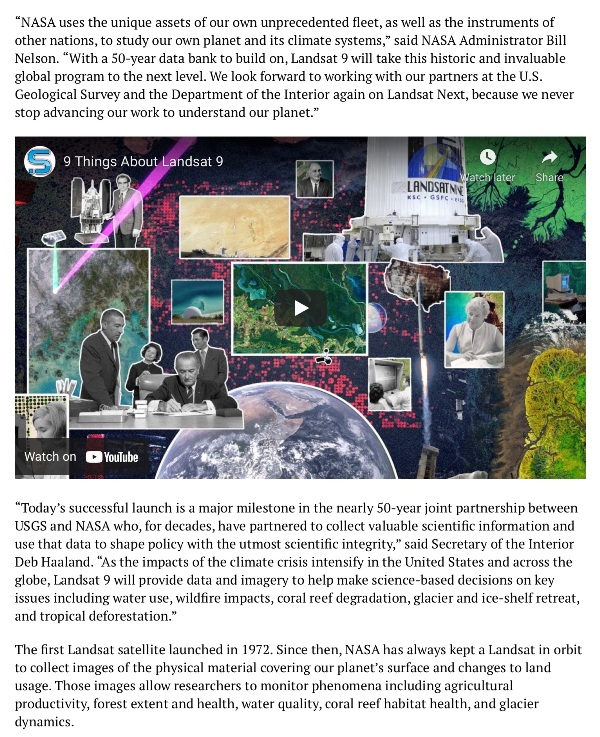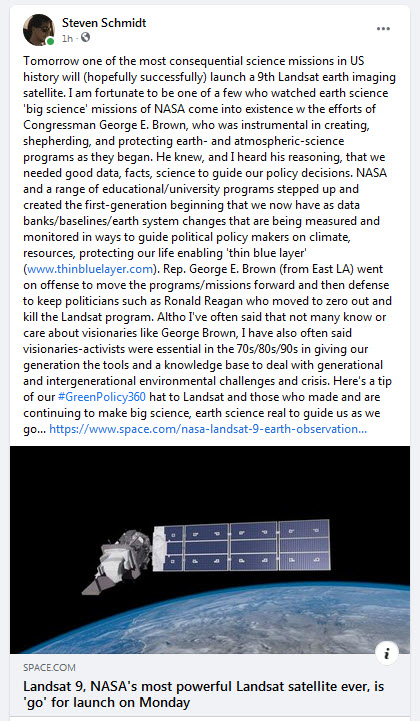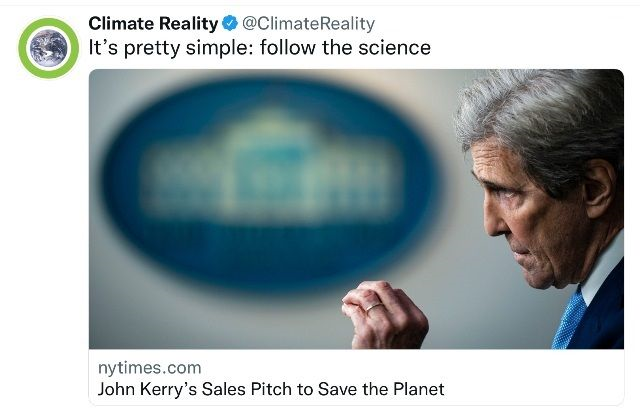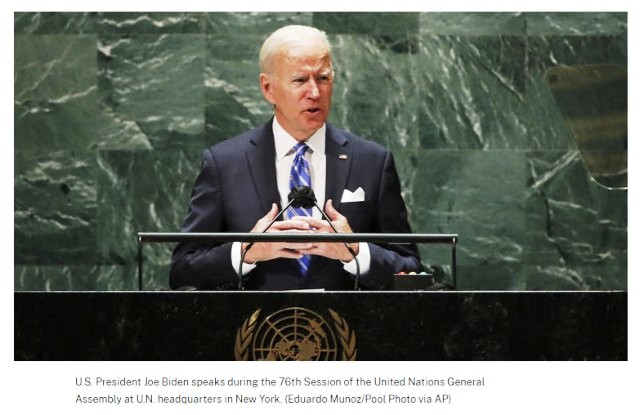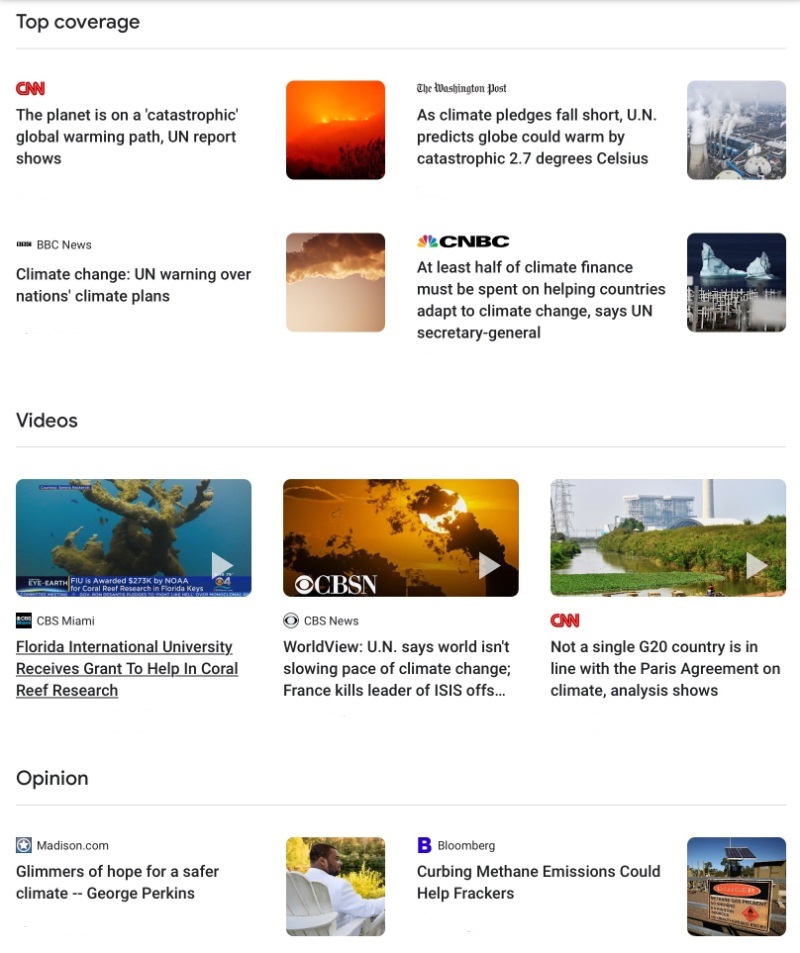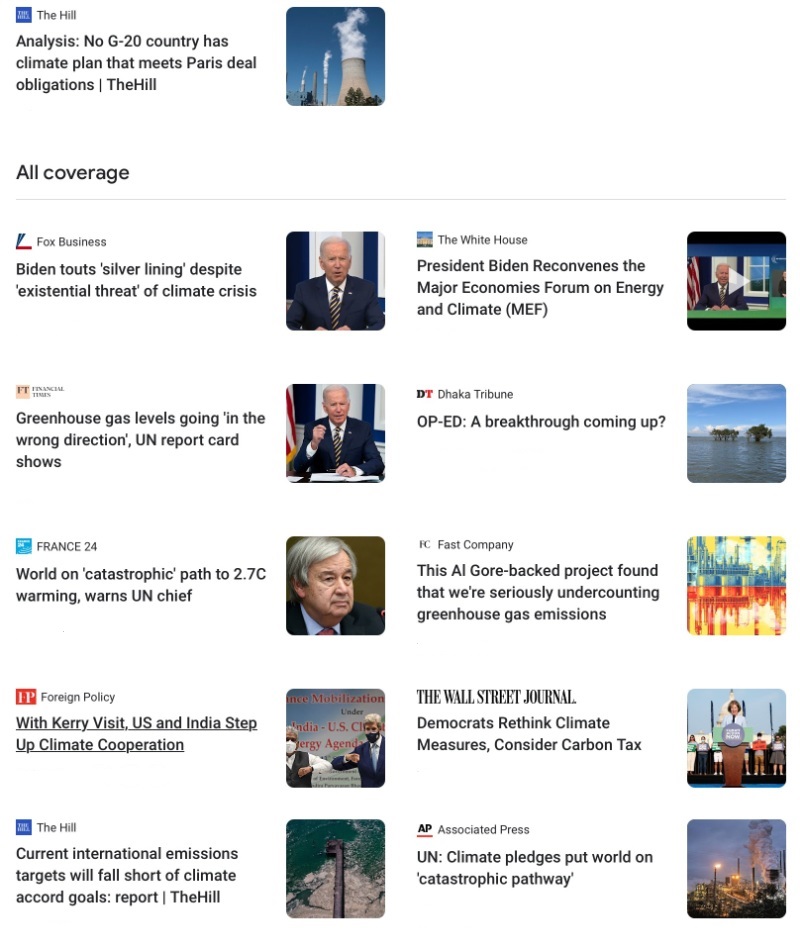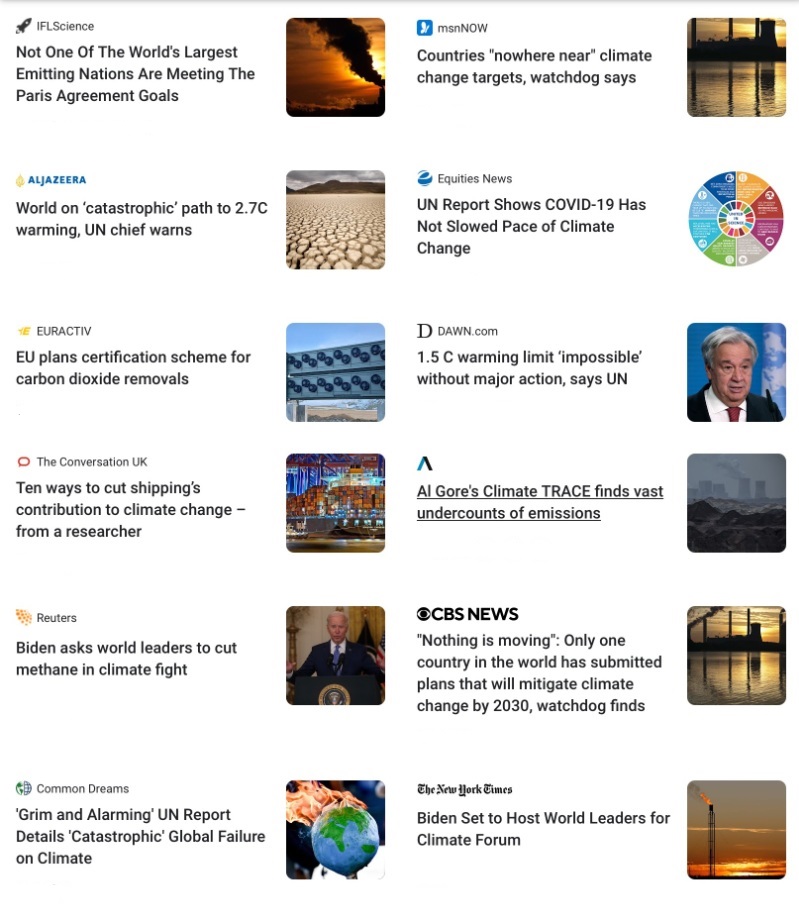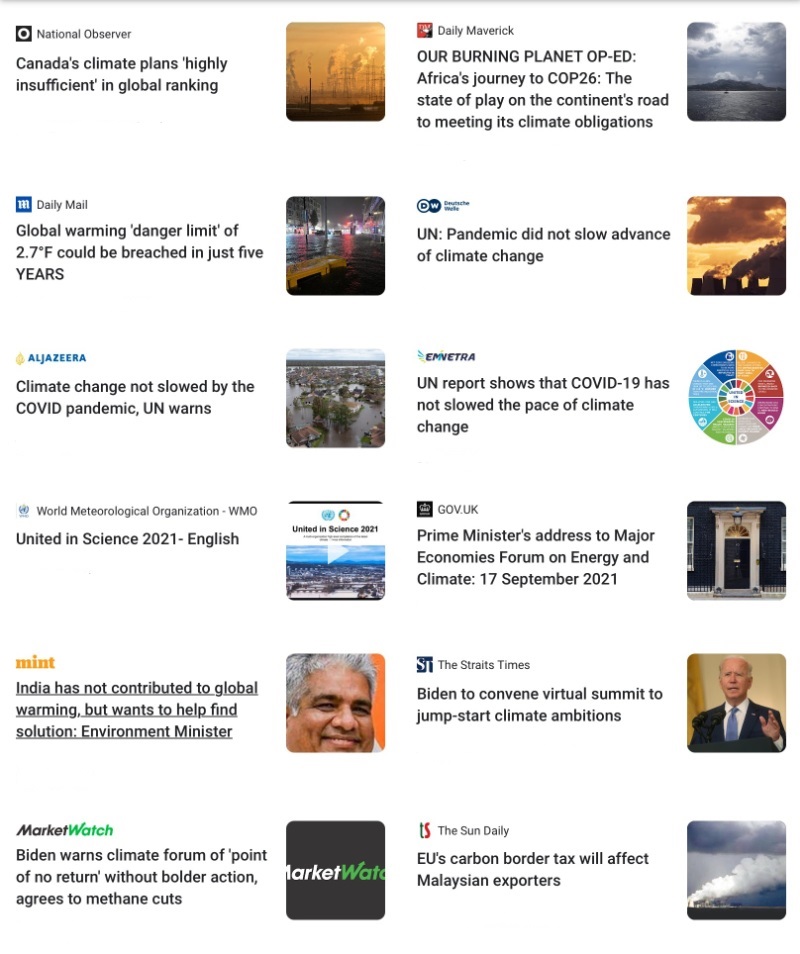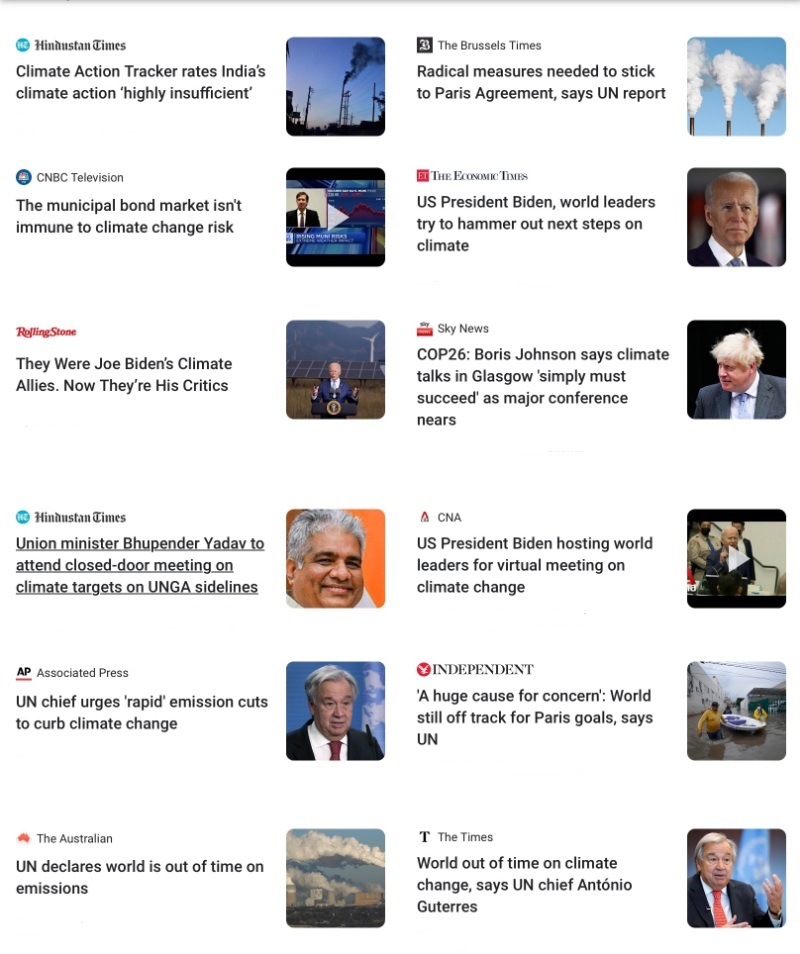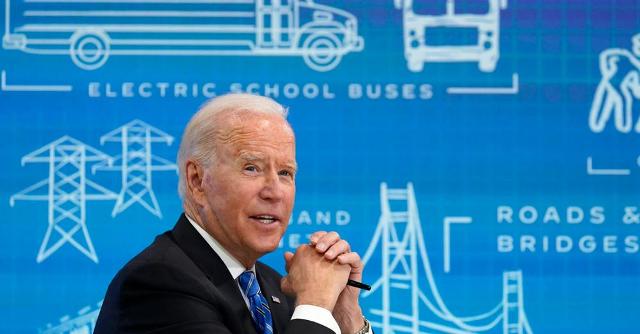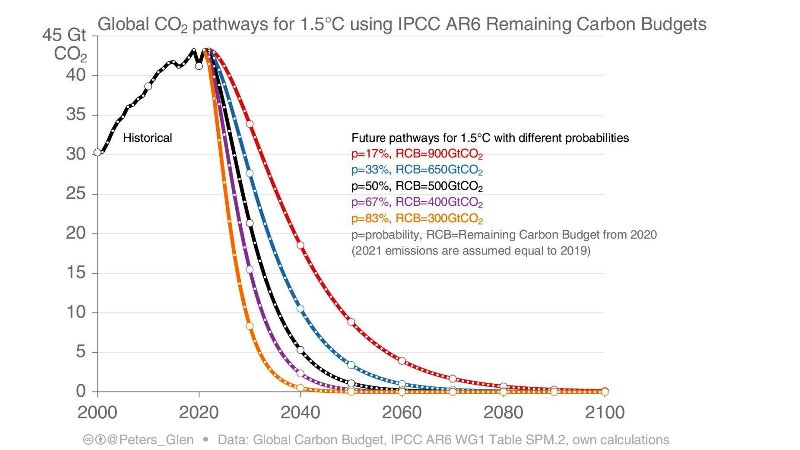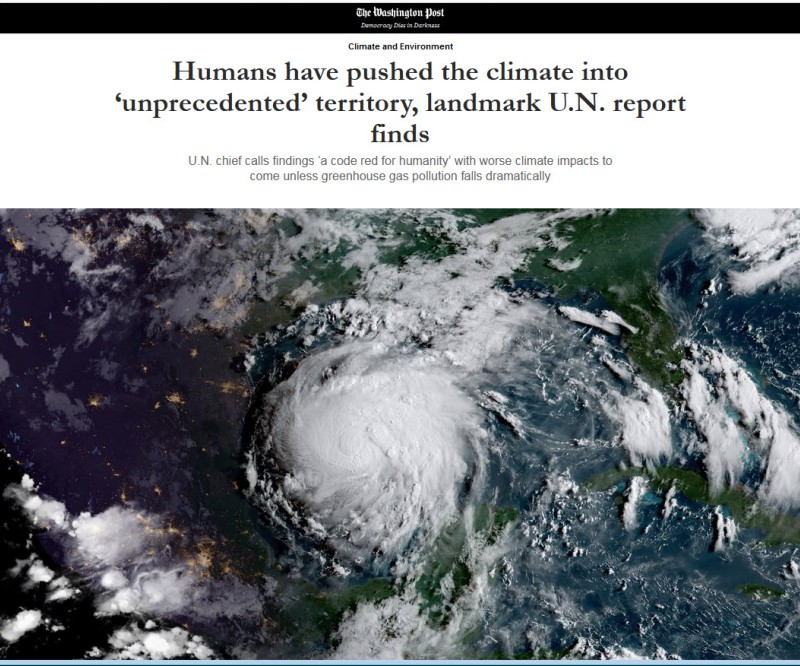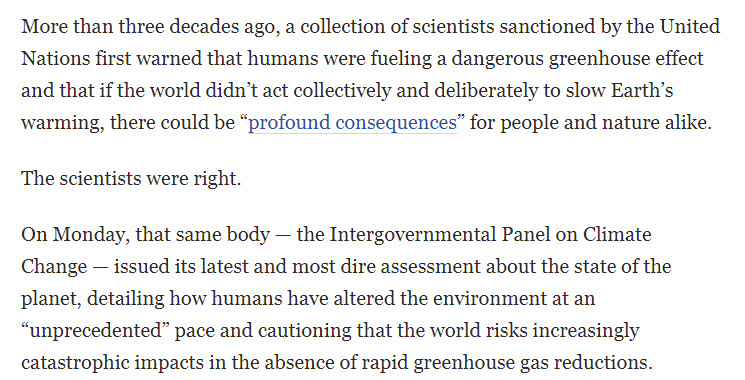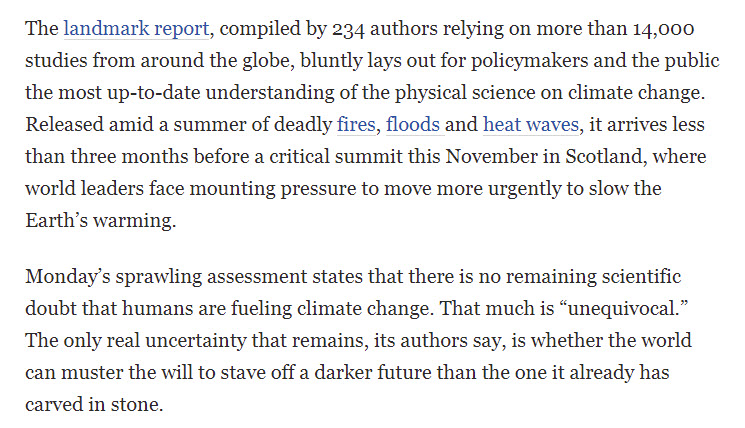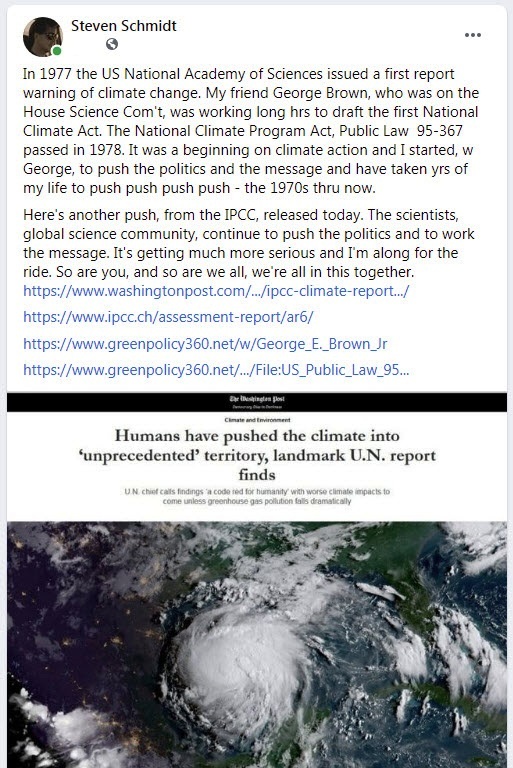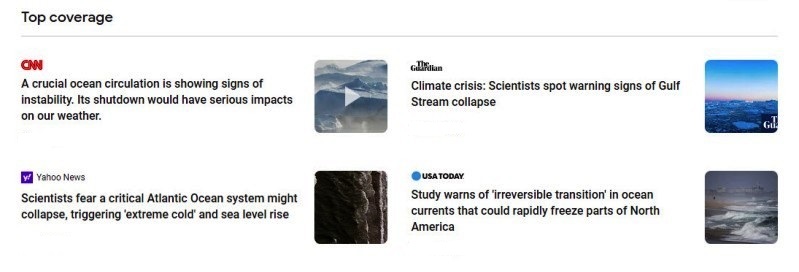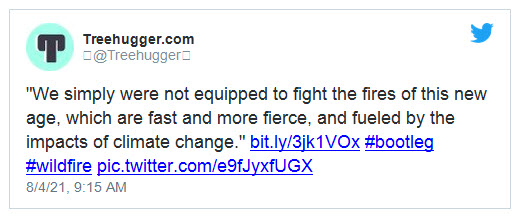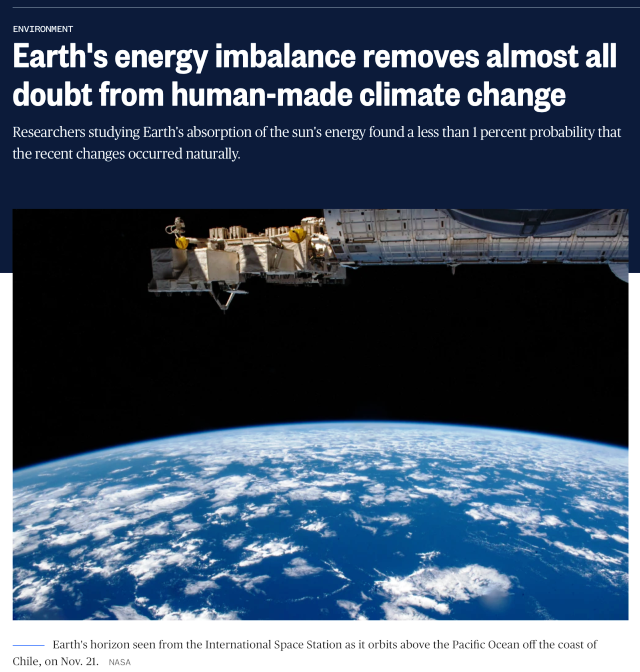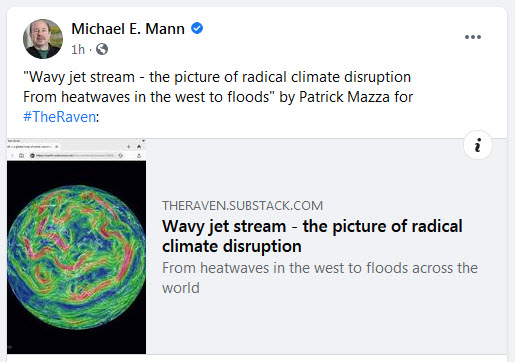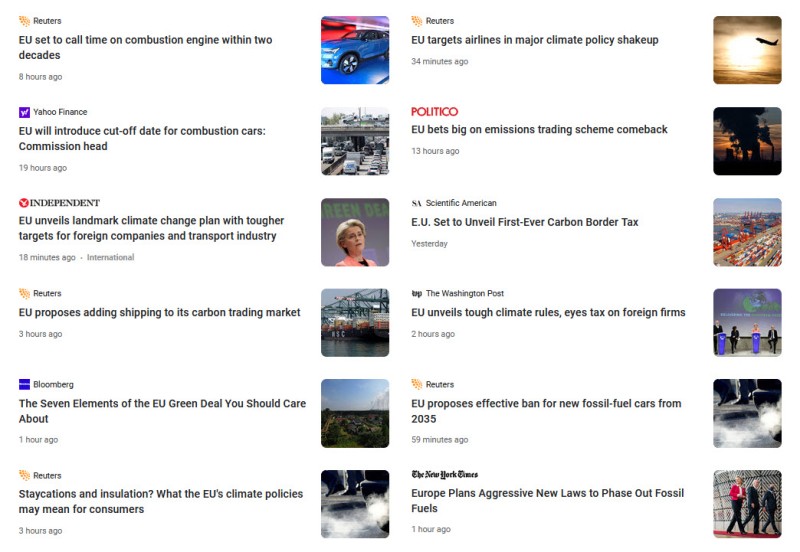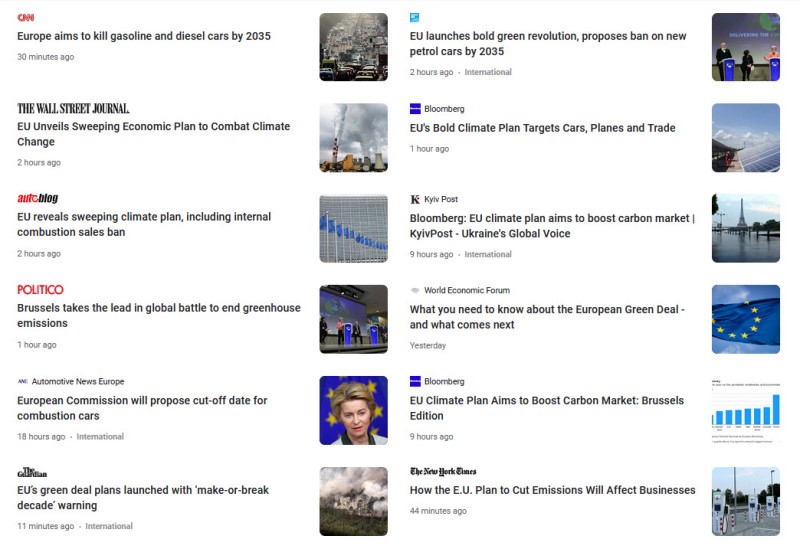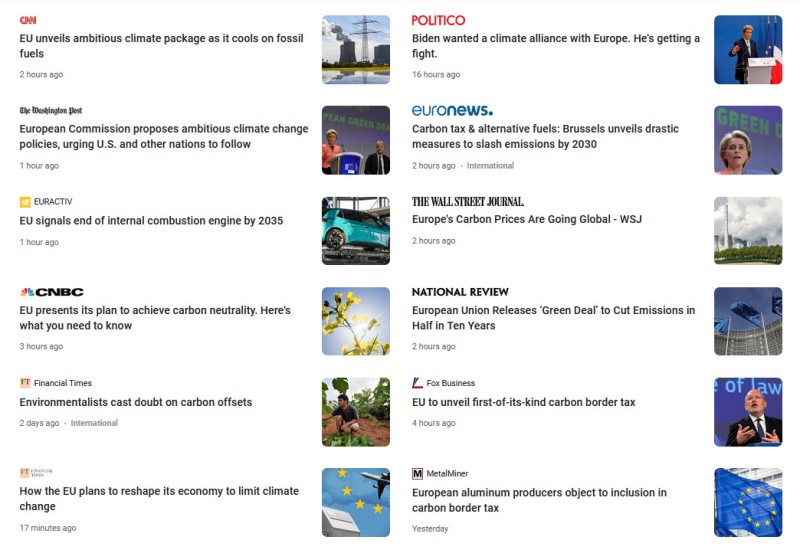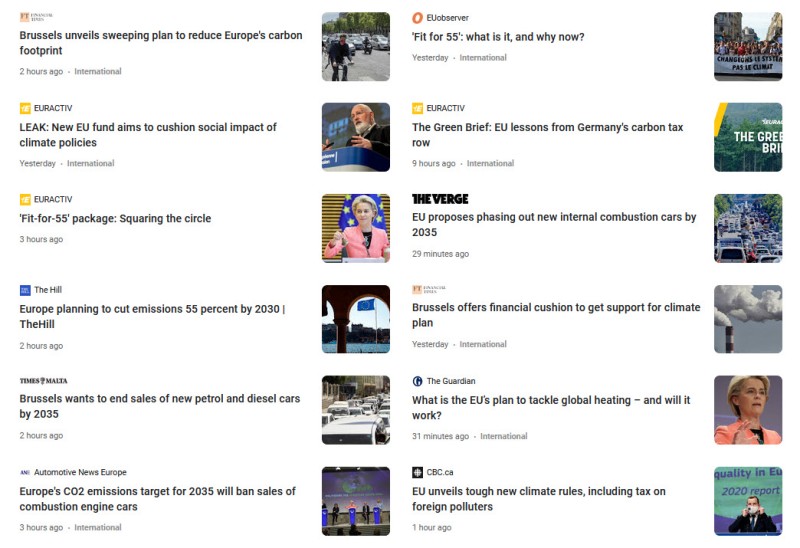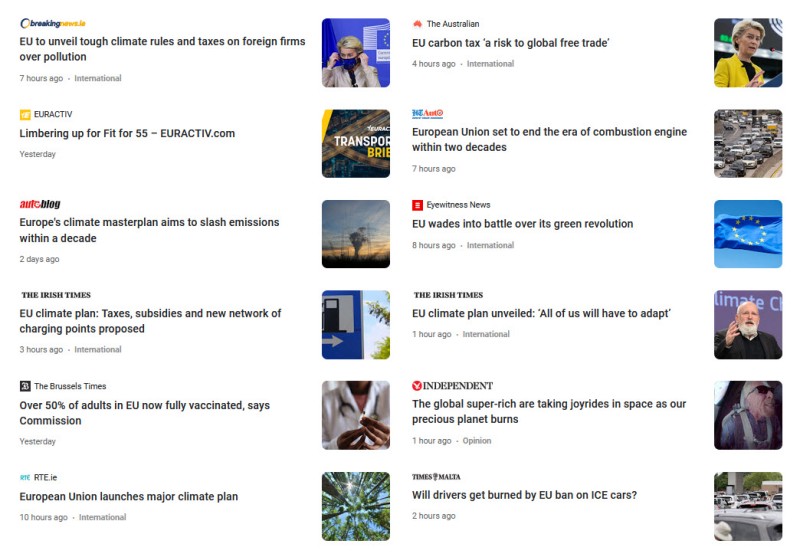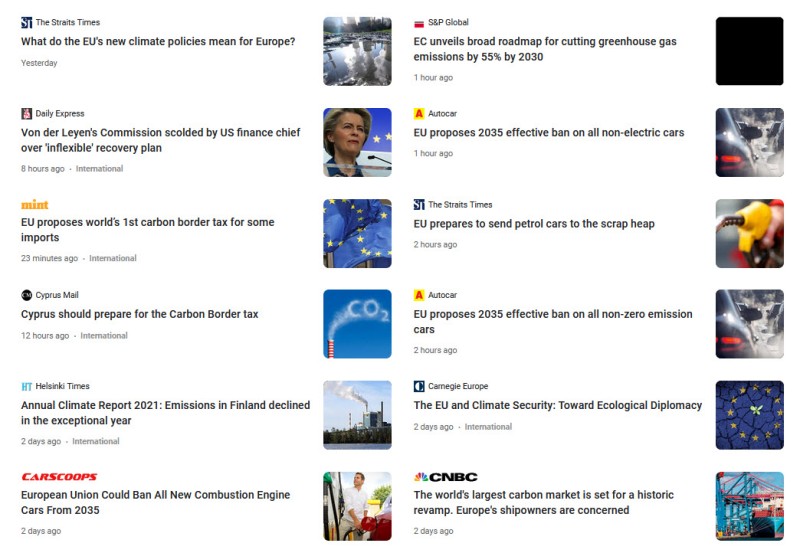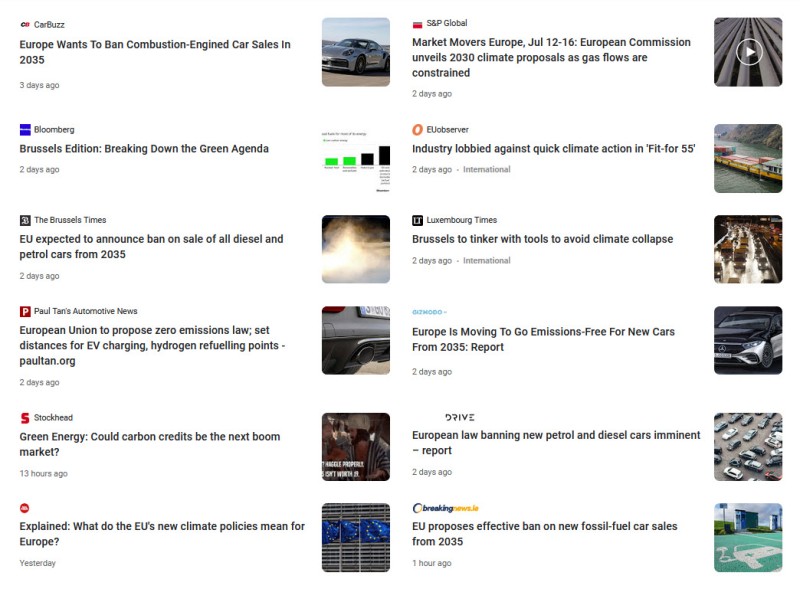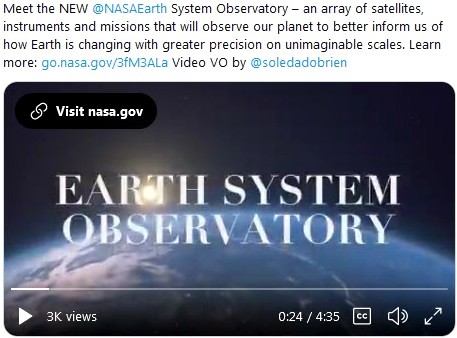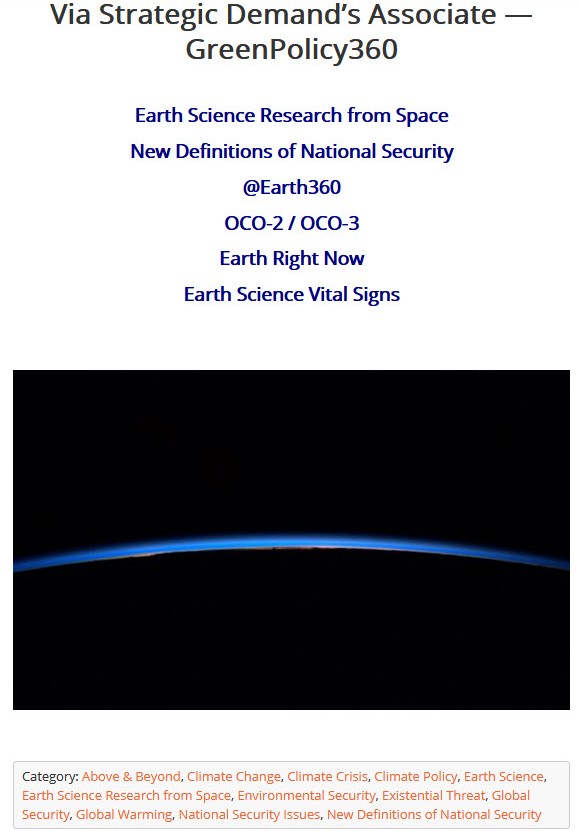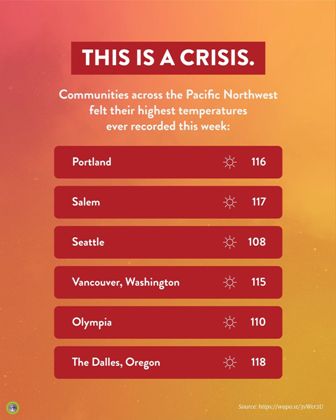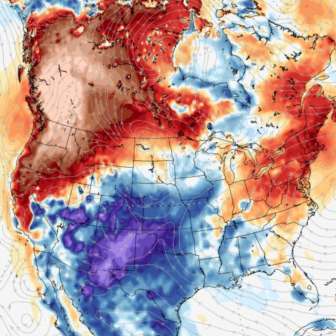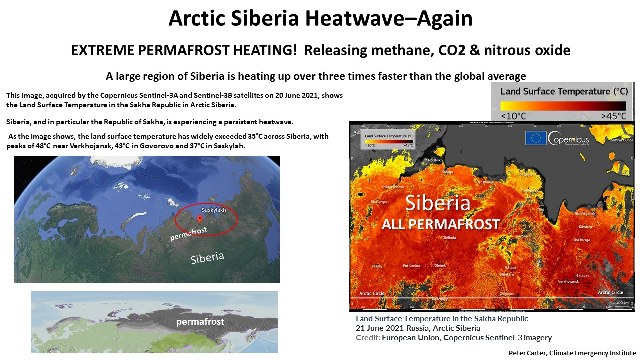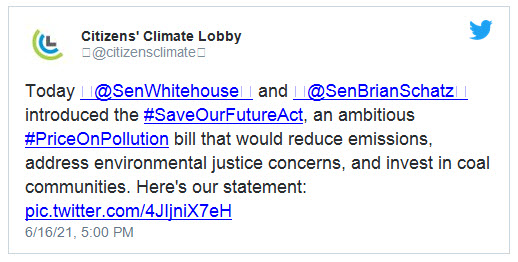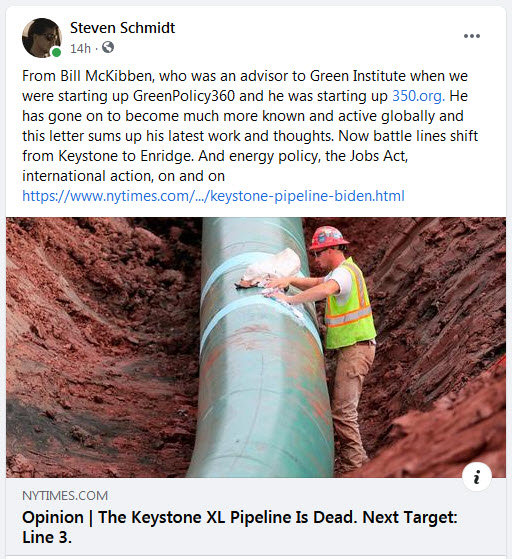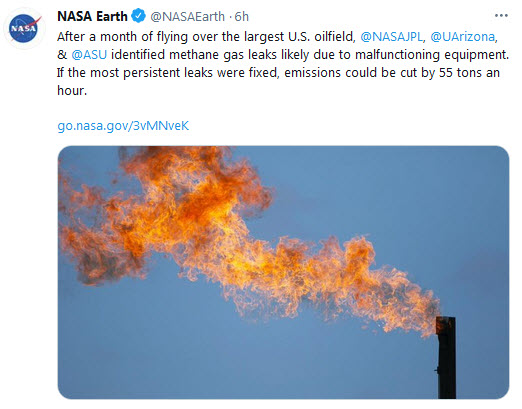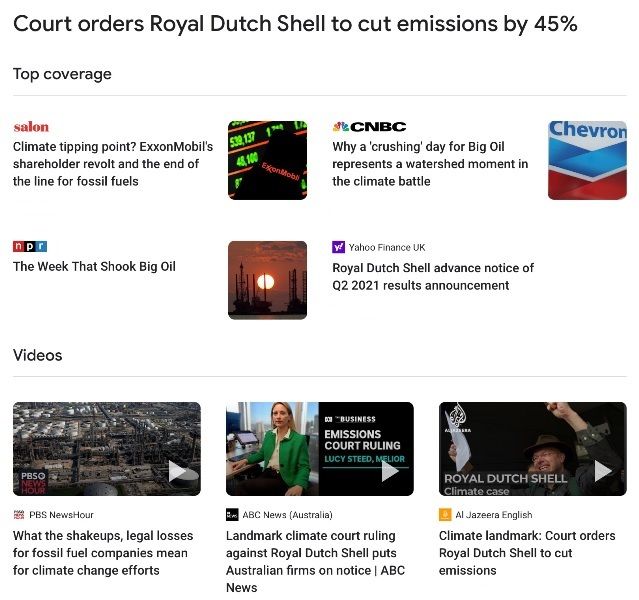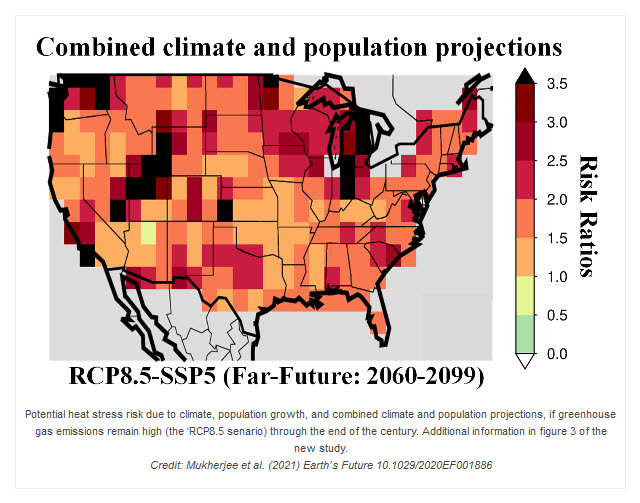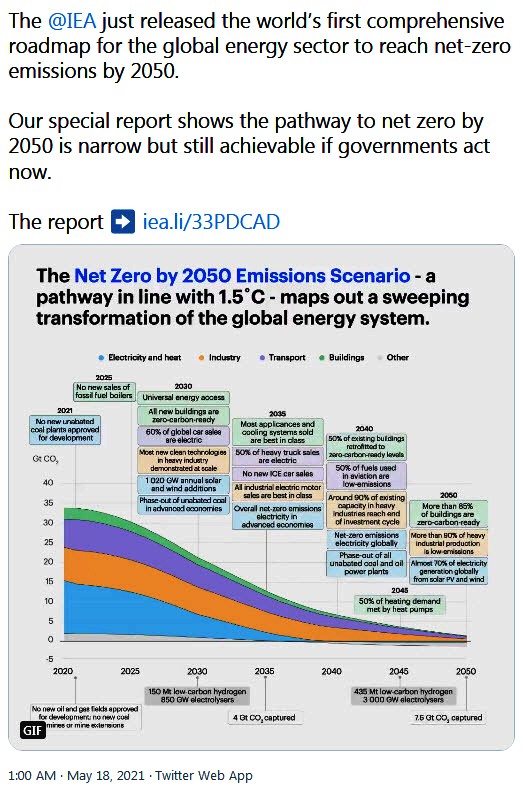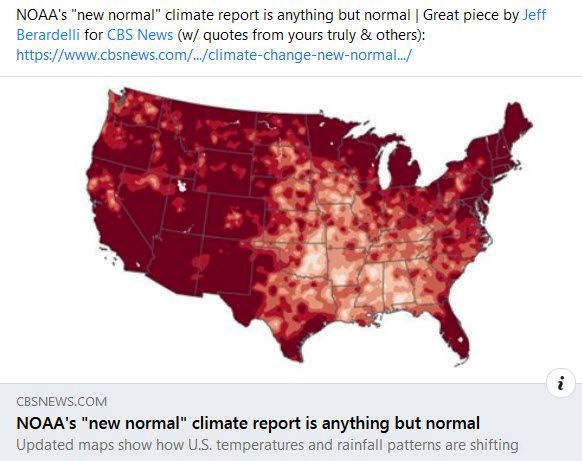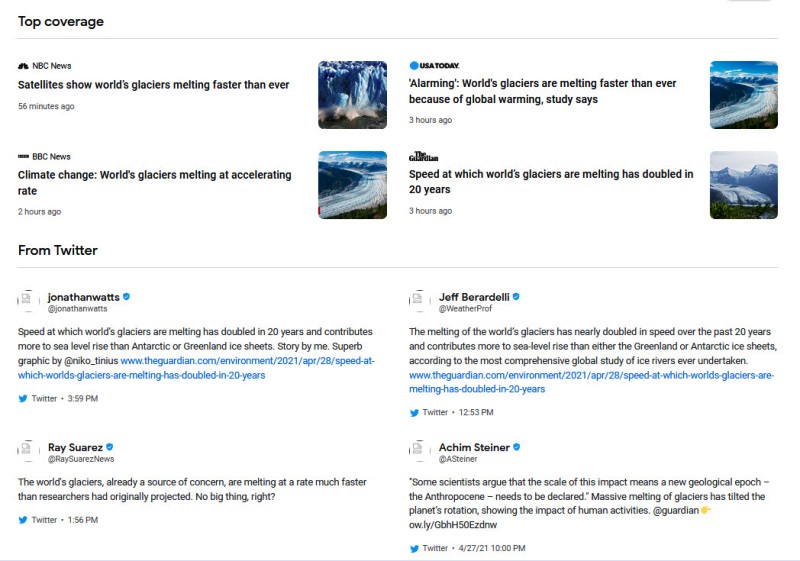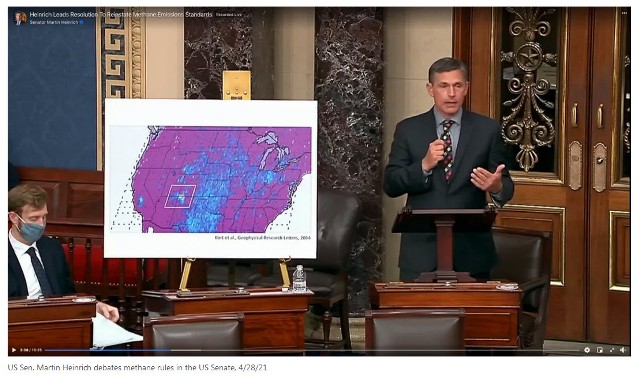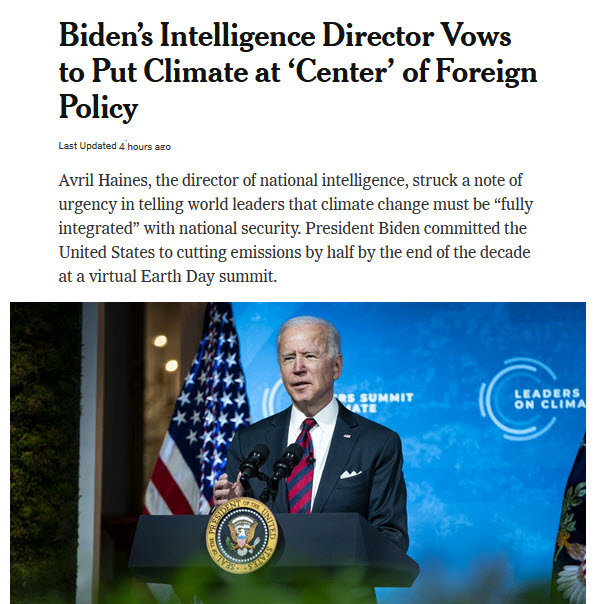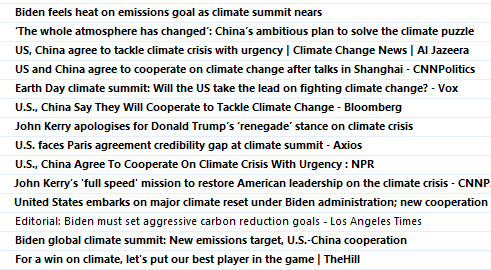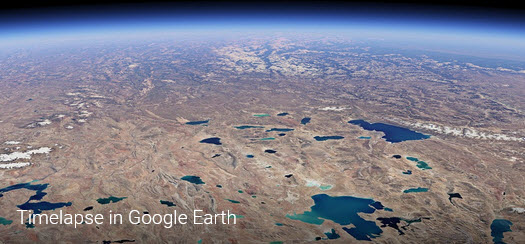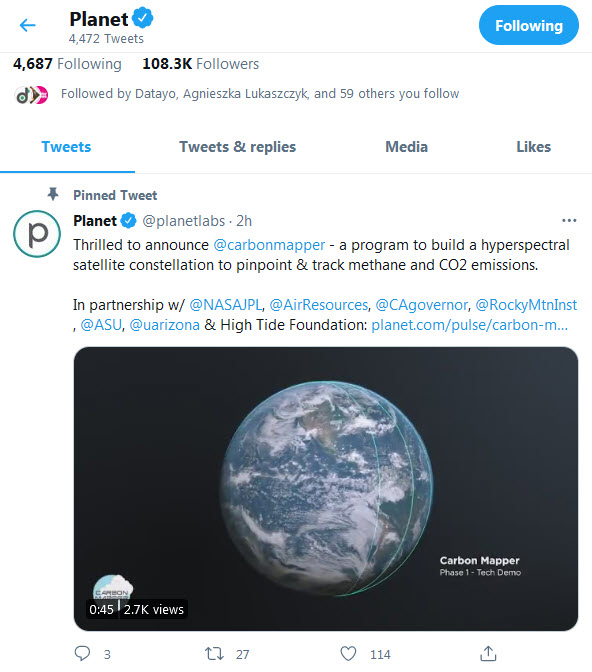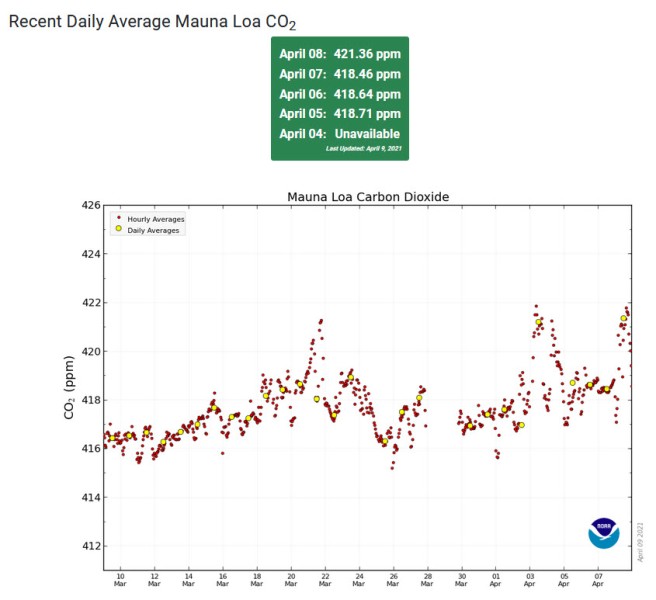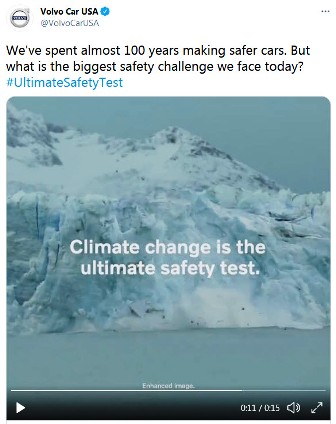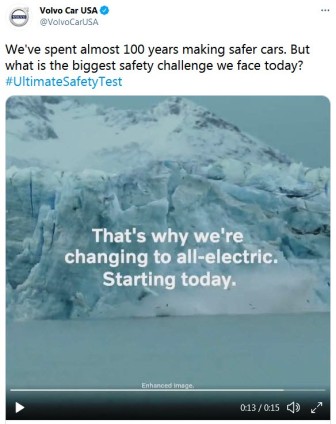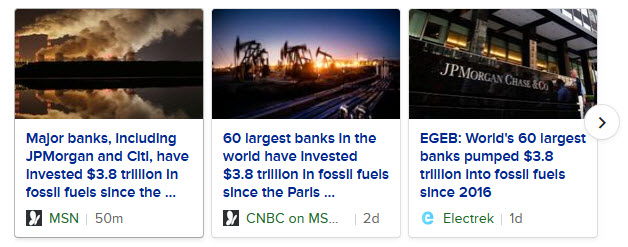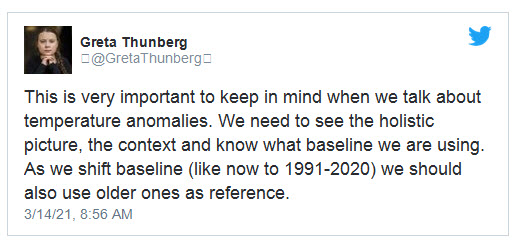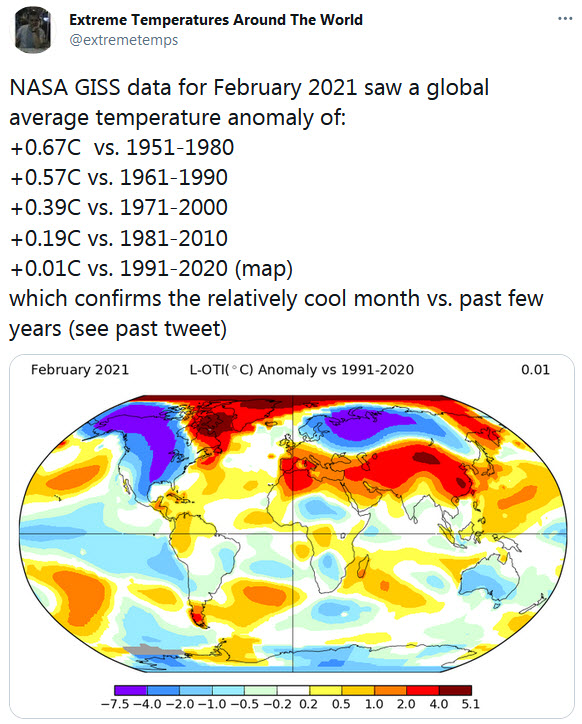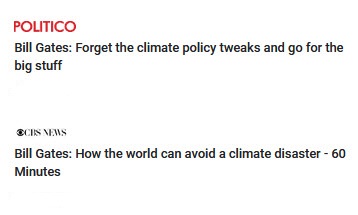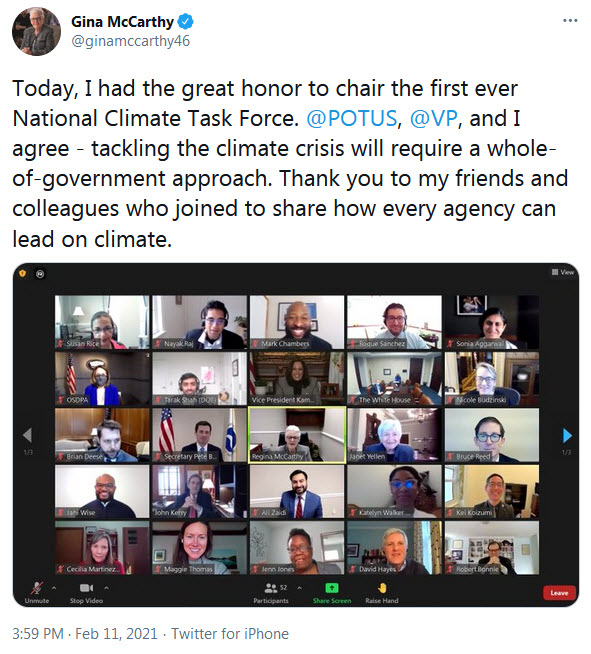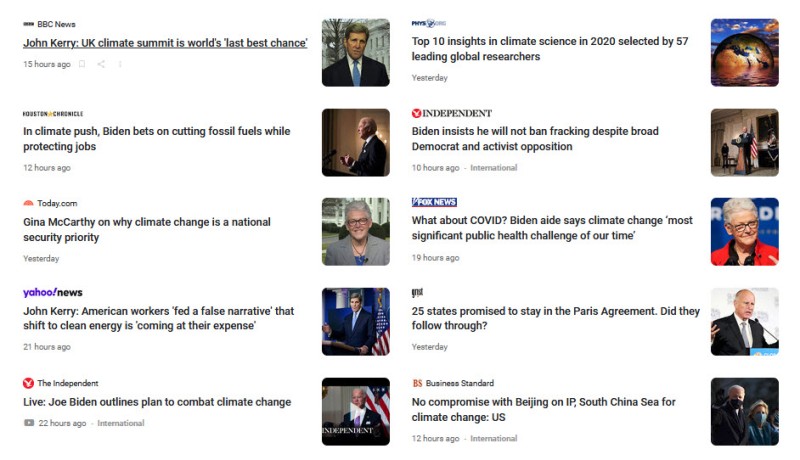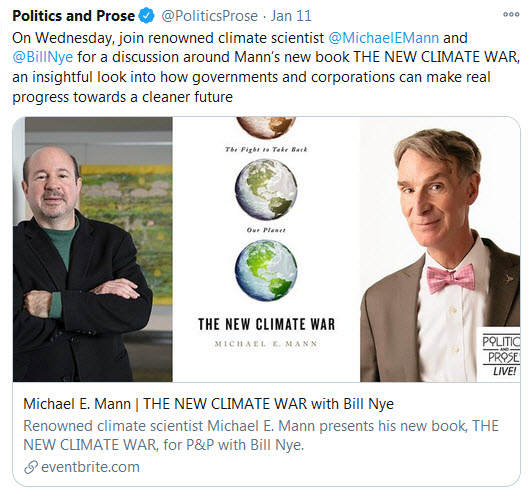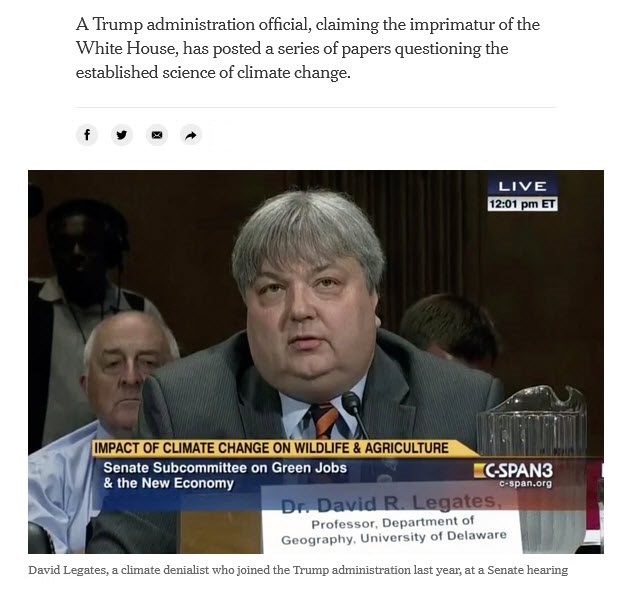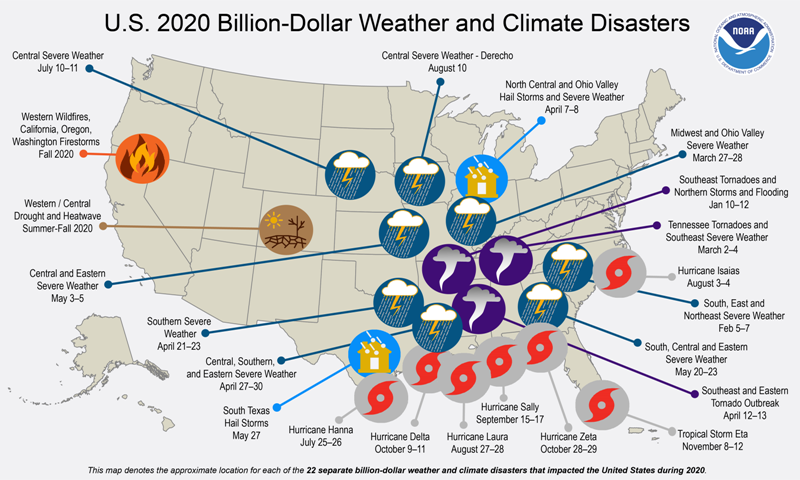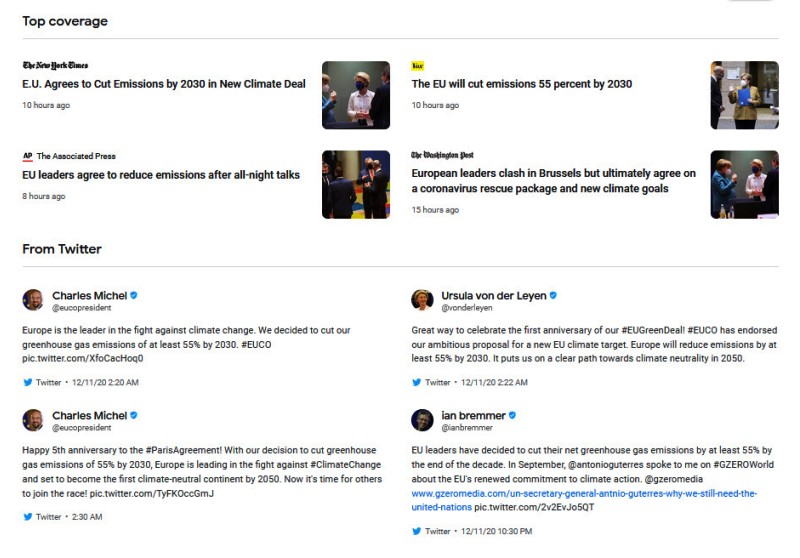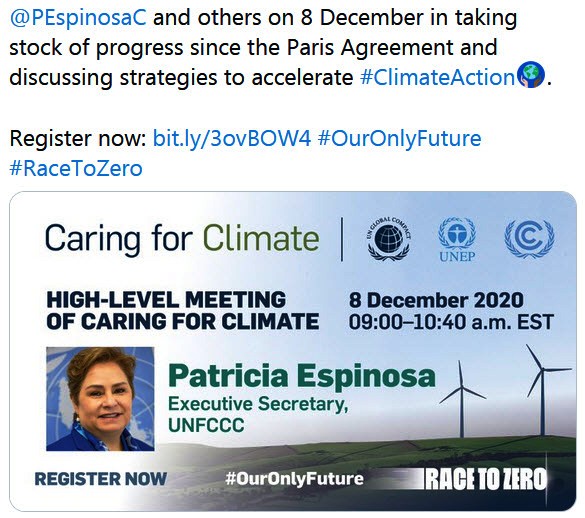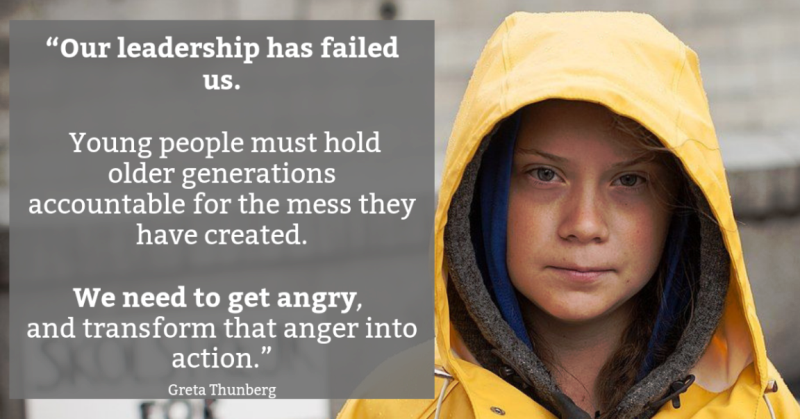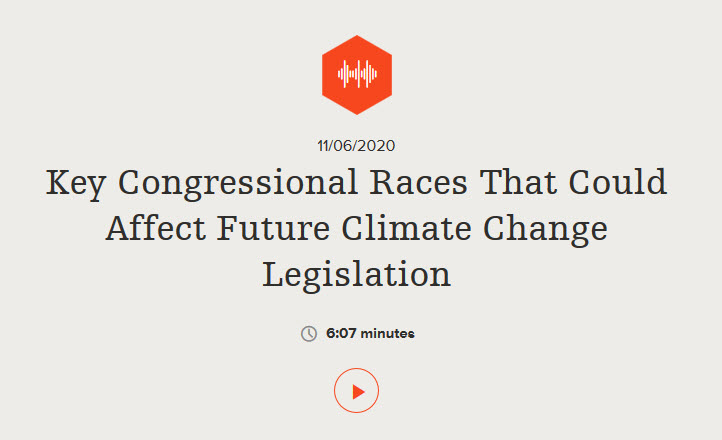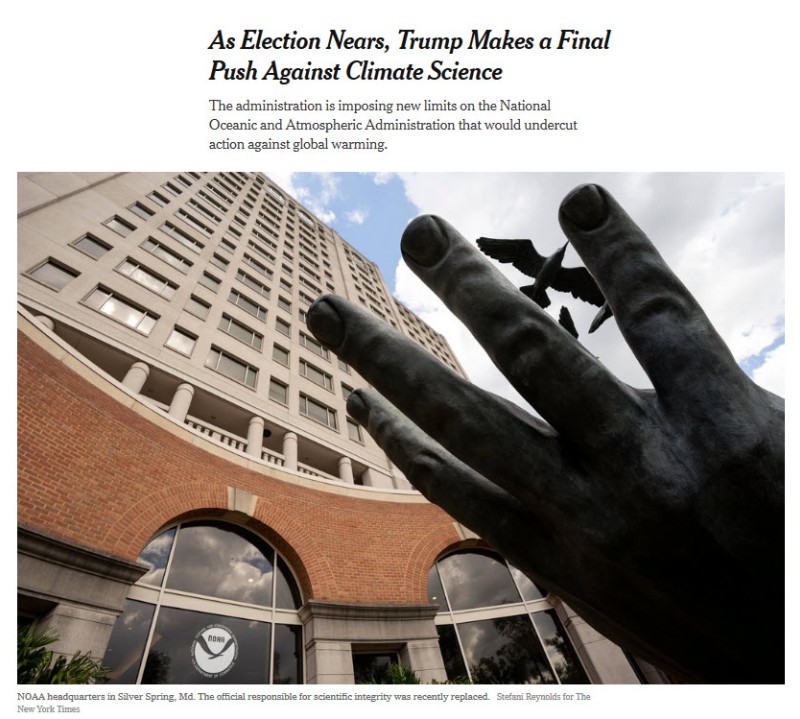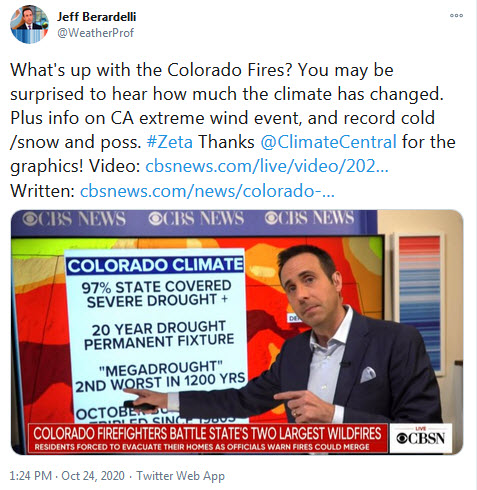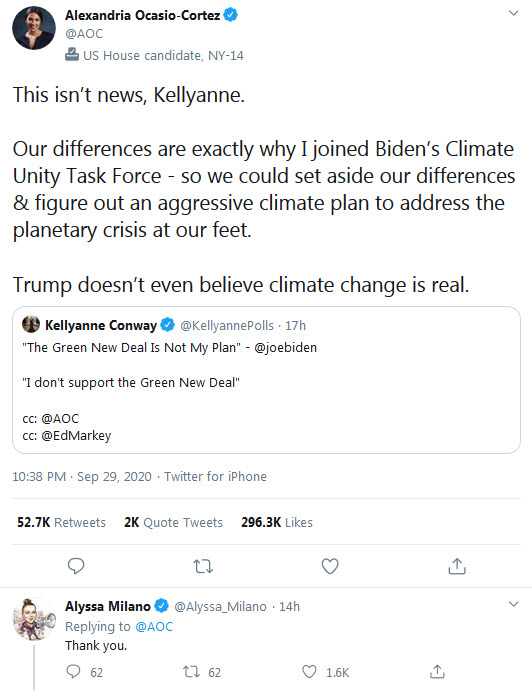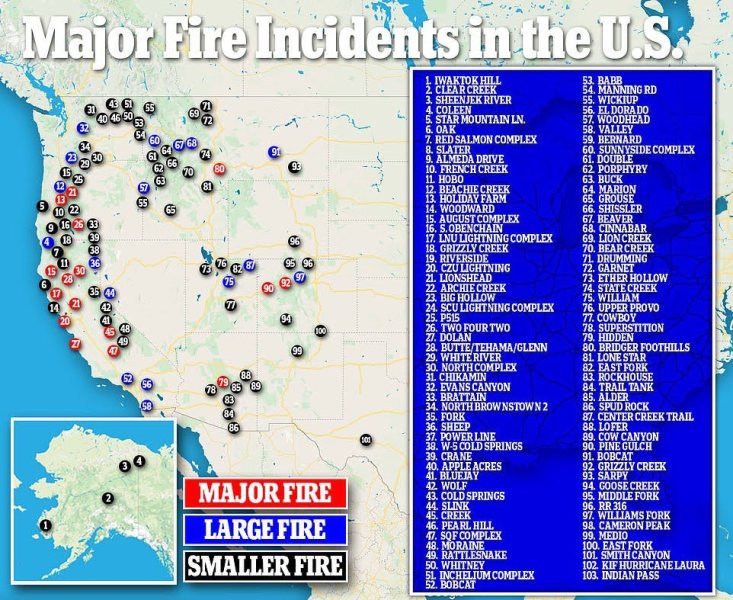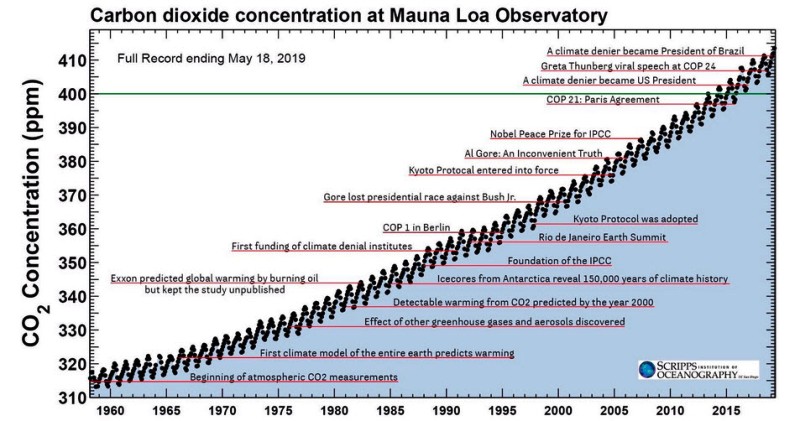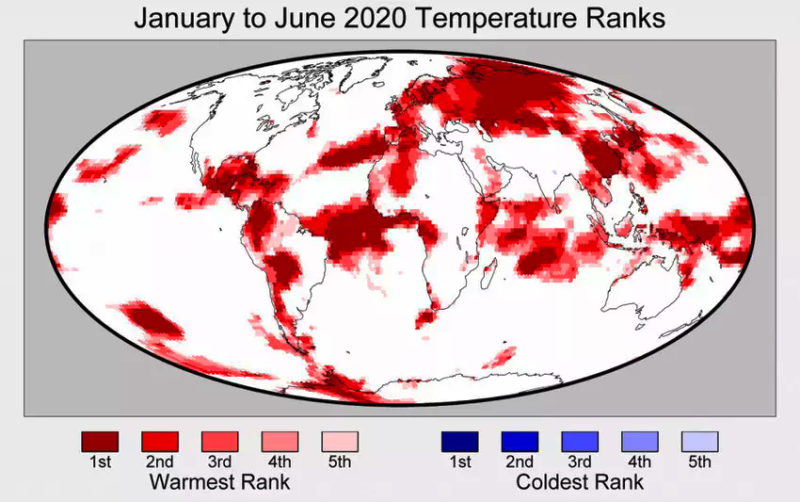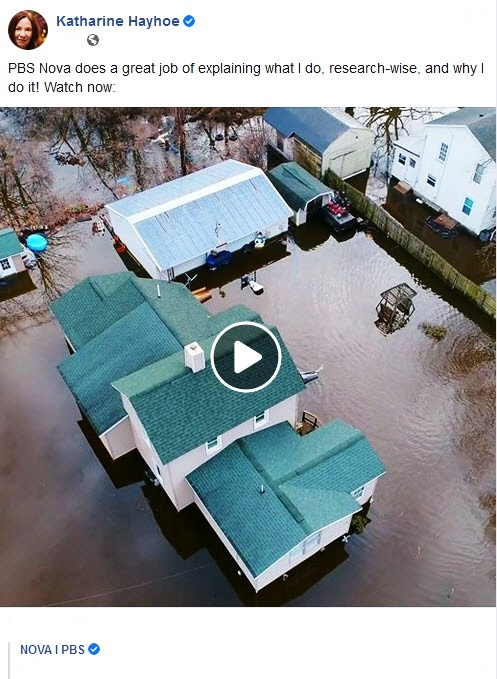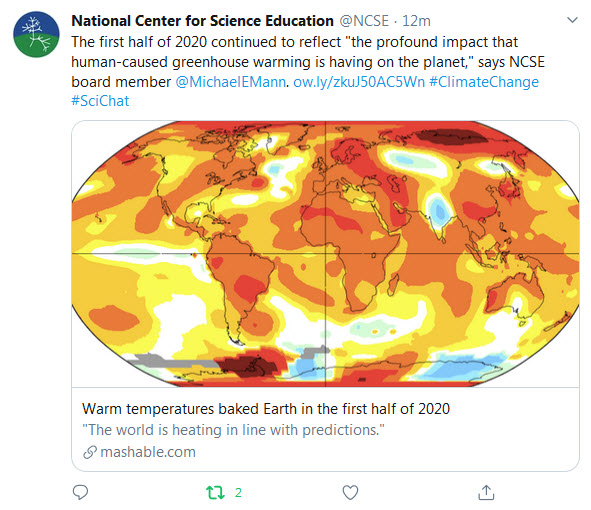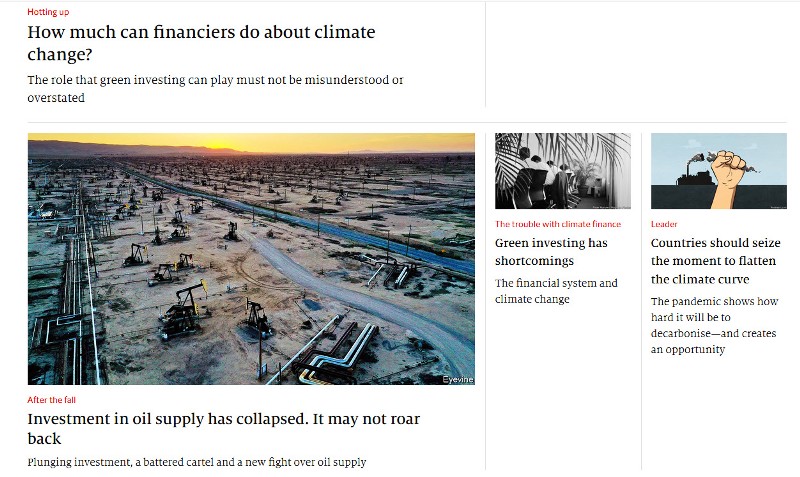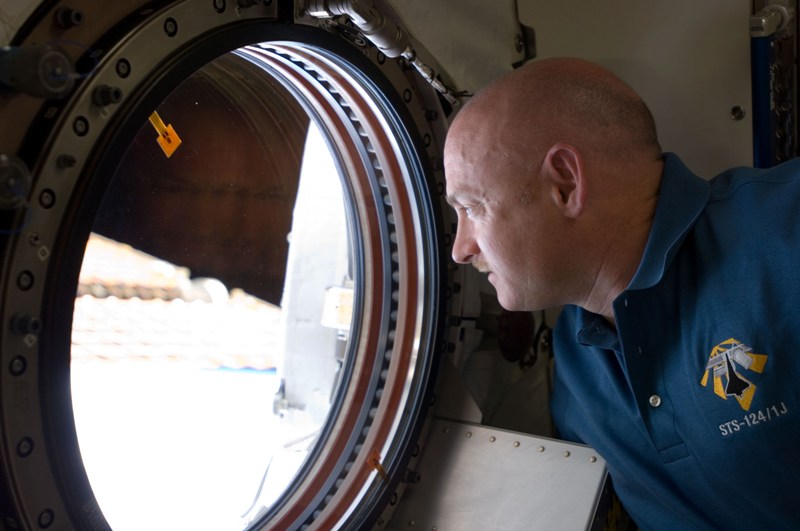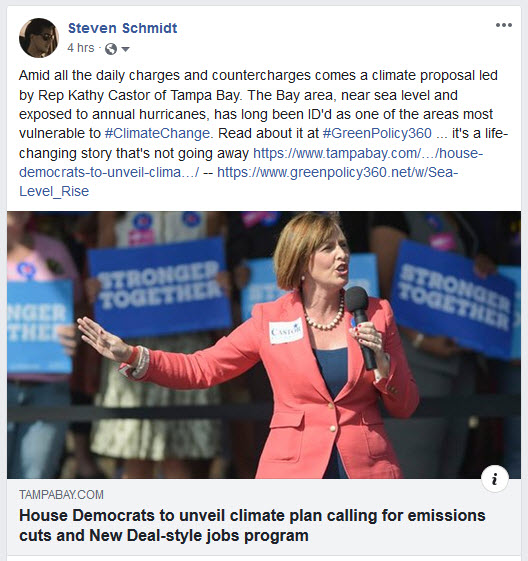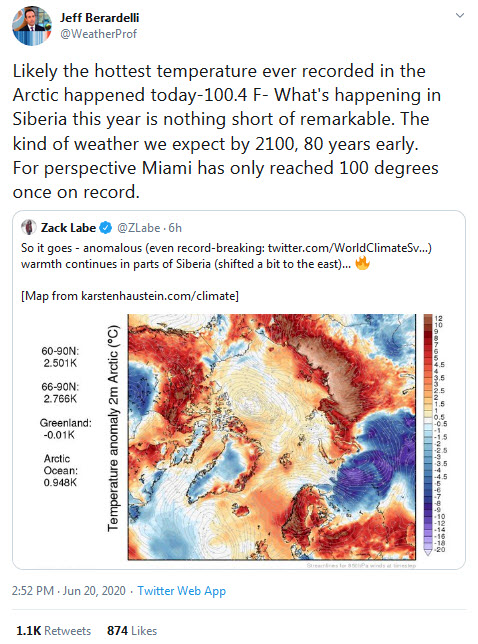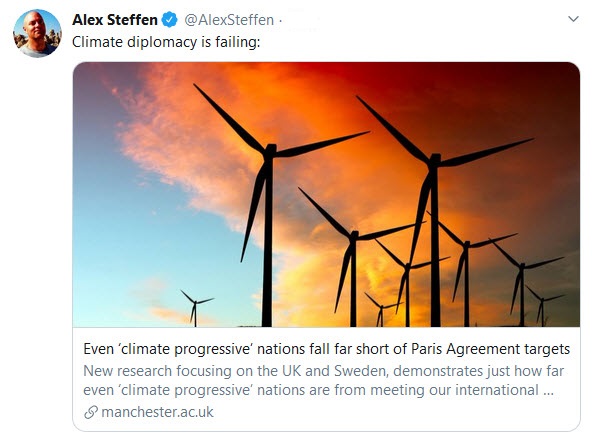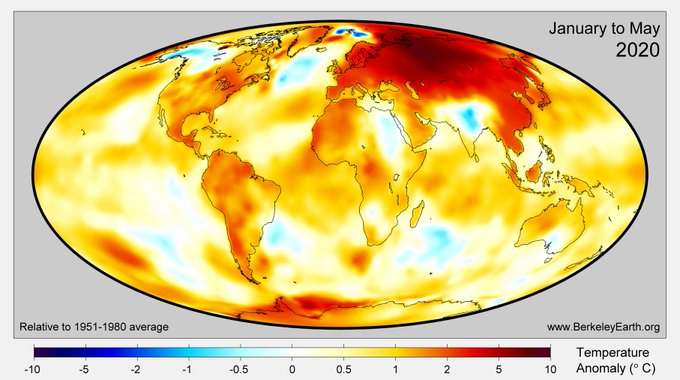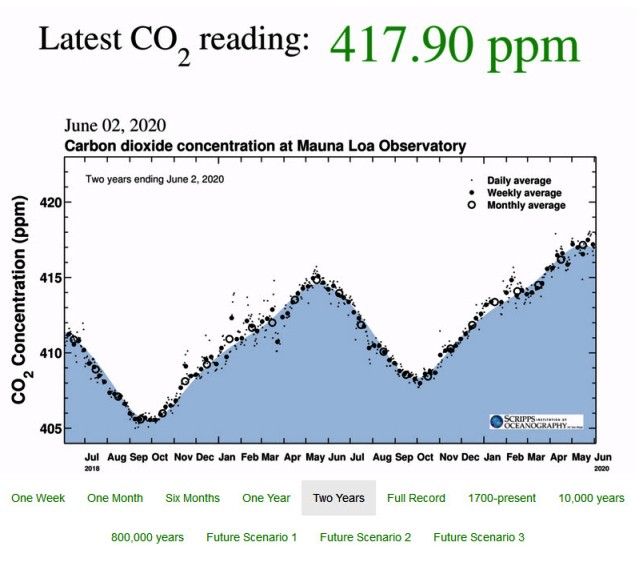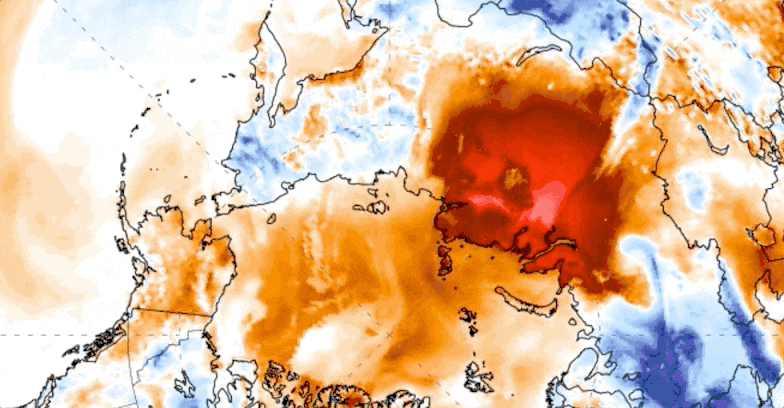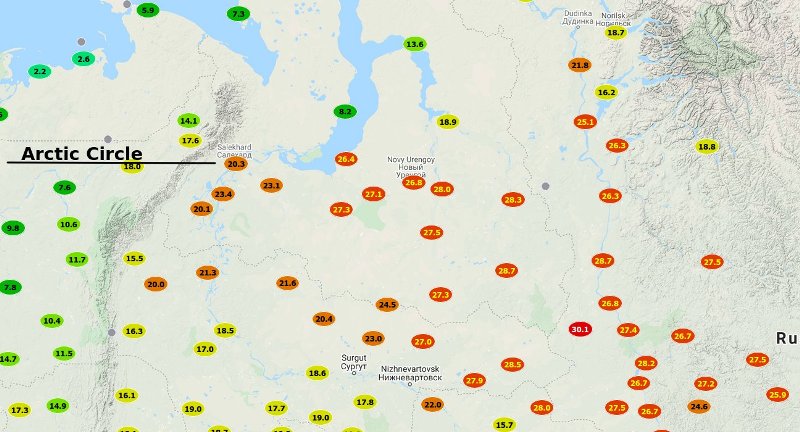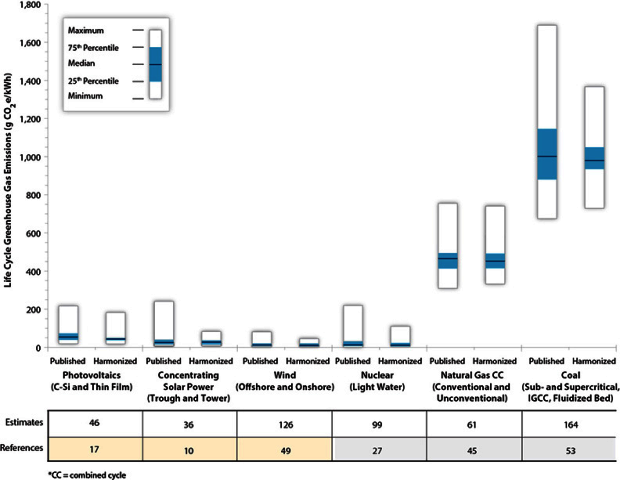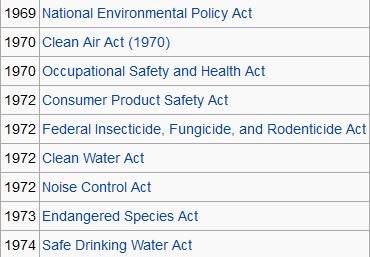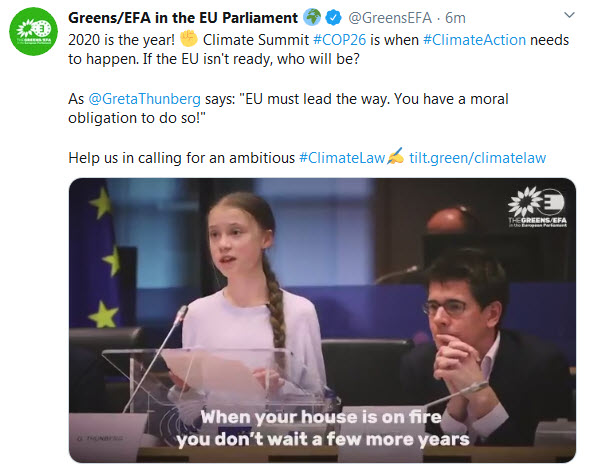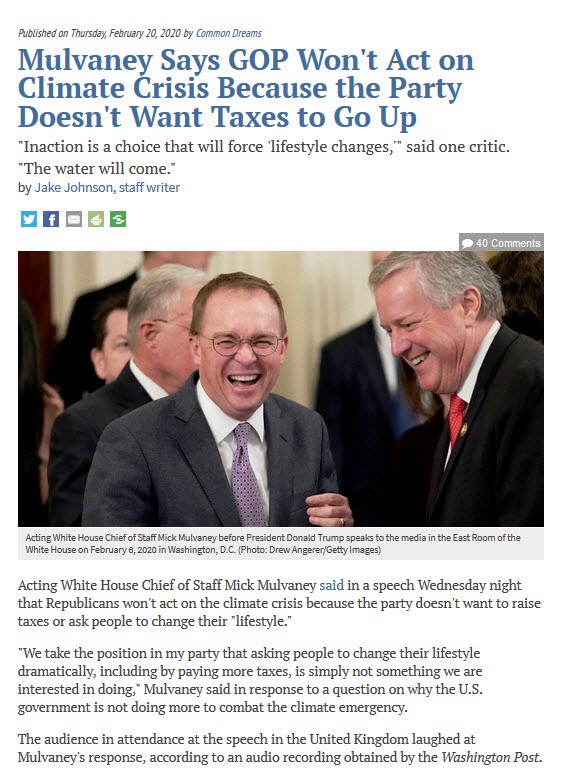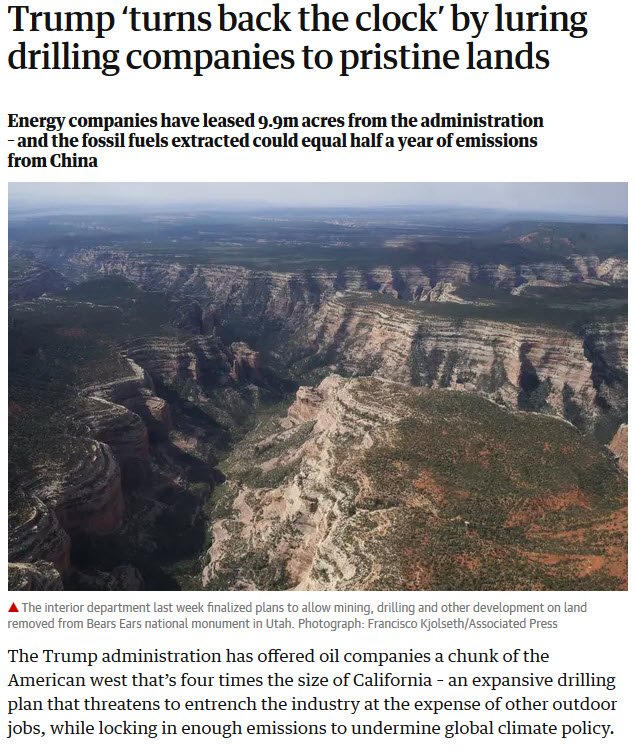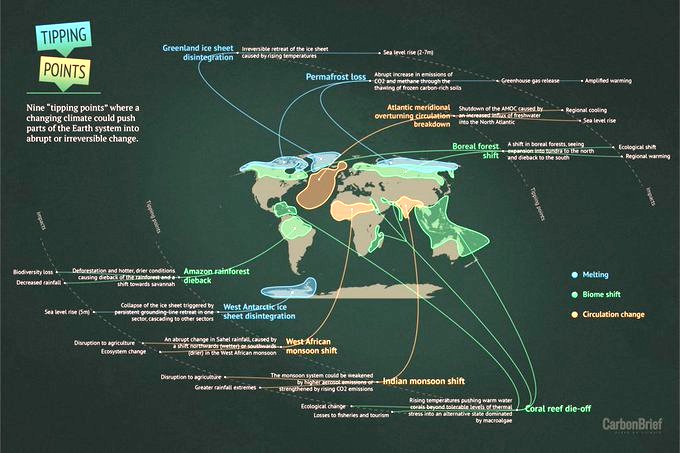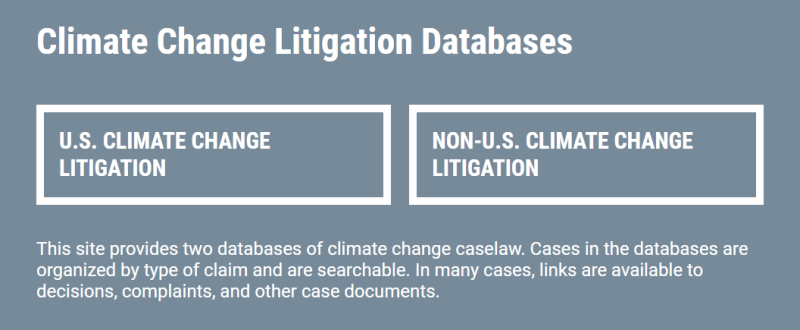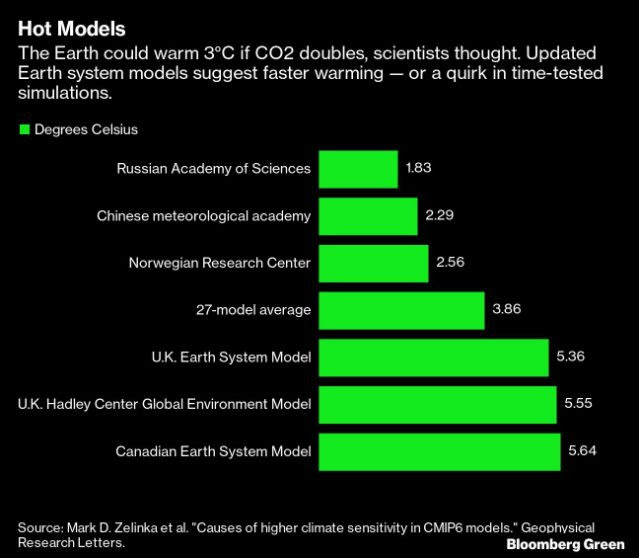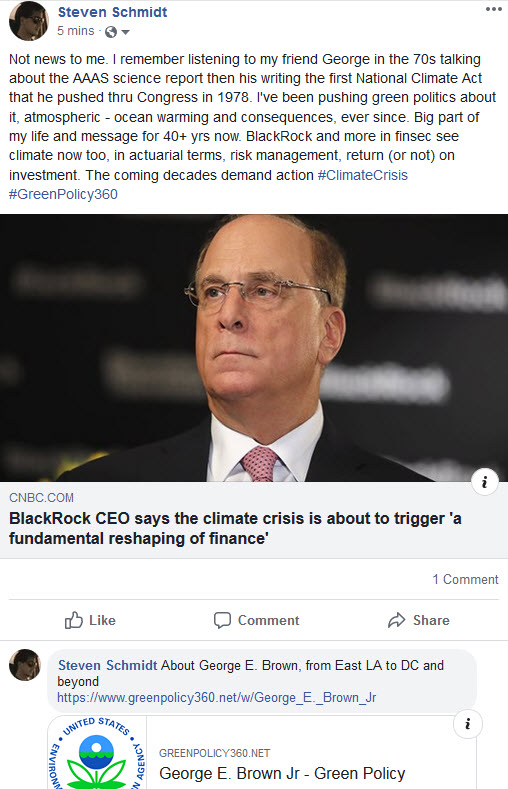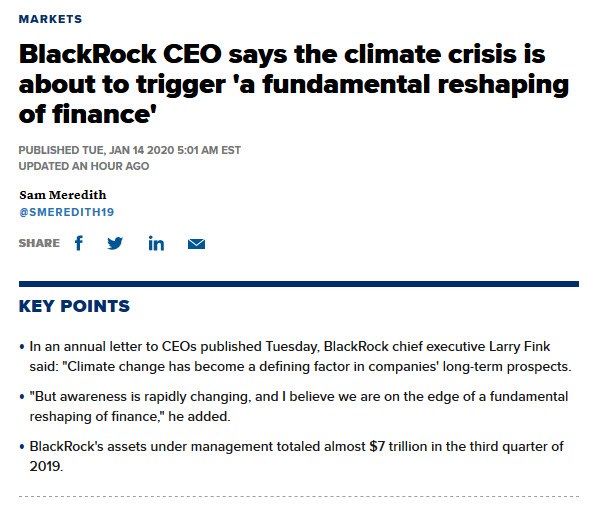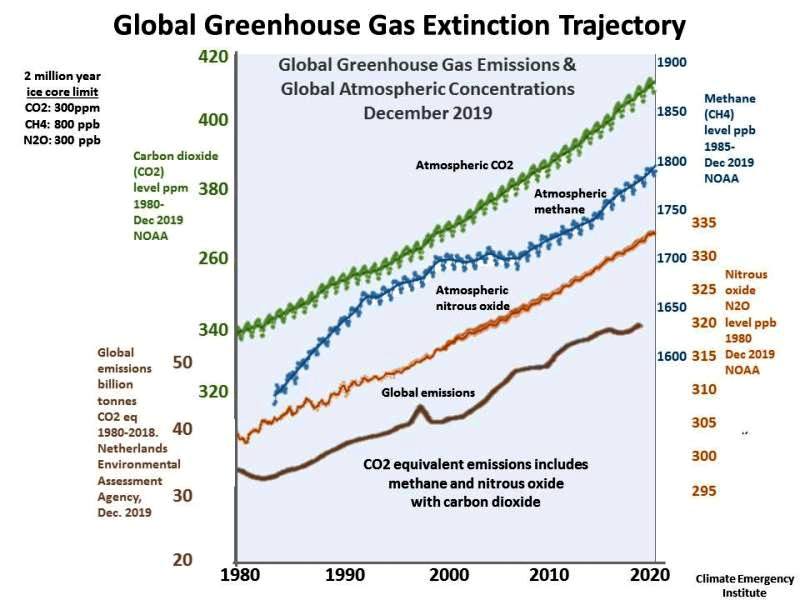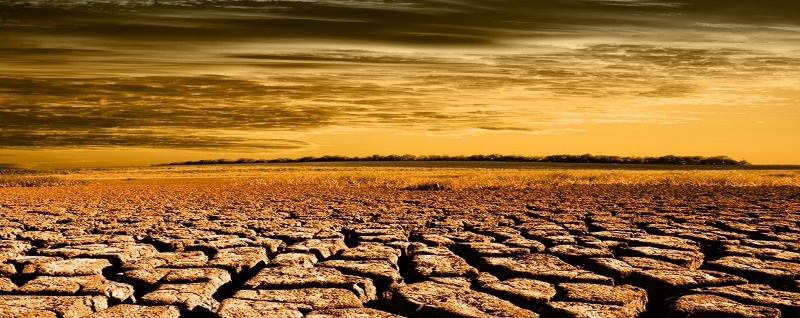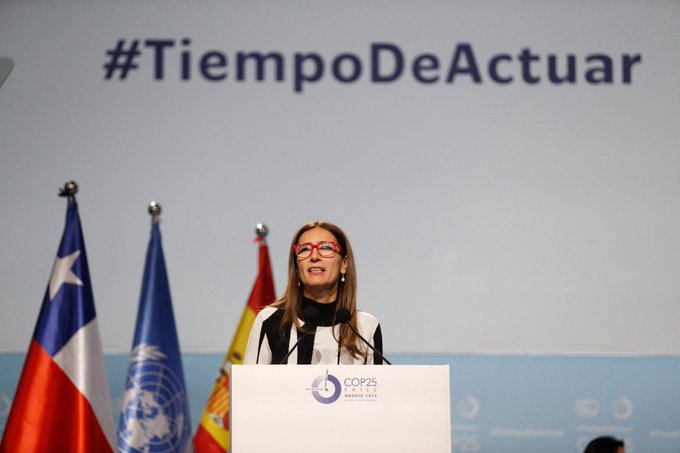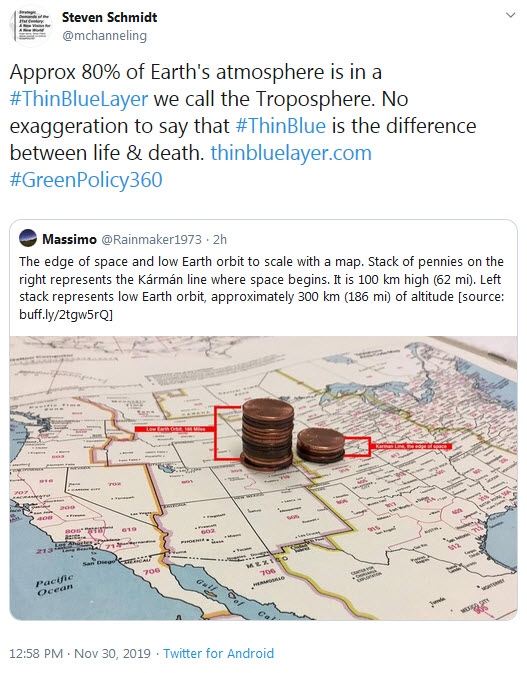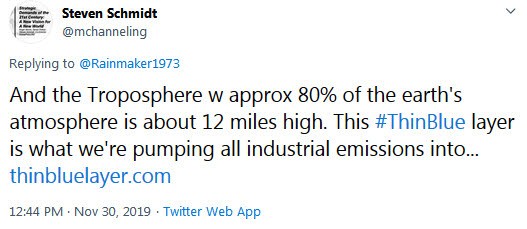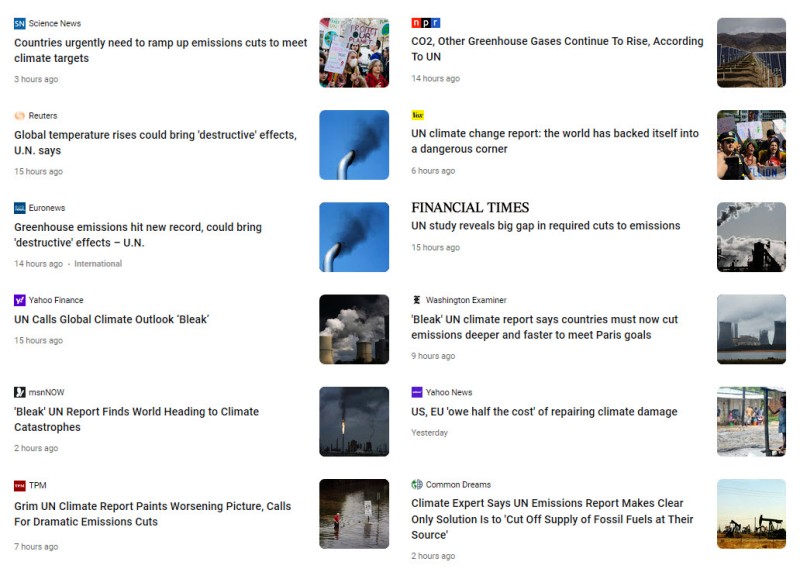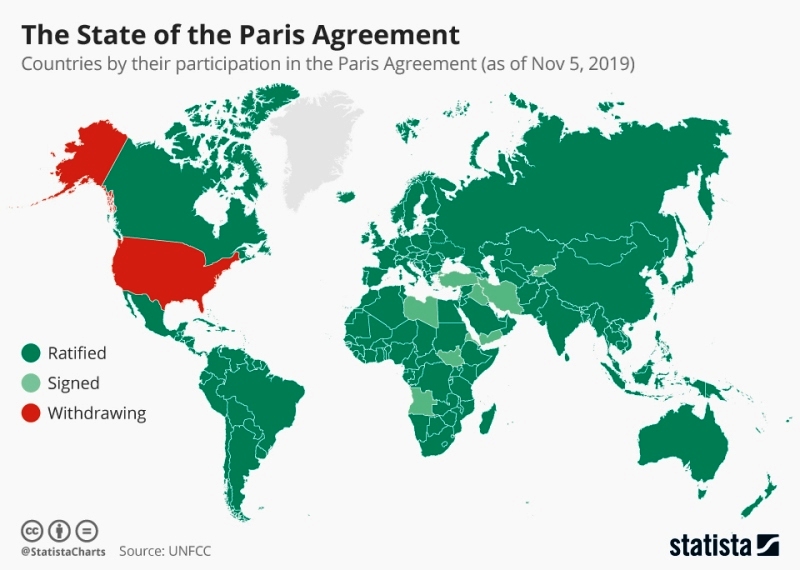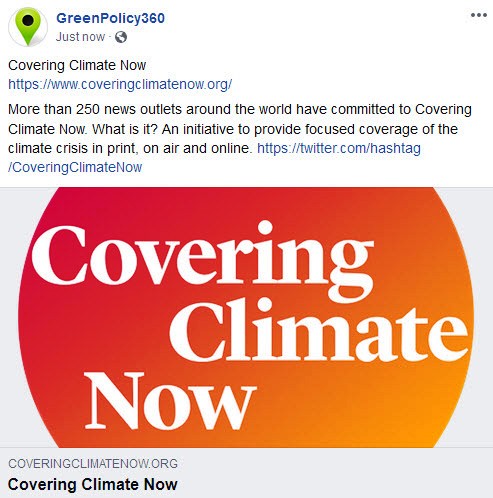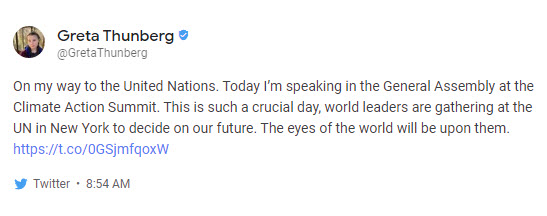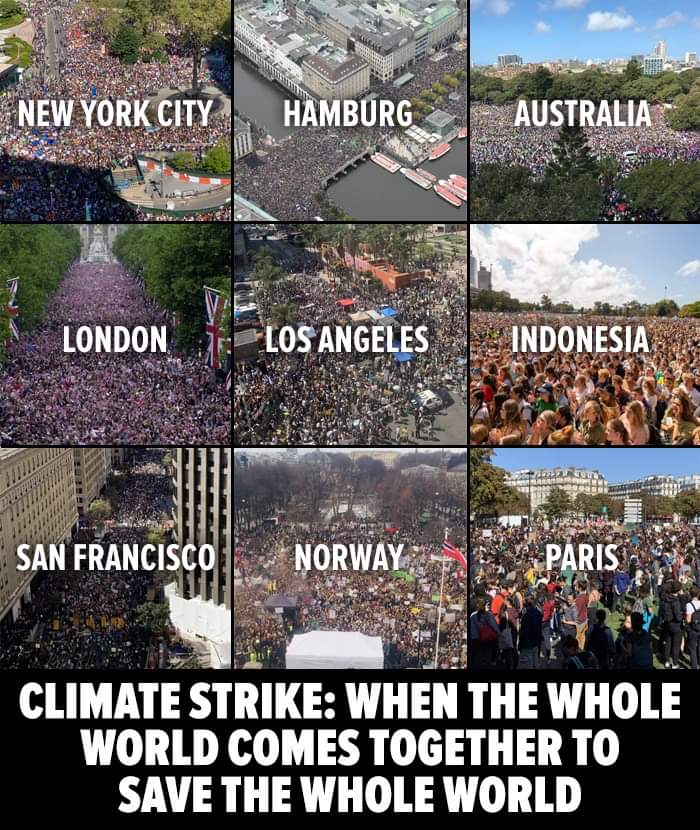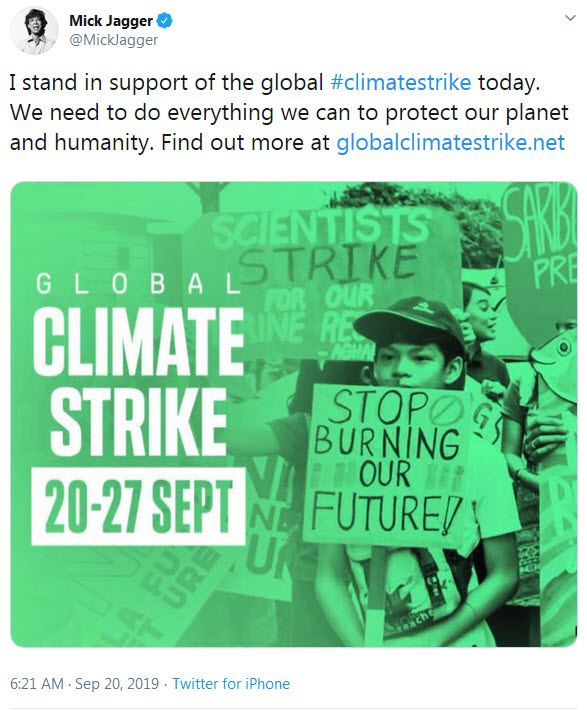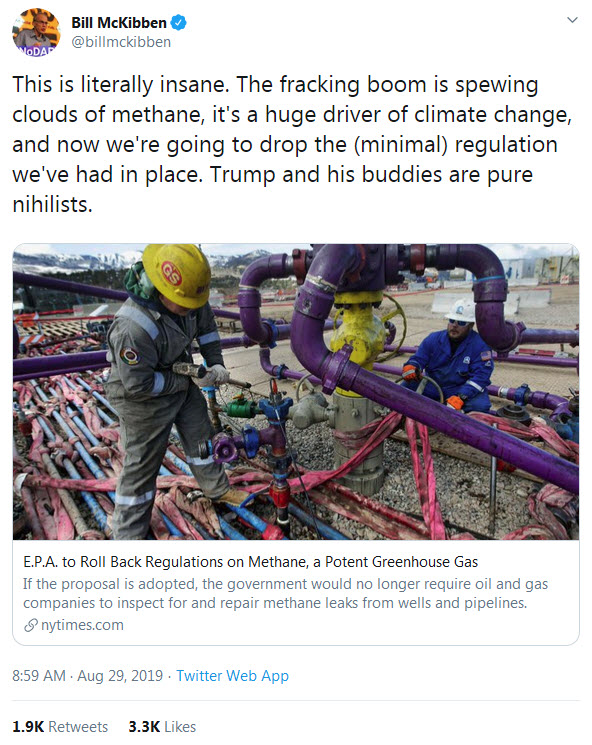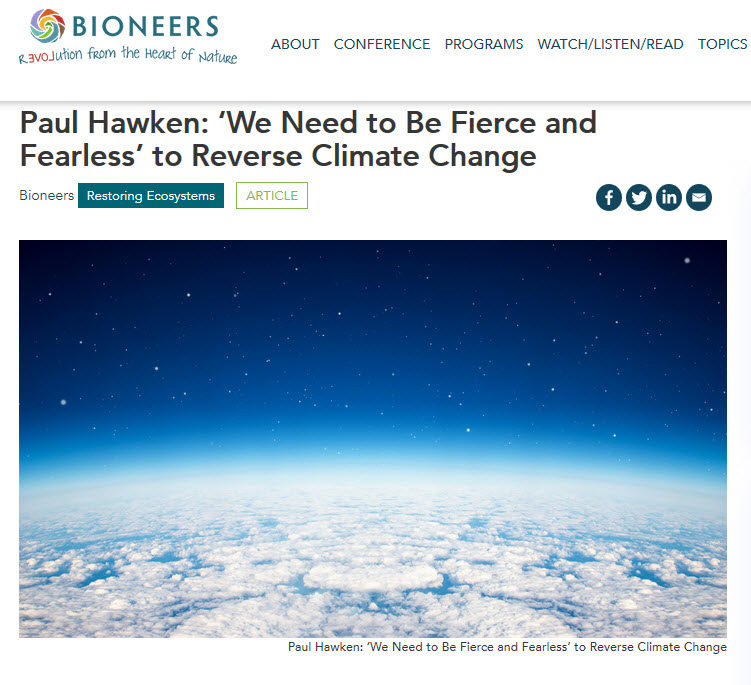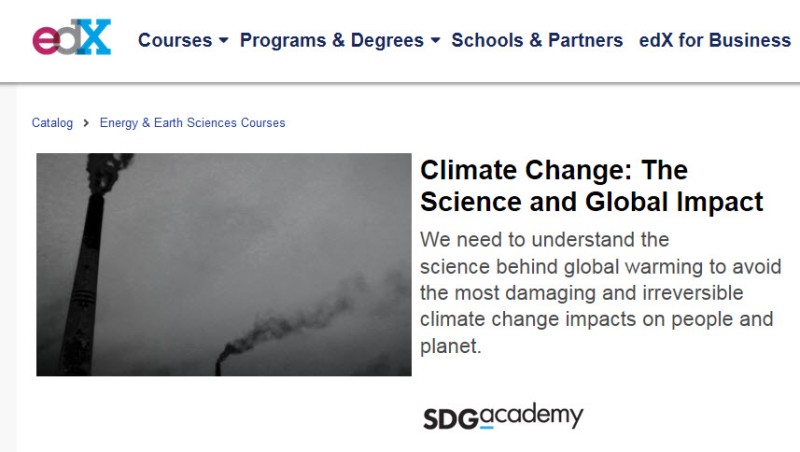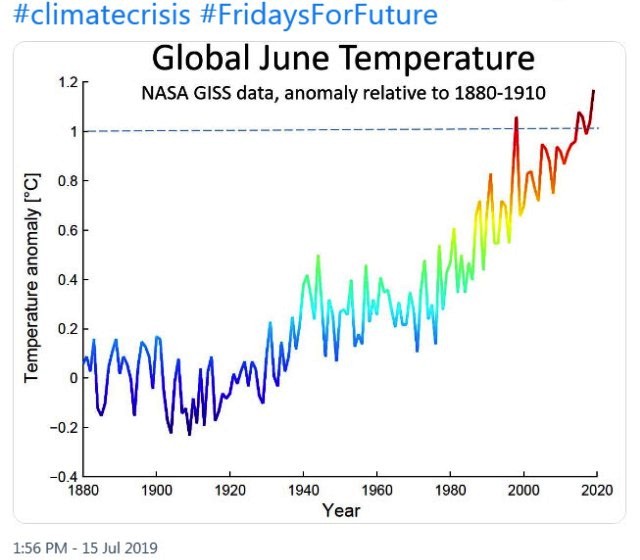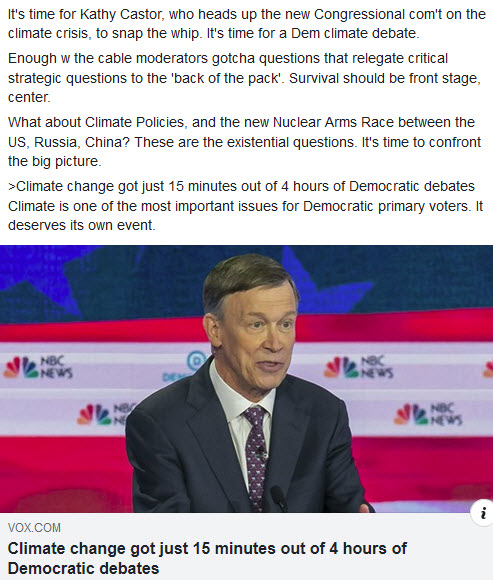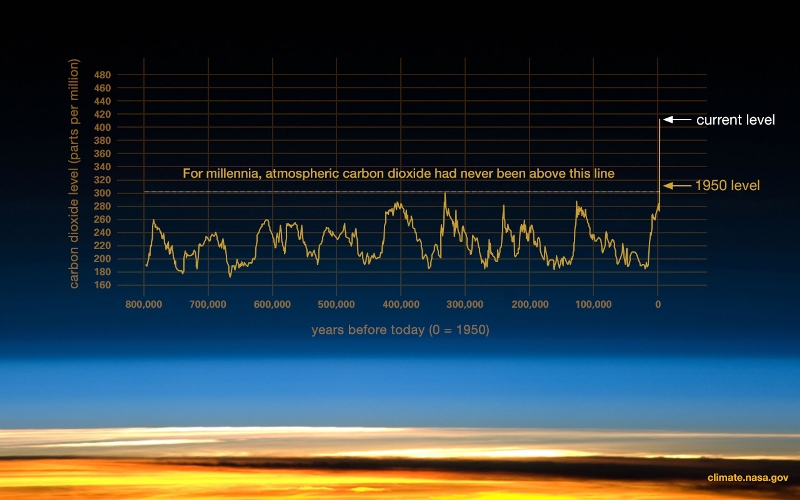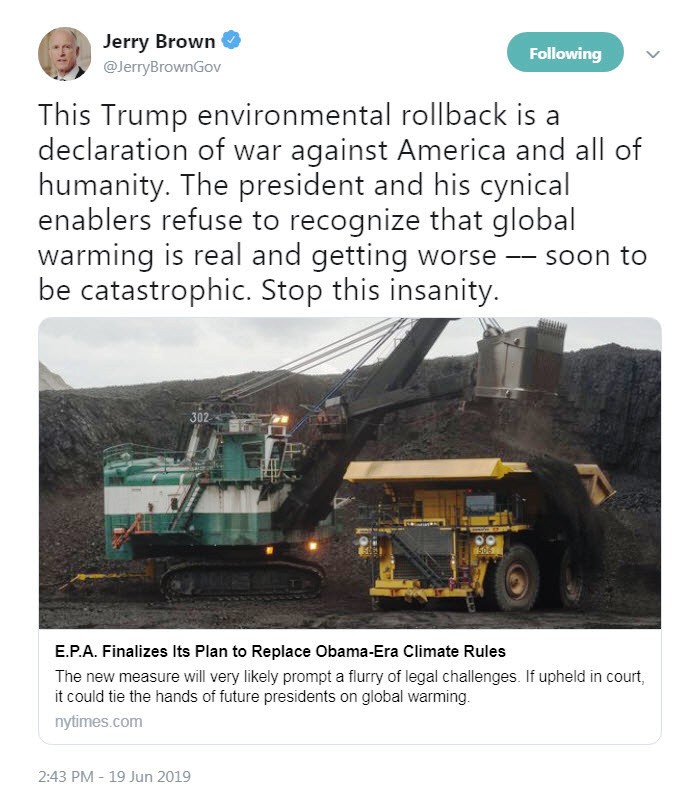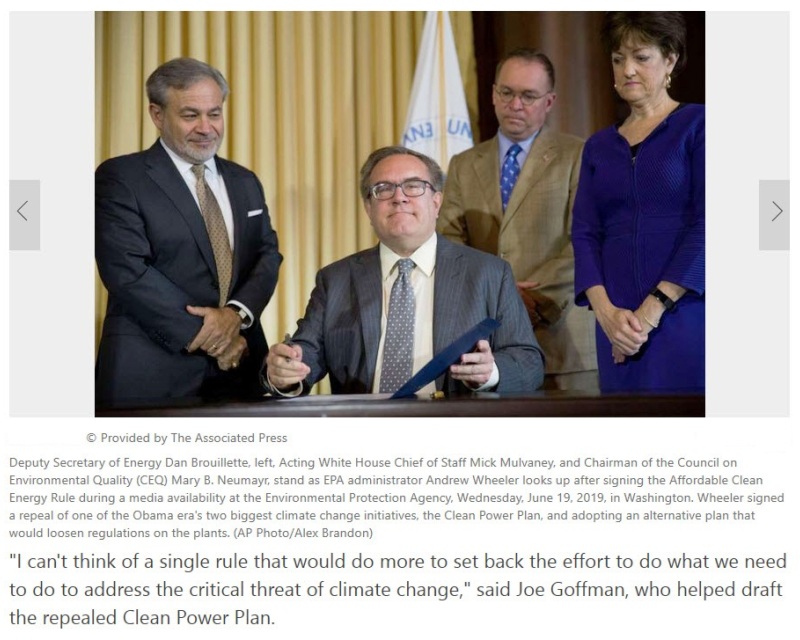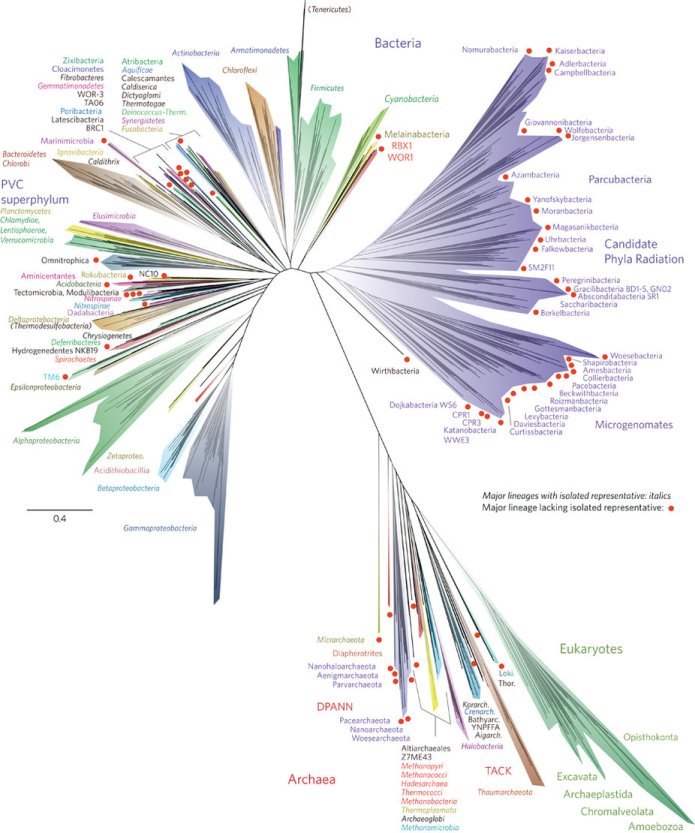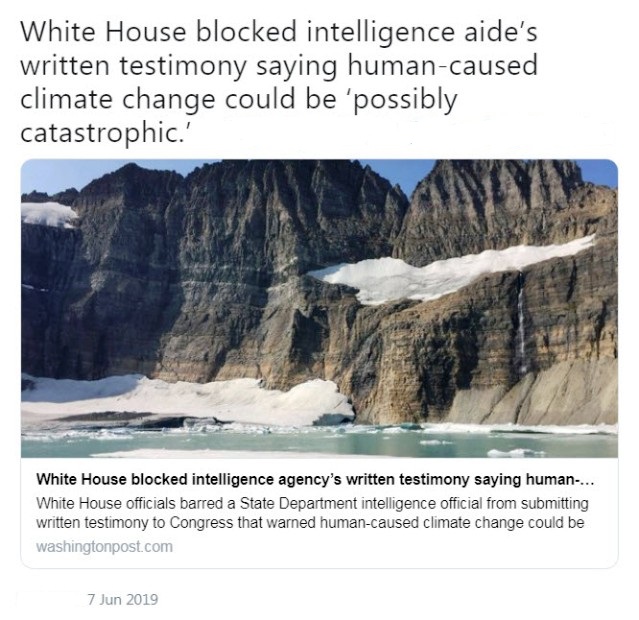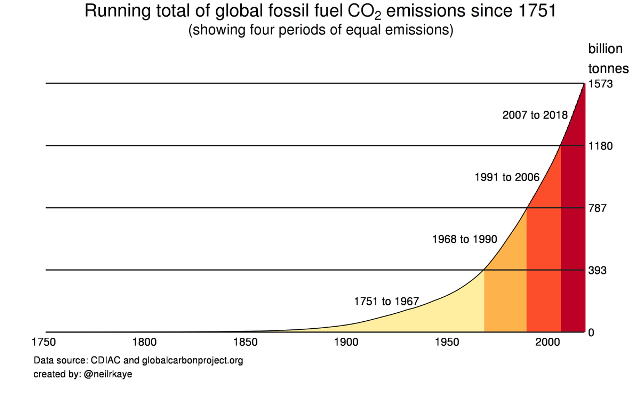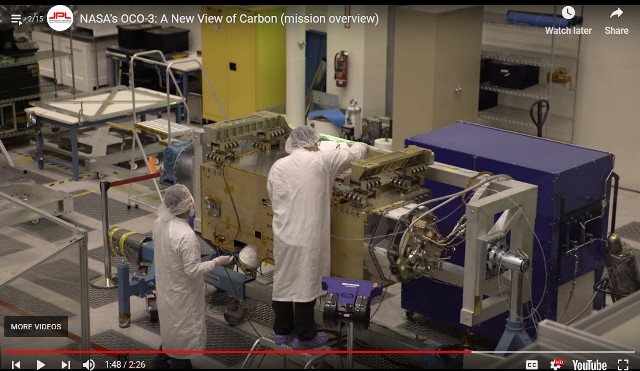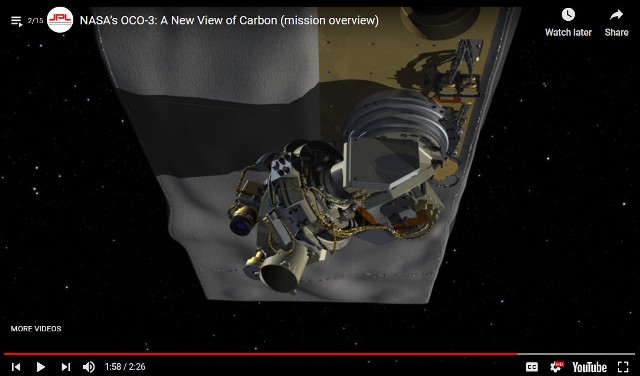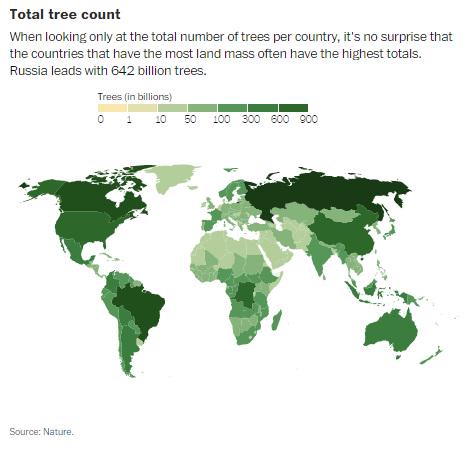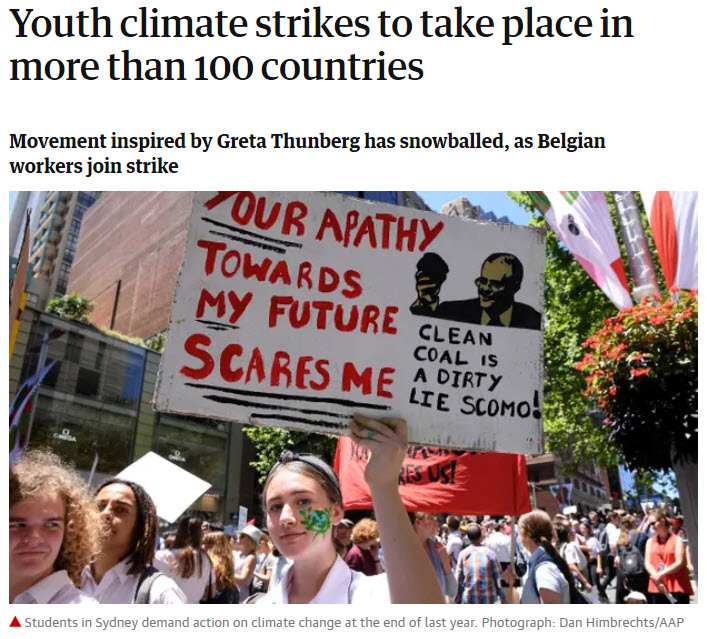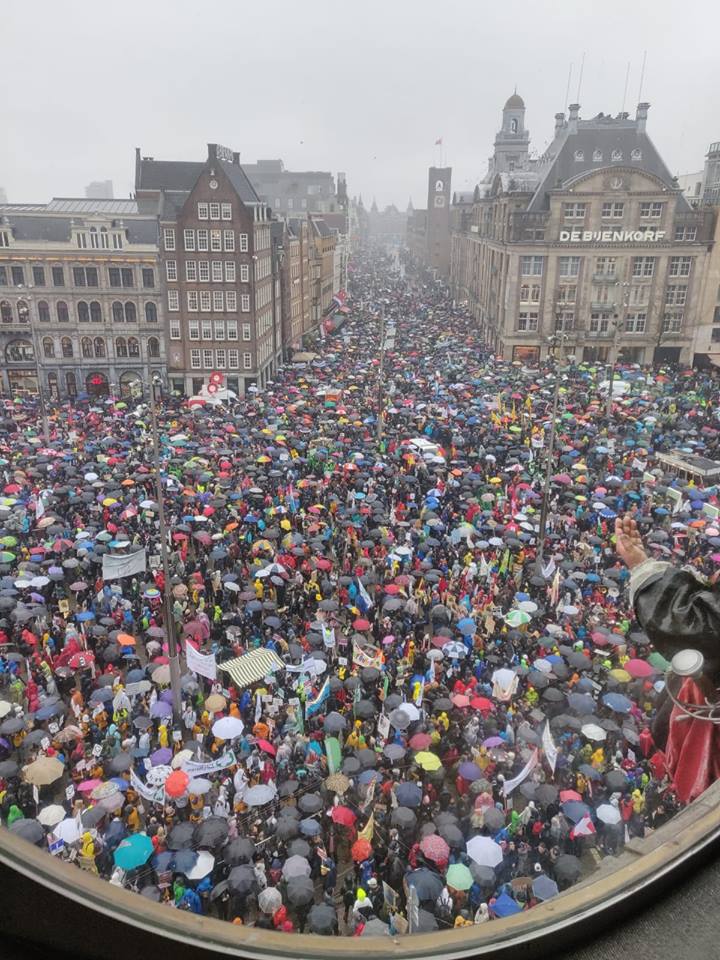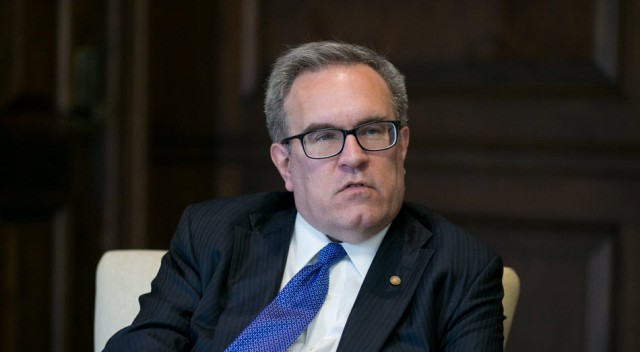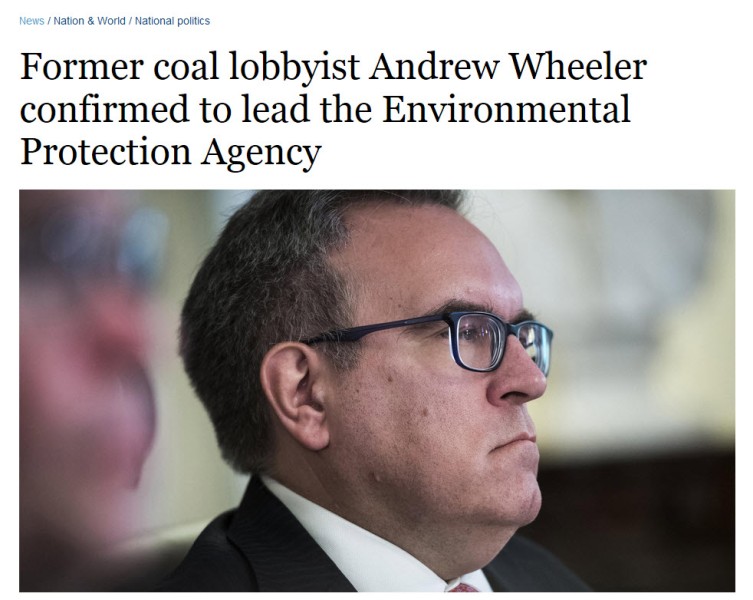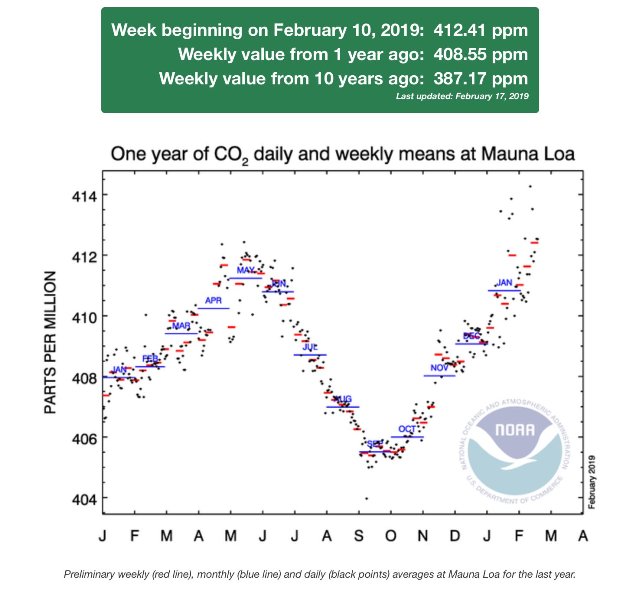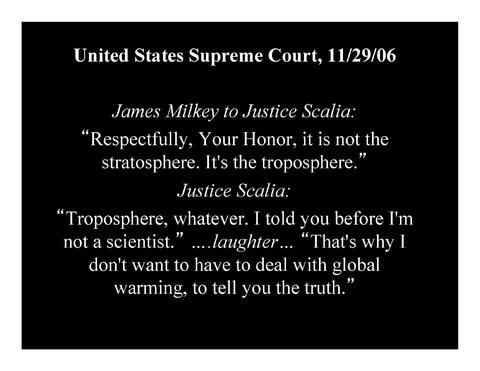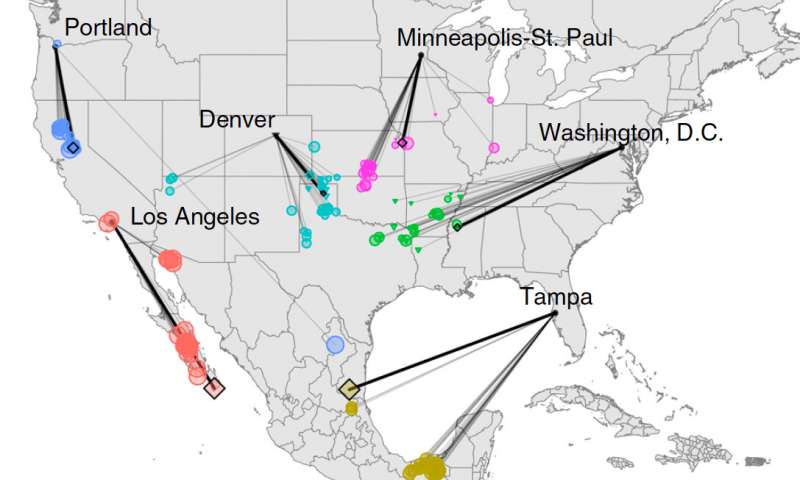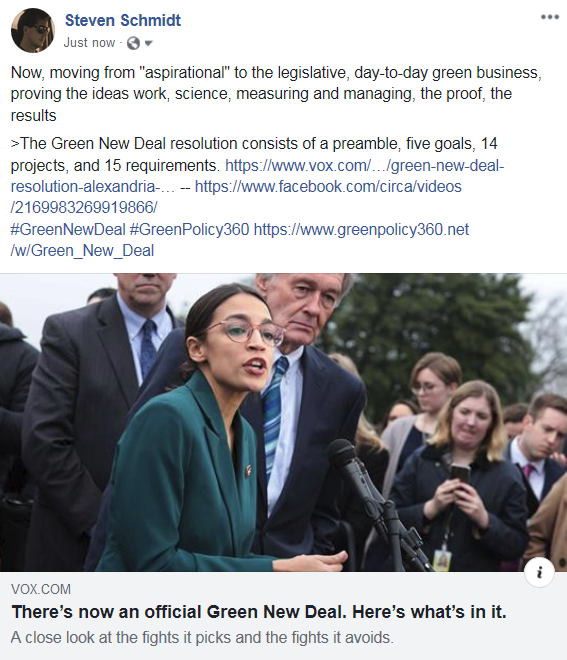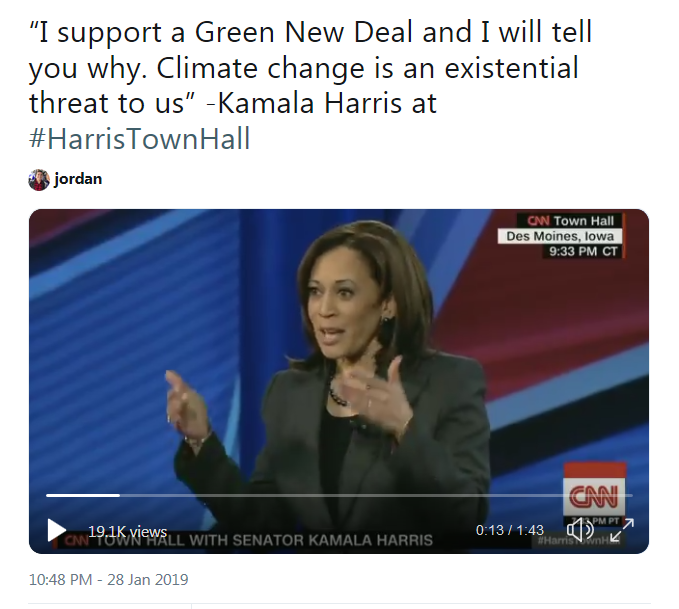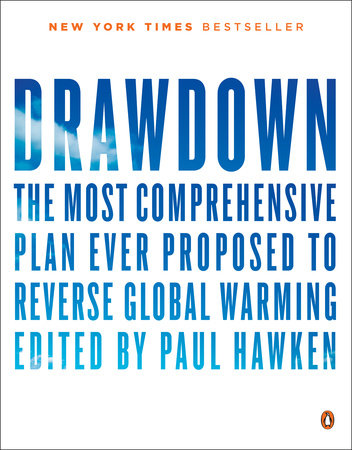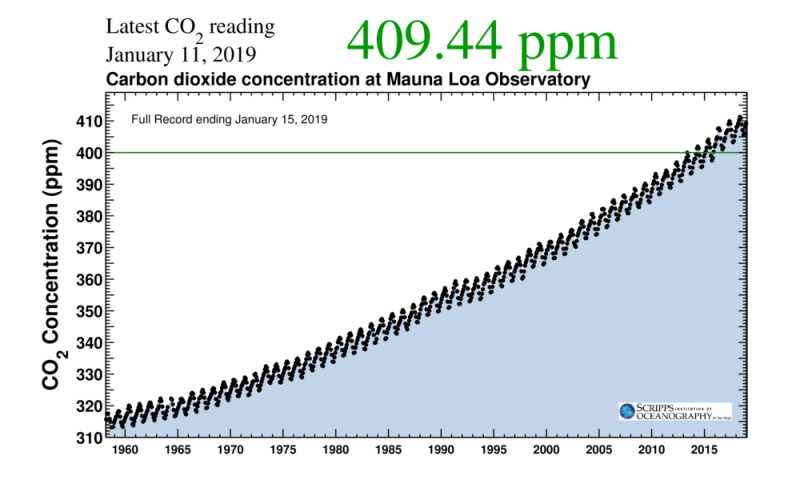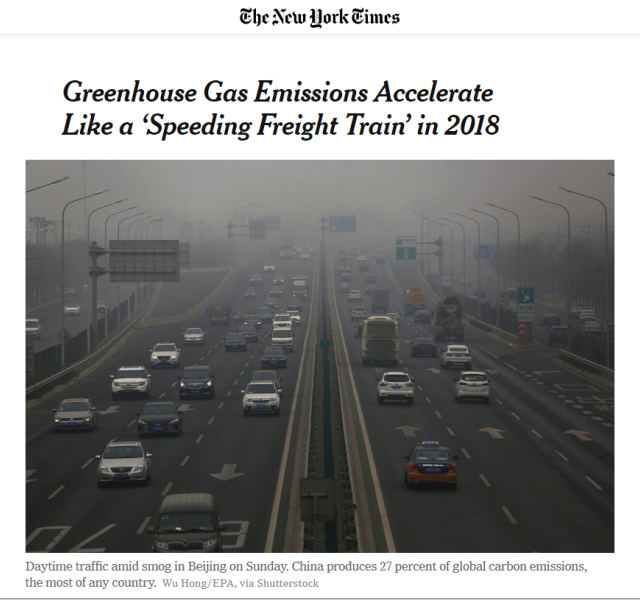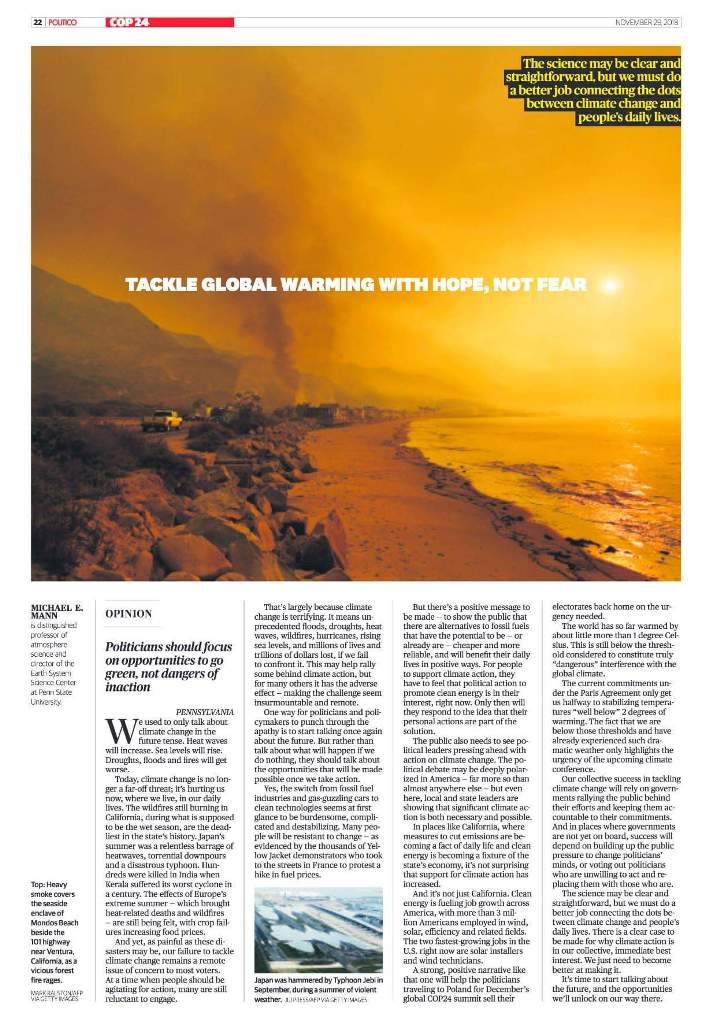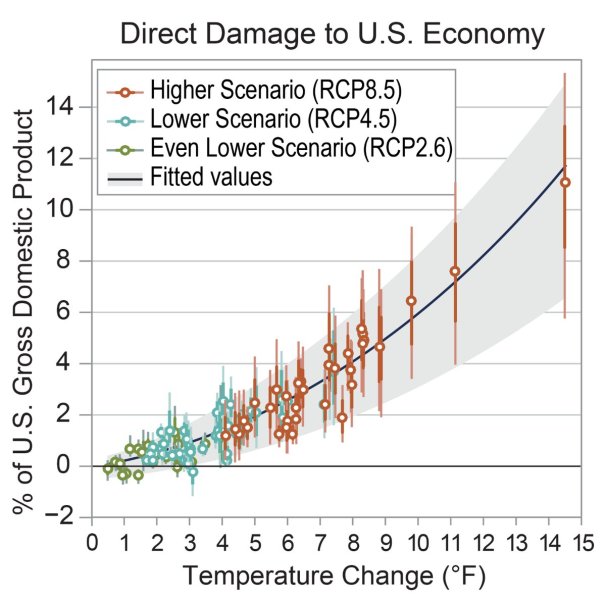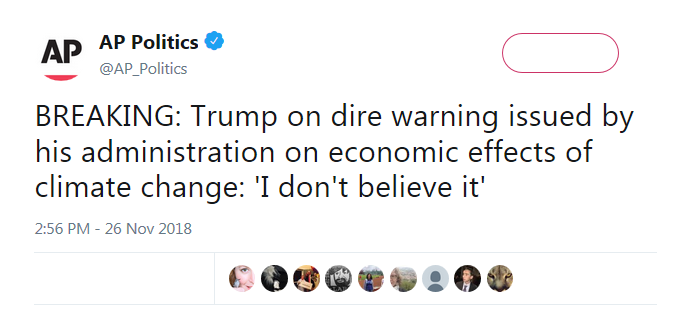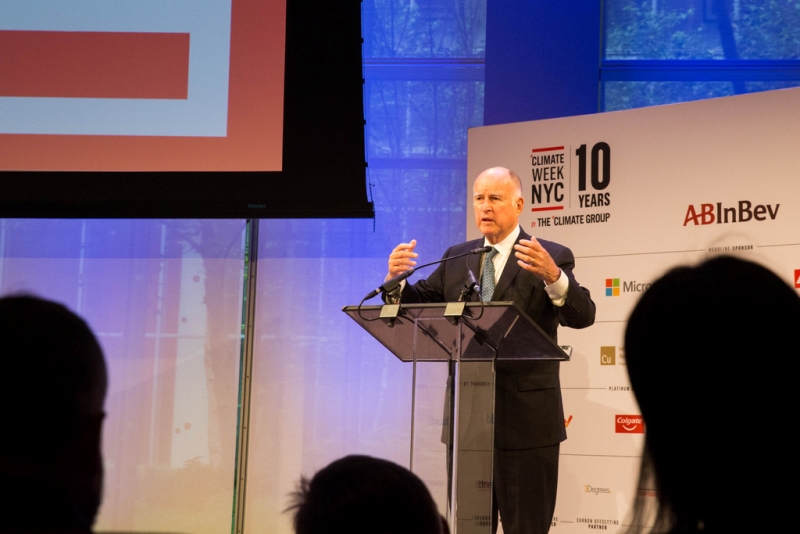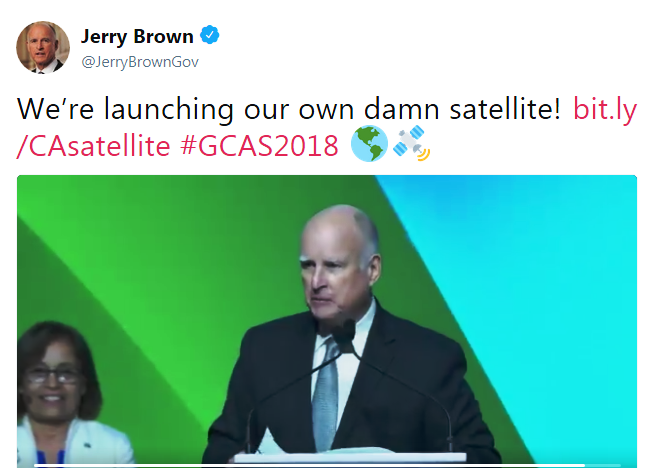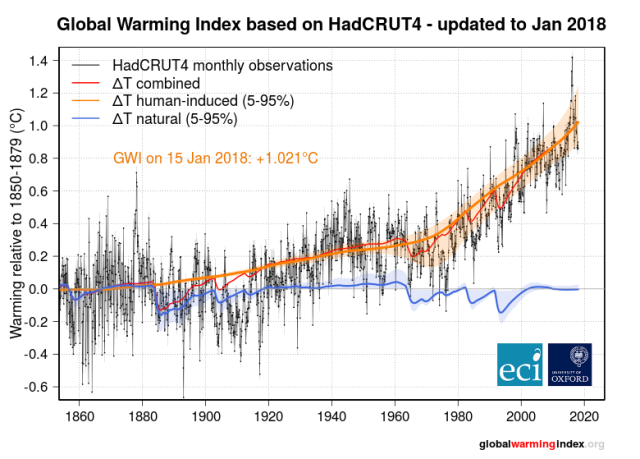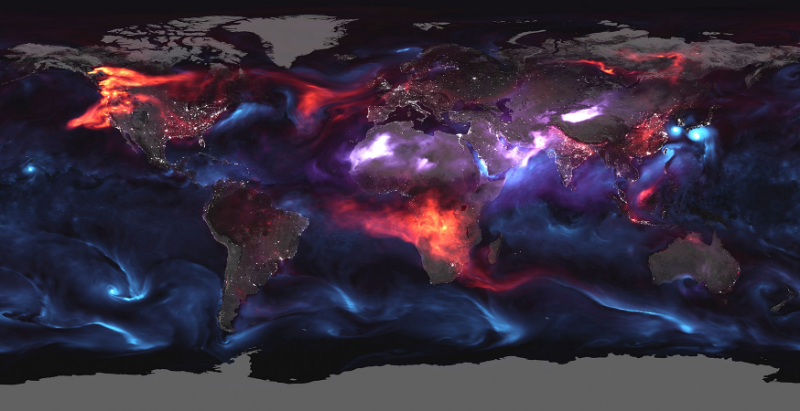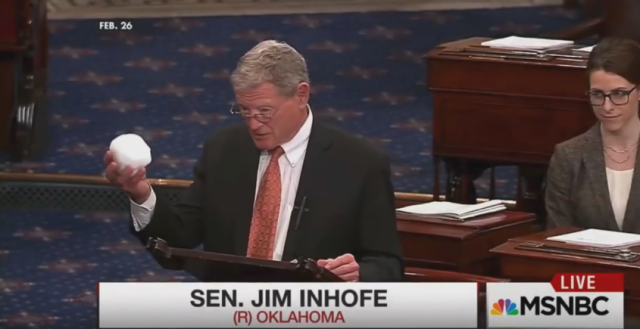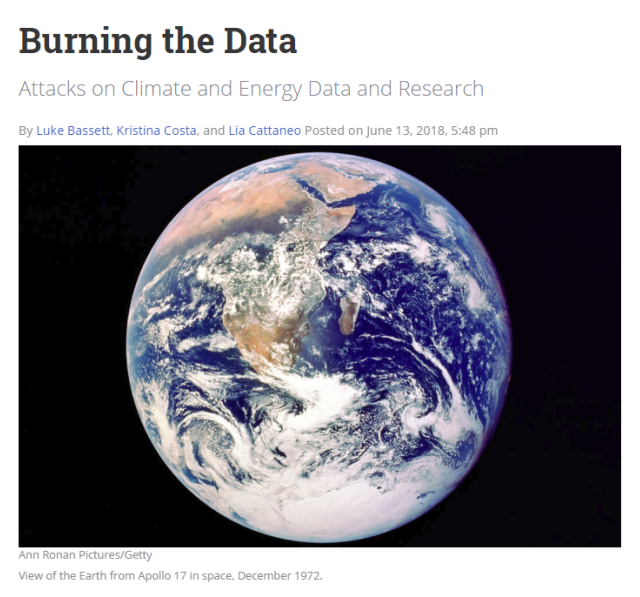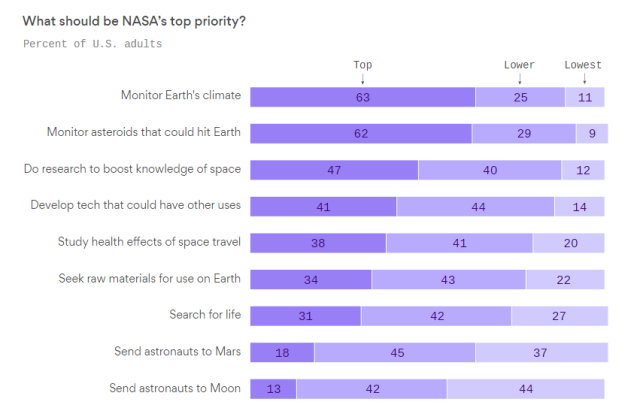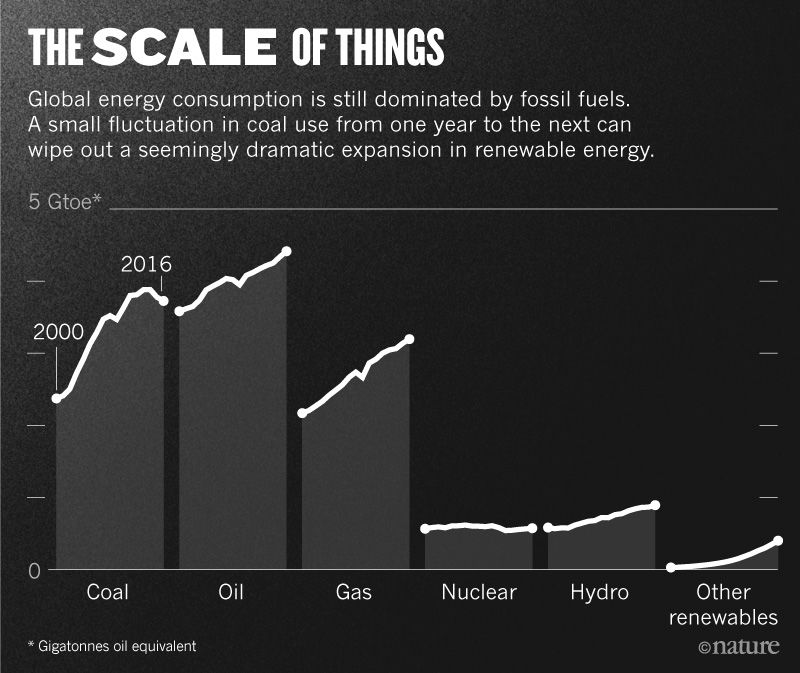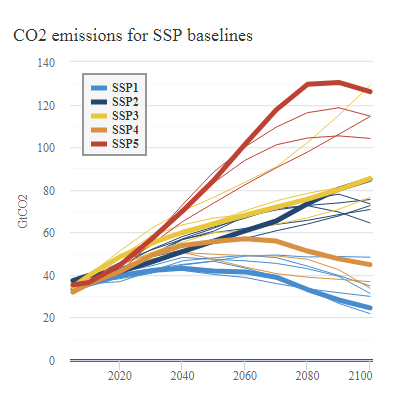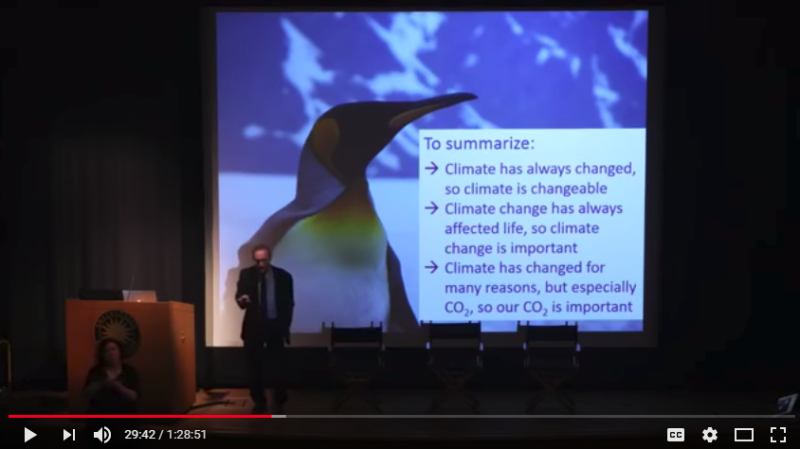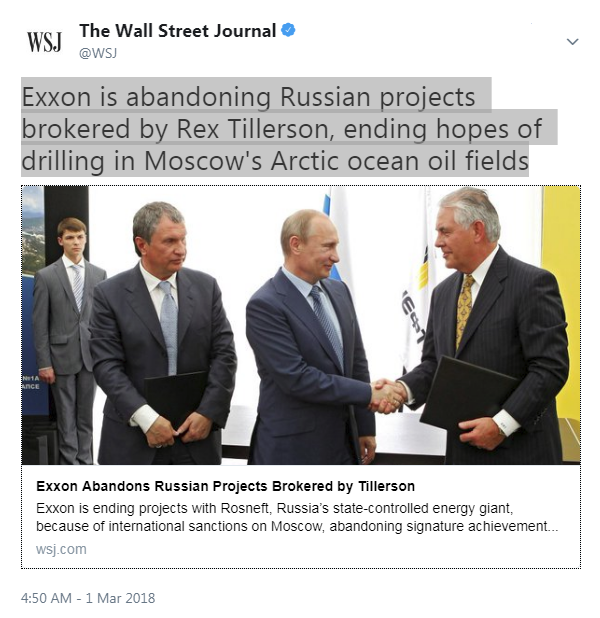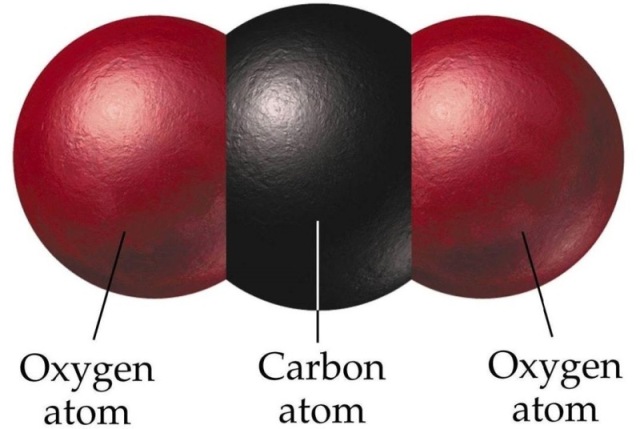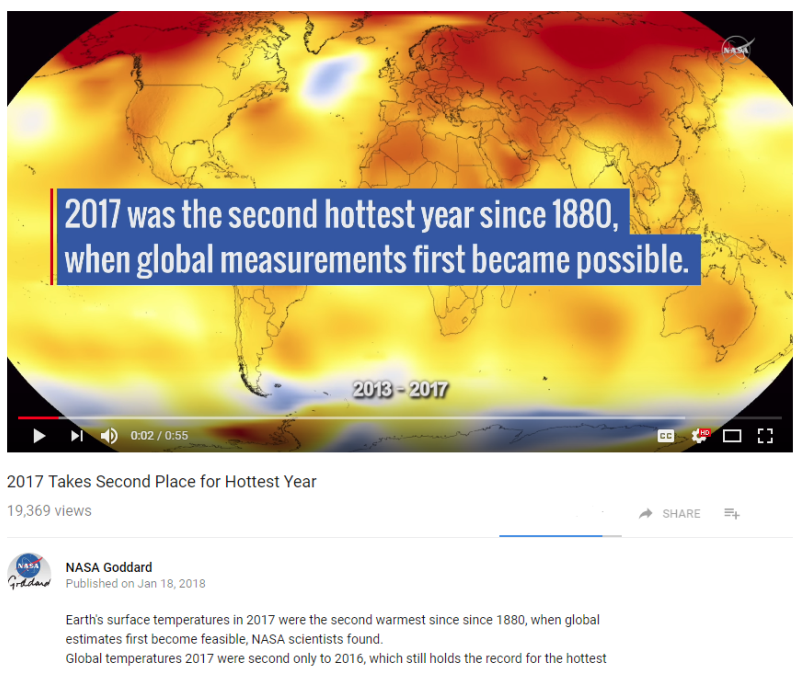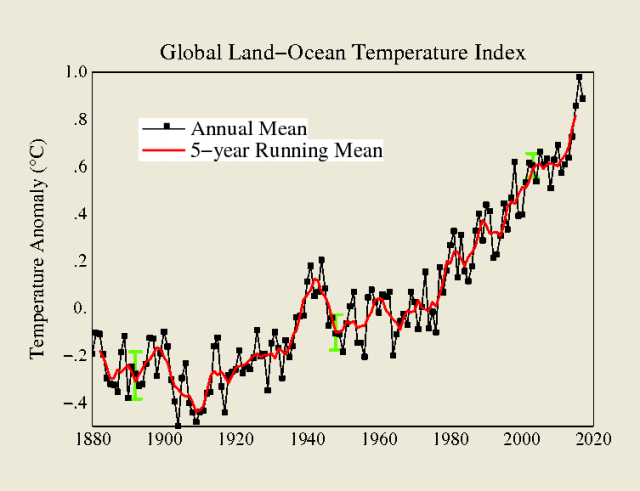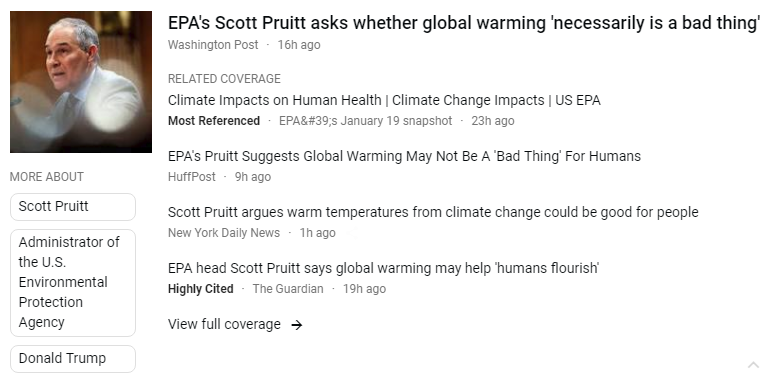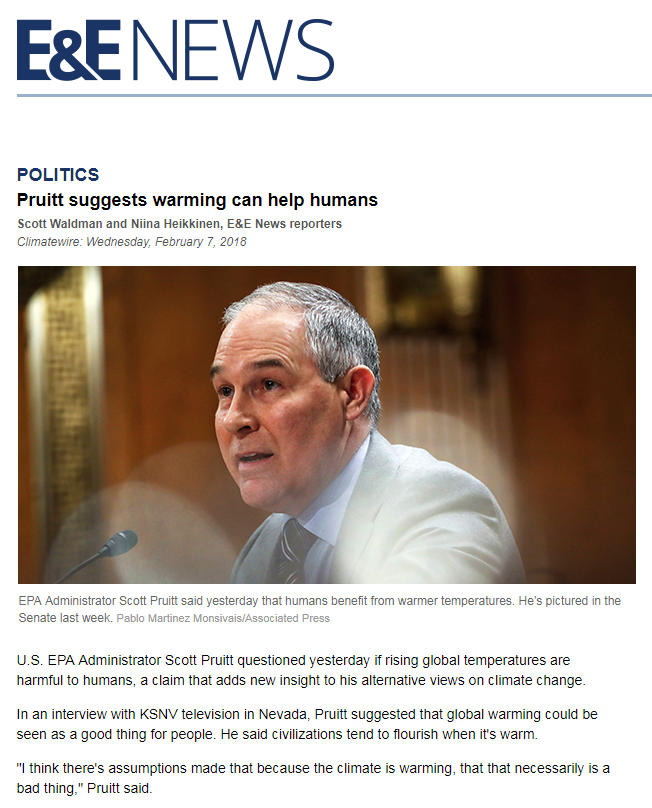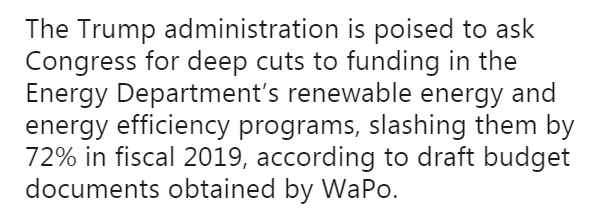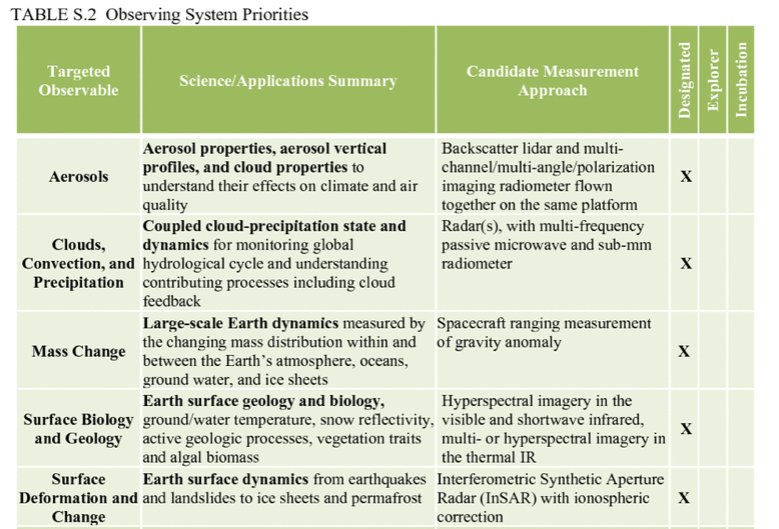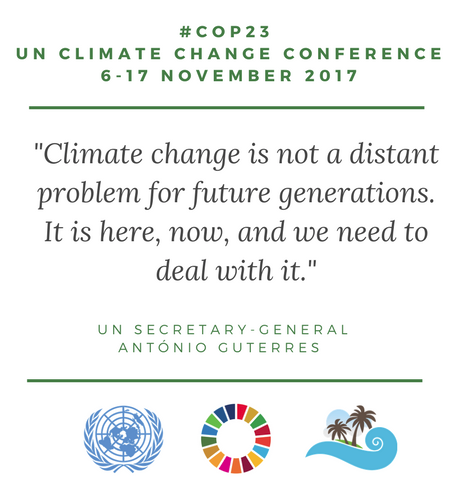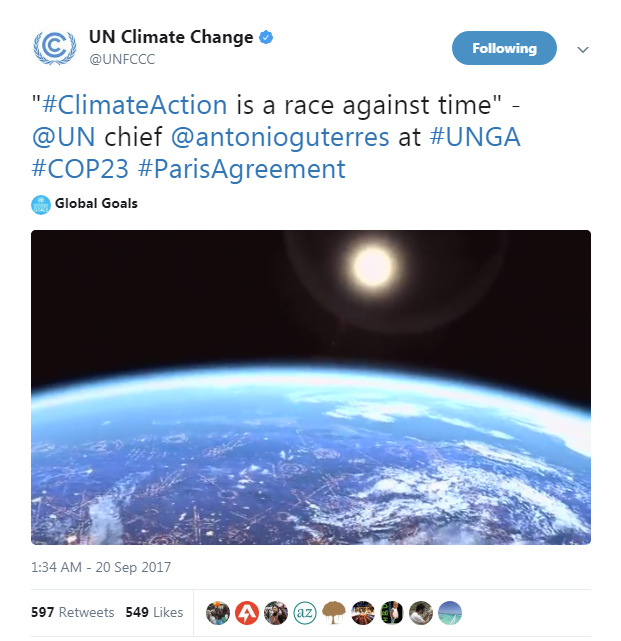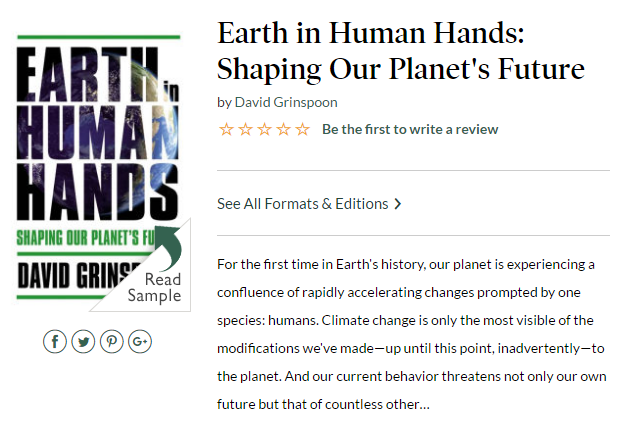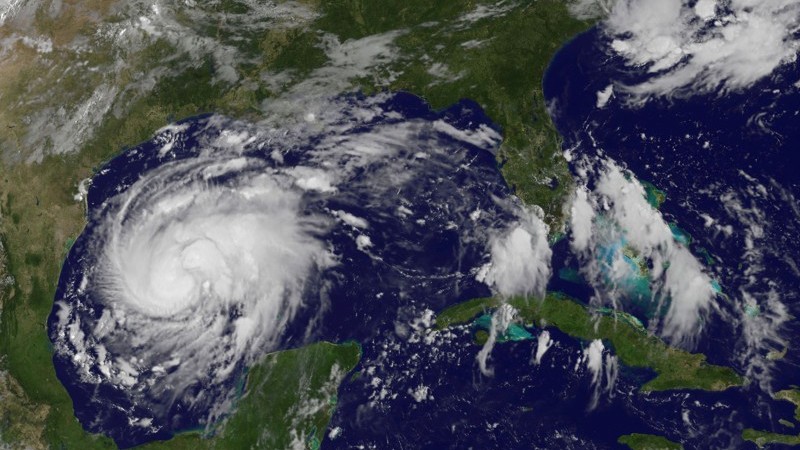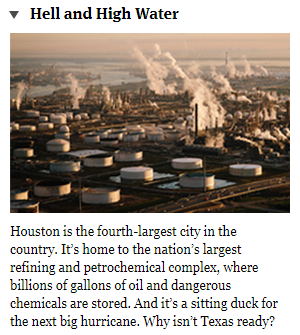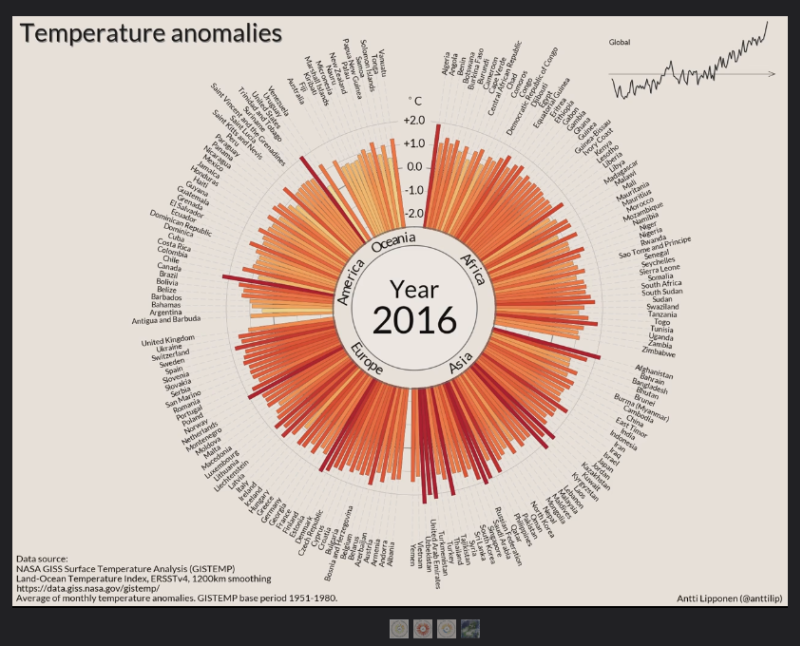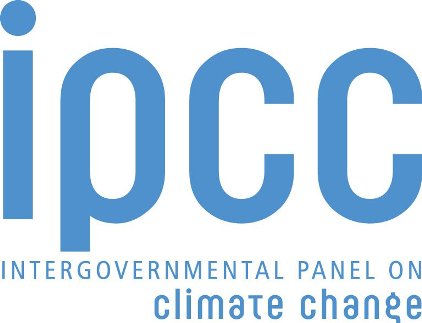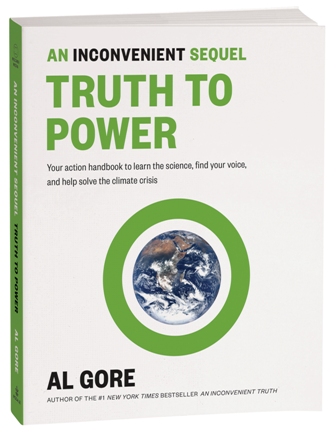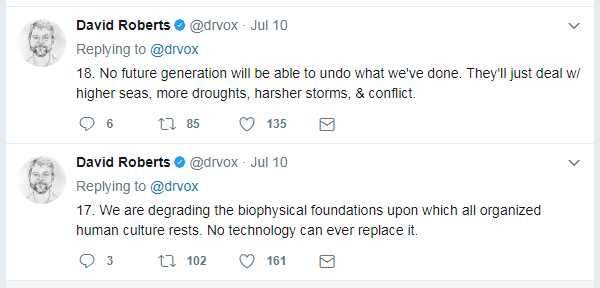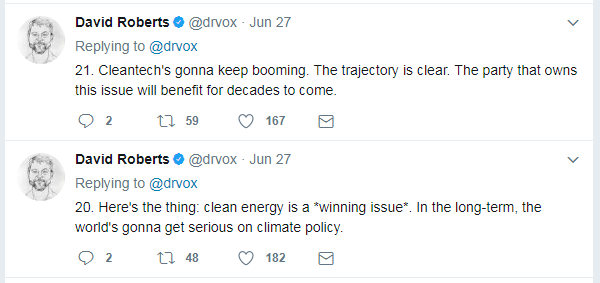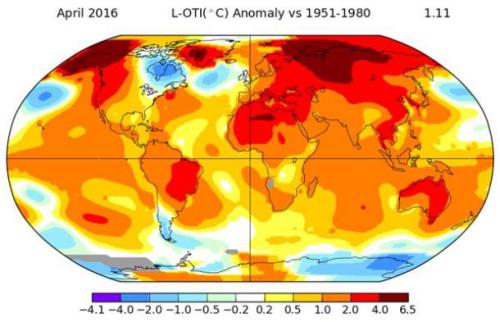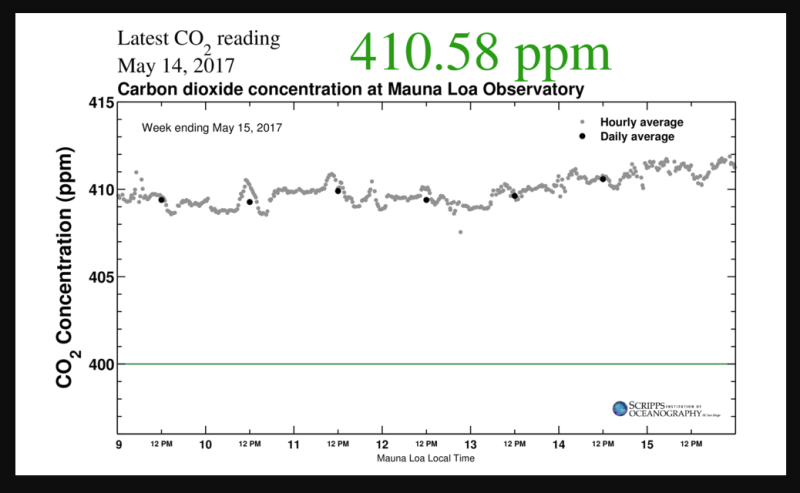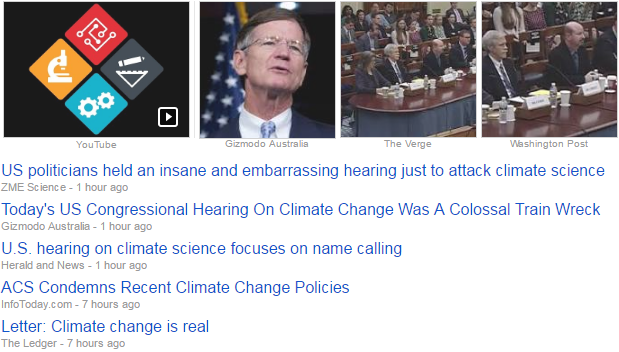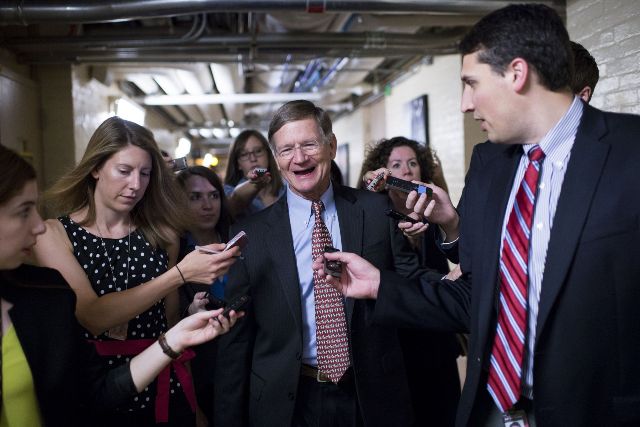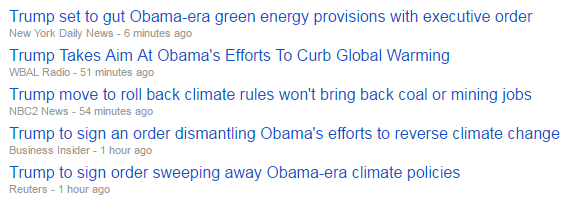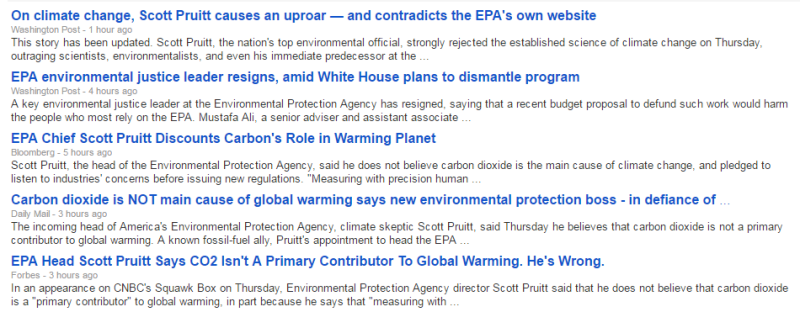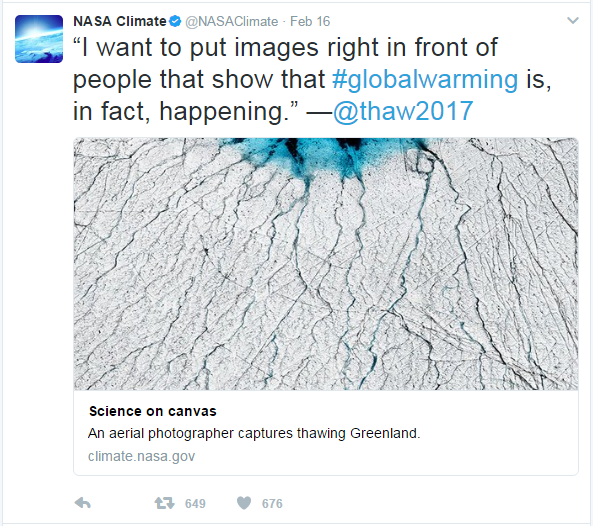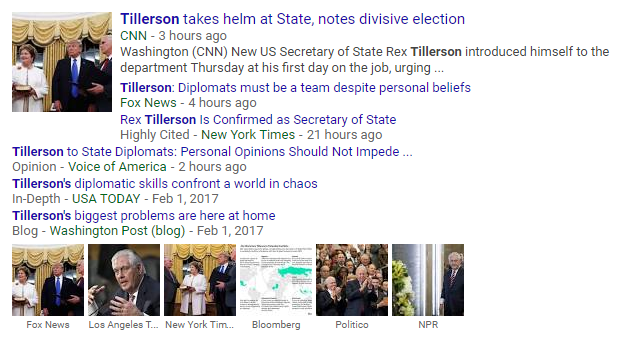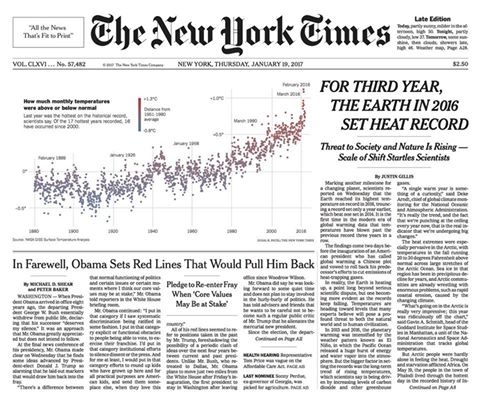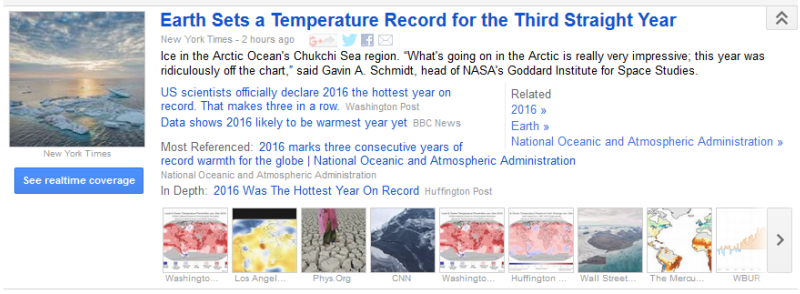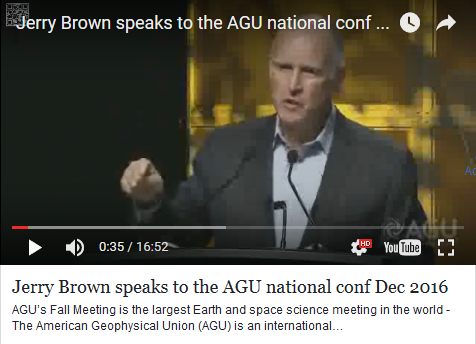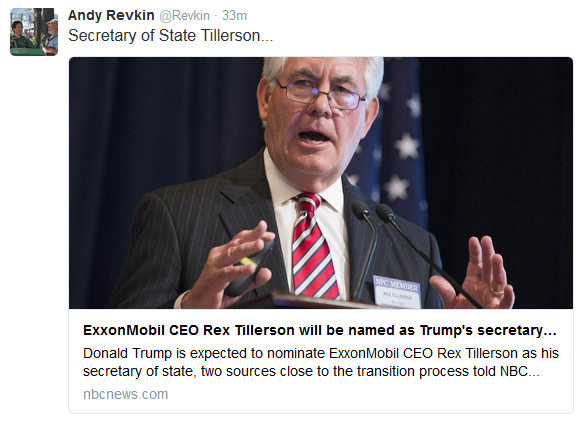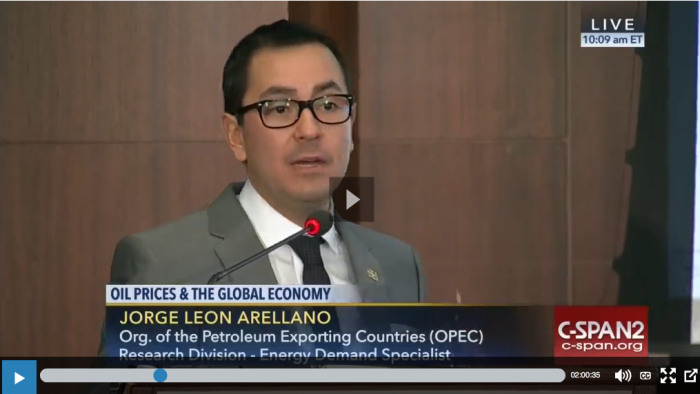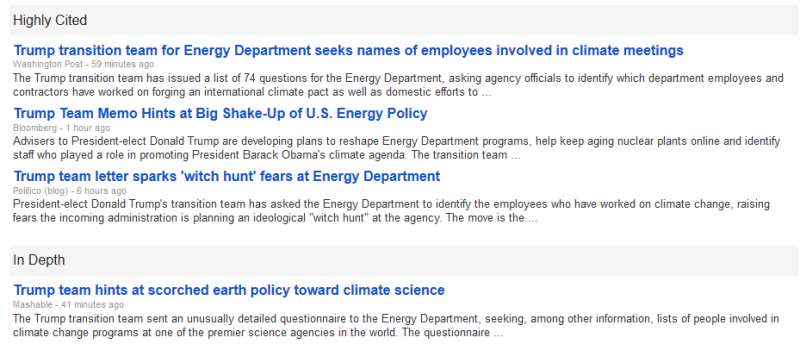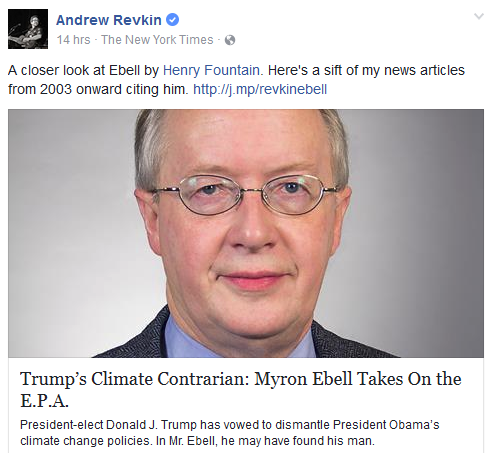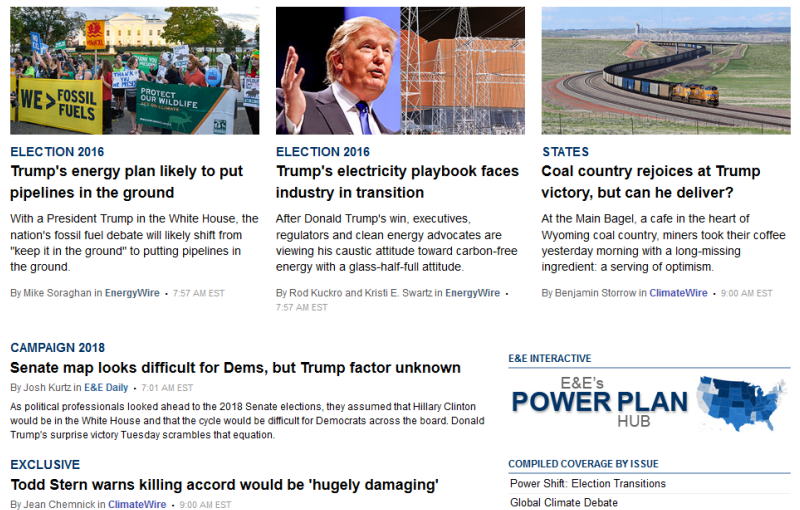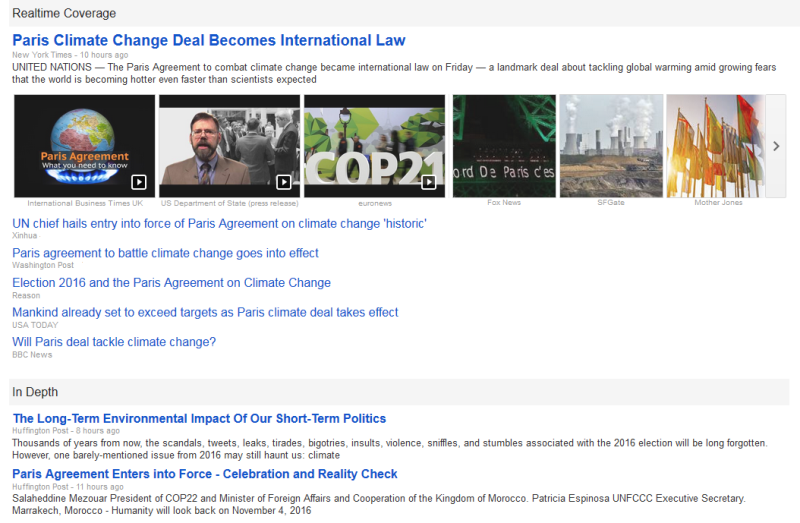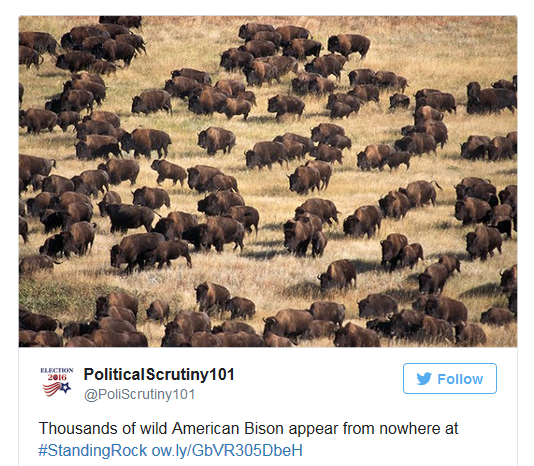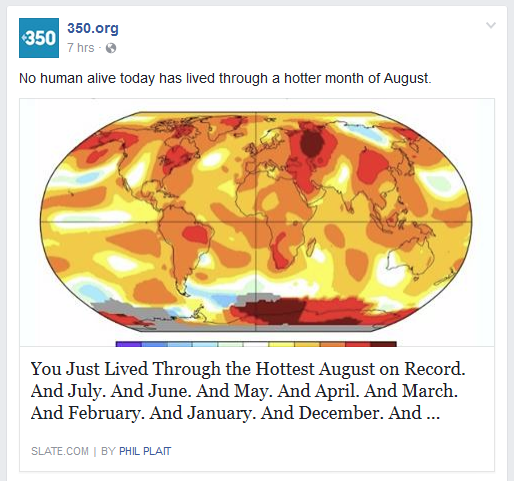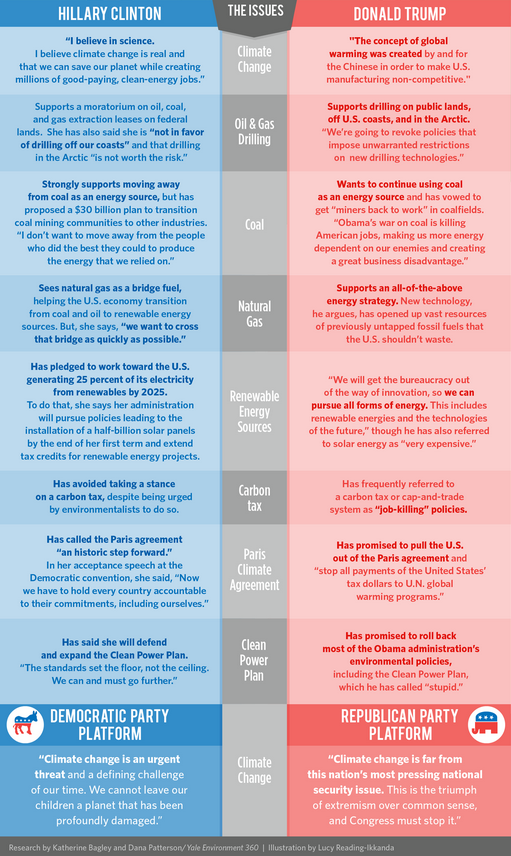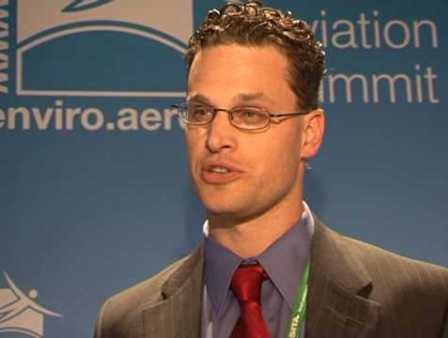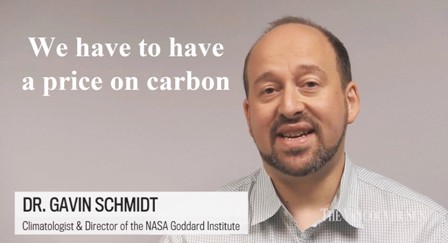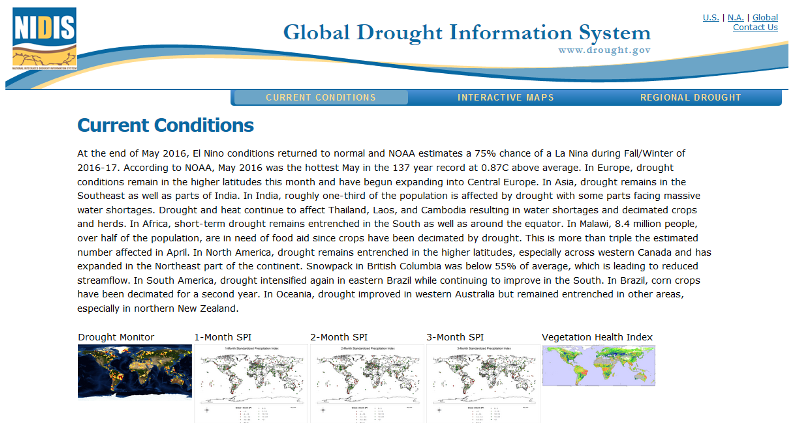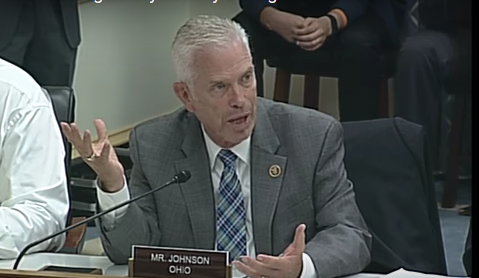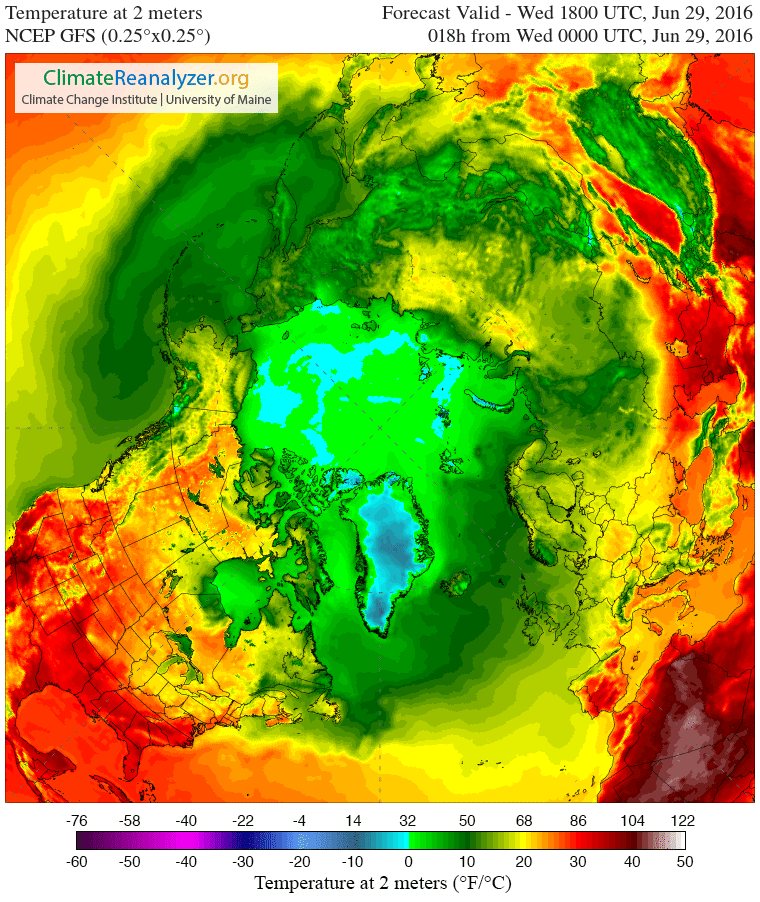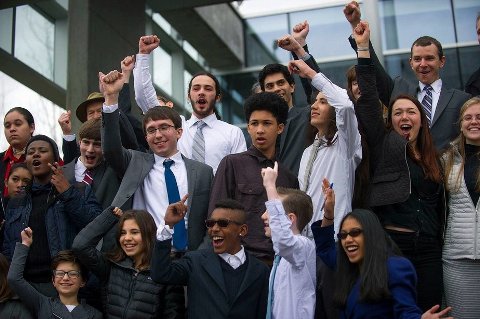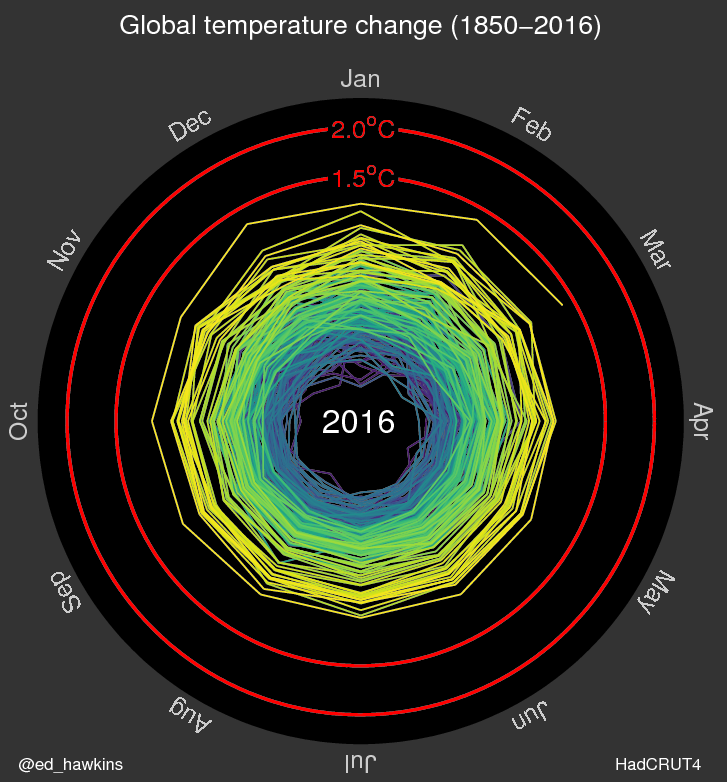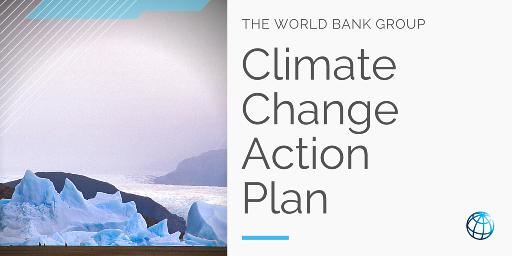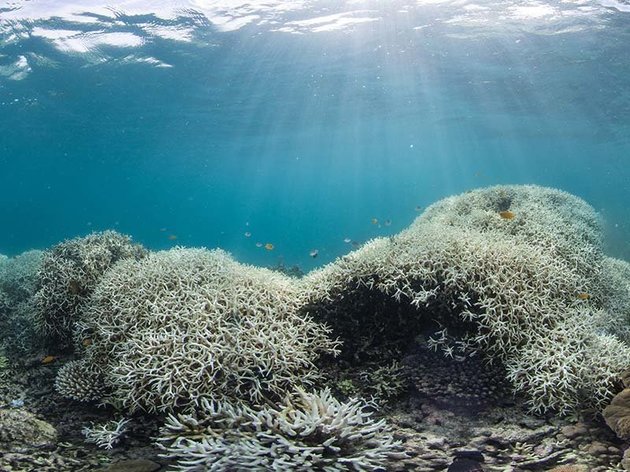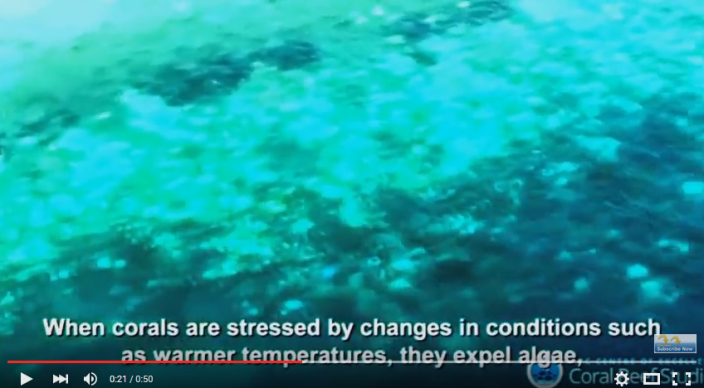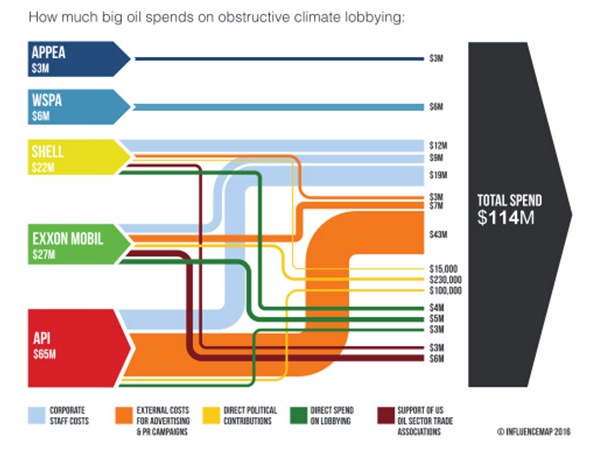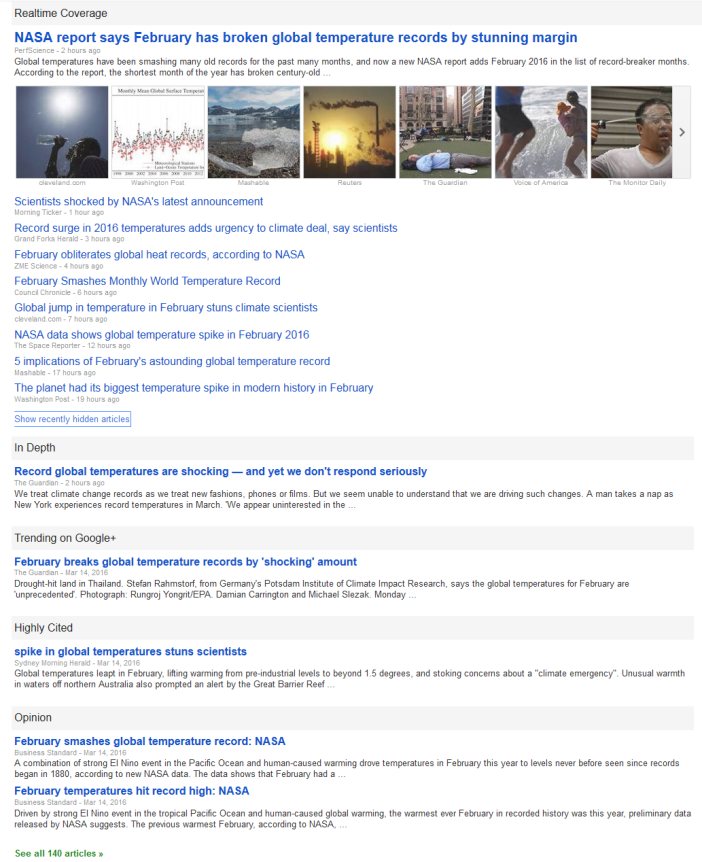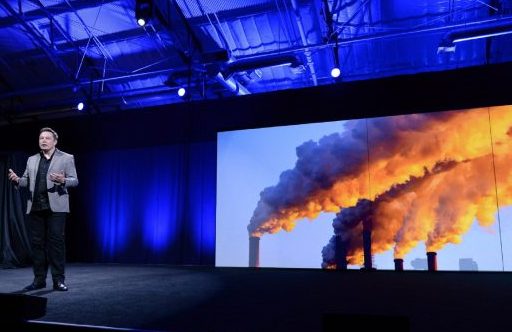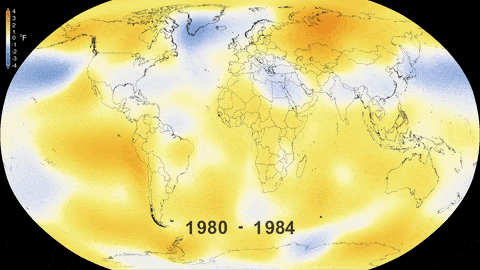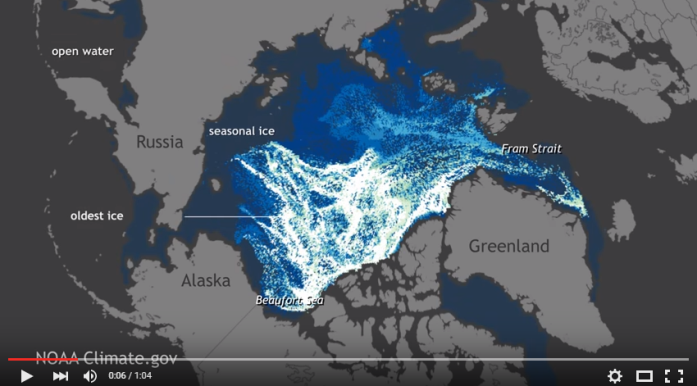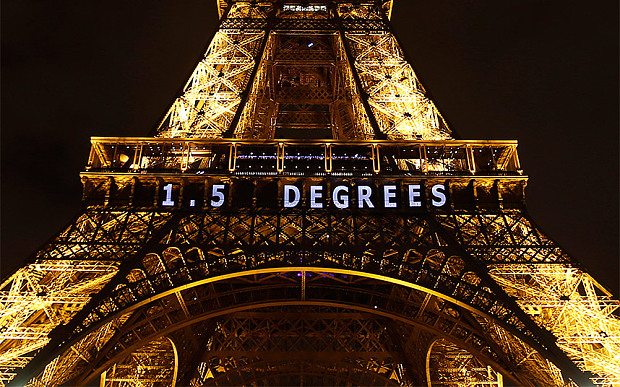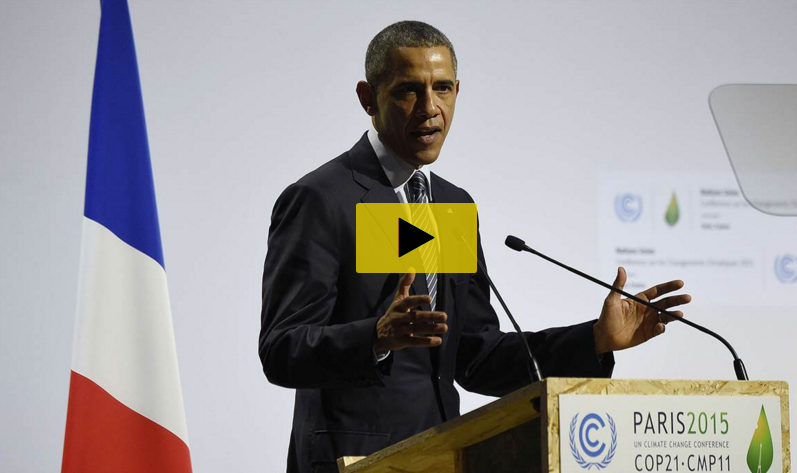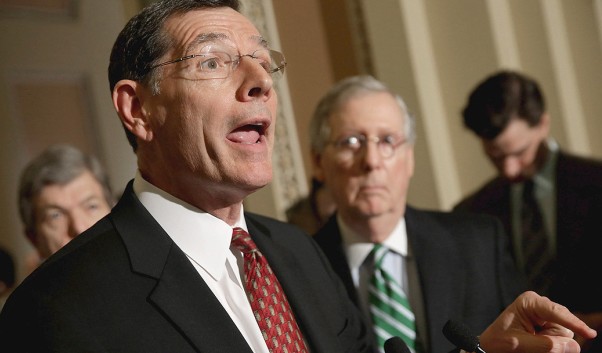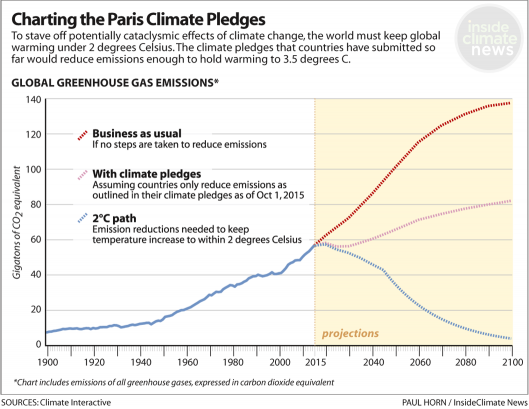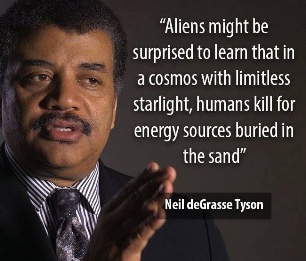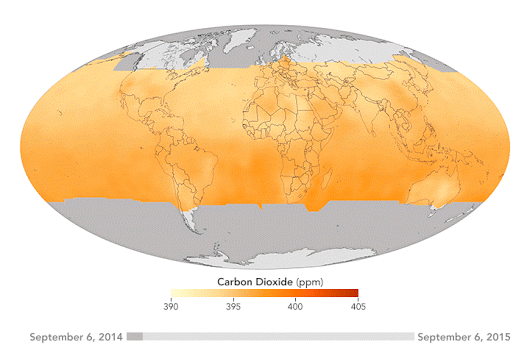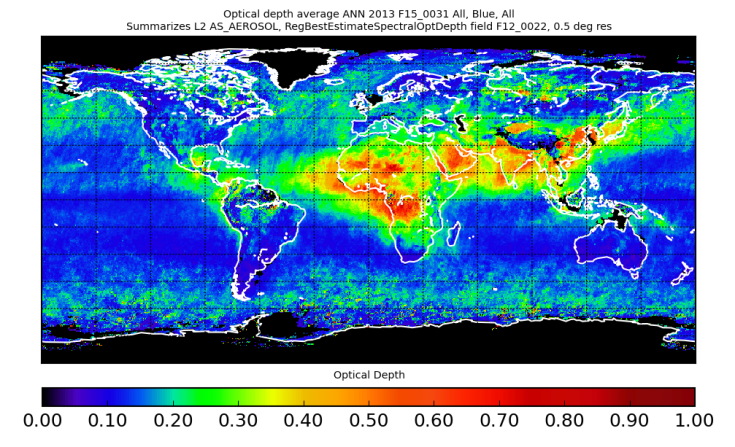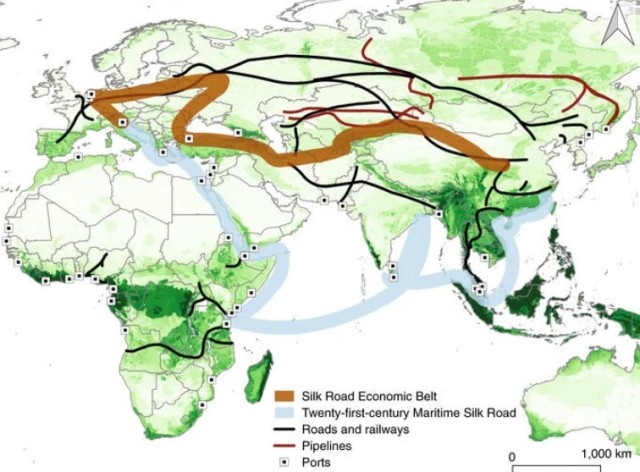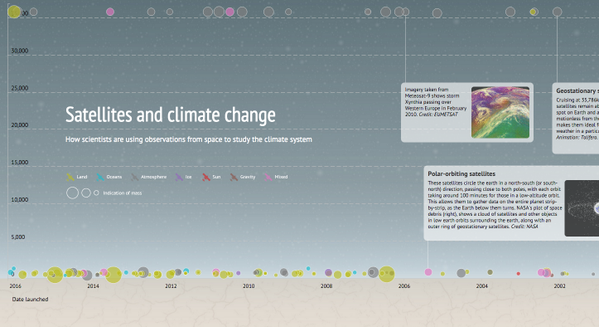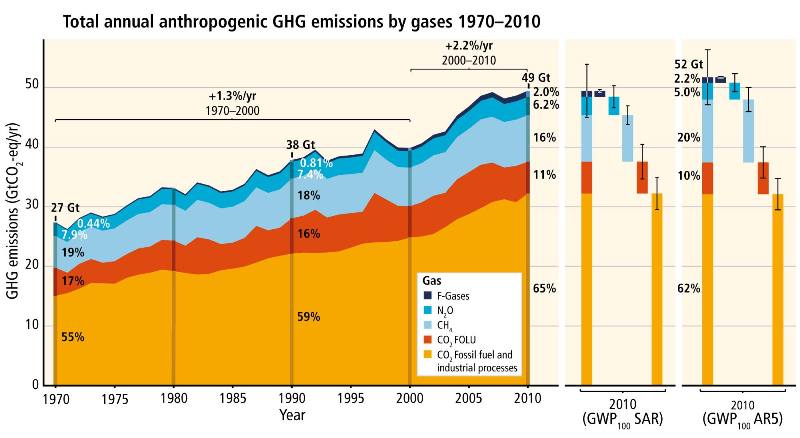Climate News: Difference between revisions
Siterunner (talk | contribs) No edit summary |
Siterunner (talk | contribs) No edit summary |
||
| Line 68: | Line 68: | ||
<big><big>'''November'''</big></big> | <big><big>'''November'''</big></big> | ||
<big><big>'''What About the Pledges and Promises Made by Nations at International Climate Summits?'''</big></big> | |||
'''''Nations keep upping fossil-fuel production despite climate pledges''''' | |||
''“World leaders pledged in 2015 to reduce emissions in a combined effort to limit climate change. Now they are stepping up production of oil, gas and coal, which will have the opposite effect. The top-20 energy-producing nations intend by 2030 to extract double the amount of fossil fuels that would be consistent with the threshold needed to keep warming in check,” the Wall Street Journal’s Eric Niiler '' | |||
* https://www.wsj.com/science/environment/fossil-fuel-emissions-pledge-climate-warming-united-nations-0334b862 | |||
Revision as of 17:48, 9 November 2023
ClimateChange360 News
Time to act to make a positive difference
GreenPolicy360 & Strategic Demands
Now is the Time for New Definitions of National & Global Security
🌎
"Positive Green News Stories", delivered via EuroNews/Green
··························································
Earth Temperature Today 🌡️ Climate Change Institute -- https://climatereanalyzer.org/clim/t2_daily/
Climate Forecast System - https://cfs.ncep.noaa.gov/ | https://www.ncei.noaa.gov/products/weather-climate-models/climate-forecast-system
National Centers for Environmental Prediction - https://www.nco.ncep.noaa.gov/ | https://www.cpc.ncep.noaa.gov/
··························································
Flashback -- 1959, Scientific American
🌎
2023
November
What About the Pledges and Promises Made by Nations at International Climate Summits?
Nations keep upping fossil-fuel production despite climate pledges
“World leaders pledged in 2015 to reduce emissions in a combined effort to limit climate change. Now they are stepping up production of oil, gas and coal, which will have the opposite effect. The top-20 energy-producing nations intend by 2030 to extract double the amount of fossil fuels that would be consistent with the threshold needed to keep warming in check,” the Wall Street Journal’s Eric Niiler
Why many scientists are now saying climate change is an all-out ‘emergency’
Via the Washington Post
... In 2018, Bill Ripple saw pictures of a town called Paradise, Calif., completely destroyed by wildfire. Houses had disappeared in the blaze; all that remained were twisted hunks of metal and glass. Ripple started writing a new academic paper. He called it: “World Scientists’ Warning of a Climate Emergency.” He sent it to colleagues to see if anyone wanted to sign on. By the time the paper was published in the journal Bioscience in 2019, it had 11,000 signatures from scientists around the world — it now has more than 15,000. ...
Last week, he published a new paper on the state of the climate system. It was called “Entering Uncharted Territory.” “Scientists are more willing to speak out,” Ripple said. “As a group, we’ve been pretty hesitant, historically.” But, he added, “I feel like scientists have a moral obligation to warn humanity.”
... climate scientists — who once refrained from entering the public fray — are now using strident language to describe the warming planet. References to “climate emergency” and “climate crisis,” once used primarily by activist groups like the U.K.-based Extinction Rebellion or the U.S.-based Sunrise Movement, are spiking in the academic literature. Meanwhile, scientists’ communication to the media and the public has gotten more exasperated — and more desperate... As recently as 2015, only 32 papers in the Web of Science research database included the term “climate emergency.” In 2022, 862 papers contained the phrase.
‘Uncharted territory’ imperils life on Earth
Climate Reports with Vital Signs in "BioScience", Global, Academic, Peer-Reviewed Publication
CORVALLIS, Ore. – An international coalition of climate scientists says in a paper published today that the Earth’s vital signs have worsened beyond anything humans have yet seen, to the point that life on the planet is imperiled.
William Ripple, a distinguished professor in the Oregon State University College of Forestry, and former OSU postdoctoral researcher Christopher Wolf are the lead authors of the report, and 10 other U.S. and global scientists are co-authors.
“Without actions that address the root problem of humanity taking more from the Earth than it can safely give, we’re on our way to the potential collapse of natural and socioeconomic systems and a world with unbearable heat and shortages of food and freshwater,” Wolf said.
Published in BioScience, “The 2023 State of the climate report: Entering uncharted territory” notes that 20 of 35 planetary vital signs the authors use to track climate change are at record extremes...
🌎
Position on Climate Change and Energy Policy of the Newly Elected Speaker of the US House of Representatives
Via E&E News / October 26
A spokesperson for Speaker Mike Johnson (R-Louisiana) did not respond to a request for comment about the congressman’s current views on climate change.
In his former role as chair of the Republican Study Committee, Johnson was aggressive in messaging against the Green New Deal, producing a 13-page memo decrying the progressive platform as a “Greedy New Steal” and sponsoring an anti-Green New Deal resolution.
Advocates in the conservative energy arena — including Mike McKenna, a veteran energy lobbyist who worked in the Trump White House — said they don’t see much difference between Johnson and most fellow conservatives when it comes to their views on energy policy.
Even Johnson’s 2 percent lifetime rating with the League of Conservation Voters, which scores lawmakers on their environmental votes in Congress, isn’t that much of an outlier: He shares that score with 23 other Republicans, and 24 Republicans have scores of 1 or zero percent.
New House Speaker Champions Fossil Fuels and Dismisses Climate Concerns
Representative Mike Johnson comes from Louisiana oil country and has said he does not believe burning fossil fuels is changing the climate
A Pew Research Center survey released Tuesday found that a vast majority of Democrats polled — 85 percent — said that climate change is an extremely or very serious problem, while 47 percent of Republicans viewed climate change as not too serious or not a problem at all....
···················································
U.S. oil production hits all-time high, conflicting with efforts to curb climate change
Via PBS
································································································································
··························
September
Don't Be a Doomer, or Denier...
Stop the doom. We failed to prevent climate change – but we will decide how bad it'll get
Both doom and denial can lead us down a path of disengagement, which is so convenient to fossil fuel interests that profit from climate inaction
By Michael E. Mann / September 27, 2023
Michael E. Mann is a Presidential Distinguished Professor and director of the Penn Center for Science, Sustainability & the Media at the University of Pennsylvania. He's the author of the new book "Our Fragile Moment: How Lessons from Earth's Past Can Help Us Survive the Climate Crisis."
Are we finally seeing meaningful action on climate? If you’re an optimist, you might be encouraged by the climate provisions of the Inflation Reduction Act, signed into law last year by President Joe Biden, which are starting to bear fruit.
And among other developments, California – the world’s fifth largest economy – is now flexing its climate action muscle, bringing a lawsuit against carbon polluters for the damage they have caused.
But these developments are long overdue. More than three decades ago, the nations of the world entered into an agreement to prevent “dangerous human interference” with the climate. Thanks to this past summer, we can see that the danger's already here and we know what it looks like.
It looks like the Hawaiian paradise of Maui set ablaze in a deadly inferno born of extreme drought. It looks like the orange tinge of my home city of Philadelphia shrouded in choking Canadian wildfire smoke. Or the faces of grief-stricken families in nearby Bucks County who lost loved ones to a “wall of water” from an epic flash flood. It looks like the flooded streets and homes of quintessential New England towns. And the scalded feet of toddlers in Phoenix who made the mistake of walking out onto toaster oven-hot pavement.
Dangerous climate change is a shape-shifting beast, but we've just seen it in all its forms.
The few remaining climate change dismissives respond with their usual refrain “that’s just weather.” But there is a larger context here, the context provided by Earth’s longer-time climate history, that tells us otherwise. An array of paleoclimate evidence – from ice cores, tree rings and corals to ocean sediments, stalactites and stalagmites – indicates that we might well have just experienced the warmest days of the warmest month in at least 100,000 years. Hardly just some fluke roll of the weather dice.
That realization might seem daunting and disquieting, because it speaks to the fragility of this moment. We are, after all, rapidly exiting the range of climate conditions that prevailed during the roughly 6,000-year period in which human civilization arose. Does this mean that our civilization is now threatened? That it’s too late to act? Are we – in essence – doomed?
Is 2023 the hottest summer on record? What to know to understand our changing climate.
Both climate deniers and 'doomers' can lead to inaction...
You might think so while doomscrolling on social media, where we’re now bombarded with selective factoids and graphics leading us to believe that Earth’s climate is spinning out of control, that runaway warming is propelling us past a tipping point, plunging us down a planetary death spiral.
Might as well just bid goodbye to your loved ones now.
We’re told by climate “doomers” that scientists who insist there’s still time to act are lying to the public, hiding the inevitability of our collective demise. These accusations mimic those of years and decades past from climate dismissives. Both doom and denial can lead us down a path of disengagement, which is so convenient to fossil fuel interests that profit from climate inaction.
Climate doom goes viral on TikTok:The spread of 'climate doom' on social media is hurting the climate justice movement – and Gen Z...
The reality is that global temperatures are almost where models decades ago predicted they would be at this point given ongoing fossil fuel burning. No runaway warming, but steady heating that will continue as long as we emit carbon pollution. The truth is bad enough – it’s reason enough for dramatic action.
And Earth’s climate history reveals the truth, offering not just thousands but billions of years' worth of lessons.
Let’s begin 4 billion years ago, when life emerged from the primordial ooze. The sun then was roughly 30% dimmer than today. Calculations indicate that, all else being equal, Earth should have been a frozen, lifeless planet. Yet we know it wasn’t. Life abounded.
The solution to this paradox, first offered by scientist Carl Sagan, was that the planet-warming greenhouse effect must have been even stronger then. Moreover, as the sun gradually grew brighter over the ensuing billions of years, Earth’s greenhouse effect grew weaker.
Earth appears to have a natural “thermostat” that keeps the planet within habitable bounds and life itself – including the global carbon cycle that helps regulate the concentration of carbon dioxide, a critical greenhouse gas – plays a critical role. This is the “Gaia hypothesis,” named after the Greek Earth goddess, first formulated by scientists James Lovelock and Lynn Margulis in the early 1970s. There is now substantial evidence to back it up.
So we can relax then? The natural stabilizing mechanisms of Earth’s climate will bail us out?
How do you deal with climate doom? The antidote is doing.
.... Yes, we have failed to prevent dangerous climate change. It is here. But it’s up to us as to how bad it will get.
A Montana court ruling in August 2023 sided with young plaintiffs who claimed state policies used to evaluate requests for fossil fuel projects are unconstitutional because they don't allow for agencies to consider the effects of greenhouse gas emissions.
Today we are generating carbon dioxide more than 10 times faster than in any of these past episodes. If we do not dramatically reduce carbon emissions, the paleoclimate record tells us we will, in a matter of decades, exceed levels of warmth not seen in millions of years. It is the unprecedented rate of change today that poses a monumental challenge to life on this planet.
A window of opportunity still remains for averting a catastrophic warming of the planet by 3 degrees Fahrenheit, where we’ll see far worse consequences. But that window is closing, and we’re not yet making enough progress.
Will voters care? [In U.S. polls] Climate change isn't a top issue for Democrats or Republicans. [Yet] We're at a tipping point on planet Earth.
We must not give in to despair. The antidote to doom is doing.
We are seeing meaningful progress. And we should be especially inspired by youth climate activists...
Climate Problems, Climate Solutions
Our Fragile Moment: How Lessons from Earth's Past Can Help Us Survive the Climate Crisis
Thank you Michael -- https://earth.sas.upenn.edu/people/michael-mann
Publisher's Description:
In this sweeping work of science and history, the renowned climate scientist and author of The New Climate War shows us the conditions on Earth that allowed humans not only to exist but thrive, and how they are imperiled if we veer off course.
Michael E. Mann speaks of his newly published book -- "Our Fragile Moment"
‘Our Fragile Moment’ finds modern lessons in Earth's history of climate
Fragile Moment / Publisher's Weekly announcement
···································································
Wanted: 20,000 Young Americans to Fight Climate Change
Announcement to create an “American Climate Corps” that would train thousands of young people for green jobs
··························································
··················································································
August
Wealthy oil nation lays groundwork for ‘eye-popping’ climate fund
The United Arab Emirates has drawn a backlash from climate advocates for its role hosting the global climate talks, but the massive fund it’s considering would help countries green their economies
Via Politico
A G-7 government official said envoys from the oil-rich Mideast nation had privately mentioned the idea of a fund of at least $25 billion.
Creation of the fund would be one of the largest ever state-sponsored financial efforts to help countries fight climate change. And it comes as the UAE and Sultan al-Jaber, the CEO of the Abu Dhabi National Oil Co. who is leading the climate talks, have drawn criticism from environmental advocates and some U.S. and European lawmakers for hosting the international gathering despite being one of the world’s largest contributors of greenhouse gases.
In Washington, Republicans in Congress have vowed to block any U.S. effort to fulfill President Joe Biden’s promise to contribute $11 billion annually to international climate finance efforts...
The summit, known as COP28, starts on Nov. 30
Read More:
🌎
Judge rules in favor of Montana youths in landmark climate decision
‘This is a monumental decision,’ said a lawyer for the young plaintiffs, and could influence how judges handle similar cases in other states
In the first ruling of its kind nationwide, a Montana state court decided Monday in favor of young people who alleged the state violated their right to a “clean and healthful environment” by promoting the use of fossil fuels...
The Decision:
August 14, 2023
RIKKI HELD, et al., Plaintiff, V. STATE OF MONTANA, et al., Defendant
🌎
A Republican Party 2024 Climate Strategy: More Drilling, Less Clean Energy
- The New York Times asked the leading Republican presidential candidates whether they support the Project 2025 strategy but none of the campaigns responded
♦
Project2025
- A 920-page Republican Party Political Plan
Politico.com has published an advance outline of climate and environment related policies that a next US president, if Republican Party, would be urged to adopt. The goals of the groups who contributed to the plan, led by the Heritage Foundation, are described as a 'battle plan'.
“Project 2025 is not a white paper. We are not tinkering at the edges. We are writing a battle plan, and we are marshaling our forces,” said Paul Dans, director of Project 2025 at the Heritage Foundation, which compiled the plan as a road map for the first 180 days of the next GOP administration. “Never before has the whole conservative movement banded together to systematically prepare to take power day one and deconstruct the administrative state.”
As described in Politico:
The initiative has previously drawn attention for its efforts to prepare a systematic conservative takeover of the federal bureaucracy, in contrast to the perceptions of chaos that marked much of former President Donald Trump’s term. Those include plans to assemble a database of as many as 20,000 people who could serve in the next administration — “a right-wing LinkedIn,” as The New York Times described it in April — and proposals to impose sweeping Oval Office control over spending decisions, civil service employees and independent federal agencies.
(I)ts implications for U.S. climate policy — at a time of record heat waves sweeping the globe — have drawn far less attention.
The comprehensive plan covers virtually all operations of the federal government, not just energy and climate programs.
It’s much more ambitious than the pledges that all the Republican presidential primary candidates have made so far to roll back Biden’s signature climate law. It also wouldn’t simply nullify Biden’s climate executive orders, something that a Republican president could easily do just after taking office.
(T)he ideas laid out in Project 2025 show that conservative organizations want to achieve a more fundamental shift — moving federal agencies away from public health protections and environmental regulations in order to help the industries they have been tasked with overseeing, said Andrew Rosenberg (a former senior official at the National Oceanic and Atmospheric Administration.) ...
Preventing the expansion of the electric grid would slow down renewable energy projects, threatening U.S. climate goals while cooling the sector’s economic growth, said Mike O’Boyle, a senior director at the nonpartisan policy firm Energy Innovation and head of its electricity program.
“If we totally step away from the role of the federal government, our economy is going to miss out in a big way because the rest of the world is moving on climate, so they’re poised to reap the benefits both for their energy consumers but also in terms of manufacturing.” ...
(An) increase in state power wouldn’t apply to California, which has a history of setting more aggressive environmental standards than those of the federal government under a Clean Air Act waiver. The Project 2025 plan would “ensure that other states can adopt California’s standards only for traditional/criteria pollutants, not greenhouse gasses.”
Another key goal is to restructure how EPA uses science, particularly research that supports regulations by showing risks to public health from industrial pollution.
♦
July
Civilization and 'Cradles'... the 'Fertile Crescent'... with Much More to Consider over the Past Few Millennia
- Human-impact on Planet Earth
🌎
We used to call climate change "global warming" back in the 1970s
1978
- 1988
Update, decades later
July 19, 2023, via The Guardian
······································································
Reuters
World registers hottest day ever recorded on July 3
Hot, Hot
NCEP @NOAA has placed Earth's average temperature yesterday (July 3rd) as the hottest single day thus far measured by humans.
This is driven by the combination of El Niño on top of global warming, and we may well see a few even warmer days over the next 6 weeks.
···························
Extreme Climate Impacts, Extreme Insurance Numbers on the Way
As climate crisis intensifies, insurers will likely reshape where people live — leaving desperate homeowners in the lurch
Homeowners insurance is becoming more expensive in the US with the average premium jumping 11% this year to $1,700, according to the Insurance Information Institute. Florida residents pay much more: $6,000 a year on average, doubling over the past three years. The trade group forecast that the state's property-insurance rates could surge by 40% or more this year.
In Florida, some two dozen private companies have declared insolvency, stopped issuing policies, or withdrawn from the state since February 2022. The Insurance Information Institute said the main cause was high levels of litigation that saddle Florida insurers with legal costs, combined with billions of dollars in losses from Hurricane Ian and other storms in recent years.
Climate Change, Global Warming, Urban Heat Islands, Mosquitoes -- and Disease
The deadliest animal in the world is smaller than a pencil eraser and weighs around two-thousandths of a gram — less than the weight of a single raindrop. Every year, it kills an estimated 700,000 people by partaking in what scientists grimly call a “blood meal.”
It’s the mosquito — and, increasingly, it’s on the move.
These global shifts, which will only accelerate as the planet warms, have sparked concern that the diseases mosquitoes carry will exact an even higher toll in the months and years to come.
June
'Live in Paris' event -- twenty thousand activists, global south leaders, and artists gather to demand justice on behalf of cliamate-vulnerable countries.
PARIS, June 22, 2023 / via PRNewswire -- A night that united the Global North and Global South, 'Power Our Planet: Live in Paris' lit up the iconic Champ de Mars this evening, as climate activists, Heads of State, many famed names in music, and twenty thousand global citizens gathered to call for justice on behalf of the world's climate-vulnerable countries. Hosted by international advocacy organization Global Citizen, the event was broadcast and streamed live around the world, rallying the people everywhere to hold to account the leaders gathering in Paris for the Summit for a New Global Financial Pact.
🌎
Himalayan glaciers could lose 80% of their volume
Via Associated Press, June 20, 2023
Glaciers are melting at unprecedented rates across the Hindu Kush Himalayan mountain ranges and could lose up to 80% of their volume this century if greenhouse gas emissions aren’t sharply reduced, according to a new report.
The report Tuesday from Kathmandu-based International Centre for Integrated Mountain Development warned that flash floods and avalanches would grow more likely in coming years, and that the availability of fresh water could be curtailed for nearly 2 billion people who live downstream of 12 rivers that originate in the mountains.
Ice and snow in the Hindu Kush Himalayan ranges are an important source of water for those rivers, which flow through 16 countries in Asia and provide fresh water to 240 million people in the mountains and another 1.65 billion downstream.
“The people living in these mountains who have contributed next to nothing to global warming are at high risk due to climate change,” said Amina Maharjan, a migration specialist and one of the report’s authors. “Current adaptation efforts are wholly insufficient, and we are extremely concerned that without greater support, these communities will be unable to cope.”
Read the Hindu Kush - Himalayan report from the International Centre for Integrated Mountain Development
Snow and ice in the Hindu Kush Himalaya are fast disappearing, with grave implications for people and nature
🌎
Earth Science Open-Access Database Being Made Available to the World Community
- Planet Citizens, Planet Scientists, Now Is the Time for Knowing and Acting to Make a Difference While There's Still Time
The UNFCCC Subsidiary Bodies meetings represent the last big milestone in climate negotiations before the culmination of the first Global Stocktake underthe Paris Agreement at COP 28 in Dubai, United Arab Emirates. It will provide an opportunity to collectively reflect on where the world stands in terms of addressing climate change.
GreenPolicy360 welcomes the arrival of a global science mission, a "Global Stocktake", a collection of earth science data to be made available to the community of nations, to planet citizen activists and scientists, educational institutions, non-profits, NGOs, young and old to become tools for legal enforcement of national climate plans & pledges.
Planet Citizen Action | Climate Problems, Climate Solutions
🌎
Arctic 'Amplifications'
Over the past four decades, the far north has already been warming four times as quickly as the global average, a phenomenon that scientists call Arctic amplification...
May
A Supreme Court Ruling the Fossil-Fuel Industry Doesn’t Like
Communities can now sue in state courts for compensation for the costs of climate change—something oil companies have fought against for years
- https://www.newyorker.com/news/daily-comment/a-supreme-court-ruling-the-fossil-fuel-industry-doesnt-like
- https://www.nbcnews.com/politics/supreme-court/supreme-court-rejects-oil-companies-appeals-climate-change-disputes-rcna49823
- https://news.yahoo.com/fossil-fuel-influence-us-supreme-110009095.html
- https://www.motherjones.com/politics/2023/04/supreme-court-fossil-fuel-industry-climate-lawsuits-ruling/
- https://www.theguardian.com/environment/2023/apr/25/experts-hail-decision-us-climate-lawsuits-advance
🌎
Background
Methane is a powerful greenhouse gas and air pollutant and is responsible for approximately a third of current global warming. It comes from a wide range of sectors, including agriculture, waste and energy, which are responsible respectively for 53%, 26% and 19% of EU methane emissions according to the European Environment Agency. Today, methane emissions are covered under the targets in the EU’s Effort Sharing Regulation.
The EU has signed up to the Global Methane Pledge, which aims to reduce global methane emissions by at least 30% from 2020 levels by 2030, which could eliminate over 0.2˚C warming by 2050.
Since it launched at COP26's international climate summit, the Global Methane Pledge has generated unprecedented momentum for methane action. Country endorsements of the GMP have grown from just over 100 last year to 150, more than 50 countries have developed national methane action plans or are in the process of doing so, substantial new financial resources are being directed to methane action, and partners have launched “pathways” of policies and initiatives to drive methane reductions in key methane-emitting sectors – a GMP Energy Pathway launched at the June 2022 Major Economies Forum on Energy and Climate and a GMP Food and Agriculture Pathway and GMP Waste Pathway, both launched at COP27.
Environmental Law & Enforcement
- https://www.greenpolicy360.net/w/Category:Environmental_Laws
- https://www.greenpolicy360.net/w/Climate_Plans_Enforcement_-_Resources
- https://www.greenpolicy360.net/w/File:Methods_to_enforce_climate_pledges-NDCs_-_Dec_2021.png
Global Methane Pledge
- https://www.globalmethanepledge.org/
- https://www.iea.org/reports/global-methane-tracker-2022/the-global-methane-pledge
- https://www.reuters.com/business/cop/cop27-more-countries-join-methane-pact-focus-turns-farms-waste-2022-11-17/
- https://www.state.gov/global-methane-pledge-from-moment-to-momentum/
- https://www.globalcitizen.org/en/content/the-global-methane-pledge-cop26-explainer/ (@COP26)
🌎
April
D.C. Politics: Threats to Ax the Historic Clean Energy, Climate Legislation
House Republicans’ proposal for averting a breach of the federal debt limitseeks to relitigate one of the most consequential congressional debates of last year — by taking an ax to President Joe Biden’s signature climate law.
The White House’s counterargument: Gutting the law would wipe out tens of thousands of jobs that the law is creating in Republican-held states.
The proposal that Speaker Kevin McCarthy unveiled Wednesday would raise the federal debt limit while repealing the host of green energy tax incentives established under Democrats’ Inflation Reduction Act.
🌎
On Earth Day 2023, Fox News Finds Its Way to Report the Top of the News
Recalling the Story of Earth Day with GreenPolicy360
- Youthful activism can bring positive change to our world
- 'Teach-ins and the First Earth Day remembered
🌎
GreenPolicy360 Remembers and Celebrates the Life of the Woman 'Who Brought Us the World'
- She Fought 'The Man', 'The MIC', and She Won
- The Pentagon-favored military contractors and their big-money video spying systems lost out to the vision and talent of Virginal Norwood
- Tower Norwood's digital scanning instrument, initially rejected and opposed by 'Top Brass' Pentagon generals, proved its value and prevailed
Virginia Tower Norwood, ‘Mother’ of Satellite Imaging Systems, Dies at 96
- A pioneer in aerospace, she invented a technology that has enabled scientists to map and study the earth for more than 50 years
Beginning with Virginia's 'Invention', Five Decades+ of Unique Earth Science Imaging from Space
- From Landsat to today's Earth Observing Missions, the Multispectral Scanning System Continues to Gathers Essential Earth Science Data
- A Profoundly Vital Resource of Digital Data Mapping Earth's Systems, Providing the Dynamic Observations for Science and Policy Decisions
LANDSAT and Virginia Tower Norwood
50th + Anniversary of Landsat
http://www.greenpolicy360.net/mw/images/Landsat8DataUsersHandbook.pdf
Envisioned as an Intergenerational Science Mission
The first land-focused Earth-observation satellite, Landsat 1 (initially called the 'Earth Resources Technology Satellite-1 / ERTS-1) is launched to Earth orbit from Vandenberg, CA.
Beginnings of Earth Science from Space #RemoteSensing #AtmosphericScience #EarthScience #OceanScience
EOS
Earth Observing System
Originating with a NASA 'Mission Statement' and visionary Earth Science leaders in the U.S. Congress, a whole earth research mission, environmental protection movement is launched...
GreenPolicy360 siterunner, Steven Schmidt, recalls the origins of earth science missions and visionary leaders:
The Original Mission Statement of NASA (1958) provided Congressional intent and guidance to the first generation of space programs. US Congressman George Brown, if he were here, would've done I am certain everything within his power to continue the original 'our' part of the mission statement... 'to understand and protect our home planet'...
“To understand and protect our home planet; to explore the universe and search for life; to inspire the next generation of explorers ... as only NASA can.”
The NASA programs to understand and protect can be traced to the 1960s when a monumental new technology was invented and, with a fortuitous shift in U.S. remote imaging capabilities from to digital, 'multispectral' scanning, the Landsat program took off and the data that began coming back from near-orbit Landsat satellites forever changed how we see, study and interact with our home planet.
George E. Brown Jr | LANDSAT and Virginia Tower Norwood | "Generation Green"
GreenPolicy360's archive of the 1960s/70s earth science, an environmental era start up that your GreenPolicy360 Siterunner experienced personally, includes memories that reveal rarely discussed highlights of the Landsat and first earth observation satellites, the beginnings of the Earth Observing System (EOS), a platform of digital earth system science missions now continuing in a fifth decade of vital science.
Landat's digital imaging scanner created unique digital technology enabling scientists to monitor earth's living systems and our changing environment. Zoom in on the Multispectral Scanner and "The Woman Who Brought Us the World" -- Virginia Tower Norwood. We are witnessing digital data begins to flow into databases for science around our world as NASA's original mission statement -- “To understand and protect our home planet..." becomes mission reality.
Virginia Tower Norwood's Vision
Here we focus on the amazing story of Virginia Tower Norwood who invented technology that made LANDSAT's digital spectral imaging possible. Her talent, her vision forever changed the field of earth science. In many ways, while inventing and convincing the reluctant aerospace men around her that digital imaging was the way to go, she was also continuing to be a first mover, graduating from MIT and creating a path of success for a next generation of women as scientists and engineers who would change the world.
The Landsat mission was a proverbial 'game-changing moment. A mission -- "To understand and protect our home planet" -- was turned into reality. A Congressman versed in physics and trained as a engineer, and a scientist-engineer, a woman who had to convince the power-that-be, leaders of the military-industrial-complex who were unsupportive of her new digital Mulitspectral 'thing', to go forward digitally, that 'digital was the future, that databases from digital imaging were 'gold'. George Brown was an 'environmentalist' before the term became familiar, a man who was among the first to recognize the serious threat of global warming (before the term "climate change" became familiar.) Virgini Tower Norwood was a force to be reckoned with though surrounded by corporate bosses and uniformed generals. Together, George and Virginia changed our world. Landsat, not video but digital, was a profound moment, a beginning of humanity attempting to point digital imaging toward earth's living system and measure...
We, at GreenPolicy360, are remembering, up close, first-generation Earth Science...
The Earth Observing System (EOS)
GreenPolicy360: The mission of the Earth Observing System that became a core element of the ongoing NASA earth science programs was first envisioned in the 1970s. The constellation of satellites that now comprise a connected matrix of ongoing earth digital imaging programs came about as the U.S. Congress realized in the years following NASA's establishment that Planet Earth was central to NASA's work. The initial NASA mission statement spoke of this study of Planet Earth as a key goal of NASA programs. A new science, space and technology Congressional Committee was created to envision and oversee these programs and one of the first realizations about the need for earth science came about through the LANDSAT program (see here). A historic moment brought into existence digital mapping, that is, multi-spectral imaging of earth from an orbiting satellite in space, envisioned and designed to collect and 'save' data of earth's living systems. This databank was considered to be essential by committee member George E. Brown who, as a physicist and engineer, began his three-decade + career in Congress. George eventually became known for his "big science" initiatives. What few knew back then at the beginning was how essential this data would become as climate science came into the light (in 1977 and '78 with George's work central to the drafting and passage of the first National Climate Act.)
In the 1980s, the Earth Observing System (EOS) work began in earnest.
NASA's Project Science Office years later described its beginning with this statement:
>Results from early missions shed light on critical components of the Earth system while prompting further, more advanced investigations. The NASA Earth Observing System (EOS) program was conceived in the 1980s and began to take shape in the early 1990s. EOS is comprised of a series of coordinated polar-orbiting satellites designed to monitor and understand key components of the climate system and their interactions through long-term global observations. The EOS missions focus on the following climate science areas: radiation, clouds, water vapor, and precipitation; the oceans; greenhouse gases; land-surface hydrology and ecosystem processes; glaciers, sea ice, and ice sheets; ozone and stratospheric chemistry; and natural and anthropogenic aerosols.
NASA's Earth Observing System (EOS) Reference Handbook
In June 1992, the National Space Policy Council issued a National Space Policy Directive and EOS became part of a global change observation system.
- NASA Earth Science Missions continuing to extend decades of earth system science missions
·················
March
What happens in Antarctica doesn't stay in the Antarctic
Melting Antarctic ice predicted to cause rapid slowdown of deep ocean current by 2050
New research by Australian scientists suggests 40% slowdown in just three decades could alter world’s climate for centuries
Abyssal ocean overturning slowdown and warming driven by Antarctic meltwater
The abyssal ocean circulation is a key component of the global meridional overturning circulation, cycling heat, carbon, oxygen and nutrients throughout the world ocean. The strongest historical trend observed in the abyssal ocean is warming at high southern latitudes, yet it is unclear what processes have driven this warming, and whether this warming is linked to a slowdown in the ocean’s overturning circulation. Furthermore, attributing change to specific drivers is difficult owing to limited measurements, and because coupled climate models exhibit biases in the region. In addition, future change remains uncertain, with the latest coordinated climate model projections not accounting for dynamic ice-sheet melt. Here we use a transient forced high-resolution coupled ocean–sea-ice model to show that under a high-emissions scenario, abyssal warming is set to accelerate over the next 30 years. We find that meltwater input around Antarctica drives a contraction of Antarctic Bottom Water (AABW), opening a pathway that allows warm Circumpolar Deep Water greater access to the continental shelf. The reduction in AABW formation results in warming and ageing of the abyssal ocean, consistent with recent measurements. In contrast, projected wind and thermal forcing has little impact on the properties, age and volume of AABW. These results highlight the critical importance of Antarctic meltwater in setting the abyssal ocean overturning, with implications for global ocean biogeochemistry and climate that could last for centuries.
If greenhouse gas emissions continue at today’s levels, the current in the deepest parts of the ocean could slow down by 40% in only three decades.
This, the scientists said, could generate a cascade of impacts that could push up sea levels, alter weather patterns and starve marine life of a vital source of nutrients.
Antarctic ice melt could disrupt the world’s oceans ...
The Antarctic overturning circulation is part of a global network of currents that shift heat, oxygen and nutrients around the globe
Global warming is accelerating the melting of ice in Antarctica, and the increased amount of fresh water flooding into the ocean is disrupting the flow of the Antarctic overturning circulation
- https://www.straitstimes.com/world/antarctic-ice-melt-could-disrupt-the-world-s-oceans-study
- https://www.straitstimes.com/world/europe/monster-iceberg-released-billions-of-tonnes-of-fresh-water-into-ocean
····························································
'Synthesis': Another IPCC Report, Another IPCC Warning: “In the near term, every region in the world is projected to face further increases in climate hazards (medium to high confidence, depending on region and hazard), increasing multiple risks to ecosystems and humans (very high confidence). Hazards and associated risks expected in the near-term include an increase in heat-related human mortality and morbidity (high confidence), food-borne, water-borne, and vector-borne diseases (high confidence), mental health challenges (very high confidence), flooding in coastal and other low-lying cities and regions (high confidence), biodiversity loss in land, freshwater and ocean ecosystems (medium to very high confidence, depending on ecosystem), and a decrease in food production in some regions (high confidence).”
GreenPolicy360: A Sad Song of Science, over and over, and over... 50+ years of earth science data
- The global scientific community is speaking out, again
'Deja vu' time, an old story, a generational story from the first climate studies and environmental actions in the 1970s following on the first 'Earth Day' in 1970 and continuing on to today in 2023 ...
- Call us Planet Citizens venturing on to make a #PlanetCitizen difference
🌎
March 13, 2023
Political Challenges, Fossil Fuels, Energy Infrastructure
- ··················································································································
Spreadsheet: The Oil & Gas Industry Is Making History
- Profit-taking in a Historically Profitable Year
- Saudi oil giant Aramco posts record $161.1 billion profit for 2022
- Four oil companies had total sales of $1 trillion last year
- Chevron, ConocoPhillips, Exxon and Shell all reported record profits in 2022
Oil giant Saudi Aramco has reported earning $161bn last year, claiming the highest-ever recorded annual profit by a publicly listed company and drawing immediate criticism from activists.
The monster profit by the firm, known formally as the Saudi Arabian Oil Co., came off the back of energy prices rising after Russia launched its war on Ukraine in February 2022, with sanctions limiting the sale of Moscow’s oil and natural gas in Western markets.
CERAWeek
The Industry Celebrates: The Oil & Gas Annual Global Conference
February 2023
Fox News/Opinion / February 24, 2023
Retirement savings of millions of Americans could go to companies worried about climate change
Biden's ESG investment rules threaten your retirement savings
GOP to Vote 'anti-woke'
○
The E.S.G. Fight Looms Ahead
GreenPolicy360's position -- 'Yes, properly, intelligently, appropriately, wisely, pick your word for smart investing. Our word is an acronym. ESG, and ESG investing's time is now'
Kentucky passed a law targeting banks and their climate policies. Bankers sued the attorney general. Whose definition of investment risk should prevail?
Environment, social, and governance (ESG) factors have boomed in recent years
Bloomberg projects that ESG investments may surpass $41 trillion worldwide by the end of 2022, up from $22.8 trillion in 2016. In the US alone, sustainable investments grew to $17.1 trillion in 2020, which accounts for a third of US assets under management according to the US Forum for Sustainable and Responsible Investment.
As interest in ESG investing grows, there is considerable variation in how fund managers define ESG and how funds approach ESG investing. For example, some funds may exclude certain polluting investments like oil and gas, while other funds may include some oil and gas companies based on their stated commitment to decarbonization. There is also variation in the utility of the ESG label to investors: researchers have found high levels of misleading claims among ESG funds.
Regulators and investors are questioning the approach and impact of many ESG funds. Given the lack of relevant reporting requirements, it’s difficult for investors to understand how a fund accounts for ESG factors in investment decisions and what impacts those investments have on the issues they claim to address.
ESG Factors
Real Money, Big Investment Money Begins to Shift Direction
Environmental, social, and governance investing
Business Intelligence (BI) @Work
ESG Creates Value
Deloitte Insight into ESG
🌎
Planet Citizens & Global 360 Challenges
- GreenPolicy360: Act Now:
Onward: Earth Science Travels from 1970 to 2023 with GreenPolicy360's Siterunner
GreenPolicy360 in Action
GreenPolicy360's Climate Plans Enforcement Project
'Measure, Monitor & Manage Emissions'... 'Turning National Climate Plans, Pledges & Promises into Reality'
- https://www.greenpolicy360.net/w/Climate_Plans_Enforcement_-_Resources
- https://www.greenpolicy360.net/w/File:Methods_to_enforce_climate_pledges-NDCs_-_Dec_2021.png
- https://www.greenpolicy360.net/w/Category:INDC
- https://www.greenpolicy360.net/w/Category:Environmental_Laws
- https://www.greenpolicy360.net/w/Glasgow_Climate_Summit_-_Pledges,_Promises,_Declarations_-_What%27s_Next_Up
- ···········································································
GreenPolicy360
Climate Action Plans 360
GrnPolicy360: Climate Plans Enforcement Initiative
- https://www.greenpolicy360.net/w/File:Methods_to_enforce_climate_pledges-NDCs_-_Dec_2021.png
- https://www.greenpolicy360.net/w/Category:INDC
- https://www.greenpolicy360.net/w/File:Global_Stocktake,_the_first_GST.jpg
- https://www.greenpolicy360.net/w/Category:Environmental_Laws
- https://www.greenpolicy360.net/w/Glasgow_Climate_Summit_-_Pledges,_Promises,_Declarations_-_What%27s_Next_Up
How to turn each nation's climate pledges into 'effective climate action'
- Promises of international climate summits in Paris (2015) & Glasgow (2021) require 'follow through'
- Measuring & monitoring greenhouse gas (GHG) emissions with satellite missions is becoming a 'GreenPolicy360 climate tool working nation-by-nation. Smart science applied and put into action by planet citizens.
Critical local/national/global policy, planning, and action: creating, curating, and developing climate data that underlies the U.S. National Climate Assessments
- ······································································
Atmospheric Science / Earth Science @GreenPolicy360
······················································
Climate Change - NASA
- https://climate.nasa.gov/vital-signs/ | Vital Signs
Climate Change - MIT
- https://climateprimer.mit.edu/ | Climate Science, a Primer
Climate Change - Metrics
- https://www.bloomberg.com/graphics/climate-change-data-green/ | Bloomberg Green Climate Data-Dashboard Intel
Global temperature spiral (1850-2020)
Visit the Global Temperature GIF animation, updated thru 2020
"We have to identify the problem, then act in many ways to solve the problem. Global warming is the threat of our times."
"We’re going to need to use every tool in the toolbox if we’re going to solve this problem."
Climate Central Online Dashboard
Online tools to help meteorologists and journalists cover connections between weather, news, and climate in real time, and to alert public and private organizations and individuals about particular local conditions related to climate change, its impacts, or its solutions.
Nations are aiming to limit global temperature rise to 1.5 degrees Celsius but even if all nations achieve the targets set for themselves at the 2015 Paris Agreement and (intended and nationally determined climate goals), our average global temperatures are on track to rise by 2.7 degrees Celsius by the end of the century
Watch the Curve
- Keeling's Curve has been called one of the most important scientific works of the 20th century
🌎
GreenPolicy360 and Strategic Demands:
New Definitions of National Security
🌎
GreenPolicy360: PlanetCitizens, Planet Scientists confront the climate change crisis and chart the data and physics of change.
We must act now, each of us, to make a positive difference.
GENEVA (AP) — Much of the Alps just don’t look right for this time of year. Sparse snowfall and unseasonably warm winter weather in Europe’s central mountains are allowing grass to blanket hillsides across the region...
The dearth of snow has revived concerns about temperature upheaval linked to climate change.
The start to 2023 picked up where many countries had already left off: Last year was the hottest on record in both Switzerland and France. More broadly, the United Nations’ World Meteorological Organization says the past eight years are on track to be the eight warmest on record. Its final tally on global temperature figures for 2022 will be released in mid-January.
Germany too has seen unusually springlike temperatures — as high as 16 degrees Celsius (61 Fahrenheit) in parts of the country on Monday. New Year’s Eve is believed to have been the warmest since reliable records began. The German Weather Service reported readings of 20 Celsius (68 Fahrenheit) and just above at four weather stations in southern Germany, news agency dpa reported.
🌎
GreenPolicy360 and Strategic Demands Continue Decades of Advocacy for 'New Definitions of National Security'
- As Planet Citizens, we continue working to rethink and redefine the orthodox definitions that nations in the past have used to project power and 'spheres of influence'
- 'Hard (military) power' and 'soft (diplomatic) power' have limits (think of nuclear weapons)
- Real, overarching security demands a new vision, a mutual security, a new strategic understanding
- GreenPolicy360 & Strategic Demands are envisioning 'whole earth' strategic security solutions
2022
December 2022
GreenPolicy360: As we all approach 2023 the message we carry, and how best to carry it, deepens in importance
Onward Planet Citizens !
🌎
Will the Climate Action Pledges Be Honored?
UN Climate Change Executive Secretary speaking at the COP27 closing plenary
Friends, we came here to Sharm el-Sheikh to launch a new phase of our collective process. The secretariat will help parties and future presidents to navigate this path to the new phase of implementation. I will take this responsibility seriously. I will listen carefully to all parties and other stakeholders in the coming months. I intend to share my views with parties on the margins of the June sessions on the operation of this inter-governmental process. As custodian of this process, I'm gaining a much clearer vision of how we do things differently.
I see the following. Firstly, accountability on the commitments that are made by nations, sectors, businesses and institutions. There is absolutely no point putting ourselves through all that we've just gone through if we're going to participate in an exercise of collective amnesia the moment the cameras move on. The numbers on our NDCs just don't add up. The transparency of commitments from countries, businesses and institutions will be a priority of the Secretariat. The Secretary General asked the Secretariat to come up with a plan early next year on how we'll ensure transparency and accountability with non-state actors, that have been critical in getting us to where we are today. They are critical in getting us to where we need to be. Civil society should take significant credit for helping us get to this point. Without the voices of individuals, whether they're activists, researchers, scientists, youth or indigenous peoples, we would not have gotten this far.
Secondly, I've been humbled thinking about the millions of people around the world who've been following our challenges and progress here at COP 27. This is a joint human endeavor like no other. To protect our collective future. Your voices at home have an immediate impact on policymakers and what they feel is demanded and what they feel is possible. Your voices have a direct impact on how we find our way forward at the multilateral level. You can help us deliver transformations in global systems that are needed if we are able to deal with this crisis. And finally, our global financial system must be pushed and multilateral development banks reformed to be able to harness their financial power, technical expertise and leverage further private finance. The cost of inaction is far, far greater than the cost of action.
We now have only seven COP sessions ahead of us before 2030. We must focus on 2030 and then work back from there. We have a series of milestones ahead. We must pull together with resolve through all processes, may they be national, regional or others such as the G20. Every single milestone matters and builds momentum. Keep your eye on 2030. That is our horizon...
GreenPolicy360:
🌎
Global Summit Ends: 35,000+ participants leave for their home nations and territories
The Global Climate Summit (COP27) Website
In a 2,020-word statement, Special Presidential Envoy for the Climate John Kerry said the nations of the world lag far behind on the pledges they had promised under the Paris accords he helped broker in 2015...
Almost two years ago this very week, President-elect Biden asked me to be his special envoy for climate. It was a perilous moment. The world was rushing toward climate chaos. Any hope of limiting warming to 1.5 degrees Celsius was slipping further and further away.
We’ve been sprinting to make up for lost time ever since – starting on day one, when President Biden rejoined the Paris Agreement, and with our updated nationally determined contribution. It’s been full steam ahead to confront the climate crisis – both at home, and in partnership around the world.
One year ago, we left COP26 in Glasgow with nations representing 65 percent of global GDP committed to 2030 targets in line with 1.5℃. The International Energy Agency calculated that if all the commitments and initiatives put forward by Glasgow were fully implemented, we could limit warming to 1.8 degrees.
One year later, as we depart Sharm el-Sheikh, the IEA now tells us that if the new commitments and actions announced here are fully implemented, we can limit warming to 1.7 degrees. That’s a journey – from well over 2 degrees to 1.8 to now 1.7 – that we can be proud of, even as we recognize we are just getting started. But make no mistake: we have kept the hope of 1.5 alive. How? By implementing real projects and deploying real dollars to accelerate the energy transition, which enables us to further enhance global ambition...
We are partnering with nations on an array of initiatives to drive action in this critical decade.
150 countries – fully three-quarters of the nations of the world – have now joined us in the Global Methane Pledge, to slash global methane emissions 30 percent by 2030. Over 95 percent of countries will include methane in their 2030 NDC targets. Tackling methane is the fastest, most effective way to reduce near-term warming and keep 1.5℃ within reach.
Contributor countries and public funds can’t do the job alone. We need a massive infusion of private capital.
That is why the United States, the Rockefeller Foundation, and the Bezos Earth Fund have introduced the concept of an Energy Transition Accelerator to catalyze private capital that will speed the transition from dirty to clean power in developing countries. Over the coming year, we’ll engage with governments, companies, and civil society – all the relevant stakeholders – to build in strong guardrails ensuring both a just transition and full environmental integrity.
As we work to reduce emissions and avert the consequences of runaway warming, we also must help vulnerable countries cope with the impacts they are experiencing today and will in the future.
○
Activists and some national leaders say they are becoming disillusioned with the COP summits
State Department releases official U.S. positions on the Global Climte Summit (COP27)
Climate change poses an existential threat to people and our planet. It is already threatening lives and livelihoods as families and communities are being displaced by natural disasters and water scarcity. Recognizing the urgency of addressing the climate crisis, we have engaged in a whole-of-government effort to mitigate the output of dangerous greenhouse gases, to increase other nations’ climate ambitions, and to strengthen the United States’ and the world’s capacity to adapt to the planet’s changing environment.
○
November 20, 2022
GreenPolicy360: As the global climate conference in Egypt ends, and the results are announced and published, agreements and non-agreements, progress and missed opportunity, it becomes apparent that the Conference of the Parties, COP27, didn't accomplish what was needed and necessary #ClimateAction #StrategicDemands
Via The Guardian
Key Outcomes of COP27
🌎
What Happened at COP27 After EU Threatened to Walk Out
By Bloomberg Green
🌎
U.S. Climate Representative Focuses In On Methane Mitigation and Cuts Pledge
- GreenPolicy360 Pushes for 'Climate Plans Enforcement', 'Moving from Promises & Pledges to Action & Verification'
🌎
An Insider Listing with Analysis of the Documents and Agreements Being Discussed, Debated and Decided at the Global Climate Summit
Via CarbonBrief
🌎
Global Methane Pledge
○
Kathy Castor, (D-Tampa, Florida), Chair, Select Committee on the Climate Crisis
Watch the presentation of the U.S. Delegation at the Global Climate Change Conference - COP27
- View the Closed Caption Remarks and Complete Text Compiled by C-Span
November 11, 2022
🌎
Time for Planet Citizen Action and a "CEOS", a Committee on Earth Observation Satellites
GreenPolicy360 welcomes the arrival of a global science mission, a "Global Stocktake", a collection of earth science data to be made available to the community of nations, to planet citizen activists and scientists, educational institutions, non-profits, NGOs, young and old to become tools for legal enforcement of national climate plans & pledges
View GreenPolicy360's 'National Climate Plans Enforcement' Project
GreenPolicy360's Campaign to 'Turn National Climate Promises & Pledges into Reality'
- Our Climate Plans Enforcement Initiative continues as the next Global Climate Conference approaches, November's Conference of the Parties (COP27)
- Drawing from the database of Earth Science resulting from decades of space-based missions designed to provide us with actionable 'Earth-system and Climate-related data'
- Measuring and Monitoring to better manage Earth's Living, Dynamic and Changing Systems, Local, National and Global
Methods to Enforce Climate Plan Pledges
GreenPolicy360: Climate Plans Enforcement Initiative
Pressuring Nations to Step Up, Cooperate, and Act Now
Environmental Laws, Regs, Rules... Lawsuits & Legal Actions
Glasgow (2021) & Paris (2015) Summits: Int'l Climate Plan Pledges & Promises (INDCs-NDCs)
"Earth Observing System": Decades of Earth Science/Climate Science Data Accessible for Planet Citizen Action
🌎
Climate Summit / COP27 Updates - November 11, 2022
Via NY Times Reporters/Live - On Location
Transcript of President Biden's Speech at the 27th International Climate Conference
More from the Global Climate Conference
COP27: Biden says the climate crisis is about ‘very life of the planet’
🌎
SHARM EL-SHEIKH, EGYPT, Nov 7 (Reuters) - United Nations Secretary General Antonio Guterres told countries gathered at the start of the COP27 summit in Egypt on Monday they face a stark choice: work together now to cut emissions or condemn future generations to climate catastrophe.
The speech set an urgent tone as governments sit down for two weeks of talks on how to avert the worst of climate change, even as they are distracted by Russia’s war in Ukraine, rampant consumer inflation and energy shortages.
COP27
- Time for Planet Citizen Action
🌎
GreenPolicy360: Methane hot spots we're coming to find you, identify you, act to stop you and enforce climate laws.
- "Super emitters", we have a message for you, you can't hide....
🌎
October
Climate Pledges Are Falling Short, and a Chaotic Future Looks More Like Reality
With an annual summit next month, the United Nations assessed progress on countries’ past emissions commitments. Severe disruption would be hard to avoid on the current trajectory
Via NY Times / Oct 26
Countries around the world are failing to live up to their commitments to fight climate change, pointing Earth toward a future marked by more intense flooding, wildfires, drought, heat waves and species extinction, according to a report issued Wednesday by the United Nations.
Just 26 of 193 countries that agreed last year to step up their climate actions have followed through with more ambitious plans. The world’s top two polluters, China and the United States, have taken some action but have not pledged more this year, and climate negotiations between the two have been frozen for months.
Without drastic reductions in greenhouse gas emissions, the report said, the planet is on track to warm by an average of 2.1 to 2.9 degrees Celsius, compared with preindustrial levels, by 2100.
That’s far higher than the goal of 1.5 degrees Celsius (2.7 degrees Fahrenheit) set by the landmark Paris agreement in 2015, and it crosses the threshold beyond which scientists say the likelihood of catastrophic climate impacts significantly increases.
········································································································································
Interview: Chomsky and Pollin: Pushing a Viable Climate Project Around COP27
Via Truthout
Will COP27 end up as yet another failure on the part of world leaders to slow or stop global warming? Noam Chomsky and Robert Pollin share their thoughts and insights on the climate crisis conundrum by dissecting the current state of affairs and what ought to be done to stop humanity’s march to the climate precipice...
The 27th session of the Conference of the Parties (COP27) to the United Nations Framework Convention on Climate Change (UNFCCC) will take place in Egypt from November 6-18, 2022. Nearly 200 countries will come together in yet another attempt to tackle climate breakdown. COP26, held in Glasgow about the same time last year had been hailed as “our last best hope,” but it did not achieve much as too many compromises were made. The hope for COP27 is that the world will set more stringent greenhouse gas emissions reduction requirements considering the ever-clearer consequences of global warming. Noam, is this a significant climate meeting? Can we expect a breakthrough, or will it end up yet another futile international effort to reverse climate change? Indeed, what’s standing on the way of governments’ failure to slow or even reverse global warming? Isn’t the evidence already overwhelming that the world stands on a climate precipice? What prevent us from stepping back from the abyss?
September
Hurricane Ian Hits Florida with Historic Force
- The Fast 'Intensification' of Ian
- Hurricane Ian -- Close to Cat5 -- Jim Cantore reporting
🌎
Climate-induced, warm water in the Gulf of Mexico is a feeder of intensity
🌎
Destructive Surges with Hurricanes, Extreme Weather Events
Florida, we're pointing at Gulf Waters heating up and 'inducing' more powerful storms
Hurricane Ian, September 26, the 'spaghetti plot lines' warn of a historic Gulf Hurricane on the way...
There are 'no easy fixes' in Florida. But could Hurricane Ian's havoc bring a call for better planning?
Via USA Today
Researchers who study flooding, development and climate change were horrified by the emerging images but not surprised. For years, they have warned that sprawling development in Florida and other coastal states wasn't sustainable, especially with the warming climate supercharging hurricane rainfall.
"This is kind of what we had expected for days in advance, and it's still heartbreaking to see so many people stranded," said Kevin Reed, associate professor in atmospheric science at Stony Brook University...
"None of this is surprising," said Linda Shi, an assistant professor in Cornell University's city and regional planning department. "How much does it take for us to want to make a change? Our policies and our choices have led us to this point."
Reed and colleagues recently published a study looking at all hurricanes during the 2020 season and concluded climate change was adding up to 10% more rain to today's hurricanes. On Thursday, they used the same models to compare Ian's rainfall and concluded it was at least 10% higher than it would have been without the warming climate.
"This is one of the clearest indicators of how climate change is impacting storms," Reed said. It may not seem like a lot, but 2 inches on top of an already large amount of rainfall makes an enormous impact.
What can Florida learn from Hurricane Ian?
"Mother Nature keeps telling us homes don't belong where we built them, yet we continue to build homes where they don't belong."
"We can’t stop cyclone events or stop the rain from falling, but we can build communities that are better able to withstand these events,” says John Dickson, president of the national Aon Edge Insurance Company. "We need to think about more resilient structure, and we need to make a plan to handle the water and move it away from our people and our families and our property.
Whether a storm water system is designed for rain that could occur once every 25 years or a rainfall event every 100 years, the system probably would be overwhelmed with rain like Ian's, said Chad Berginnis, executive director for the Association of State Floodplain Managers.
The state may have to accept the fact that developers will have to build at higher elevations.
···················································································
Re: Florida's Flood and Property Insurance Crisis
TAMPA, Fla. (WFLA) — As hurricane season approaches, it’s not an understatement to say that water is heading to Florida. However, in addition to the rain and storms coming to the Sunshine State, residents are also likely to see higher flood insurance costs in 2022.
Florida has 8,436 miles (13,576 km) of coastline, according to the National Oceanic and Atmospheric Administration, the second highest number of shore miles in the U.S. by distance.
~ The terms “coastline” and “shoreline” are often used interchangeably, but they have different meanings. The coastline of a place is defined as the boundary between the coast and the shore. In other words, a coastline is a big-picture view of the approximate line between the land and the sea. A shoreline is an ever-changing line that marks the specific place where the water and shore meet...
TAMPA, Fla. (WFLA) — Halloween isn’t the only scary thing coming up in October for Florida residents. More immediately, the state is going to see rate hikes on flood insurance as the Federal Emergency Management Agency implements a new risk rating system on Oct. 1.
Flood insurance is a yearly cost to homeowners who use it, and it covers homes in danger of water damage, particularly during storms. For Florida, that’s all year but particularly in hurricane season.
Starting on Oct. 1, FEMA is implementing a program update it calls Risk Rating 2.0, which will change the way that flood insurance rates are calculated and charged and could lead to price increases for thousands of homeowners with waterfront properties. The changes coming through the system update are part of FEMA’s 2018-2022 Strategic Plan.
Ian threatens Florida's already unstable insurance market
Six Florida property insurance companies were declared insolvent this year, and others are canceling or not renewing policies
···········
More:
A new federal summary of the globe's climate last year takes bits and pieces of grim news from the past 18 months and rolls it into a sobering report on the world's warming climate.
Long-term warming trends continue worldwide, even when interrupted by temporary cooler weather phenomena, such as the lingering La Nina in the Pacific, concluded the 2021 "State of the Climate" report released Wednesday (Sept. 28).
"The data presented in this report are clear – we continue to see more compelling scientific evidence that climate change has global impacts and shows no sign of slowing,” said Rick Spinrad, administrator of the National Oceanic and Atmospheric Administration. The report is prepared by NOAA's National Centers for Environmental Information, with contributions from scientists around the world.
~ The Intergovernmental Panel on Climate Change's 6th IPCC report is a "dire warning about the consequences of inaction" on climate change.
~ It's not just ecosystems and weather being affected by warming: People are suffering and dying, experts say.
~ In North America, human life, safety and livelihood will be at risk from sea-level rise, severe storms and hurricanes, especially in coastal areas.
🌎
Fueling the Climate Crisis: Examining Big Oil’s Prices, Profits, and Pledges
- The hearing convened in room 2154 of the Rayburn House Office Building and over Zoom
- Date: Thursday, September 15, 2022 - 9:30am
On Thursday, September 15, 2022, at 9:30 a.m. ET, Rep. Carolyn B. Maloney, the Chairwoman of the Committee on Oversight and Reform, and Rep. Ro Khanna, the Chairman of the Subcommittee on the Environment, held a hearing to examine Exxon, Chevron, BP, and Shell’s record-breaking profits.
Discussed was the adequacy of their climate pledges and the Committee heard firsthand accounts from survivors of climate change-induced severe weather events.
In 2021, Exxon’s net profits were more than $23 billion, Chevron reported profits of $15.6 billion, BP netted its highest profits in eight years at $12.8 billion, and Shell brought in $21.1 billion. The fossil fuel industry’s profits have only increased in the wake of the Russian invasion of Ukraine. In the past quarter, since the start of the Ukraine War, five major oil companies raked in $55 billion.
Despite reaping record profits, these companies have not taken the steps that scientists say are needed to prevent the worst climate impacts. Instead, they continue their greenwashing campaign by publicly supporting the Paris Agreement and claiming to be working towards a net-zero future, while issuing incomplete and misleading climate pledges and making inadequate investments in unproven energy sources and technologies.
At the same time, the climate crisis is growing more severe, with record heat waves, droughts, flooding, and other extreme weather harming Americans and people around the world.
The hearing is part of the Committee’s investigation into the fossil fuel industry’s long-running campaign to spread disinformation about climate change and greenwash its role in causing global warming.
At the Committee’s earlier hearing in October 2021, fossil fuel executives finally admitted under oath that burning fossil fuels contributes to climate change, which is an existential threat to our planet—but they refused to stop spending money to block climate action.
Earlier this year, the Committee invited five board members from Exxon, Chevron, Shell, and BP to testify at a hearing about the companies’ climate pledges. They failed to appear. The Committee once again invited the board members to testify, but they once again declined to appear on the date requested.
Climate bill's unlikely beneficiary: US oil and gas industry
While the law concentrates on clean energy incentives, it also guarantees new drilling opportunities for oil and gas companies
WASHINGTON — The U.S. oil industry hit a legal roadblock in January when a judge struck down a $192 million oil and natural gas lease sale in the Gulf of Mexico over future global warming emissions from burning the fuels. It came at a pivotal time for Chevron, Exxon and other industry players: the Biden administration had curtailed opportunities for new offshore drilling, while raising climate change concerns...
... The industry’s setback was short-lived, however. The climate measure President Joe Biden signed Tuesday bypasses the administration's concerns about emissions and guarantees new drilling opportunities in the Gulf of Mexico and Alaska. The legislation was crafted to secure backing from a top recipient of oil and gas donations, Democratic Sen. Joe Manchin, and was shaped in part by industry lobbyists...
... While the Inflation Reduction Act concentrates on clean energy incentives that could drastically reduce overall U.S. emissions, it also buoys oil and gas interests by mandating leasing of vast areas of public lands and off the nation’s coasts. And it locks renewables and fossil fuels together: If the Biden administration wants solar and wind on public lands, it must offer new oil and gas leases first...
... As a result, U.S. oil and gas production and emissions from burning fuels could keep growing, according to some industry analysts and climate experts. With domestic demand sliding, that means more fossil fuels exported to growing foreign markets, including from the Gulf where pollution from oil and gas activity plagues many poor and minority communities.....
IEA News
Support for fossil fuels almost doubled in 2021, slowing progress toward international climate goals, according to new analysis from OECD and IEA
29 August 2022
Major economies sharply increased support for the production and consumption of coal, oil and natural gas, with many countries struggling to balance longstanding pledges to phase out inefficient fossil fuel subsidies with efforts to protect households from surging energy prices, according to analysis released today by the Organisation for Economic Co-operation and Development and the International Energy Agency.
New OECD and IEA data show that overall government support for fossil fuels in 51 countries worldwide almost doubled to 697.2 USD billion in 2021, from 362.4 USD billion in 2020, as energy prices rose with the rebound of the global economy. In addition, consumption subsidies are anticipated to rise even further in 2022 due to higher fuel prices and energy use...
“Fossil fuel subsidies are a roadblock to a more sustainable future, but the difficulty that governments face in removing them is underscored at times of high and volatile fuel prices. A surge in investment in clean energy technologies and infrastructure is the only lasting solution to today’s global energy crisis and the best way to reduce the exposure of consumers to high fuel costs,” said the IEA Executive Director.
🌎
August 26, 2022
California Acts to Ban the Sale of New Gasoline Cars
The decision, to take effect by 2035, will very likely speed a wider transition to electric vehicles because many other states follow California’s standards
After the California Air Resources Board approved Thursday regulations that ban the sale of new gas-engine vehicles by 2035, requiring all new cars to run on electricity or hydrogen, California Gov. Gavin Newsom told ABC News he was confident that more states would do the same to help combat climate change.
BY THE TIMES EDITORIAL BOARD | AUG. 26, 2022
It’s hard to overstate the significance of California’s move this week to end the sale of new gas-powered cars.
The California Air Resources Board’s vote Thursday setting a firm 2035 deadline is huge and consequential for climate change, air quality and health. The nation’s most populated and worst-polluted state is the first to adopt rules that will finally stop adding gas-fueled passenger vehicles to its roads.
The end of the internal combustion engine era, and the toll on our lungs and our planet, is finally on the horizon.
This regulation will require automakers to sell increasing percentages of zero-emission and plug-in hybrid vehicles starting with 35% of new car sales in 2026, reaching 68% in 2030 and 100% by 2035. Zero-emission vehicles account for 16.5% of California’s new sales today, a rate that leads the nation but lags behind Europe and China. So these rules help reestablish California’s climate leadership, putting it in step with other leading nations and making it one of the first — and the largest — vehicle markets in the world to require 100% of new sales be zero emissions.
It’s a pivotal moment for a state that has been shaped for decades, often negatively, by automobiles and the health-damaging pollution they generate.
More on California's decision to drive forward into a new world of transportation
- ~
·························
August 24, 2022
Democrats Designed the Climate Law to Be a Game Changer
Via the NY Times | 08/22/2022
················································
Via E&E News | CLIMATEWIRE
08/24/2022
CO2 as a Pollutant
Climate legislation signed into law this month by President Joe Biden bolsters EPA’s ability to regulate greenhouse gases
In a first, climate law defines CO2 as air pollutant
In enacting a sweeping climate measure, analysts said Biden and congressional Democrats signaled a desire for EPA to tackle greenhouse gas emissions. Firming up EPA’s legal footing also is a boost for an agency that has faced court challenges from conservatives who question EPA’s authority to regulate greenhouse gases under the Clean Air Act. That authority rests on Massachusetts v. EPA, a 2007 Supreme Court decision that found the agency is required to regulate CO2 as a pollutant dangerous to public health.
····························
WEEKLY PLANET
08/24/2022 / Via The Atlantic
by Robinson Meyer
While it’s true that the IRA itself consists almost only of carrots, that is not true of the broader structure of American climate law. There is, in fact, a big “stick” for tackling carbon pollution already on the books in the United States, as well as an agency tasked with wielding that stick. I’m talking about the Clean Air Act and the EPA. And the IRA, by design, strengthens the government’s ability to wield that stick.
It does this in at least two ways. The first is that the IRA confirms that carbon dioxide is a type of air pollution covered by the Clean Air Act, as initially reported by The New York Times earlier this week.
This has broader consequences than it might seem. In 2007, the Supreme Court ruled in Massachusetts v. EPA that carbon dioxide counted as an air pollutant, and that, if the EPA decided that CO2 harmed human health and the environment, it could regulate CO2 under the Clean Air Act. That ruling—and the EPA’s official determination, a few years later, that CO2 is dangerous—has anchored the agency’s climate regulations on cars and trucks, and its proposed rules for the power grid.
But then in June, the Court circumscribed some of the EPA’s authority over the power grid. Conservative justices have harped on the fact that Congress has never clearly delegated the power to regulate greenhouse gases to the EPA.
Now it has. The IRA repeatedly defines greenhouse gas as a form of air pollution. It amends several sections of the Clean Air Act to define “greenhouse gas” as encompassing “the air pollutants carbon dioxide, hydrofluorocarbons, methane, nitrous oxide, perfluorocarbons, and sulfur hexafluoride.” In another section, it grants money under the Clean Air Act for any project that “reduces or avoids greenhouse gas emissions and other forms of air pollution.”
Congress has now clearly spoken: Carbon dioxide is a form of air pollution. And though this will not undo this year’s ruling, it buttresses the EPA’s underlying legal authority to regulate climate pollution.
············································································
The EPA Just Quietly Got Stronger
·················································································································
More on CO2 and Greenhouse Gases as Pollutants to be Regulated under Law
··················································································
Your GreenPolicy360 Founder/Siterunner's thoughts:
To the Supreme Court: Here is the exacting and specific language about CO2 and air 'pollutants'
Over the years, and on our GreenPolicy360 site, I have shared my knowledge of the formation of the Environmental Protection Agency, the Clean Air Act, the first era of environmental protection legislation and the first National Climate Act. My long time friend Congressman George E Brown, a principal drafter of enabling legislation during the 1970s/80s/90s, and activist member and a chair of the House of Representative oversight committee of science, technology, and earth science/atmosphereic science space programs, was a mover and shaker who shared with me many of his thoughts and initiatives. Over the years, until his passing in 1999, I learned about the legislation and *the intent* of the legislation that he and his colleagues were drafting. His/their language, for example, the definitions of pollutants, was intended to be broad and expansive. The definition of air pollution in the Clean Air Act, for example, addressed health and safety, and protection of life ... They knew that the science of the day would become more empirically defined as atmospheric and earth science they were setting in motion w NASA/NOAA and USGS missions was supported, funded, launched and reported. The empirical data, as they planned, was collected and analyzed over the years and decades and the scientific case became clearer and clearer. CO2 and other greenhouse gases were impacting air quality and atmospheric disruption was forcing climate change. The U.S. Supreme Court, unfortunately for years, was unable to accept the intent and language of the legislators on this critically important work. Recently, with the Massachusetts v. EPA 2007 Supreme Court decision and now with the signing of clarifying 2022 legislative language, the climate action work will gather scope and speed at the federal agencies, especially at the EPA.
When Congressman Brown drafted originating legislation establishing a national climate change research program via the National Climate Program Act of 1978, the scientific community and nation were just beginning to awaken to a new national security threat. I remember his concern, our concern. He was trained as a scientist, an engineer, with an ability to see facts and data sets in a way others could not.
Representative Brown was out in front of "Big Science". In his decades on the House Science, Space & Technology Committee, he worked to expand the reach of science. He knew that good data enabled good policy decisions. He pressed for first-generation earth science satellites and ongoing earth monitoring missions and data sharing.
Among his many initiatives, George Brown was a key figure in proposing, establishing, and then saving the Landsat program and its unique 'open-access' database of Earth Science imaging when President Reagan attempted to shut Landsat down. Landsat was a model for all the following earth science research missions from space and is now moving into its fifth decade with Landsat 9.
Rep. George E. Brown, an activist member and for many years chair of the House Committee on Science, Space, and Technology
At the beginning of the 'space race', the House Committee on Science and Aeronautics was created by the 85th Congress in 1957 to oversee the newly-created National Aeronautics and Space Administration (NASA). The Science and Aeronautics Committee was the first committee since 1892 to be established for an entirely new area of jurisdiction. The committee’s jurisdiction over the years has expanded to include most civilian non-medical scientific research throughout the government, including National space policy, Earth remote sensing policy; Space commercialization, including commercial space activities relating to the Department of Transportation and the Department of Commerce, the National Science Foundation, the Energy Department, the National Institute of Standards and Technology (NIST), EPA, NOAA and the Department of Homeland Security. (Informally known as the Science committee, the committee's name was change to the "Committee on Science and Technology" in 1974. At that time, the Committee’s jurisdiction was expanded to include legislation related to energy, the environment, the atmosphere, civil aviation research and development, and the National Weather Service. The Committee on Science and Technology was also given a "special oversight" function providing for exclusive responsibility among all Congressional Standing Committees to review and study, on a continuing basis, all laws, programs and government activities involving Federal non-military research and development. In its early years, the Committee was an important partner in the Apollo Program that led to a man landing on the moon and strengthening science education and scientific research. After the Committee’s role expanded, the Committee has played an important role in much of the legislation Congress has considered dealing with domestic and international science, technology, standards, and competitiveness. In the 112th Congress, Chairman Hall changed the Committee's name to the "Committee on Science, Space and Technology."
Via Wikipedia / https://en.wikipedia.org/wiki/George_Brown_Jr.
Brown was known as a champion for science. He left behind a deep and expansive legacy that has shaped science and science policy in America. Among some of his many accomplishments during his service on the House Science Committee:
• Established the first federal climate change research program in the Federal Climate Program Act of 1978
• Established the Office of Science and Technology Policy
• Established the Environmental Protection Agency
• Established the Office of Technology Assessment
• http://www.greenpolicy360.net/w/Environmental_movement
• George Brown on the Omnibus Environmental Bill, 1969
• https://www.greenpolicy360.net/w/Ethics_and_Climate_Change
• @GreenPolicy360, 'The beginning of the modern environmental era'
🌎
August 16, 2022
PRESS RELEASE
President Biden Signs Landmark Climate Bill into Law
Statement by the President of the Union of Concerned Scientists
WASHINGTON
President Joe Biden today signed into law the largest climate bill in U.S. history. This bill will go a long way toward reducing emissions and building the clean energy economy of the future, advancing the ongoing work of fighting climate change and lingering harms from fossil fuel extraction and use, according to the Union of Concerned Scientists (UCS).
Today is a landmark day for the country and for the climate. The signing of this bill marks a win for future generations who deserve our best efforts to secure a safer and healthier world. It’s a success that belongs to the activists, researchers, and organizers who have fought tirelessly against powerful opposition to make sure that policymakers take action to address the very real and present danger that climate change poses to all of us.
This new law is a huge step forward. It’s also one step in a long, crucial effort to reduce the threat of climate change and build a new, clean, and equitable economy. More attention is still needed to address provisions included in the bill that could perpetuate harms communities face from fossil fuel pollution. The administration must follow up today’s signing with strong environmental and public health rules that will help speed the transition to clean energy and reduce pollution that especially harms Black, Brown, Indigenous and low-income communities. Congress, state governments and the private sector must also redouble efforts to ensure that the nation can meet its climate goals. Today’s bill signing marks a success--one that we must build on in the months and years to come.
🌎
WASHINGTON / Via the NY Times and Online News Services — Fresh off signing expansive climate legislation, President Biden and his administration are planning a series of executive actions to further reduce greenhouse gas emissions and help keep the planet from warming to dangerous temperatures, senior White House officials said.
Mr. Biden is on track to deploy a series of measures, including new regulations on emissions from vehicle tailpipes, power plants and oil and gas wells, the officials said.
After Signing Climate Bill, Biden Prepares More Actions to Cut Emissions
Regulations from the E.P.A. and elsewhere will help the president meet his aggressive climate goals
The Green Climate Package continues to grow with Executive Orders and Agency Actions
Speed & Scope Is Up: Green Transition / Climate Action on the Move
🌎
August 12, 2022
U.S. House of Representatives Passes Historic Legislative Package
Inflation, Taxes, Health -- Energy and Climate
After lengthy 'rip-roaring attack speech' by Republican Leader Kevin McCarthy and speeches by Democratic Leaders Hoyer and Pelosi, the vote is strictly partisan
With a vote of 220 to 207, the House agreed to the single largest federal investment in the fight against climate change and the most substantial changes to national health care policy since passage of the Affordable Care Act. The bill now goes to Mr. Biden for his signature
House approves Biden’s flagship climate and tax package
Final passage of $700bn bill marks significant legislative victory for U.S. president
The House vote is party-line 220-207 to pass the legislation
Cleaner air, greener cities, shifted politics: 8 visions of the future after the new climate bill
Via Green / Climate Politics at Bloomberg
The Inflation Reduction Act, which just passed through the House after approval by the Senate last week, is a climate investment with no parallel in US history. The spending package of $374 billion, expected to be signed into law by President Joe Biden, is aimed at turbocharging the largest economy’s belated shift to clean energy. It also has controversial sweeteners for the oil and gas industries...
Here are eight mostly hopeful visions of the (near) future from climate watchers, tech investors and activists.
Improved air quality starts at home
Healthier neighborhoods delivered by (electric) trucks
More transparent supply chains
Cities that reach 100% electrification
Slower-rising seas…
…and continued rising temperatures
An entrenched green economy
Next-generation climate politics
More
- https://www.theguardian.com/us-news/2022/aug/12/us-house-passes-climate-bill-inflation-reduction-act
🌎
The U.S. action could spur other nations to do more — especially China and India, the two largest carbon emitters along with the U.S. That in turn could lower prices for renewable energy globally, experts said.
Investments work better at fostering clean energy than regulations, said Leah Stokes, an environmental policy professor at the University of California, Santa Barbara. The climate bill is likely to spur billions in private investment, she said: “That’s what’s going to be so transformative.”
A Green New Deal by Another Name
- Three Legislative Actions Add Up to a New Version of a Green New Deal
- Infrastructure, CHIPS, IRA...
Sweeping climate bill pushes American energy to go green
Associated Press / August 12, 2022
By SETH BORENSTEIN, MATTHEW DALY and MICHAEL PHILLIS
WASHINGTON (AP) — After decades of inaction in the face of escalating natural disasters and sustained global warming, Congress hopes to make clean energy so cheap in all aspects of life that it’s nearly irresistible. The House is poised to pass a transformative bill Friday that would provide the most spending to fight climate change by any one nation ever in a single push...
The crux of the long-delayed bill, singularly pushed by Democrats in a closely divided Congress, is to use incentives to spur investors to accelerate the expansion of clean energy such as wind and solar power, speeding the transition away from the oil, coal and gas that largely cause climate change.
The United States has put the most heat-trapping gases into the air, burning more inexpensive dirty fuels than any other country. But the nearly $375 billion in climate incentives in the Inflation Reduction Act are designed to make the already plummeting costs of renewable energy substantially lower at home, on the highways and in the factory. Together these could help shrink U.S. carbon emissions by about two-fifths by 2030 and should chop emissions from electricity by as much as 80%.
“This legislation is a true game-changer. It will create jobs, lower costs, increase U.S. competitiveness, reduce air pollution,” said former Vice President Al Gore, who held his first global warming hearing 40 years ago. “The momentum that will come out of this legislation, cannot be underestimated.”
The U.S. action could spur other nations to do more — especially China and India, the two largest carbon emitters along with the U.S. That in turn could lower prices for renewable energy globally, experts said.
Because of the specific legislative process in which this compromise was formed, which limits it to budget-related actions, the bill does not regulate greenhouse gas emissions, but deals mainly in spending, most of it through tax credits as well as rebates to industry, consumers and utilities.
Investments work better at fostering clean energy than regulations, said Leah Stokes, an environmental policy professor at the University of California, Santa Barbara. The climate bill is likely to spur billions in private investment, she said: “That’s what’s going to be so transformative.”
The bill promotes vital technologies such as battery storage. Clean energy manufacturing gets a big boost. It will be cheaper for consumers to make climate-friendly purchasing decisions. There are tax credits to make electric cars more affordable, help for low-income people making energy-efficiency upgrades and incentives for rooftop solar and heat pumps.
There are also incentives for nuclear power and projects that aim to capture and remove carbon from the atmosphere...
The Rhodium Group research firm estimates the bill would dramatically change the arc of future U.S. greenhouse gas emissions, cutting them by 31% to 44% in 2030, compared to what had been shaping up to be 24% to 35% by 2005 without the bill, said Rhodium partner John Larsen. Clean power on the grid, an upcoming Rhodium report says, would jump from under 40% now to between 60% and 81% by 2030, he said.
“It’s not as big as I want, but it’s also bigger than anything we’ve ever done,″ said Sen. Brian Schatz, a Hawaii Democrat who leads the Senate climate caucus. “A 40% emissions reduction is nothing the U.S. has ever come close to before.″
As decisive a change as it is for U.S. policy and emissions, it still does not reach the official U.S. goal of cutting carbon pollution roughly in half by 2030 to achieve net-zero carbon emissions across the economy by 2050.
Republicans, who unanimously opposed the bill in the Senate, say it would add to consumers’ energy costs, with House GOP Whip Steve Scalise claiming it “wastes billions of dollars in Green New Deal slush funds.”
“It’s a mark of shame that it took this long for our political system to react,” said Bill McKibben, a long-time climate activist, adding that it leaves the fossil fuel industry with too much power. “But this will help catalyze action elsewhere in the world; it’s a declaration that hydrocarbons are finally in decline and clean energy ascendant, and that the climate movement is finally at least something of a match for Big Oil.”
🌎
August 7, 2022
Steve Schmidt / Founder, GreenPolicy360: It took 45+ yrs to pass real climate action called for in the 1970s w the first National Climate Act. Our #GreenPolicy360 network thanks Rep George E. Brown, a main mover at the beginning, who'd be smiling now if he were here ...
Five Decades in the Making: Why It Took Congress So Long to Act on Climate
Bookmark Climate Policy @GreenPolicy360
○
July 28
An Inside Look at the Surprise Deal with Senator Manchin
By Steve Clemons
July 27
Read the Full Text of the Proposed Legislation
IN THE SENATE OF THE UNITED STATES—117th Cong., 1st Sess. H. R. 5376 To provide for reconciliation pursuant to title II of S. Con. Res. 14
Surprise Deal Would Be Most Ambitious Climate Action Undertaken by U.S.
The announcement Wednesday (July 27) of an agreement in the Senate almost instantly reset the role of the United States in the global effort to fight climate change
WASHINGTON — The $369 billion climate and tax package forged in a surprise deal by Senate Democrats on Wednesday would be the most ambitious action ever taken by the United States to try to stop the planet from catastrophically overheating.
The agreement, which Senate Democrats hope to pass as early as next week, shocked even some who had been involved in the sputtering negotiations over climate legislation during the past year. The announcement of a deal, after many activists had given up hope, almost instantly reset the role of the United States in the global effort to fight climate change.
○
(NYT) Until yesterday, the Democratic Party seemed as if it were on the verge of squandering a major opportunity to combat climate change. Democrats control both Congress and the presidency, and yet they had been unable to agree on a package of climate policies to accelerate the use of clean energy and reduce emissions. Senator Joe Manchin had been blocking any deal, and the Senate is so closely divided that the Democrats cannot afford to lose a single vote.
Yesterday, however, Manchin appeared to change his mind. He announced that he had agreed to include hundreds of billions of dollars for climate and energy programs in a bill that would also reduce prescription drug prices, raise taxes on the affluent and shrink the federal deficit.
If Manchin and other Democrats remain united, it would be a very big deal. “This has the opportunity to be an enormous breakthrough for climate progress,” Sam Ricketts, co-founder of Evergreen Action, an environmental group, told The Times.
It’s especially significant because congressional Republicans have almost uniformly opposed policies to slow climate change (a contrast with conservatives in many other countries). And it remains unclear whether Democrats will again control both Congress and the White House anytime soon. If Congress fails to pass a climate bill this summer, it may not do so for years — while the ravages of climate change worsen.
○
US-China climate working group cancelled after Pelosi’s Taiwan visit
- Talks on topics like methane cuts, forests, clean power and action in cities have been cancelled after a diplomatic spat over Taiwan
○
President Biden needs to put forward a powerful 'executive' climate agenda
○
- 'Severe Weather Events': More Frequent, More Costly
Harbinger | Merriam-Webster \HAHR-bun-jer\ Noun: Something that foreshadows a future event. Anticipatory sign of what is to come...
A drought in Italy’s risotto heartland
July 2022
VESPOLATE, Italy — There’d been a single day of good rainfall all year, the afternoon temperature was again nearing 100 degrees, and Fabrizio Rizzotti walked into his fields — 220 acres of rice, a plant that grows by being submerged in water.
He didn’t need his boots.
The rice stems were desiccated and stunted. The field, rather than lush with shin-high water, crunched underfoot. Rizzotti, a seventh-generation rice farmer, said the paddy was already dead — “not a single grain of rice can come from this,” he said — and then he gestured to an adjacent field, slightly greener and in dire need of more water.
“In a few days that field will be dead, too,” he said. “It’s stomach-churning.”
In Europe’s sweltering summer, few places have been hit more directly than northern Italy, where extreme drought has dried up a major river, triggered a state of emergency and put the country’s famed agricultural flatlands in profound trouble. The drought is also causing Italians to fret about the things they’ve taken for granted: not just green rice fields typical of this region, but also the foods derived from them...
'Megadrought': Worst drought in the U.S. Southwest in the past 1,200 years
Since 2000, the the drought's on the ground reality becomes more and more evident
Wildfires, lakes drying, rivers shrinking, water shortages, soil loss, environmental degradation... counting the losses...
We have spiked the climate system, releasing heat-trapping carbon dioxide into the atmosphere faster than at any other time in at least the past 50 million years. Human-fueled megadroughts like this one will be more frequent and severe in the future. In the Southwest, there will be more years with declining snowpack, more years with water shortages and a more dire mismatch between where water is available and where it is needed...
··········································································································································
President Biden needs to put forward a powerful climate agenda
July 19, 2022
Senator Sheldon Whitehouse (RI): The Biden administration can do more on climate, and with legislative options now closed, the President must act. It's time for executive Beast Mode.
·····················
July 15, 2022
@SenWhitehouse
Senator Whitehouse (RI): With reconciliation foreclosed as a path for ambitious climate action, Congress must pivot to potentially bipartisan climate solutions such as a border carbon adjustment. Meanwhile, the executive branch has lots of tools at its disposal.
Let’s review one by one what executive branch “Climate Beast Mode” might look like.
OMB must promulgate a robust social cost of carbon (north of $100/ton) and require broad use across government decision-making – procurement, regulations, grants, leasing, permitting, royalty rates, investment decisions, foreign aid, trade agreements, & more.
•
WV v. EPA didn't end EPA’s ability to regulate carbon pollution from power plants. EPA options include requiring all coal- & gas-fired power plants to install carbon capture technology, as EPA did in 2015 for new coal-fired plants.
•
But power plants aren’t just sources of carbon pollution – they also pollute our air and water with soot, heavy metals, and other toxic pollutants. EPA must tighten controls on PM 2.5 (soot), coal ash, mercury, nitrogen oxides, and more.
•
Cars & light trucks are the single largest source of carbon pollution. EPA and DOT restored Obama-era standards, but now they need to go much further and push the industry towards manufacturing 100% zero-emission vehicles by 2035.
•
Heavy-duty trucks are also a huge source of carbon pollution. EPA doesn’t yet address this, and that needs to change. California’s advanced clean truck rule would increase zero-emission trucks, and EPA must follow suit.
•
Green procurement can use the government’s immense purchasing power (more than $600 billion in contracts per year!) to decarbonize steel, cement, asphalt, buildings, vehicles, and so much more.
•
EPA must promulgate a rigorous rule limiting methane emissions from oil and gas facilities. The rule must apply across the supply chain, including low-producing (but high-leaking) wells, and crack down on venting and flaring not just leaks.
•
Satellite measurements can locate methane leaks to target strict enforcement against companies that are not in compliance.
•
It’s past time for DOJ to investigate the fossil fuel industry for its decades of lies. DOJ brought a civil RICO investigation against the tobacco industry for a similar history of dissembling and won big.
•
Interior must by rule sharply limit methane emissions from oil/gas produced on federal lands/waters, use social cost of carbon to raise royalty rates, and reform bonding rules so companies can’t abandon wells to leak methane & leave taxpayers on the hook.
•
The Department of Energy has many energy efficiency rules it must strengthen. Together, these rules significantly reduce carbon pollution and they save families money. Win – win!
•
The president should use his bully pulpit to remind Americans of the danger, call out fossil fuel obstruction in Congress, and get the rest of corporate America to finally lean in on climate action, creating space in Congress for bipartisan climate successes.
•
(No trade association is any damned use on climate, big lobbies like Chamber are hostile, and the whole vast apparatus of corporate political influence ends up against us. Stop it.)
•
The administration should sit down with G7 partners, design carbon border tariffs, and create a carbon club of nations dedicated to decarbonizing. Good for the environment and a big win for American competitiveness!
Copy the PDF Agenda here:
File:Sen Whitehouse - president needs to put forward powerful climate agenda - July 15 2022.pdf
····················································································
Senator from West Virginia and Republican members of the US Senate join to end the Biden 'Build Back Better' plan
How One Senator Doomed the Democrats’ Climate Plan
Senator Joe Manchin III of West Virginia led his party and his president through months of tortured talks, with nothing to show for it as the planet dangerously heats up
Via the NY Times
July 15, 2022
First, he killed a plan that would have forced power plants to clean up their climate-warming pollution. Then, he shattered an effort to help consumers pay for electric vehicles. And, finally, he said he could not support government incentives for solar and wind companies or any of the other provisions that the rest of his party and his president say are vital to ensure a livable planet.
Senator Joe Manchin III of West Virginia, who took more campaign cash from the oil and gas industry than any other senator, and who became a millionaire from his family coal business, independently blew up the Democratic Party’s legislative plans to fight climate change. The swing Democratic vote in an evenly divided Senate, Mr. Manchin led his party through months of tortured negotiations that collapsed on Thursday night, a yearlong wild goose chase that produced nothing as the Earth warms to dangerous levels.
“It seems odd that Manchin would choose as his legacy to be the one man who single-handedly doomed humanity,” said John Podesta, a former senior counselor to President Barack Obama and founder of the Center for American Progress, a left-leaning think tank....
“Rage keeps me from tears,” Senator Edward J. Markey, Democrat of Massachusetts and a longtime advocate for climate legislation, wrote on Twitter late Thursday (7/14)...
A poll conducted in early May by the Pew Research Center found a majority of Americans, 58 percent, think the federal government is doing too little to reduce the effects of global warming while 22 percent said it is doing the right amount and 18 percent said it is doing too much. In the same survey, 71 percent said their community had been hit by extreme weather in the past year and a majority linked it to climate change.
President Biden has pledged to the rest of the world that the United States, the country that has historically pumped the most greenhouse gases into the atmosphere, would cut its emissions in half by 2030. Without legislation, it will be impossible to meet Mr. Biden’s climate goals...
○
○
June
Gina McCarthy, President Joe Biden’s national climate advisor, says "we have to be creative" with climate strategies and solutions
An interview with Time Magazine comes as the U.S. Supreme Court announces its decision to curtail Environmental Protection Agency regulatory powers
Read the Time article
Chart a Path to Slash Emissions (even as SCOTUS turns against the EPA's authority to act)
(excerpt)
“We’ve set very solid goals, we’re making significant progress on the transition to clean energy,” she told TIME on June 28. “And that is not going to live and die by the Supreme Court’s decision.”
To meet the White House’s goals, she said, the Administration needs to get “creative” and find novel ways to galvanize the energy transition. That includes inventive use of regulations at places like EPA, as well as the Administration’s engagement with the private sector, use of its own purchasing power, and use of the Defense Production Act to accelerate the production of domestic clean energy technology, she says. “It can’t just be about using regulations or using Congress to fix this; to actually continue accelerating, we have to be creative,” she said, one of at least ten times she used the word creative in the course of the conversation.
It is certainly true that EPA power plant regulations are far from the only—or even the most important—tool in the climate policy toolkit in 2022. But in order to get the U.S. anywhere near the Administration’s goal of slashing emissions in half from 2005 levels by 2030, the creativity that McCarthy speaks about needs to be matched with speed and focus...
One of the reasons McCarthy is hopeful, she says, is the government now has a wider range of options for how to address climate change than when she first engaged in the fight. After failing to pass climate legislation in his first term, President Barack Obama turned to the EPA to pass new regulations that would cut emissions from power plants. With McCarthy as its administrator, the agency issued the Clean Power Plan in 2015. The regulation set state-by-state emissions reduction standards for the power sector and was designed to shut down coal-fired power plants—though states were left to decide on their own how to meet their targets. While it never actually took effect as it wound its way through the courts, it quickly became the centerpiece of Obama’s climate strategy.
On the surface, the circumstances today look similar. Congress continues to drag its feet on climate funding and the Administration is turning to second-best options to regulate emissions. But McCarthy says the picture is actually radically different. While large utility companies opposed the Clean Power Plan, they have since embraced the need to transition to clean energy and have partnered with the Biden Administration. And with climate change now seeping into a range of other areas—from trade to agriculture—the Administration no longer needs to rely on narrow authorities under the Clean Air Act. “During the Obama Administration, you know, it was so much earlier on in the climate challenge,” said McCarthy. “When I ran the EPA, it was the linchpin, and the options were limited. It was an entirely different conversation.”
In discussing climate actions Biden has taken that wouldn’t have been imaginable during the Obama years, McCarthy cites his use of the Defense Production Act, which will allow the government to coordinate with industry on the production of a range of clean energy technologies including solar panels, heat pumps, and insulation. The Biden Administration’s commitment for the federal government to transition its fleet of cars and trucks to zero-emissions vehicles shows how it’s setting a market signal for industry to transition, she says. And she touts the work the Administration has done to expand offshore wind, bringing together state governments and the private sector to help rapidly expand the clean energy source.
Despite the Supreme Court ruling in [West Virginia v. EPA], the EPA’s work remains a key component of the Biden Administration’s strategy. While the Supreme Court significantly curtailed the agency’s authority to make major changes to the nation’s power sector under a particular provision of the Clean Air Act, it didn’t limit the agency from addressing climate change in other ways. On Wednesday, EPA Administrator Michael Regan said on a TIME-moderated panel at the Aspen Ideas Festival that following the Supreme Court ruling, the agency planned to show the industry other environmental regulations it can implement under its remaining authority. “We have a suite of regulations that we can present to the power sector in one fell swoop, looking at regulating water, waste, and air quality,” he said. “And the power sector then can take a look at the economics to comply with those rules at one time, or they can say ‘hey, to hell with the past, let’s invest more quickly in the future.'”
It’s not clear that all of these so-called ‘creative’ measures put the Administration on track to meet its emissions reductions goals. It’s hard to have an up-to-the-minute accounting of where all of these initiatives leave those targets, but an in-depth analysis from the Rhodium Group earlier this month that takes account for a range of policy developments suggests it will be tough without Congress’ help. Right now, without further policy action, emissions will remain flat and lead to a decline of 17-25% below 2005 levels in 2030, the report finds. Congressional legislation that would provide tax incentives for clean energy deployment, among other things, combined with much of the work McCarthy mentions, could get the U.S. above the 50% reduction threshold that the Administration promised.
Congress does appear likely to enact some form of bipartisan climate spending bill, though the exact contours remain unclear. McCarthy, of course, says she’s optimistic. “This is all about getting to a 50% reduction in greenhouse gases by 2030,” she says. “We think that the work that we’re doing now will get us very close to that.”
○
Rhodium Group Report
Has the US Supreme Court Blocked the Path to the 2030 Climate Target?
July 1, 2022
Yesterday, in a 6-to-3 decision in West Virginia v. Environmental Protection Agency (EPA), the Supreme Court ruled that EPA does not have the authority under the Clean Air Act to regulate carbon emissions from the power sector through a system-wide mandate to shift from coal-fired power generation toward cleaner sources. The ruling constrains one of the most powerful regulatory tools from the executive branch’s toolbox of regulations to help reduce US greenhouse gas (GHG) emissions. In light of the decision and amid stalled climate action in Congress, many are now questioning what climate policy options are still left on the table, and whether the US still has the ability to achieve its 2030 climate target of reducing emissions by 50-52% below 2005 levels.
We find that the Supreme Court’s ruling does not change the game by much. Last fall, Rhodium Group published Pathways to Paris, a comprehensive assessment of a portfolio of federal legislation, regulations, and other actions across all levels of government, which together could put the 2030 target within reach. In this note, we revisit that list of actions and assess the implications of the Supreme Court ruling for the pathway to the 2030 climate target. We find that while the ruling certainly makes the pathway rockier, it hasn’t necessarily put the target out of reach. The silver lining of the ruling is that it has cleared up ambiguities that have plagued power sector GHG emissions regulations for a decade. Going forward, EPA may have more legal certainty and can still leverage other regulatory tools that could drive significant emissions cuts in the power sector and other sectors. However, EPA needs to move fast in order to help achieve the target. Without swift progress on all fronts—including in Congress and across other levels of government—the 2030 target is in jeopardy.
What West Virginia v. EPA does and doesn’t do
The Supreme Court’s 6-3 decision in West Virginia v. EPA rules that EPA does not have the authority under section 111(d) of the Clean Air Act to regulate emissions from the power sector at a system-wide level. While the ruling certainly limits regulatory pathways to reducing emissions and removes one of the more efficient and low-cost regulatory options, the decision was also not the worst-case scenario for EPA’s ability to regulate emissions that many had feared. The ruling does not entirely revoke EPA’s authority to regulate greenhouse gas emissions, nor does it state that EPA can’t regulate GHG emissions from power plants. EPA still has the authority to regulate emissions at the point source or individual power plant level—what’s often referred to as “inside the fence line” of the facility, as opposed to “outside the fence line” or a systems-based approach, which is now off-limits under the ruling.
One consolation from the ruling is that it potentially clears up legal ambiguities that have plagued power sector emissions regulations for a decade. EPA may have more certainty about the rules of the regulatory road and how to regulate emissions from point sources. The Supreme Court made it clear that if EPA wants to regulate emissions from point sources, it can only consider emissions-control measures at the source. This is the same approach that EPA has used for an array of other pollutants over the 50+ year history of the Clean Air Act. Indeed, it’s the same approach EPA has used in setting GHG standards for new power plants as well as one of the three building blocks in the Obama EPA’s Clean Power Plan. While the ruling means that some regulatory options are now off-limits, it also means that EPA now knows that it can leverage existing emissions-control technologies to drive significant emissions cuts in the power sector, such as carbon capture and fuel blending. Some of these options may cost more than a system-wide approach and may result in fewer co-benefits like reduced local air pollution, but all of that will depend on how EPA ultimately chooses to exercise its clarified authority and what other conventional pollutant regulations it pursues.
What the ruling means for the 2030 climate target
In light of the ruling, and especially as federal climate legislation is currently stalled in Congress, many are now questioning what regulatory options and other climate policy options are still left on the table, and whether the US still has the ability to achieve its 2030 climate target of reducing emissions by 50-52% below 2005 levels.
In order to answer those questions, we revisit Pathways to Paris'... (see the updated June 2022 Pathway report linked below)
Read the full July 1, 2022 Rhodium Group report analyzing the impacts of the Supreme Court's West Virginia v. EPA decision
_________________________________________________________
Progress on the Pathway to Paris?
June 2022
It’s been nearly a year and a half since President Biden entered office and made addressing climate change one of his administration’s top priorities. Pledging to take a whole-of-government approach to the problem, Biden built out a climate team inside the White House and promptly set an ambitious target to reduce US greenhouse gas (GHG) emissions to 50-52% below 2005 levels by 2030. Congress also prioritized addressing climate change, first with key infrastructure investments and then with the House of Representatives passing over $500 billion in climate and clean energy spending through budget reconciliation. In addition, 24 states have adopted the same 2030 target or have comparable targets in place.
Last fall, Rhodium Group published Pathways to Paris, a comprehensive assessment of a portfolio of policy actions that the US can take to put the 2030 climate target within reach. In that report, we found that no single action taken by any single part of the US federal system is sufficient. Instead, joint action consisting of a steady stream of legislation, regulations, and other activities across all levels of government can put the 2030 target within reach. In this note, we revisit the list of actions we considered and assess progress on each. We find that while some movement has occurred on some fronts, most big-ticket items have yet to get started or are still under deliberation in Congress. Without ramped-up action across the board in the very near future, it will be increasingly difficult to envision a pathway to the 2030 target.
Nearly 18 months of a whole-of-government approach to climate change
When President Biden entered office, he made climate change a top priority, more so than any other president before him. Coming after the Trump administration’s systematic dismantling of climate and clean energy initiatives, the Biden administration has taken hundreds of actions to undo the damage and reverse regulatory rollbacks. The high-caliber appointments of Gina McCarthy and John Kerry as the first-ever National Climate Advisor and Special Presidential Envoy for Climate, respectively, sent a strong signal that the President was taking the climate challenge seriously. With unified government, there was hope of ambitious and swift congressional action on investments in decarbonization.
Now, nearly 18 months in, the administration has set ambitious goals on everything from offshore wind deployment to ramping up electric vehicle sales, cutting global methane emissions, and achieving a 100% clean electricity grid. Regulatory actions to rein in greenhouse gasses are moving forward in a few key sectors. Congress passed the Infrastructure Investment and Jobs Act (IIJA) which contained several multi-billion dollar investments in emerging clean technologies and clean infrastructure. The administration has also taken key steps to help achieve long-term decarbonization goals, including standing up a Buy Clean Task Force to use the federal government’s purchasing power to help clean up heavy industry, and committing the federal government to increased sustainability targets. Critically, the administration has emphasized environmental justice across agencies and started initiatives to address disproportionate climate and environmental impacts in disadvantaged communities.
Subnational actions also have the potential to accelerate and amplify emission reductions catalyzed by federal actions and, in some instances, deliver tons that the federal government can’t easily reach. States have kept a steady drumbeat setting ambitious climate targets to help do their part to achieve climate targets, especially during the federal inaction of the Trump administration. And we’ve seen several states step up climate action in key sectors in recent months as well.
However, at the same time, the $555 billion in climate spending in the Build Back Better Act (BBBA) that passed the House in November remains in Senate deliberation limbo. Congress, states and the White House aren’t tackling climate change in a vacuum but instead are dealing with a host of other challenges. The country is in the midst of the ongoing pandemic, once-in-a-generation inflation, sky-high energy prices, a war in Europe, and ongoing supply chain disruptions—all of which at best distract from additional climate action and at worst may lead to actions that could run counter to long-term climate goals.
In Pathways to Paris, we found that without any new climate action, the US is not on track to meet its 2030 target of reducing emissions 50-52% below 2005 levels. With no additional action, emissions stay roughly flat, getting to 17-25% below 2005 levels in 2030 (reflecting the uncertainty around energy prices, technology costs, and carbon removal from natural and working lands). This leaves an emissions gap of 1.7-2.3 billion metric tons between current policy and the 2030 target. To fill that gap, we developed a “joint action” scenario— congressional passage of the IIJA and BBBA, alongside regulations and other executive branch actions and supplemented with subnational action in climate-leader states. All together, this scenario would achieve an emission reduction of 45-51% below 2005 levels—putting the 2030 target of a 50-52% reduction within reach...
Read the full Rhodium Group report on US climate promises kept and unkept, a follow on to the international Paris climate agreement of 2015.
○ ○ ○ ○ ○ ○ ○ ○ ○ ○ ○ ○ ○ ○ ○ ○ ○ ○ ○ ○ ○ ○ ○ ○ ○ ○ ○
○
Supreme Court of the United States on West Virginia v. EPA
- Click Here for a scan of news/commentary and opinion re the June 30, 2022 decision
○ ○ ○ ○ ○ ○ ○ ○ ○
June 30, 2022
Re: U.S. Supreme Court Decision on West Virginia v. EPA
Read the Decision:
More About the Decision
Supreme Court restricts the EPA's authority to mandate carbon emissions reductions
Via National Public Radio
By Nina Totenberg / Legal Affairs Correspondent / News of the U.S. Supreme Court
Read and/or Listen the NPR story / All Things Considered
The U.S. Supreme Court on Thursday dealt a major blow to the Environmental Protection Agency's power to regulate carbon emissions that cause climate change. The decision by the conservative court majority sets the stage for further limitations on the regulatory power of other agencies as well.
By a vote of 6 to 3, the court said that any time an agency does something big and new – in this case addressing climate change – the regulation is presumptively invalid, unless Congress has specifically authorized regulating in this sphere.
"That's a very big deal because they're not going to get it from Congress because Congress is essentially dysfunctional," said Harvard law professor Richard Lazarus, an expert on environmental law. "This could not have come at a worse time" because "the consequences of climate change are increasingly dire and we're running out of time to address it." ...
The issue before the court was how the EPA can regulate coal-fired power plants, which in this country are the single largest source of carbon emissions that cause climate challenge. The Obama administration set state-by-state carbon limits and encouraged states to rely less on coal and more on alternative energy sources. Even though the program was blocked by the courts, it met its targets 11 years ahead of schedule for the simple reason that it turned out coal was too expensive compared to other power generating sources.
But on Thursday, the Supreme Court turned thumbs down on any such systemic approach. Bringing to life what the court has called "the major questions doctrine," the court said that neither the EPA nor any other agency may adopt rules that are transformational to the economy--unless Congress has specifically authorized such a rule to address a specific problem, like climate change.
Writing for the court majority, Chief Justice John Roberts said that under what the court has recently called the "major questions doctrine," neither the EPA nor any other agency may adopt rules that are "transformational" to the economy — unless Congress has specifically authorized such a transformative rule to address a specific problem, like climate change.
In "certain extraordinary cases, both separation of powers principles and a practical understanding of legislative intent make us 'reluctant to read into ambiguous statutory text' the delegation claimed to be lurking there," Roberts writes. "To convince us otherwise, something more than a merely plausible textual basis for the agency action is necessary. The agency instead must point to 'clear congressional authorization' for the power it claims."
Justice Elena Kagan, in a furious dissent, said essentially that the Court is making up new rules that contradict nearly a century of regulatory law. The text of the Clean Air Act, she said, clearly anticipates that the EPA will have to deal with new problems and uses broad language to allow that. The Court majority, she says, "does not have a clue about how to address climate change...yet it appoints itself, instead of congress or the expert agency...the decision-maker on climate policy. I cannot think of many things more frightening."
The decision appears to enact major new limits on agency regulations across the economy, limits of a kind not imposed by the court for 75 years or more. The decision, for instance, casts a cloud of doubt over a proposed Securities and Exchange Commission rule that would require companies offering securities to the public to disclose climate-related risks – like severe weather events that have or likely will affect their business models. Also in jeopardy is a new interim rule adopted by the Federal Energy Regulatory Commission "aimed at treating greenhouse gas emissions and their contribution to climate change the same as all other environmental impacts [the Commission] considers."
The decision was a particularly bad omen for environmentalists. In a very real sense, it seemed to reject any holistic regulatory attempt to deal with climate change.
○ ○ ○ ○ ○ ○ ○ ○ ○
June 27, 2022
WASHINGTON — Within days, the conservative majority on the Supreme Court is expected to hand down a decision that could severely limit the federal government’s authority to reduce carbon dioxide from power plants — pollution that is dangerously heating the planet.
But it’s only a start.
The case, West Virginia v. Environmental Protection Agency, is the product of a coordinated, multiyear strategy by Republican attorneys general, conservative legal activists and their funders, several with ties to the oil and coal industries, to use the judicial system to rewrite environmental law, weakening the executive branch’s ability to tackle global warming.
Coming up through the federal courts are more climate cases, some featuring novel legal arguments, each carefully selected for its potential to block the government’s ability to regulate industries and businesses that produce greenhouse gases...
Victory for the plaintiffs in these cases would mean the federal government could not dramatically restrict tailpipe emissions because of vehicles’ impact on climate, even though transportation is the country’s largest source of greenhouse gases.
The government also would not be able to force electric utilities to replace fossil fuel-fired power plants, the second-largest source of planet warming pollution, with wind and solar power.
And the executive branch could not consider the economic costs of climate change when evaluating whether to approve a new oil pipeline or similar project or environmental rule.
Those limitations on climate action in the United States, which has pumped more planet-warming gases into the atmosphere than any other nation, would quite likely doom the world’s goal of cutting enough emissions to keep the planet from heating up more than an average of 1.5 degrees Celsius compared with the preindustrial age. That is the threshold beyond which scientists say the likelihood of catastrophic hurricanes, drought, heat waves and wildfires significantly increases. The Earth has already warmed an average of 1.1 degrees Celsius.
“If the Supreme Court uses this as an opportunity to really squash E.P.A.’s ability to regulate on climate change, it will seriously impede U.S. progress toward solving the problem,” said Michael Oppenheimer, a professor of geosciences and international affairs at Princeton University.
The ultimate goal of the Republican activists, people involved in the effort say, is to overturn the legal doctrine by which Congress has delegated authority to federal agencies to regulate the environment, health care, workplace safety, telecommunications, the financial sector and more.
Read the Full Article
- ····················································································································
···································································································································································································
········································································································································································
- 🌎
- NASA
🌎
Professor Michael Mann's online course on Climate begins today - April 29th
- Consider signing up - It's free
🌎
On Earth Day, April 22
Drawdown Stories | Drawdown Neighborhoods
- Frontline Communities, #ClimateJustice and Equity Action
·······································································································
A Record of Attempting to Deconstruct the EPA... Now Running for U.S. Senate
April 19 / Scott Pruitt, who many consider the worst Environmental Protection Agency head in the EPA's history, is now looking, as announced in April 2022, for election as a Senator from Oklahoma, replacing James Inhofe, who many consider the worst Senator on environmental policy issues.
····················································································
Via Strategic Demands, GreenPolicy360's associate:
Methane (greenhouse gas) rose more last year than any other year since records began in 1983 and is at a record high
Via EOS / April 2022
············································································································
Biden's (and the World's) Imperiled Climate Agenda
On Thursday (March 31st), President Biden said he would release one million barrels of oil a day from the Strategic Petroleum Reserve for as long as 180 days to help bring down global oil prices. The scale and duration of such a release would be historic. The United States also plans to increase exports of natural gas to help Europe wean itself from Russian supplies. Environmentalists are concerned that both of those moves will lead to more domestic drilling at a moment when scientists say nations must sharply and quickly cut fossil fuel use.
The president used the announcement about the petroleum reserve to make a plea for his stymied climate legislation, saying that he was boosting gas and oil supplies to deal with an immediate crisis but that the country’s long term energy independence should be rooted in wind, solar and other renewable sources that are insulated from global market fluctuations.
“Ultimately, we and the whole world need to reduce our dependence on fossil fuels altogether,” Mr. Biden said. “We need to choose long-term security over energy and climate vulnerability. We need to double down on our commitment to clean energy and tackling the climate crisis with our partners and allies around the world. And we can do that by passing my plan that’s literally before the Senate right now, the United States Congress right now.”
······················
March 30, 2022
Via The Atlantic / Weekly Planet
The world has changed since 2020 — it has changed, for that matter, since the middle of last month, when Vladimir Putin began his campaign to conquer all of Ukraine
By Robinson Meyer
... More than a quarter of the natural gas that Europe imports from Russia flows in pipelines that run through Ukraine, and large, violent military campaigns do not tend to treat fragile (and flammable) fossil-fuel infrastructure delicately. But Russia’s role as a major oil producer to the world, and Europe’s dependence on Russian natural gas (beyond just that which flows through Ukrainian pipelines), has brought the issue to the center of global politics.
... In the coming years, the European Union seems likely to go on a mad decarbonizing dash, electrifying as much of its energy system as possible so as to reduce its dependence on Russian gas. But even optimistic accounts posit that the continent cannot hope to regain “energy sovereignty” until 2027. It will need more than just heat pumps and solar panels; it will need someone else to sell it gas.
Last week, the EU promised to import 50 billion cubic meters of liquid natural gas from the United States annually through 2030. Right now, for context, it imports about 17 billion cubic meters of LNG a year, so it will need to find another 33 billion cubic meters to meet its goal.
That is a lot of gas. It exceeds the LNG imports of every country in North and South America combined. It seems reasonable to conclude, therefore, that if the EU follows through on its commitment—but no country produces more gas—then it will break the global market for liquid natural gas. That will make natural-gas prices rise everywhere, for all countries, even those that don’t buy LNG from the United States. And that will force middle-income countries—such as Bangladesh, Pakistan, and Thailand—that have been planning on importing natural gas to instead buy coal, a far dirtier and more climate-destructive fuel...
If Europe’s democracies believe that their ability to import natural gas from a non-Russia country is essential to their survival, then American climate advocates should find a way to help them—without cutting a blank check to U.S. natural-gas producers or extending the gas system’s lifetime into the 2030s.
Climate activists remain correct in their essential diagnosis: In order to avoid catastrophic changes to the climate system, most undrilled fossil fuels must remain in the ground. But for the next few years, climate policy will require a subtler hand than advocates have been used to providing. It means that the U.S. must make strategic investments to increase grappling with the energy system as it exists today — which is fossil-fuel-dependent — not because fossil fuels have inherent value but because only by understanding the current situation can the U.S. plan for the future. Putin’s war has all but ensured that the path to decarbonization will not be a straight line. But if advocates navigate this moment carefully, then the U.S. and the EU can find a shortcut, not a detour.
·························································································································
Announcement from GreenPolicy360 & Strategic Demands
Stay tunes as GreenPolicy360 launches a crucial new 'Climate Plans Enforcement Project'
··································································································································
Coal Mining Emits More Super-Polluting Methane Than Venting and Flaring From Gas and Oil Wells
So much methane is released from coal mining, the Global Energy Monitor says, that it exceeds the carbon dioxide emissions from burning coal at over 1,100 coal-fired power plants in China
·······················································
More Manchin Mania
Big Coal Senator Again Devastates America's Moves to Renewable Energy
Vital Change, in a Key Policy Position, Is Shut Down by West Virginia's Senator, 'Top Gun' for Coal/Gas/Oil Money
Manchin Blocks Nomination of Energy-Transition Advocate to the Powerful Federal Reserve Board
Read the Story in the New Yorker
Sarah Bloom Raskin Withdraws Her Presidential Nomination
Biden’s nominee had publicly encouraged measures to mitigate climate change, including a transition to cleaner energy, which triggered a backlash from America’s powerful oil, gas, and coal industries.
On Tuesday (March 15), in the face of what she described as “relentless attacks by special interests” who oppose her frank acknowledgment that climate change could pose a threat to economic stability, Sarah Bloom Raskin submitted a letter to President Joe Biden withdrawing as his nominee to become the vice-chair for supervision of the Federal Reserve Board. For weeks, Raskin noted, the Republicans on the Senate Banking Committee “held hostage” not only her nomination but those of Biden’s four other picks to run the Fed, including the reappointment of its chair, Jerome Powell.
In commentary last September, Bloom Raskin suggested that regulators should “ask themselves how their existing instruments can be used to incentivize a rapid, orderly, and just transition away from high-emission and biodiversity-destroying investments.” She was merely echoing the position taken by top central bankers and economists all over the world. But her expressed hope of encouraging a potential transition to cleaner energy triggered a backlash from America’s powerful oil, gas, and coal industries. Her withdrawal will likely enable the Senate’s confirmation of the rest of Biden’s slate of nominees to the Fed, at a time of roaring inflation and mounting perils abroad. But it dooms the most powerful central bank in the world to a state of willful blindness regarding the looming chaos that scientists predict climate change will unleash.
Bloom Raskin’s fate was sealed on Monday (March 14), when Joe Manchin, the Democratic senator from West Virginia, signalled that he would oppose her confirmation because she “failed to satisfactorily address my concerns about the critical importance of financing an all-of-the-above energy policy to meet our nation’s critical energy needs.” Manchin’s family fortune is largely derived from coal, and he has taken more money from fossil-fuel interests than any other senator during the current cycle. Every Republican member of the Senate Banking Committee has also taken money from fossil-fuel interests, cumulatively accepting more than eight million dollars during their political careers from the producers of the carbon emissions that are helping to cause climate change. Given Democrats’ single-vote advantage in the Senate, Manchin’s opposition has all but killed the Bloom Raskin nomination, relegating her to having to find a Republican vote, which seemed especially unlikely after Susan Collins, of Maine, also signalled her opposition on Monday.
Bloom Raskin, who is a law professor at Duke University, is not a new or untested figure on the national economic stage. She was unanimously confirmed by the Senate to top economic positions twice before.....
..“This is not a novel or radical position,” Bloom Raskin says in her letter. “The Department of Defense has been systematically analyzing the energy security risks of climate change for years, developing mitigation strategies to confront them. Banks and insurance companies incorporate financial aspects of extreme weather events into their plans. Farmers, ranchers and businesses across the country already are struggling to adapt to extreme floods, hurricanes, rising sea levels and wildfires. Central banks around the world have already begun acting on these issues. Chairman Powell has recognized climate change as a significant risk that needs to be incorporated into the supervisory process. Any vice chair for supervision who ignored these realities—which are manifesting every day across this country—would be guilty of gross dereliction of duty.”..
················································································
The Senator from West Virginia Continues to Hammer Energy Conversion Policy
When One Senator, from One State, Can Continue to End Vital Energy and Climate Progress
“I’m very reluctant to go down the path of electric vehicles,” Manchin said at the energy conference CERAWeek, held in Houston. “I’m old enough to remember standing in line in 1974 trying to buy gas – I remember those days. I don’t want to have to be standing in line waiting for a battery for my vehicle, because we’re now dependent on a foreign supply chain, mostly China.”
Manchin, who has taken more money in political donations from fossil fuel interests than any other senator, also said he has “a hard time understanding” why the federal government would invest in a network of electric car charging stations, as the Biden administration aims to do.
“I’ve read history, and I remember Henry Ford inventing the Model-T, but I sure as hell don’t remember the US government building filling stations,” Manchin said to applause. “The market did that.”
The largest oil and gas companies made a combined $174bn in profits in the first nine months of the year as gasoline prices climbed in the US, according to a new report.
The bumper profit totals, provided exclusively to the Guardian, show that in the third quarter of 2021 alone, 24 top oil and gas companies made more than $74bn in net income. From January to September, the net income of the group, which includes Exxon, Chevron, Shell and BP, was $174bn.
- https://www.theguardian.com/business/2021/dec/06/oil-companies-profits-exxon-chevron-shell-exclusive
················································································
As War in Ukraine Rages with Russia
Oil & Gas Rise to the Top of the News Cycle
March 8, 2022
Russia warns of $300 oil, threatens to cut off European gas if West bans energy imports
Russia flexes its energy muscle as one of the world’s top oil producers with an average of 10.5 million b/d in 2020, accounting for 11% of global production...
Russia, one of the top crude oil and petroleum exporters globally, threatens the European and global economy. According to the U.S. Energy Information Administration (EIA), in 2020 Russia was the second largest net exporter sending on average 540,000 barrels daily to the United States and, in 2021, on average 670,000 barrels were exported to the United States.
The oil industry in Russia was privatized after the fall of the Soviet Union. Russia has since forced a consolidation and asserted more control over the sector. Gazprom, Rosneft and Lukoil are the top Russian oil and gas producers.
Oligarchs/Autocrats under Russian government control set the policies of the oil sector and its exports and revenue comprise a large percentage of Russian revenue and foreign reserves...
And in response, the U.S. and Europe's economies and political dissension respond:
'We could be producing more crude in this country today... Oil and gas, more U.S. oil production that's the ticket to deal with the Russian invasion of Ukraine...' -- Republican message on the news cycle
Meanwhile, from the American Enterprise Institute today...
Here's Mark J. Perry on Twitter, March 7, 2022
Despite the hype, fantasy and false hopes about renewable energy, fossil fuels will supply more than 75% of US energy in 2050 -- 4X more than renewables (solar, windmills, etc.) -- according to EIA's new Energy Outlook 2022
Then there's this... a pushback message for those pushing for more oil production
- ············································································································
UN 'Essential Report': Adapting to climate change ‘happening worldwide’
World Meteorological Organization (WMO) Secretary-General Petteri Taalas reminded delegates that during COP26, “there was not a single head of State who questioned the scientific facts”, saying the message had got through and “has been heard”.
·······································································
EV Charging Stations, US Highways, Biden 2021 Infrastructure and Transportation Plan
February 10, 2022
Google News Headlines
·······································································
Economist: "Targeting methane “ultra-emitters” could cheaply slow climate change"
GreenPolicy360: (Project-in-Dev) We see potential for international earth science research involving current orbiting satellite missions. Emissions data targeting 'ultra-emission' sites could (and should) be made available to NGOs, educational institutions, and national governments to identify, measure/monitor, and take enforcement actions in accord with each nation's international climate pledges/promises, regulations and laws. We have set in motion steps to advance this cooperative, open-source database project (January 2022)
Earth Science Research from Space: Methane emissions
Extremely large emitters — releasing more than 25 tons per hour — can be seen and tracked from near-earth orbit
Earth imaging data from a sensor aboard a European satellite, Sentinel 5
Using data from 2019 and 2020, (scientists) located about 1,200 of these ultra emitters, a large portion of them from Russia, Turkmenistan, the United States, the Middle East and Algeria.
Total emissions from these sites were estimated at about 9 million tons per year. In terms of its potential to warm the planet, that much methane is equivalent to about 275 million tons of carbon dioxide, which is the total carbon footprint of 40 million people, based on the global average per capita.
Ultra-Emitters Seen From Space: Huge Methane Leaks
·····························································································
Can Democracy Solve the Climate Crisis
Foreign Policy Magazine
Elected officials work through compromise, but a warming planet waits for no one
In the past 14 months, the United States and Germany both held national elections that placed climate change policy squarely at the center of national debate. The fact that two of the world’s five largest economies committed to addressing the world’s most pressing crisis through public discourse followed by public voting was an unprecedented democratic experiment.
It did not work out as optimists hoped. On the one hand, the victorious parties in both countries vowed to achieve what was necessary to prevent the worst effects of climate change from occurring, in accordance with the international climate agreement unanimously approved in Paris in 2015. But on the other hand, in neither country can the resulting policies be described as fulfilling that promise.
All the major German parties (except for the far-right Alternative for Germany) said they would work to limit climate change to the 1.5 degrees Celsius above pre-industrial levels stipulated in the Paris Agreement; the Greens claimed, plausibly, that only their platform contained ideas sufficient to fulfill the promise. But even as the Greens succeeded at joining the national government (having earned a record-breaking 15 percent at the polls - Annalena Baerbock is the new Foreign Minister), few of the policy specifics found their way into the governing agenda for the next four years. The Greens claimed a higher carbon price was necessary; no mention of any such increase made it into the coalition agreement. The Greens argued that ending the domestic excavation of coal by 2030 was nonnegotiable; the government has failed to make a firm commitment to do that. The Greens claimed the country would need to invest an extra 50 billion euros ($56 billion) per year in renewable energy infrastructure; the new government has vowed instead to maintain a balanced budget.
A similar slippage between campaign ambition and watered-down governance has occurred in the United States. Democrat Joe Biden’s election platform vowed that the country’s electricity sector would be carbon-free by 2035 and that the entire U.S. economy would achieve full carbon neutrality by 2050—promises that the Biden administration has never disavowed. But the central policies intended to achieve those timelines have no realistic chance of passing Congress. The administration will receive nowhere close to the $2 trillion that Biden said would be necessary to fund renewable energy infrastructure. Meanwhile, Sen. Joe Manchin from the coal-producing state of West Virginia has refused to pass any law that explicitly disincentivizes the energy sector’s use of fossil fuels, as the Biden campaign had envisioned. At the same time, the Biden administration has openly lobbied the Middle Eastern oil-producing countries of OPEC to increase production, in hopes of lowering the price of gasoline for domestic drivers.
The climate agendas of the current U.S. and German governments—from the Biden administration’s use of tax incentives to encourage the expansion of renewable energy to the new German government’s vow to devote 2 percent of the country’s land to the generation of wind power—are not actively harmful. In sum, they will almost certainly accelerate both countries’ reduction of carbon emissions. But by any fair accounting, they are inadequate to solving climate change on the timeline implied by the Paris Agreement’s 1.5-degree commitment—namely, a 50 percent reduction of emissions by 2035 and complete global carbon neutrality by 2050. “The problem with the climate measures of this new government is the speed,” said Pauline Brünger, a spokesperson for Germany’s Fridays for Future activist group.
Representatives from the U.S. and German governments say their policies are the result of the necessary compromises demanded by the democratic process. But it’s fair to wonder whether that’s just another way of restating the problem. According to the climate science, the timelines to limit warming aren’t an expression of subjectively perceived urgency but objective measures defined by the boundary of a catastrophic climate tipping point. In a 2018 report, the Intergovernmental Panel on Climate Change (IPCC), a U.N. group of climate scientists, declared that achieving carbon neutrality by midcentury was the only way to prevent global temperatures from rising above 1.5 degrees—beyond which, Arctic ice would melt (and ocean levels would rise) far more quickly, humans would more frequently suffer heat death, and vast numbers of species, from insects to sea coral, would end up on the verge of extinction.
In other words: Democracy works by compromise, but climate change is precisely the type of problem that seems not to allow for it. As the clock on those climate timelines continues to tick, this structural mismatch is becoming increasingly exposed. And as a result, those concerned by climate change—some already with political power, others grasping for it—are now searching for, and finding, new ways of closing the gap between politics and science, by any means necessary...
Read the Full Article:
·····························································································
National Climate Plan Pledges & Promises Must Be Enforced
How to turn each nation's climate pledges into 'effective climate action' '
- Promises & pledges of international climate summits in Paris (2015) & Glasgow (2021) now require & demand 'climate action enforcement'
- Measuring & monitoring greenhouse gas (GHG) emissions with satellite missions can become a cooperative climate tool 'working nation-by-nation'
GreenPolicy360 Siterunner - SJS / January 2022: Looking back to the 1960s and 70s to the beginnings of the Earth Science from Space missions of NASA and affiliated U.S. agencies in association with higher education and aerospace business, the vision statements of Congressional leaders like Rep. George E. Brown (D-Los Angeles), set in motion the measuring and monitoring programs that led to decades of atmospheric and earth systems data. This constellation of new space technology -- digital imaging, Earth 360° remote viewing, scientific observations, changes over time, atmospheric and earth temperature trend lines, all came into our hands. 'Drilling down', not for gas and oil, but in the parsing of data, now has the promise to provide essential ways and means to deliver real- and extended-time knowledge bases which can be used, effectively and we propose legally, to deliver on pledges and promises made at international climate change conferences and summits.
Let us do our part in continuing to expand this first-generation earth science vision -- space-based cooperative missions, initiatives and ventures -- that makes it possible to turn database tracking of emissions (externalities) -- CO2, methane, CFCs and other gases -- nation-by-nation into Climate Plan Enforcement (CPEs).
It is time to move from distant pledged goals to coordinated nation-by-nation climate action. Using best practices, effective nationally determined, and legally enforced operational plans, we can become agents of change making a positive real-world difference. As it is said -- "Earth Is In Our Hands", let us turn science and knowledge into climate action now.
The strategic demands for international cooperation and action is our generations greatest task and our legacy. Let us take up our climate challenge. Our time is today to enforce well intended, but extremely hard to achieve climate pledges.
🌎
2021
December 2021
Mark today, December 19, 2021
One Senator today, a Senator elected by 290,000 voters in one of the least populous states, goes on the Fox channel to announce, suddenly, that he, in explanation, has 'done everything humanly possible'. As 'swing vote' in the U.S. Senate, he will kill the Build Back Better Act and all its climate provisions. That the U.S. and world are facing #ClimateCrisis does not enter this man's mind as he explains his motive. What is seen as needed and necessary by Americans across political divides and by scientists, by young people and people of the world is nowhere seen by this man Manchin as explains to Fox on Sunday, amid Christmas season decorations, why he's bearing destructive news. What is as key to economic well being in the U.S., competitive moves as promised with infrastructure and energy, and #EnvironmentalProtection at home and as a global leader becomes, in one fell swoop, a tragic collapse.
'Senator Manchin's Surprise' sweeps across U.S. and world media. The Office of the President reacts to Manchin's news with an immediate, and harsh press office statement ending with a promise to continue trying for passage 'next year'.
Now is the time for #ClimateAction
Across the globe, the U.S. is now again seen as failing by the nations of the world. The costs of this failure will be extensive, as the U.S. comes across as untrustworthy and dysfunctional as some 200 nations attempt to put forward their own climate plans after the Glasgow Climate Summit. Calls for action, real climate action beyond promises, are a highest priority. Governments are attempting to step up and confront the clear and present danger of the #ClimateCrisis, the U.S., after 4 years of Trump administration climate change denial, attacks on environmental science and retreat from global and national environmental protection, now faces another profound national security challenge. -- GreenPolicy360 #StrategicDemands #NewDefinitionsofNationalSecurity
Press Secretary Jen Psaki:
"... Sudden and inexplicable reversal"
"Breach of his commitments to the President and the Senator’s colleagues in the House and Senate"
“Senator Manchin’s comments this morning on FOX are at odds with his discussions this week with the President, with White House staff, and with his own public utterances.”
“Weeks ago, Senator Manchin committed to the President, at his home in Wilmington, to support the Build Back Better framework that the President then subsequently announced. Senator Manchin pledged repeatedly to negotiate on finalizing that framework ‘in good faith.'”
"Senator Manchin’s statement about the climate provisions in Build Back Better are wrong. Build Back Better will produce a job-creating clean energy future for this country — including West Virginia.''
···········································
Climate Wire
Manchin, who owns a coal company, continues to reject the notion that climate change demands urgent action. He called the climate provisions in Biden’s bill “catastrophic.”
An explosive chain reaction of finger-pointing and hand-wringing followed Sen. Joe Manchin’s declaration yesterday that he would oppose President Biden’s signature climate bill.
Climate experts started scrambling for workarounds to compensate for the money and policies killed by the West Virginia Democrat’s decision that he announced during a "Fox News Sunday" interview yesterday. The White House began picking up the pieces of a political coalition riven by distrust and recriminations. And climate diplomacy, already staggering from this year’s disappointing global climate summit, was poised to sink to a new low.
The bill’s defeat would mark the third time since 1993 that Democrats have failed to pass a climate law after winning unified control of government — only now, scientists say there’s no time left to preserve a safe climate.
Global temperatures already have risen about 1.1 degrees Celsius from preindustrial levels. Biden has set a goal of cutting U.S. emissions in half by 2030 — roughly the same rate the entire world must follow, scientists say, in order to keep warming well below 2 C.
The $1.7 trillion "Build Back Better Act" opposed by Manchin would have directed $550 billion to climate policy, the largest pot of money in the bill. The version passed by the House included over $300 billion in clean energy tax credits and a methane fee for the oil and gas industry.
Its collapse raises new problems for Democrats’ 2022 midterm campaigns, as well as future international efforts to combat global warming.
~
Internationally, the ramifications of Biden’s failure could take longer to materialize. America’s ability to meet its own climate commitments is seen as key to getting other countries to do more to tackle the climate crisis.
For now, some deals struck on the sidelines of COP 26 likely will be unaffected by Congress’ inaction. Those agreements include a commitment among more than 100 countries to cut methane emissions and a new corporate-centered campaign to get heavy-polluting companies to green their supply chains (Greenwire, Oct. 5).
Where it will matter most is on U.S. credibility.
“The diplomacy around climate change is easy to overstate," said David Victor, a public policy professor at the School of Global Policy and Strategy at the University of California, San Diego. “But it’s got to make enough progress that everyone in the world sees that as a legitimate process and that there are efforts being made.”
Before and after COP 26, U.S. climate envoy John Kerry pushed China, India, Russia and several other large emitters to step up their climate mitigation efforts — even as they have chided the United States for failing to pass climate legislation.
Kerry told E&E News in October that the United States could meet its climate goals without legislation. As an example, he pointed to the role businesses could play in helping reduce global emissions (Climatewire, Oct. 15).
·······················
Glasgow Climate Summit - Pledges, Promises, Declarations - What's Next Up
Glasgow Climate Summit (COP26) - Pledges, Promises, Declarations
Multiple Shades of Climate Action Promised and Agreements-Yet-To-Become-Reality
GreenPolicy360: How many results of the Glasgow Summit are legally binding? What can be expected as a reality check as the thousands who attended the Glasgow Climate Summit return home to their some 200 nations around the world?
It's time for a reality check. Given the gravity of the threat of #ClimateChange, of global disruption of Earth's life supporting systems, of the biosphere and life on Earth as we know it, shouldn't our governments turn to the clear and present danger of the #ClimateCrisis?
As the following "Reflections on Glasgow a Few Weeks Later" by Ted Parson, Esq., a legal expert on International Environmental Law explains with citations and copious detail, "how big a contribution they (nations attending the Glasgow conference) will make needs to be taken with a 'grain of salt. They will probably fall short of initial optimistic estimates, sometimes by a lot."
The fact is the Glasgow Climate Summit and its pledges, promises and declarations "mostly lack provisions for enforcement, monitoring, or even standardized reporting."
GreenPolicy360 continues to express our belief in the need for enforcement of promises being made as Conferences of the Parties, promises after promises pass by year after year.
How can nations access and share successful models, best practices, regulations and laws in order to achieve real, verifiable climate progress?
How best can we deliver cooperative open access to measure and monitor each nation's promised programs and progress?
················································································································································
New German Government Announces Far-reaching Climate Plans
····················································································································································
····································
November 2021
······························································································································
···············································································
Glasgow's hope for the climate battle
- by Michael E. Mann and Susan Joy Hassol
"Our future now depends on holding leaders accountable for carrying out the pledges they made at Glasgow."
🌎
······························································································································································
November 19
U.S. House of Representatives passes biggest climate investment in U.S. history
Now the legislative package goes to the Senate
$555 billion in climate programs
(The overall 'Build Back Better' legislative package) biggest climate spending components include 10-year tax credits to expand and accelerate investments in renewable power, including wind, solar and nuclear. The bill also includes a proposal to raise the electric vehicle tax credit to up to $12,500 for vehicles made at a unionized factory in the U.S.
Other climate-related items in the legislation include:
- Delivering consumer rebates for shifting to clean energy and electrification
- Advancing environmental justice by investing in disadvantaged communities
- Creating a new Civilian Climate Corp to create jobs and conserve public lands
- Investing in coastal restoration, forest management and soil conservation.
🌎
After COP26 Summit, World Waits to See if U.S. Democratic Party Can Pass Climate Legislation
Dozens of congressional Democrats traveled to Scotland last week, where they met with high-level U.N. officials and global leaders to convince the world that they will deliver on President Biden’s pledge to halve emissions by 2030. The sales team included multiple Senate delegations, as well as a group of more than 20 House Democrats, led by Speaker Nancy Pelosi (D-Calif.)
“The reception there was overwhelmingly positive,” House Select Committee on the Climate Crisis Chair Kathy Castor (D-Fla.) said in an interview after returning from Scotland on Friday. “For example, members of the European Parliament who we met with, they went out of their way to say, ‘Thankfully, the U.S. is back. We need you as a strong partner to meet the scientific imperative and reduce greenhouse gas emissions.’”
House Democrats are hoping to pass the $1.7 trillion reconciliation package—which includes some $555 billion for climate and clean energy—this week. That would send it on to the 50-50 Senate, where Energy and Natural Resources Chair Joe Manchin (D-W.Va.) has raised concerns about key climate provisions and where slow procedural timetables could push consideration of the bill into December.
🌎
Reports from the International Climate Summit
November 13, 2021
At COP26, nations agree to speed climate action, but world remains off target
Exhausted negotiators from nearly 200 nations struck a deal Saturday intended to propel the world toward more urgent climate action, without offering the transformative breakthrough scientists say must happen if humanity is to avert catastrophic warming.
🌎
······················································································································································································
Go Gavin Go. Time for science, measuring & monitoring, facts to confront the pressing challenges of #ClimateChange
- Via NASA: "You can manage only what you can measure"
- #AtmosphericScience #EarthScience #StrategicDemands #PlanetCitizensPlanetScientists
································································································
November 6, 2021
November 5
Less than a week into the international climate summit in Glasgow, known as COP26, the mood is mixed.
There have been positive developments, such as pledges to end and reverse deforestation, a deal to cut methane emission levels by 30% by 2030 and new commitments to phase out coal power.
Ultimately, however, the success of the summit will be judged on whether countries and companies can keep the 1.5 degrees Celsius goal alive. This critically important temperature threshold refers to the aspirational target of the landmark 2015 Paris Agreement.
Experts say it is difficult to see how COP26 can steer the world toward 1.5 degrees Celsius.
································································································
A First-Hand Point of View at the International Climate Summit
GLASGOW, Scotland, COP 26 – Being on the ground in Glasgow, Scotland, for COP26 is a strange and humbling experience... The work happening here is fast-paced, desperate, hopeful, angering, innovative, rooted in community … and frustrating. So many stories here plead to be heard as the world heads for further warming on a runaway train of emissions...
So, what does it truly feel like to be here at COP26? Read More
Time to act to make a difference
International climate negotiations in Glasgow, Scotland
Remembering the First Earth Summit
GreenPolicy360 Siterunner: Thirty years ago and now I'm older and looking back at the first "Earth Summit" that led to the first global 'Conference of the Parties'. My reports to the Environmental News Service (ENS) picked up on the green, environmental platform planks I was also adding to the Platform in Progress for California Governor Jerry Brown's presidential campaign. The first Earth Summit and Governor Brown's energetic efforts both moved a vital, forward-looking vision and both encountered myriad obstacles from powers-that-be and business-as-usual. The obstacles didn't stop before or after 1992. The work continued on and continues to today... November 2021, fifty years on...
I'm now remembering and picking up and continuing the threads of Representative George E. Brown's work to advance climate science, beginning in earnest with the first National Climate Act of 1978 and establishment of the Office of Science and Technology Policy to push what was called a "big science, earth science" agenda with the first generation of focused earth studies and science, measuring and monitoring 'the Commons' , earth's atmosphere, natural resources (e.g., Landsat's start up and a deep, multi-decade array of NASA/NOAA/USGS missions that have now continued for half a century.
A tip of our GreenPolicy360 hat to #PlanetCitizens and #PlanetCitizensPlanetScientists.
Here's to Opportunity for Citizen Activism
October 2021
October 30, 2021 / Associated Press
Earth gets hotter, deadlier during decades of climate talks
Oren Lyons, Chief of the Onondaga Iroquois Nation, writes of ancient wisdom:
October 29
Biden's Climate Plan Survives Negotiations in Congress
Next Step, Turn the Framework Agreement into Passed Legislation
WaPo / Biden’s new Build Back Better bill has $555 billion for climate, making it the biggest clean energy bill ever
The White House’s Build Back Better plan unveiled Thursday represents the biggest clean-energy investment in U.S. history, with a $555 billion package of tax credits, grants and other policies aimed at curbing greenhouse gas emissions that are fueling climate change.
Although Sen. Joe Manchin III (D-W.Va.) forced Democrats to drop a key provision targeting the electric power sector, the final bill includes an array of tax credits for companies and consumers that will make it easier to buy electric vehicles, install solar panels, retrofit buildings and manufacture wind turbines and other clean-energy equipment in the United States.
The climate package comes at a time when President Biden is hoping to demonstrate at a high-profile United Nations summit next week that the United States can meet its international climate commitments. The legislation, coupled with executive actions, could help Biden halve U.S. greenhouse gas emissions in less than nine years compared with 2005 levels.
“This is game-changing,” said Carol Browner, who served as President Barack Obama’s top climate adviser... Comparing it to the 2009 stimulus bill that funneled billions of dollars to clean energy, Browner said, “This is six times the amount of Obama’s investment, and we thought that was big.”
Clean energy central to the Biden economic agenda
“Climate in 2020 became an electoral powerhouse,” said Sen. Edward J. Markey (D-Mass.), who co-sponsored a cap-and-trade bill that passed the House in 2009 but stalled in the Senate. “That army of the Sunrise Movement, the youth climate strikers, they have proven that if you organize around clean energy, around climate issues, you can change the inside dynamic of the back rooms of Washington.”
Documents from the White House and analyses by independent experts suggest the legislation will reduce U.S. annual carbon dioxide emissions by about a gigaton, nearly a sixth of its current annual emissions.
······································································································································
Fossil Fuels Production Soars
Private Equity Funds, Sensing Profit in Tumult, Are Propping Up Oil
······································································································································
October 20, 2021
NY Times
How a Single Senator Derailed Biden's Climate Plan
- The Centerpiece of the president's environmental agenda has fallen apart because of the objections of a single senator.
······································································································································
Does one West Virginia coal-state Senator kill the US plan to confront the #ClimateCrisis
Disabling... one week before the start of the international climate summit... the US climate response model intended to provide a guide for global nation-by-nation #ClimateAction
History will tell the story of Senator Manchin
The 26th UN Climate Change Conference of the Parties (COP26) in Glasgow on 31 October - 12 November 2021
○
October 18, 2021 / As the COP-26 Global Climate Summit Approaches
- Fifty + Years of Climate Science -- It's Overdue Time for International Climate Action
The science is saying #ClimateCrisis to all who would listen -- The time is NOW to act to make a positive difference in our common future
- "There is a near-linear relationship between cumulative anthropogenic CO2 emissions and the global warming they cause."
······························································································································································
······························································································································································
Historic Levels of Political Spending and #PoliticoPay from Lobbyists, Online Solicitations, PACS, 'Deep Pockets' and 'Dark Money'
Money Floods the Race for Control of Congress (NYT/Oct 16, 2021)
K Street is a major thoroughfare in the United States capital of Washington, D.C. known as a center for numerous lobbyists and advocacy groups. In political discourse, "K Street" has become a metonym for Washington's lobbying industry since many lobbying firms were traditionally located on the section in Northwest Washington which passes from Georgetown through a portion of Downtown D.C
·····················································································································································
Fact Sheet - Biden administration roadmap to build an economy resilient to climate change impacts
- ··················································································································
Look at how thin our atmosphere is
New Definitions of National Security
September 2021
9 Things About Landsat 9 !!!!!!!!!
- NASA (2021)
New Landsat Mission Launches Successfully
Interior Department Secretary Deb Haaland says the program provides "a rich form of data" that helps people in their everyday lives and is vital in dealing with climate change.
The U.S. Interior Department, the U.S. Geological Survey, NASA with the Congressional Science and Technology Committee (originally the Science and Astronautics Committee were responsible for building the original Landsat program (which overcame much opposition within the military). ERTS-1, the Earth Resources Technology Satellite, as the original Landsat satellite was officially first called, was 'greenlighted' to go as a real time earth observation mission in 1970. The vast digital database it gathered has proven over the years the wisdom of the visionaries who first proposed, drafted legislation creating, funding, then engineering, testing, launching and ably defending the Landsat mission from critics over the decades. Now the results are being re-considered for the unique value they provide in guiding policy discussion, debate and decisions. The Landsat library of imagery, millions of images, multispectrum observations of change on earth over the first fifty years of the mission's existence, are seen in a new light.
"We're in the thick of the climate crisis right now, we see that every day — drought, wildfires, hurricanes, Hurricane Ida that devastated parts of the South and went all the way up to New England," the current Interior Department head, Ms Haaland, the first Native American to hold the post said.
"Images like the ones that Landsat 9 will bring back to us will help to guide us in how we are approaching climate change, working to make sure that we can make the best decisions possible, so that folks have water into the future, that we can grow our food into the future."
Landsat was a model for all the following earth science research missions from space and is now moving into its fifth decade with Landsat 9
- ······················································································
- John Kerry, U.S. Global Envoy on Climate Action Faces a 'Tough Path'
U.S. President speaks of pressing national and global challenges faced by today's generation
GreenPolicy360: Our "intergenerational" responsibility begins to be recognized, acknowledged and acted upon
In his first address to the United Nations General Assembly as president, President Joe Biden said the coronavirus pandemic, climate change and other threats present world leaders with a stark choice at "the dawning of what must be a decisive decade for our world."
"We’re challenged by urgent and looming crises, wherein lie enormous opportunities, if we can summon the will and resolve to seize these opportunities," Biden said Sept. 21.
Biden addressed protecting the rights of women, nuclear disarmament, expanding individual liberty, and reducing global hunger, casting the U.S. as focused on diplomacy and partnerships.
"We are not seeking a new cold war, or a world divided into rigid blocs," Biden said. "The United States is ready to work with any nation that steps up and pursues peaceful resolution to shared challenges, even if we have intense disagreement in other areas, because we'll all suffer the consequences of our failure."
On climate change, "the scientists and experts are telling us we are fast approaching a point of no return."
Biden’s words about "approaching a point of no return" reflects the broad concern that the world is unlikely to be able to keep global warming to within the 1.5 degrees Celsius target of the Paris Agreement.
If the Paris Agreement targets are to be met, there may be very few years left for policy makers to start cutting emissions. Here we calculate by what year, at the latest, one has to take action to keep global warming below the 2 K target (relative to pre-industrial levels) at the year 2100 with a 67 % probability; we call this the point of no return (PNR).
In a landmark report from the Intergovernmental Panel on Climate Change, released Aug. 9, 234 authors relying on more than 14,000 studies stated that "it is unequivocal that human influence has warmed the atmosphere, ocean and land."
○
As West Virginia Senator Manchin Threatens to Kill Climate Legislation
In the current election cycle, Mr. Manchin has received more campaign donations from the oil, coal and gas industries than any other senator
- #PoliticoPay #MoneyinPolitics #DemocracyofDollars
As they gather at U.N., world leaders face furious push to act quickly on climate change
‘We really are out of time,’ Secretary-General António Guterres warns, imploring countries to set aside political differences
With only six weeks left until a crucial global climate summit in Scotland, presidents and prime ministers also face pressure to set aside these diplomatic tensions and act quickly and collectively to slow the warming of the planet... This week’s U.N. General Assembly marks one of the last high-profile opportunities for countries to publicly commit to more ambitious, concrete action to cut greenhouse gas emissions ahead of November’s climate summit in Glasgow.
···························································································································································
U.S. Congress 'Gets Its Last Best Chance at Meaningful Climate Action'
Press Herald makes the point explicit... Will the Congress act??
···············································································································································································
Four Years of Climate Change Denial, the Trump Presidency's Lost Years
- History will calculate the cost of retreat by the U.S. President
··························································
James Hansen: Rate of Global Warming During Next 25 Years Could Be Double What It Was in the Previous 50
Former NASA climate scientist James Hansen urged Congress decades ago to act on climate change. Now he says he expects reduced aerosol pollution to lead to a steep temperature rise
James Hansen on irreversible climate change, fee and dividend and the fossil fuel industry
We assess climate impacts of global warming using ongoing observations and paleoclimate data. We use Earth’s measured energy imbalance, paleoclimate data, and simple representations of the global carbon cycle and temperature to define emission reductions needed to stabilize climate and avoid potentially disastrous impacts on today’s young people, future generations, and nature. A cumulative industrial-era limit of,500 GtC fossil fuel emissions and 100 GtC storage in the biosphere and soil would keep climate close to the Holocene range to which humanity and other species are adapted. Cumulative emissions of 1000 GtC, sometimes associated with 2uC global warming, would spur ‘‘slow’’ feedbacks and eventual warming of 3–4uC with disastrous consequences. Rapid emissions reduction is required to restore Earth’s energy balance and avoid ocean heat uptake that would practically guarantee irreversible effects. Continuation of high fossil fuel emissions, given current knowledge of the consequences, would be an act of extraordinary witting intergenerational injustice. Responsible policymaking requires a rising price on carbon emissions that would preclude emissions from most remaining coal and unconventional fossil fuels and phase down emissions from conventional fossil fuels.
Introduction
Humans are now the main cause of changes of Earth’s atmospheric composition and thus the drive for future climate change. The principal climate forcing, defined as an imposed change of planetary energy balance is increasing carbon dioxide (CO2) from fossil fuel emissions, much of which will remain in the atmosphere for millennia. The climate response to this forcing and society’s response to climate change are complicated by the system’s inertia, mainly due to the ocean and the ice sheets on Greenland and Antarctica together with the long residence time of fossil fuel carbon in the climate system. The inertia causes climate to appear to respond slowly to this human-made forcing, but further long-lasting responses can be locked in.
More than 170 nations have agreed on the need to limit fossil fuel emissions to avoid dangerous human-made climate change, as formalized in the 1992 Framework Convention on Climate Change. However, the stark reality is that global emissions have accelerated and new efforts are underway to massively expand fossil fuel extraction by drilling to increasing ocean depths and into the Arctic, squeezing oil from tar sands and tar shale, hydro-fracking to expand extraction of natural gas, developing exploitation of methane hydrates, and mining of coal via mountaintop removal and mechanized long-wall mining. The growth rate of fossil fuel emissions increased from 1.5%/year during 1980–2000 to 3%/year in 2000–2012, mainly because of increased coal use.
The Framework Convention does not define a dangerous level for global warming or an emissions limit for fossil fuels. European Union in 1996 proposed to limit global warming to 2uC relative to pre-industrial times based partly on evidence that many ecosystems are at risk with larger climate change. The 2uC target was reaffirmed in the 2009 ‘‘Copenhagen Accord’’ emerging from the 15th Conference of the Parties of the Framework Convention with specific language ‘‘We agree that deep cuts in global emissions are required according to science, as documented in the IPCC Fourth Assessment Report with a view to reduce global emissions so as to hold the increase in global temperature below 2 degrees Celsius...’’
A global warming target is converted to a fossil fuel emissions target with the help of global climate-carbon-cycle models, which reveal that eventual warming depends on cumulative carbon emissions, not on the temporal history of emissions. The emission limit depends on climate sensitivity, but central estimates, including those in the upcoming Fifth Assessment of the Intergovernmental Panel on Climate Change are that a 2uC global warming limit implies a cumulative carbon emissions limit of the order of 1000 GtC. In comparing carbon emissions, note that some authors emphasize the sum of fossil fuel and deforestation carbon. We bookkeep fossil fuel and deforestation carbon separately, because the larger fossil fuel term is known more accurately and this carbon stays in the climate system for hundreds of thousands of years. Thus fossil fuel carbon is the crucial human input that must be limited. Deforestation carbon is more uncertain and potentially can be offset on the century time scale by storage in the biosphere, including the soil, via reforestation and improved agricultural and forestry practices. There are sufficient fossil fuel resources to readily supply 1000 GtC, as fossil fuel emissions to date (370 GtC) are only a small fraction of potential emissions from known reserves and potentially recoverable resources. Although there are uncertainties in reserves and resources, ongoing fossil fuel subsidies and continuing technological advances ensure that more and more of these fuels will be economically recoverable. As we will show, Earth’s paleoclimate record makes it clear that the CO2 produced by burning all or most of these fossil fuels would lead to a very different planet than the one that humanity knows.
Our evaluation of a fossil fuel emissions limit is not based on climate models but rather on observational evidence of global climate change as a function of global temperature and on the fact that climate stabilization requires long-term planetary energy balance. We use measured global temperature and Earth’s measured energy imbalance to determine the atmospheric CO2 level required to stabilize climate at today’s global temperature, which is near the upper end of the global temperature range in the current interglacial period (the Holocene). We then examine climate impacts during the past few decades of global warming and in paleoclimate records including the Eemian period, concluding that there are already clear indications of undesirable impacts at the current level of warming and that 2uC warming would have major deleterious consequences. We use simple representations of the carbon cycle and global temperature, consistent with observations, to simulate transient global temperature and assess carbon emission scenarios that could keep global climate near the Holocene range. Finally, we discuss likely over-shooting of target emissions, the potential for carbon extraction from the atmosphere, and implications for energy and economic policies, as well as intergenerational justice... (www.plosone.org - Dec 2013)
Nationally determined contributions under the Paris Agreement
UN Framework Convention on Climate Change
17 September 2021
Summary
This version of the synthesis report on nationally determined contributions synthesizes information from the 164 latest available nationally determined contributions communicated by the 191 Parties to the Paris Agreement and recorded in the interim registry of nationally determined contributions as at 30 July 2021.
Sixth Assessment Report of the Intergovernmental Panel on Climate Change (Working Group)
09 August 2021
·····································································································
U.S. President Biden Steps Up to the Challenge
- How much damage did the Trump years deliver to the security of the nation and planet?
- Turning around from abandonment of the critical tasks facing humanity
Ambitious Biden - Aims for nearly half nation's energy to come from solar by 2050
From 4% to 45%: Biden Offers Ambitious Blueprint for Solar Energy
DOE Solar Futures Study Provides Blueprint for Zero-Carbon Grid
Sept 8, 2021
New Report Shows Solar Energy Rapidly Expands, Generating More Electricity in 2035 than All Homes Consume Today and Creating Economic Opportunities Across America
WASHINGTON, D.C. — The U.S. Department of Energy (DOE) today released the Solar Futures Study detailing the significant role solar will play in decarbonizing the nation’s power grid. The study shows that by 2035, solar energy has the potential to power 40% of the nation’s electricity, drive deep decarbonization of the grid, and employ as much as 1.5 million people—without raising electricity prices. The study’s findings call for massive and equitable deployment of clean energy sources, underscoring the Biden Administration’s efforts to tackle the climate crisis and rapidly increase access to renewable power throughout the country...
○
IPCC report: ‘Code red’ for human driven global heating
This Is 'Code Red'
"We got to listen to the scientists and the economists, and the national security experts, they all tell us this is code red," Biden said... "The nation and the world are in peril. That's not hyperbole. That is a fact."
August 9, 2021
'Climate change widespread, rapid, and intensifying – IPCC 6th Climate Assessment'
···················································
Extreme Weather: Hurricane Ida
Climate change’s ‘fingerprint’ seen in Ida flooding
“We saw one of the most rapid intensification events on record within 24 hours, going from a very weak hurricane to something right on the edge of a category five storm.” -- Michael E. Mann @MichaelEMann
August 2021
Even in Australia, Where Climate Change Denial Is Rampant
‘Blistering temperatures’: Dark roofing banned on Sydney’s urban fringe
Dark roofing will be banned in Sydney’s south-west growth area in an attempt by the NSW government to dial back the heat island effect while providing sorely needed new homes.
Lighter coloured roofs will be a mandatory part of the planning controls for the Wilton area, busting the march of Colorbond Ironstone that has long been synonymous with Australian urban sprawl.
Residential lots must also be big enough for a tree in every backyard under a new set of rules applauded by urban-heat scientists as a step towards addressing rising temperatures following the grim picture painted by the latest Intergovernmental Panel on Climate Change report.
Time running out to limit warming -- Climate action needed now
·····································································································
Code Red: Now What? How Will We Respond?
Greta Thunberg (@GretaThunberg) Tweeted:
This basically sums up our current situation. The “code red” IPCC report came out a week ago. Since then not one politician has been held accountable. Not one politician has been asked how they are going to act in line with this.
Thread 1/4 (Graph by @Peters_Glen)
·······················
Intergovernmental Panel on Climate Change
···························································································
Gulf Stream in Critical Danger
Consequences of Gulf Stream Collapse Would Be Catastrophic
Click on the following PDF for links to Google News articles online, local, national and global
················································································································································
················································································································································
July 2021
Via the NY Times
July 29, 2021
The $1 trillion infrastructure deal reached by a bipartisan group of senators on Wednesday would make a significant down payment on President Biden’s ambitious environmental agenda. But the money for provisions to cut the pollution fueling climate change is a fraction of the $2 trillion that Mr. Biden once vowed to spend.
The plan, which has $550 billion in new spending, includes the first federal funds designated for “climate resilience” — to adapt and rebuild roads, ports and bridges to withstand the damages wrought by the rising sea levels, stronger storms and more devastating heat waves that will come as the planet continues to warm.
Hours after the deal was reached on Wednesday, the Senate voted 67 to 32 to take up the infrastructure bill, as Republicans joined Democrats in clearing the way for action on a crucial piece of President Biden’s agenda.
Though it falls short of Mr. Biden’s goals, the White House sees the bipartisan measure as a first step toward passing a separate $3.5 trillion bill that Democrats hope to push through on a party-line basis, over the objection of Republicans.
“As climate policy, this is an appetizer,” Senator Brian Schatz, Democrat of Hawaii, said of the package unveiled on Wednesday. “It’s not the main course.”
··································································································
It's All Connected
You often hear @MichaelEMann say the models underestimate the connection... a connection between climate change and a more amp’d - wavy jet... you can see how when we have a natural wavy jet pattern, which is very established this spring/summer, climate change impacts enhance it, by having more energy in the system (heat and moisture) magnifying extremes.
Jennifer Francis of Woods Hole Research Institute drew the connection back in 2015. Viewing an increase in jet stream waviness, she and fellow authors concluded, “These results suggest that as the Arctic continues to warm faster than elsewhere in response to rising greenhouse-gas concentrations, the frequency of extreme weather events caused by persistent jet-stream patterns will increase...”
Some models which emphasize Arctic heating show a tripling by the end of the century. But if we can keep global heating under 2°C/3.6°F, we can likely avert those increases.
This is why we need dramatic reductions in burning coal, oil and natural gas beginning immediately, as well as in deforestation, another significant source of climate pollution. The emergence of radical impacts demands radical action. Business as usual is done. If we want to leave a world with which our children can cope, when the capacity of humanity and nature to adapt is stressed beyond the breaking point, we need to rise up as people and demand change now.
··································································································
'GOING BIG' ANNOUNCEMENT - JULY 14, 2021 | European Union Green Deal - Fit for 55
European Union launches new climate plan for "our children and grandchildren"
(AP) Landmark climate proposals
BRUSSELS — The European Union unveiled sweeping new legislation Wednesday to help meet its pledge to cut emissions of the gases that cause global warming by 55% over this decade, including a controversial plan to tax foreign companies for the pollution they cause.
Press Release: Fit for 55: The EU’s deep and whole-economy decarbonisation
The package is intended to implement the goal of reducing average EU carbon emissions by 55% in 2030.
Seeking to transform everything from heating to transport, the European Union is seeking to expand its flagship carbon market. The bloc also wants accelerate the rate at which companies from utilities to steelmakers and cement producers are forced to curb pollution.
The legislation proposed by the EU's executive branch, the European Commission, encompasses about a dozen major proposals, ranging from the de-facto phasing out of gasoline and diesel cars by 2035 to new levies on gases from heating buildings.
They involve a revamp of the bloc's emissions trading program, under which companies pay for carbon dioxide they emit, and introduce taxes on shipping and aviation fuels for the first time.
The European Commission's proposals will need to be negotiated and approved by EU member states and the European Parliament.
The Green Deal 'Fit for 55' proposals would impose tariffs on some imports from countries with less strict rules on protecting the environment. It would also mean the end of sales in the European Union of new gas- and diesel-powered cars in just 14 years.
Many carmakers have already announced huge investments in electrification, partly in anticipation of tougher emissions targets, but want to know whether the EU will back them by building public charging stations, and how soon it wants hybrid electric/combustion vehicles to be phased out.
"By 2040, most carmakers' models will be pretty much electrified anyway," said Nick Parker, a managing director at consultancy AlixPartners. "The question is whether they (the EU) might try to force the journey along the way or leave it up to individual carmakers to decide that path for themselves."
The changes would help the EU cut emissions by at least 55% from 1990 levels by 2030 and reach net zero by 2050. They’d also set a precedent for other nations seeking to clean up their economies to avert catastrophic rises in global temperatures ahead of climate talks in Scotland later this year.
"By acting now we can do things another way... and choose a better, healthier and more prosperous way for the future," European Commission President Ursula von der Leyen said on Wednesday (July 14, 2021).
"It is our generational task... [to secure] the wellbeing of not only our generation, but of our children and grandchildren. Europe is ready to lead the way."
The overhaul, the biggest since the Emissions Trading System was created in 2005, would raise to 4.2% the rate at which the pollution cap shrinks each year from 2.2% now, according to the proposals unveiled on Wednesday. The EU would also expand its carbon market to include shipping and start an adjacent emissions-trading program for heating and transport fuels. Expectations of stricter rules has already help send carbon prices to a record this year. EU carbon prices almost doubled over the past year.
“This reform could be the most crucial change to the EU ETS so far,” said Marco Mensink, director general of the European Chemical Industry Council. “We have to get it right. It has to not only set the framework for emissions reductions but also help create breakthrough technologies we urgently need.
The measures are part of a broader package to bring every sector of the EU’s economy in line with the stricter emissions goal agreed under the ambitious Green Deal. The EU ETS, a cap-and-trade program that’s a central pillar of the bloc’s strategy to cut greenhouse gases, has already brought emissions down in the past 16 years to a level just shy of its existing 2030 goal of 43%.
The plan to create an emissions trading system (ETS) for transport and buildings has been denounced as “politically suicidal” and “a huge political mistake” by Pascal Canfin, the chair of the European parliament’s environment committee and a key Macron ally. “It’s a very bad idea,” he said.
In a stark warning, he said the commission was “going to trap” lower middle class families. Hardest hit would be people in regions with poor public transport and tenants who could not pay for energy efficiency upgrades to their homes, he said. “It’s a huge political mistake, including for the European project,” Canfin said.
The French government, which takes over the EU’s rotating presidency in 2022, was forced to abandon a fuel tax rise in 2018 after a fierce backlash from gilets jaunes (yellow vest) protesters.
Apart from criticisms coming from some quarters, a consensus has formed that Europe will be out in front in confronting the climate crisis. The hope is that an aggressive economic and coordinated European campaign to meet the climate change challenge will act to motivate countries across the globe to take similar aggressive action.
○
Historic NASA and European Space Agency Agreement on Climate Science Cooperation
WASHINGTON — NASA and the European Space Agency have agreed to cooperate on future Earth science missions and related activities in an effort to better understand climate change.
The leaders of the two agencies signed a joint statement of intent in a virtual meeting July 13, declaring their plans to cooperate on Earth science research, particularly involving climate change, ranging from missions to research and applications.
“Climate change is an all-hands-on deck, global challenge that requires action now,” NASA Administrator Bill Nelson said in a statement about the agreement. “This agreement will set the standard for future international collaboration, providing the information that is so essential for tackling the challenges posed by climate change and helping to answer and address the most pressing questions in Earth science for the benefit of the United States, Europe, and the world.”
The partnership was formalized through a joint statement of intent, signed Tuesday, which outlines how the agencies will collaborate to ensure continuity of Earth observations; advance understanding of the Earth System, climate change and application of that knowledge; and collaborate on an open data policy that promotes open sharing of data, information, and knowledge within the scientific community and the wider public.
“Together, NASA and ESA provide most of the world’s Earth science coverage through our Earth-observing satellites,” said Thomas Zurbuchen, NASA associate administrator for science. “This transformative agreement will build on that capability, forging a critical international climate science partnership to tackle the most challenging climate questions in an integrated and strategic way. Not only will NASA and ESA work together to deliver unparalleled Earth science observations, research, and applications, but all of our findings will also be free and open for the benefit of the entire world as we work together to combat and mitigate climate change.”
“This is a massive step-up from anything we’ve ever done,” Thomas Zurbuchen, associate administrator for science at NASA, told FLORIDA TODAY.
“It’s more strategic, multi-mission, multi-science as opposed to just mission by mission which is how we’ve worked before.”
Of particular interest to coastal regions like Florida, at the frontlines of the impacts of sea-level rise, NASA and ESA are planning to extend Earth science research including Sentinel-6, flying two satellites to continue a three-decade record of sea level measurements. The Sentinel monitoring and tracking program includes NASA and ESA, the National Oceanic and Atmospheric Administration (NOAA) in the United States and the European Commission, Eumetsat and French space agency CNES in Europe. NASA launched the first European-built Sentinel-6 satellite in November 2020.
Recently NASA announced that it would pursue a series of missions called the Earth System Observatory, implementing recommendations of the 2018 decadal survey. NASA requested a $250 million increase for Earth science in its fiscal year 2022 budget proposal in May, and a House bill advanced by an appropriations subcommittee July 12 included that increase.
···································································
Via CleanTechnica
Climate Change: From Heating Human Bodies To Baking The Earth
The climate activist Bill McKibben says we need to remind ourselves how the recent novel temperatures are affecting the planet itself.
Heat Stifles & Strains Grids In U.S. West
Mutually worsening heat and drought, both fueled by climate change, are stifling the American West, stoking wildfire fears and straining electrical grids — and the worst is far from over...
June 2021
Devastating News: Climate Change Impacts to Hit Sooner than Predicted
Climate change will fundamentally reshape life on Earth in the coming decades, even if humans can tame planet-warming greenhouse gas emissions, according to a landmark draft report from the UN's climate science advisors obtained by AFP.
Species extinction, more widespread disease, unliveable heat, ecosystem collapse, cities menaced by rising seas—these and other devastating climate impacts are accelerating and bound to become painfully obvious before a child born today turns 30.
The choices societies make now will determine whether our species thrives or simply survives as the 21st century unfolds, the Intergovernmental Panel on Climate Change (IPCC) says in a draft report seen exclusively by AFP.
But dangerous thresholds are closer than once thought, and dire consequences stemming from decades of unbridled carbon pollution are unavoidable in the short term.
"The worst is yet to come, affecting our children's and grandchildren's lives much more than our own."
Crushing Climate Impacts: Draft UN report
PARIS (AFP) / June 23, 2021 - Climate change will fundamentally reshape life on Earth in the coming decades, even if humans can tame planet-warming greenhouse gas emissions, according to a landmark draft report from the UN's climate science advisers obtained by Agence France-Presse.
Species extinction, more widespread disease, unliveable heat, ecosystem collapse, cities menaced by rising seas - these and other devastating climate impacts are accelerating and bound to become painfully obvious before a child born today turns 30.
The choices societies make now will determine whether our species thrives or simply survives as the 21st century unfolds, the Intergovernmental Panel on Climate Change (IPCC) says in a draft report seen exclusively by AFP...
"The worst is yet to come, affecting our children's and grandchildren's lives much more than our own," the report says.
By far the most comprehensive catalogue ever assembled of how climate change is upending our world, the report reads like a 4,000-page indictment of humanity's stewardship of the planet.
But the document, designed to influence critical policy decisions, is not scheduled for release until February 2022 - too late for crunch UN summits this year on climate, biodiversity and food systems...
················································
Ground Temperatures Hit 118 Degrees in the Arctic Circle
The 118-degree-Fahrenheit temperature was measured on the ground in Verkhojansk, in Yakutia, Eastern Siberia, by the European Space Agency’s Copernicus Sentinel satellites.
·······························································································································
Citizens Climate Lobby / Save Our Future Act
June 16, 2021
Today @SenWhitehouse and @SenBrianSchatz introduced the #SaveOurFutureAct, an ambitious #PriceOnPollution bill that would reduce emissions, address environmental justice concerns, and invest in coal community transitions.
Via E&E News / June 16, 2021
Infrastructure / Clean Energy / American Jobs Plan
Progressives escalate climate demands
"There has to be an absolute unbreakable guarantee that climate has to be at the center of any infrastructure deal that we cut," Sen. Ed Markey of Massachusetts said at a news conference with Senator Jeff Merkley of Oregon... If there is no climate, there is no deal."
Sen. Ed Markey (D-Mass.) and Sen. Jeff Merkley (D-Ore.) ramped up the pressure with a news conference yesterday in which they said Congress should pass an infrastructure and climate deal by the August recess, or stay in town if it's not wrapped up.
"We need to move forward with 50 Democratic votes now that the Republicans have shown us they are not serious about creating clean energy jobs, jump-starting a clean energy revolution or adding the standards and investments we need to attack this crisis," Markey said.
To support a deal with the group of 10, Merkley said he would need to have 50 votes for a reconciliation vote in hand before the bipartisan bill "ever goes to the floor."
"We're telling you today we're going to get this deal," Merkley said. "We cannot let the American people down, and we cannot let our planet down. This has to be part of the deal."
House Budget Chairman John Yarmuth (D-Ky.) said yesterday that the administration is giving the bipartisan Senate talks "a week or 10 days more, and that's about it."
He said his committee will mark up a budget resolution with reconciliation instructions that cover the entirety of Biden's American Jobs Plan and American Families Plan, including "social" infrastructure and climate. That would set the stage for a partisan reconciliation bill.
Should a bipartisan deal emerge, "we just take that part out of the instructions," Yarmuth said.
···························································································································
···························································
In Deep Water
Tasked to Fight Climate Change, a Secretive U.N. Agency Does the Opposite
Behind closed doors, shipbuilders and miners can speak on behalf of governments while regulating an industry that pollutes as much as all of America’s coal plants
Investigative report on international shipping and its voluminous emissions -- and the difficulties of turning these ships toward a cleaner climate
NY Times investigation led by Matt Apuzzon
Comments
McName
Falmouth - June 3
So the stuff they use on vessels is called Bunker C oil, sometimes residual oil or Number 6 oil. When they refine oil from the ground, you get your diesel oil for cars (which is then further refined to remove practically all the sulfur in it), gasoline, kerosene , etc., what you have at the bottom of the barrel is this black slug called bunker C. It has everything you do not want going into air but it is cheap and works well in boilers that have zero environmental controls like large ocean going cargo vessels. Nowadays even peaking unit natural gas turbines that use high grade distillate oil as a backup when the natural gas supply is disrupted, the distilled has as much sulfur as natural gas which is to say practically none. Anyway cargo vessels like to use Bunker C not only because its cheap but because it has a very high flash point which makes it safe, an important point for a vessel a thousand miles away from any land. But when you burn Bunker C, wow does it put out not only tons and tons of CO2 and SO2 but also a toxic brew of everything under the sun. It is bad stuff.
·························································································································
·························································································································
In Alaska -- Dealing with a Previous Administration's Drilling Decisions
Political Playbook: Biden administration struggles to define an achievable environmental agenda
In a paradox worthy of Kafka, ConocoPhillips plans to install “chillers” into the permafrost — which is thawing fast because of climate change — to keep it solid enough to drill for oil, the burning of which will continue to worsen ice melt...
Over the past 60 years, Alaska has warmed more than twice as fast as the rest of the United States. Arctic ecosystems are in disarray, sea ice is disappearing, sea levels are rising and the ground is thawing...
This month the world’s leading energy agency warned that governments around the globe must stop approving fossil fuel projects now if they want to keep the increase in average global temperatures below 2 degrees Celsius, compared with preindustrial levels. That’s the threshold beyond which scientists say the Earth will experience irreversible damage.
Press officers at the White House, the Interior Department and the Justice Department all declined to comment on how the administration’s recent decisions align with its climate pledges.
Biden to Suspend Trump’s Eleventh-Hour Oil Leases in Arctic
Arctic oil leases were sold two weeks before Trump left office
Interior Department to conduct fresh environmental analysis
May 2021
Lawsuits, Court Orders, Investor Activism
"Big Oil is at a tipping point"
Climate Action Advocates Win 2 Seats on Exxon’s Board
HOUSTON, TEXAS — Big Oil was knocked down a peg on Wednesday when shareholders of Exxon Mobil dealt the company’s management a stunning defeat by electing at least two board candidates nominated by activist investors who pledged to steer the company away from oil and gas and toward cleaner energy...
·······················································
🥵 When it gets Too Hot....
····································
Net Zero by 2050
The International Energy Agency weighs in with 'A Roadmap for the Global Energy Sector'
May 2021
GIF
End new oil, gas and coal funding to reach net zero, says IEA
Investors should not fund new oil, gas and coal supply projects if the world wants to reach net zero emissions by mid-century, the International Energy Agency (IEA) announced today (May 18, 2021), in the top global watchdog's starkest warning yet to curb fossil fuels.
"The pathway to net zero is narrow but still achievable. If we want to reach net zero by 2050 we do not need any more investments in new oil, gas and coal projects."
No place for new fossil fuels if world is to reach net zero by 2050, says landmark report
Roadmap comes just months before UK hosts major global climate summit
Via The Independent
The International Energy Agency Issues a Landmark Statement About Fossil Fuels
Our hope for a livable world rests on a series of crucial sentences
By Bill McKibben
Via The New Yorker
The crucial turning points of the climate era can be found in a series of sentences, some of them pretty opaque, but all of them critical. The latest came on Tuesday morning in a report from the International Energy Agency, in Paris, and it could very well signal the start of the end of the fossil-fuel era. So it’s important to first set it in the context of a few other such statements.
In 1995, the Intergovernmental Panel on Climate Change said, “The balance of evidence suggests a discernible human influence on global climate.” Ever since NASA’s Jim Hansen told Congress, in 1988, that climate change was under way, the world’s scientists and governments had been scrambling to reach workable conclusions on which to base policy. This sentence was the key line of the I.P.C.C.’s Second Assessment Report: close observers understood that, over the objections of countries such as Saudi Arabia, the world’s scientific community was announcing, irrevocably, that global warming was very real.
In 2015, in Article 2 of the Paris climate accord, the world’s governments committed to “holding the increase in the global average temperature to well below 2°C above pre-industrial levels and pursuing efforts to limit the temperature increase to 1.5°C above pre-industrial levels, recognizing that this would significantly reduce the risks and impacts of climate change.” This was the first time that the world had set a solid target, and that target was a hard one: holding the rise in warming as close as possible to 1.5 degrees Celsius, a goal urged by climate activists and the most vulnerable nations.
In 2018, the I.P.C.C. reported on what it would take to meet that Paris goal, saying, “In model pathways with no or limited overshoot of 1.5°C, global net anthropogenic CO2 emissions decline by about 45% from 2010 levels by 2030 (40–60% interquartile range), reaching net zero around 2050 (2045–2055 interquartile range).” Translation: if you want to have any chance of limiting warming to 1.5 degrees, you have to cut emissions in half by 2030, and to net zero by 2050.
The statement on Tuesday from the I.E.A. is a recommendation. It reads, “There is no need for investment in new fossil fuel supply in our net zero pathway. Beyond projects already committed as of 2021, there are no new oil and gas fields approved for development in our pathway, and no new coal mines or mine extensions are required.” That emphasis is in the original—in fact, in the new report that sentence is in headline-size type, as well it should be. It says that, after two hundred and fifty years, in the view of the I.E.A., the time has come to stop exploring for oil, gas, and coal. No rational plan for getting to 1.5 degrees (or anywhere near it) can deal with any new supply. Instead, the “the focus for oil and gas producers switches entirely to output—and emissions reductions—from the operation of existing assets.” That is, we obviously can’t stop burning fossil fuel tomorrow, but we have to be headed decisively in that direction—which means stopping the development of new fields and draining what we must from existing fields to hold us over until we’ve built enough solar panels and wind turbines.
This message comes from a credible source—indeed, the I.E.A. has always been captive to the fossil-fuel industry, or at least to the countries, such as the United States, where that industry has held sway. For years, its forecasts of how fast renewable energy would spread were understatements; it was an engine of the status quo.
But now governments and corporations, pushed by civil society—and, perhaps, by a recognition of our climate plight—are suddenly committing to net-zero targets. Virtually all the big banks, for instance, have made this pledge. And now the I.E.A. has told them what it means. If they’re serious about it, they don’t just have to lend money to people who want to set up solar panels. (Clearly, they have to do that. “Policies need to be designed,” the report says, “to send market signals that unlock new business models and mobilise private spending, especially in emerging economies.”) Just as important, they must now stop doing what they’ve long been doing, which is pumping trillions of dollars into fossil fuels....
The fact that the I.E.A. is now saying this so loudly and clearly will be an immeasurable boost to campaigners around the world who have been working to block the fossil-fuel industry and its backers among the banks, insurance companies, and asset managers. It’s also a reflection of how much the world is changing. Part of that is due to the election of Joe Biden, of course, but the sheer logic of the scientific argument can eventually cut through even vested interest. It’s been an agonizing three-plus decades since Hansen’s warning, and that vested interest may have delayed action too long; waiting until the icecaps were actually melting was an incredible mistake.
But the strength of these four sentences is what our hope for a livable world rests on, the intellectual scaffolding erected by science and reason—and the passion of hardworking activists—on which to base our future. We will all find out if they’re strong enough for that daunting task.
········································································
National Parks of the US Plan for Change
As climate change hits, a new directive -- “Resist, Accept, Direct” -- arrives to help park employees triage species and landscapes, assess risks when relocating species, save plants and animals that can no longer survive in their natural habitat.
“We weren’t being trained on how to manage for change... We were being trained on how to keep things like they were in the past.”
“You have a whole profession of people having to shift how we think.”
································································································································································
Facebook's Climate of Deception: How Viral Misinformation Fuels the Climate Emergency
- ········································································
Global heating pace risks ‘unstoppable’ sea level rise as Antarctic ice sheet melts
World faces ‘abrupt jump’ in pace of ice loss around 2060 unless emissions reduced to meet Paris agreement goals, (another) study warns
Findings
- The current pace of global heating risks unleashing “rapid and unstoppable” sea level rise from the melting of Antarctica’s vast ice sheet
- Unless planet-heating emissions are swiftly reduced to meet the goals of the Paris climate agreement, the world faces a situation where there is an “abrupt jump” in the pace of Antarctic ice loss around 2060
“Once you put enough heat into the climate system, you are going to lose those ice shelves, and once that is set in motion you can’t reverse it. The oceans would have to cool back down before the ice sheet could heal, which would take a very long time. On a societal timescale it would essentially be a permanent change... It’s really the next few decades that will determine the sea level rise from Antarctica. These ice shelves won’t be able to just grow back.” -- Robert DeConto, University of Massachusetts
Antarctic ‘doomsday glacier’ may be melting faster than was thought
The fate of Thwaites – nicknamed the doomsday glacier – and the massive west Antarctic ice sheet it supports are the biggest unknown factors in future global sea level rise.
Over the past few years, teams of scientists have been crisscrossing the remote and inaccessible region on Antarctica’s western edge to try to understand how fast the ice is melting and what the consequences for the rest of the world might be.
“What happens in west Antarctica is of great societal importance,” said Dr Robert Larter, a scientist with the British Antarctic Survey and principal investigator with the International Thwaites Glacier Collaboration, the most ambitious research project ever carried out in Antarctica. “This is the biggest uncertainty in future sea level rise.”
🌎
April 2021
Solar Energy Price Revolution by Bill McKibben
April 29, 2021 / excerpted from The New Yorker
Earth Week has come and gone, leaving behind an ankle-deep and green-tinted drift of reports, press releases, and earnest promises from C.E.O.s and premiers alike that they are planning to become part of the solution. There were contingent signs of real possibility—if some of the heads of state whom John Kerry called on to make Zoom speeches appeared a little strained, at least they appeared. (Scott Morrison, the Prime Minister of Australia, the most carbon-emitting developed nation per capita, struggled to make his technology work.) But, if you want real hope, the best place to look may be a little noted report from the London-based think tank Carbon Tracker Initiative.
Titled “The Sky’s the Limit,” it begins by declaring that “solar and wind potential is far higher than that of fossil fuels and can meet global energy demand many times over.” Taken by itself, that’s not a very bold claim: scientists have long noted that the sun directs more energy to the Earth in an hour than humans use in a year. But, until very recently, it was too expensive to capture that power. That’s what has shifted—and so quickly and so dramatically that most of the world’s politicians are now living on a different planet than the one we actually inhabit. On the actual Earth, circa 2021, the report reads, “with current technology and in a subset of available locations we can capture at least 6,700 PWh p.a. [petawatt-hours per year] from solar and wind, which is more than 100 times global energy demand.” And this will not require covering the globe with solar arrays: “The land required for solar panels alone to provide all global energy is 450,000 km2, 0.3% of the global land area of 149 million km2. That is less than the land required for fossil fuels today, which in the US alone is 126,000 km2, 1.3% of the country.” These are the kinds of numbers that reshape your understanding of the future.
We haven’t yet fully grasped this potential because it’s happened so fast. In 2015, zero per cent of solar’s technical potential was economically viable—the small number of solar panels that existed at that time had to be heavily subsidized. But prices for solar energy have collapsed so fast over the past three years that sixty per cent of that potential is already economically viable. And, because costs continue to slide with every quarter, solar energy will be cheaper than fossil fuels almost everywhere on the planet by the decade’s end. (It’s a delicious historical irony that this evolution took place, entirely by coincidence, during the Administration of Donald Trump, even as he ranted about how solar wasn’t “strong enough” and was “very, very expensive.”) The Carbon Tracker report, co-written by Kingsmill Bond, is full of fascinating points, such as how renewable energy is the biggest gift of all for some of the poorest nations, including in Africa, where solar potential outweighs current energy use by a factor of more than a thousand. Only a few countries—Singapore, Japan, Korea, Taiwan, and a handful of European countries—are “stretched” in their ability to rely on renewables, because they both use a lot of energy and have little unoccupied land. In these terms, Germany is in the third-worst position, and the fact that it is nonetheless one of the world’s leaders in renewable energy should be a powerful signal: “If the Germans can find solutions, then so can everyone else.”
The numbers in the report are overwhelming—even if the analysts are too optimistic by half, we’ll still be swimming in cheap solar energy. “We have established that technical and economic barriers have been crossed by falling costs. It follows that the main remaining barrier to change is the ability of incumbents to manipulate political forces to stop change,” the report reads. Indeed. And the problem is that we need that change to happen right now, because the curves of damage from the climate crisis are as steep as the curves of falling solar prices. Given three or four decades, economics will clearly take care of the problem—the low price of solar power will keep pushing us to replace liquid fuels with electricity generated from the sun, and, eventually, no one will have a gas boiler in the basement or an internal-combustion engine in the car. But, if the transition takes three or four decades, no one will have an ice cap in the Arctic, either, and everyone who lives near a coast will be figuring out where on earth to go.
Change is hard. The job of politicians is to make it easier for those affected, so that what must happen can happen—and within the time we’ve been allotted by physics. But that hard job is infinitely easier now that renewable energy is suddenly so cheap. The falling price puts the wind at our backs, as it were. It’s the greatest gift we could have been given as a civilization, and we dare not waste it.
··································
- Solar and wind potential is far higher than that of fossil fuels and can meet global energy demand many times over, unlocking huge benefits for society.
- With current technology and in a subset of available locations we can capture at least 6,700 PWh p.a. from solar and wind, which is more than 100 times global energy demand.
- The collapse in renewable costs in the last three years means that half of this solar and wind technical potential now has economic potential, and by the end of the decade it will be over 90%.
- The land required for solar panels alone to provide all global energy is 450,000 km2, 0.3% of the global land area of 149 million km2 – less than the current land footprint of fossil fuel infrastructure. This differs by country (see interactive global map at 'Sky's the Limit')
- ·········································································································
··································
Earth Day Summit
Coming This Week on Earth Day, April 22
Timelapse from Google Earth
Welcome to Timelapse!
Rebecca Moore, Director, Google Earth, Earth Engine & Outreach:
To explore Timelapse in Google Earth, go to g.co/Timelapse — choose any place on the planet where you want to see time in motion.
- Launch Date: April 15, 2021
- ··································
The Carbon Mapper Partnership
Welcome to the Carbon Mapper Program
- NASA’s Earth sciences mission --- focused on supporting a strong, data-driven response to the climate crisis.
················································································
U.S. intelligence experts warn of unchecked climate change
SECURITY THREAT ASSESSMENT OF GLOBAL CLIMATE CHANGE (PDF)
National security and intelligence experts warn that climate change could become a “catastrophic” threat to security and recommended quick action to be taken to mitigate risks
······················································
Mauna Loa Observatory CO2
April 2021 - New record high
"For the first time in recorded history, the concentration of atmospheric carbon dioxide, or CO2, was measured at more than 420 parts per million at the Mauna Loa Observatory on the Big Island of Hawaii."
···························
March 2021
··························································
"Banking on Climate Chaos" (PDF)"
Introduction: This report analyzes fossil fuel financing from the world’s 60 largest commercial and investment banks — aggregating their leading roles in lending and underwriting of debt and equity issuances — and finds that these banks poured a total of $3.8 trillion into fossil fuels from 2016–2020.
- 1. Fossil fuel financing dropped 9% last year, parallel to the global drop in fossil fuel demand and production due to the COVID-19 pandemic.
- 2. And yet 2020 levels remained higher than in 2016, the year immediately following the adoption of the Paris Agreement.
60 largest banks in the world invested $3.8 trillion in fossil fuels: Report
"Despite the economic recession induced by the coronavirus pandemic, more money went into the industry in 2020 than in 2016"
The world’s 60 biggest banks have financed the fossil fuel industry to the tune of nearly $4 trillion in the five years since the Paris climate agreement, according to a report released March 24th by a coalition of environmental organizations.
The report was authored by Rainforest Action Network, BankTrack, Indigenous Environmental Network, Oil Change International, Reclaim Finance, and Sierra Club, and is endorsed by over 300 organizations from 50 countries around the world.
·····························································································
·····························································································
Endless Summer? Climate Crisis Could Lengthen Hottest Temperatures by Six Months
Coming episodes of high heat and high humidity — known as extreme wet-bulb (TW) temperature
TW temps that go beyond the limits of human survival
Above a wet-bulb temperature of 35 Celsius, or 95 degrees Fahrenheit, the body cannot cool down, as sweat on the skin can no longer evaporate. Prolonged exposure to such conditions can be fatal, even for healthy people...
·····························································································
Atlantic currents seem to have started fading last century
- Another predicted impact of climate change may be here
The Atlantic Meridional Overturning Circulation (AMOC)—one of Earth’s major ocean circulation systems—redistributes heat on our planet and has a major impact on climate. Here, we compare a variety of published proxy records to reconstruct the evolution of the AMOC since about ad 400. A fairly consistent picture of the AMOC emerges: after a long and relatively stable period, there was an initial weakening starting in the nineteenth century, followed by a second, more rapid, decline in the mid-twentieth century, leading to the weakest state of the AMOC occurring in recent decades.
February 2021
From the Texas Monthly reporting on the state's energy crisis brought on by a surge of 'freezing Arctic weather'
Prepare now Texas, 'winterize' your power generation system -- the warming climate and melting Arctic are Texas problems... and shifts in the 'polar vortex' are sending you, the oil/gas/fossil fuel capitol of the US, a signal
Resilience and planning are needed, not a blame game targeting interstate cooperation and renewable energy sources as the enemy
- (Texas does) not have the legal authority to require power companies to winterize. That’s left up to the Texas Legislature and other state agencies. (In the days following the blackouts, Governor Greg Abbott called on the Legislature to consider approving a statewide winterization mandate.)
- While some legislators have pointed their fingers at ERCOT or have used the blackouts to blame wind and renewable energy, much of the responsibility actually lies with the lawmakers themselves, according to a prominent energy expert. “This is not a pin the tail on the donkey issue. This is a systematic failure,” he said. “It’s an abject failure of policy and planning, not of technology.”
- Carey King, the assistant director of the University of Texas’s Energy Institute, says Texas doesn’t need to change its market rules to ensure (that the Texas electrical) ERCOT grid is more reliable. “We need to make a change in policy to fix the situation,” King says. “The simplest way is probably to have a separate policy that mandates winterization and that has an independent verification process.” Yet even if lawmakers approve a winterization mandate this Legislative session, it will be cold comfort to the millions of Texans who went without power and heat for extended periods this week.
···············································································
Top of the News @GreenPolicy360
···············································································
Bill Gates: How the world can avoid a climate disaster
"Without innovation, we will not solve climate change. We won't even come close."
Watch on 60 Minutes
Via the Washington Post:
So what does the future look like? What can we expect on the climate?
Bill Gates: I still am optimistic. I think that if people see how broad the work has to be and how critical innovation is across all these many different areas, and apply the resources, I think we can get to zero by 2050. People who think it’s easy are almost as much of a problem as people who think it doesn’t matter. You know, first I have to convince people it’s hard, and then I have to say, “And, by the way, innovation, properly accelerated, is more magical than you think.” Particularly if we take five approaches for every problem and therefore, even if only one of the five works, we’ll be okay.
GreenPolicy360:
The time is now for a redefinition of security threats. Our GreenPolicy360 / Strategic Demands point of view is coming into a wider acceptance by more 'planet citizens', especially young people across the globe, in all nations.... a new 21st century vision is taking place right in front of us.
From the new U.S. Biden administration and throughout the governing leadership, with executive orders and follow-on legislative actions, a strong push to redefine real security is rolling out.
Here, Michael E. Mann begins to capture the moment in a USA Today opinion:
Now, Biden is gathering his council to assess the current and future dangers in this fight, including all 17 intelligence agencies; a general on the international front, John Kerry, who will also have a seat on the National Security Council and will direct our diplomatic efforts abroad; and another general on the domestic front, former Environmental Protection Agency administrator Gina McCarthy, who will coordinate climate action in the homeland.
🌎 January
G.M. Announcement Shakes Up U.S. Automakers’ Transition to Electric Cars
Every carmaker is trying to figure out how to make the leap before governments force it and Tesla and other start-ups lure away drivers
A new president took office this month determined to fight climate change. Wall Street investors think Tesla is worth more than General Motors, Toyota, Volkswagen and Ford put together. And China, the world’s biggest car market, recently ordered that most new cars be powered by electricity in just 15 years.
Those large forces help explain the decision by G.M.’s chief executive, Mary T. Barra, that the company will aim to sell only zero-emission cars and trucks by 2035.
Her announcement, just a day after President Biden signed an executive order on climate change, blindsided rivals who usually seek to present a united message on emissions and other policy issues. But it was also years in the making. G.M. has had a love-hate relationship with electric cars going back decades, but under Ms. Barra, who took over in 2014, it has inched its way toward a full embrace of the technology...
~
General Motors to Exclusively Offer Electric Vehicles by 2035
Automotive executives and analysts are bullish that EVs, led by stricter regulations to reduce carbon emissions, are the future for the automotive industry.
Dane Parker, GM chief sustainability officer, reiterated that the company plans to be profitable in its transition from vehicles with traditional internal combustion engines to EVs.
"We feel this is going to be the successful business model of the future," he said during a media briefing Thursday. "We know there are hurdles, we know there are technology challenges, but we're confident that with the resources we have and the expertise we have that we'll overcome those challenges and this will be a business model that we will be able to thrive in the future."
GM has already announced plans to shift three of its U.S. plants to produce electric vehicles. Parker said the company is "excited" about the transition at its other plants.
"We feel like this transition is one that will protect all of our futures and will help us create a future that will benefit not only the planet, but the people," he said.
GM plans to release 30 new EVs globally by 2025 under a $27 billion investment in electric and autonomous vehicles during that time frame. It also previously announced expectations for a majority, if not all, of its luxury Cadillac cars and SUVs sold globally to be EVs by 2030.
"This is the time for this technology; this is the time for this change," Parker said, citing reduction in pricing and advancements in technologies, among other factors. "The convergence of those things has made this an inflection point that we want to seize."
···············································································
···············································································
President Biden rolls out an environmental protection and climate agenda
President Biden vows monumental action on climate change
Biden signing executive orders
Biden unveils climate change plan - CNN (Video)
Biden's energy policies get slammed in Louisiana
Presidential Executive Order Could Mean Big Changes To Colorado's Oil & Gas Industry (Video)
CBS This Morning - Biden administration focused on fighting against climate change (Video)
Environmental Justice and Climate
We need to do more / LA Times Editorial
- https://www.latimes.com/opinion/story/2021-01-27/biden-climate-congress-trump-carbon-motor-vehicles
- https://www.youtube.com/watch?v=J-IKIEdyZow (LA Times - Biden: 'Can't wait any longer' on climate crisis)
Fox News - Reps. Scalise, Herrell: Biden's reckless, job-killing energy executive orders must be reversed
Environmental Action Agenda - Out of the Starting Gate and Accelerating
Via Washington Post / Energy 202:
What's on the new administration's agenda today:
Oil and gas leasing: Perhaps biggest move is Biden's expected decision to halt new oil and gas leasing on federal lands. The drafted moratorium would not affect activity around existing leases, but would pause auctions for the right to drill on new parcels throughout much of the west as well as in the Gulf of Mexico. The order will also not restrict energy development on tribal lands.
Addressing environmental justice: The Biden administration will establish at least three different bodies meant to address the unequal impact of dirty air and water on poor and minority communities — an office of health and climate equity at the Health and Human Services Department, an environmental justice office at the Justice Department and a third interagency council at the White House. The White House will also establish another cross-government group to help communities transition away from fossil fuels.
Protecting nature: Biden also is planning to instruct the government to set aside nearly a third of the nation’s land and water by the end of the decade for conservation. Biden pledged during the campaign to pursue that “30 by 30" goal as means of blunting the buildup of greenhouse gases by sequestering carbon and preserving habitat for threatened plants and animals.
Tackling super pollutants: Biden will tell the State Department to send to the Senate the Kigali Amendment, an international agreement to slash the use of a group of human-made compounds that both contribute to climate change and deplete the ozone layer. The Trump administration never submitted the treaty to Congress despite the urging of both business groups and several congressional Republicans.
Kick-starting an “all-of-government” approach: Biden direct every agency to factor climate change into the decisions they make, including purchasing electric vehicles, getting power from carbon-free sources and bolstering the buildings and other federal facilities to the impacts of rising temperatures.
···············································································
New Definitions of National Security
Moving the Agenda, 'High Gear', Top Speed
The security of every nation and every person and community on Earth is at stake as we move into the 3rd decade of the 21st Century. Two immense existential threats -- climate change and nuclear weapons -- face humanity. We, at GreenPolicy360 and our associate Strategic Demands have continued our focused effort to bring understanding and action to confront these threats. Take a look:
Now we see the former U.S. Secretary of State, John Kerry with Joe Biden's support, moving "high speed".
Systemic climate action and cooperation between nations are critical to solving the #ClimateCrisis and #NuclearWeaponsThreat.
GreenPolicy360 supports the change in U.S. policy from Trump administration climate denial and a new nuclear arms race to Biden administration climate action and nuclear arms control.
- Via the Associated Press / January 27, 2021
- Kerry’s diplomatic efforts match the fast pace of domestic climate directives by the week-old Biden administration, which created the job Kerry now holds. Those directives include a Biden order expected Wednesday spelling out how U.S. intelligence, defense and homeland security agencies should address the security threats posed by worsening droughts, floods and other natural disasters under global warming.
- At 77, Kerry is working to make a success out of the global climate accord that he helped negotiate in Paris as President Barack Obama’s secretary of state — and that he then saw rejected by President Donald Trump, who also spurned all other Obama-era legacy efforts to wean the U.S. and global economies off climate-damaging fossil fuels.
- Success for Kerry is hardly assured. At home, he faces pushback from the oil and gas industry and hears concerns that jobs will be lost. Internationally, there’s uncertainty about whether Biden’s climate commitments can survive the United States’ intensely divided politics, let alone the next presidential transition.
- Environmentalists are pushing him to be aggressive — even demonstrating outside his house on his first full day on the job.
- Underscoring the urgency, Kerry -- working from his home on Boston’s patrician Beacon Hill during the COVID-19 pandemic -- sat before a computer screen and started talking before sunup last Thursday, his first full day in his new job, to a global business forum in Europe...
·········································
Greta responds to Ted
Turning around and reversing the Trump climate, energy & environmental rollbacks
The U.S. 'accepts' the Paris International Climate Agreement (again)
Biden, in a Burst of Climate Orders, Rejoins the Paris Agreement
The president also canceled the Keystone XL pipeline and ordered federal agencies to begin the process of reinstating environmental regulations reversed under the Trump administration.
Via the New York Times
Inauguration Day / January 20, 2021
WASHINGTON — President Joseph R. Biden Jr. on Wednesday recommitted the United States to the Paris climate agreement, the international accord designed to avert catastrophic global warming, and ordered federal agencies to start reviewing and reinstating more than 100 environmental regulations that were weakened or rolled back by former President Donald J. Trump.
The moves represent a first step in healing one of the deepest rifts between the United States and the rest of the world after Mr. Trump defiantly rejected the Paris pact and seemed to relish his administration’s push to weaken or undo major domestic climate policies...
·······················································
The president needs to hit the ground running on climate
By Michael E. Mann, January 12, 2021
The sobering reality is that even if every country meets their currently stated commitments under the Paris Agreement (and many, including the United States and the European Union, are falling at least a bit short at this point), that gets us less than halfway to where we need to be—i.e., on a path to limiting average global warming to below 2 degrees Celsius, or about 3.6 degrees
Fahrenheit. We need to keep warming below that level if we want to avoid some of the worst—and in some cases irreversible—impacts. Better yet, we should aim for the more stringent 1.5 degrees Celsius (2.6 degrees Fahrenheit) that many are now calling for. While the Paris Agreement is a good starting point, we need to go well beyond existing Paris commitments now to achieve the reductions that are necessary: more than 7.5 percent per year globally for the next decade.
In the last four years, under Donald Trump, the power of the federal government to protect the public has been handed over to the very polluters these agencies were built to regulate. Scientific expertise has been trampled by political (in)correctness over things as silly as “Sharpiegate” and as serious as COVID-19. With hundreds of thousands dead from coronavirus, we’ve sadly seen just how deadly it can be when political leaders hide or distort the evidence for political and ideological reasons...
One mitigating factor is that over the last four years, many people and organizations found ways to work around a president who refused to lead, with state and other local governments stepping up to fill the void. Add all the action up, across all the ambitious states, cities, businesses, and others, and we can deliver up to a 37 percent reduction in greenhouse gas emissions below 2005 levels by 2030. Already, a third of all Americans live in a jurisdiction that’s made a commitment to 100 percent clean energy.
And the good news is that there is much that President-Elect Biden can do almost immediately once in office. As former President Obama demonstrated, the president can use diplomacy to negotiate powerful international agreements such as the Paris Agreement, issue executive actions to insure higher vehicle fuel efficiency standards, tighten regulations on polluters, and block massive additional fossil fuel infrastructure—such as the Keystone XL pipeline).
Biden has a clear mandate generally (he is only the fourth challenger in 100 years to defeat an incumbent president seeking a second elected term) and on climate change specifically (which he made central to his campaign)...
Biden has put forward a bold climate plan with ambitious targets for reducing carbon emissions and support for both regulatory and market-driven policy measures, as have Senate and House Democrats. There is real opportunity for meaningful climate legislation, but it will require some degree of compromise...
Given an even modestly favorable shift in political winds, one could envision [a bold climate bill] passing the House and moving on to the Senate with a half-dozen or more moderate conservatives crossing the aisle, joining with Senate Democrats to pass the bill within the next year or two…
The president, in short, will have to win over potential allies in the middle, yet remain unafraid to play hardball with the Congress people who are captured by the fossil fuel industry.
That, really, is what we need: A president who can unite us and who can lead us forward, together to tackle the great challenges we face. In the first 100 days he can help solve a crisis that would otherwise afflict us for the next 10,000 years.
More by Michael Mann
·······················································
A Late Burst of Climate Denial Extends the Era of Trump Disinformation
The climate crisis continued unabated in 2020, with the joint highest global temperatures on record, alarming heat and record wildfires in the Arctic, and a record 29 tropical storms in the Atlantic.
Top of the News @GreenPolicy360
2020
December
N.Y. Times Editorial / Joe Biden Takes Climate Change Seriously
○
The Weekly Planet
A new weekly newsletter from The Atlantic on the state of the Climate Crisis
The Big Stories on Climate from 2020
·······················································
·······················································
Climate Crisis --- #TimeforAction: Global Nations Meet Up with Climate Action Plans
December 12, 2020... 76 heads of state present new expanded climate commitments at virtual UN summit
Hot, Hotter, the Big Picture: 2020 will go down as one of the three warmest years on record
The World Meteorological Organization reports this year is set to end about 2.2°F warmer than the last half of the 1800s. That's a half degree away from the limit set by the Paris climate accord, which could be exceeded by 2024, the WMO said today.
Among the dozens of extremes of 2020, from the WMO report:
Record 30 Atlantic named tropical storms and hurricanes.
Death Valley had the hottest temperature on Earth in the last 80 years.
Record wildfires in the western U.S. and record heat in Australia.
Record wildfires and a prolonged heat wave in the Arctic.
Record low Arctic sea ice was reported for April and August, and the yearly minimum, in September, was the second lowest on record.
Between the lines: It's projected to get worse before it gets better, judging by current fossil fuel production projections.
·····························································
Big Money & the Climate Crisis
Beyond 'urging' governments to act, Capital must act to solve the climate crisis
'Business-as-usual' will not 'get the job done', new vision, new approaches are demanded
Together we need 'speed of solutions' necessary to address the scope of the climate crisis
(2020)
Via Politico / U.S. Federal Reserve formally calls out climate change as stability risk
(2019)
The Global Investor Statement to Governments on Climate Change urges action that includes phasing out thermal coal power, ending subsidies for fossil fuels, and updating and strengthening nationally-determined contributions (NDCs) to meet the goals of the Paris Agreement.
- More than 630 investors who collectively manage over $37 trillion in assets are calling on governments across the world to step up action to address climate change and achieve the goals of the Paris Agreement.
(2018)
Via Reuters / Investors managing $32 trillion in assets call for action on climate change
- ··························································································
- I Am Greta, the Documentary
- ··························································································
November 23, 2020
John Kerry Selected to Newly Created U.S. Climate Leadership Position
First-ever International Climate 'Envoy' to Join National Security Council with Presidential Cabinet-level Status
GreenPolicy360 & Strategic Demands applaud this historic, critically important shift in the U.S. policy and vision
For years GreenPolicy360 and StratDem have advocated Climate Policy become a U.S. National/Global Security priority
New Definitions of National & Global Security
- ·······················································································
Biden prioritizes climate crisis, names John Kerry special envoy
(CNN) / 8:00 PM EST, November 23, 2020
Washington -- President-elect Joe Biden on Monday appointed John Kerry as his special presidential envoy for climate, underscoring his commitment to tackling the global crisis and offering a symbolic rebuke to President Donald Trump's lack of leadership on the issue.
Kerry, who was President Barack Obama's secretary of state, will be a Cabinet-level official in Biden's administration and will sit on the National Security Council.
"This marks the first time that the NSC will include an official dedicated to climate change, reflecting the president-elect's commitment to addressing climate change as an urgent national security issue," the Biden transition team said in a statement.
The elevation of the issue in Kerry's appointment previews a shift in policy and approach from the current President's repeated denial of the scientific reality of the crisis and systematic rollback of environmental policies.
"It'll be an honor to work with our allies and partners, alongside rising young leaders in the climate movement, to tackle the climate crisis with the seriousness and urgency it deserves," Kerry wrote in a tweet.
The energy around the issue of the climate crisis has escalated in a short period of time. When Sen. Bernie Sanders of Vermont, during his first presidential campaign in 2016, called climate change the foremost national security crisis, he was pilloried as not being serious about foreign policy. Five years later, the White House will have a special envoy for climate with a seat at National Security Council meetings.
President-elect Joe Biden Picks John Kerry to Help Regain Global Leadership on Climate Change (Wall Street Journal)
Kerry is a former secretary of state who oversaw U.S. negotiations on Paris climate accord for Obama administration...
John Kerry Appointed as Biden's Special Presidential Envoy for Climate
Former Secretary of State will be a special presidential envoy for climate, a role that does not require Senate confirmation
Newly appointed “climate czar” and veteran diplomat John Kerry said the next US administration would treat climate change as a “national security emergency”
·······················································································
Global Climate Agreements Through the Years, 1987-2020
November 18, 2020 | Re-Shared Courtesy of the Climate Reality Project
This week, the 26th Conference of the Parties to the United Nations Framework Convention on Climate Change (UNFCCC) – commonly known as COP 26 – was scheduled to kick off in Glasgow, UK. But amidst a raging pandemic that has made in-person gatherings unsafe, the conference was postponed a year, and will instead take place in November 2021.
For climate activists around the world, the decision to postpone may have come as a letdown, even if the rationale was understandable. Five years ago in Paris, the parties present at COP 21 set forth a historic agreement that brought nearly every nation in the world together on a vision to seriously combat the climate crisis. There was real hope that COP 26 could deliver another major step to strengthen the Paris Agreement.
Because while Paris was a major milestone, it was far from the first step the global community has taken on climate. Driven by activists and climate scientists around the world, the member states of the UNFCCC have been working for climate solutions for decades now.
- • 1987 – Montreal Protocol: In response to the deterioration of the ozone layer, member states of the United Nations come together to regulate nearly 100 chemicals known as ozone depleting substances. The Montreal Protocol was ratified by all 197 member states, making it the only UN treaty ever ratified by every member. While the agreement was focused on ozone restoration, it proved that the global community can unify around urgent environmental action, and deliver results.
- • 1992 – Earth Summit: The United Nations Conference on Environment and Development in Rio de Janeiro, also called the Earth Summit, opened UNFCCC for signature. By year’s end, 158 nations had signed on to UNFCCC, paving the way for annual Conferences of the Parties (COP).
- • 1995 – COP 1: The first COP was held in Germany in 1995, and was overseen by Angela Merkel, then a minister in the German government responsible for environmental issues. COP 1 laid the foundation for future meetings and delivered the Berlin Mandate, which set forth a process for combatting the climate crisis in the new millennium.
- • 1997 – Kyoto Protocol: COP 3 produced the world’s first international treaty requiring the reduction of global warming pollution, with industrialized nations agreeing to cumulatively cut their greenhouse gas to 5 percent below 1990 levels within 10–15 years. Notably, India and China had yet to enter their economic booms, and thus were not considered industrialized nations for purposes of the protocol and are not subject to the requirements. And while 192 nations would eventually adopt the Kyoto Protocol, the United States does not, undermining the agreement.
- • 2001 – Marrakesh Accords: Representatives from 160 nations meet to further plan out implementation of the Kyoto Protocol, including differentiations between developed nations and transitioning nations.
- • 2005 – Kyoto Protocol goes into effect: After nearly a decade of work on its implementation, the Kyoto Protocol goes into effect. In the ensuing years, many nations – including the European Union – would meet their targets and cut emissions. That progress, however, was more than offset by countries like the US and China continuing to increase emissions.
- • 2009 – COP 15: When world leaders gathered in Copenhagen for COP 15, there were high hopes for a legally binding treaty to build off of the Kyoto Protocol. Instead, nations were unable to agree on firm targets and left instead with just a non-binding accord. Still, the conference did produce some progress on setting targets and implementation mechanisms, as well as establishing a goal of $100 billion per year in financing for developing nations to shift towards low-carbon development and build resilience.
- • 2011 – COP 17: Countries meeting in Durban agree to develop a “protocol, another legal instrument or an agreed outcome with legal force” that would be “applicable to all Parties.” The agreement in Durban lays the foundation for a binding, universal agreement to come in the following years.
- • 2013 – Warsaw Mechanism for Loss and Damage: COP 19 saw the establishment of the first formalized international mechanism for dealing with loss and damage, a term broadly understood to mean the negative consequences of the climate crisis that cannot be avoided through mitigation and adaptation. Developing and vulnerable nations have long pushed for action on loss and damage and continue to call for further action.
- • 2015 – Paris Agreement: After years of struggling to achieve a broad agreement that could build upon the Kyoto Protocol, COP 21 delivered the Paris Agreement – the most ambitious global climate agreement the world has ever seen. The Paris Agreement set an overarching goal to keep warming “well below” 2 degrees Celsius while “pursuing efforts” to keep it under 1.5 degrees, and included each nation offering specific, challenging targets that they felt were achievable, even if they have so far been inadequate. With China, India, and the US on board at its signing, this historic accord gave the world both the framework to halt rising temperatures and the international muscle to do it. Unfortunately, there was a major setback when the Trump Administration refused to act on US commitments and then removed the country from the agreement earlier this month. But by design, the Paris Agreement offers an easy path for nations to re-enter the agreement – and President-elect Joe Biden has pledged to return the US to the accord on his first day in office.
- • 2019 – Climate Action Summit: Set against the backdrop of youth climate strikes around the globe, UN Secretary-General António Guterres convened a special summit to focus on the need for urgent action and encourage nations to enhance their pledges to cut carbon emissions. And 70 nations stepped up, committing to cut emissions by more than their Paris pledges. But those nations represented just 6.8 percent of global emissions – and with the US, China, and India offering few concrete promises, the summit did not deliver the hoped-for breakthrough.
- • 2020 – Postponement of COP 26: Recognizing that deeper emissions reductions would be required to meet the challenge, countries agreed at COP 21 to update or enhance their first Paris Agreement commitments by the end of 2020. But COP 26’s postponement has limited countries’ ability to pressure each other to do so. The United Kingdom hopes to encourage higher commitments on December 12, the fifth anniversary of the Paris Agreement adoption.
- ○
································································································
President-elect Biden planning to move fast on climate
Election results: Joe Biden wins — here’s what that means for climate change policy and the Green New Deal
- Via Vox
Biden Could Roll Back Trump Agenda With Blitz of Executive Actions
- Via NY Times
Environmentalists say Biden's win was crucial for climate progress
Joe Biden could bring Paris climate goals 'within striking distance' | Climate change
- Via The Guardian
Five things Joe Biden can do to fight climate change — without Congress' help
···············································································································
If Biden Is Elected President
Biden’s Bold Climate Plans Could Be Thwarted in GOP-Run Senate
November 4, 2020, 2:38 PM EST
Narrowly divided Senate seen as barrier to big climate push
Biden would tap federal agencies to pursue green vision
“An emboldened, moderate Senate is poised to stymie a progressive agenda at every turn,” observed Washington consultant Gloria Dittus. “A legislative Green New Deal has been derailed.”
Biden couldn’t count on help from a Republican-controlled Senate to realize his climate vision, which lays out epic changes in the U.S. energy mix, anchored by promises to install renewable energy infrastructure, get cleaner cars on the road and create zero-emission mass transit systems. Instead, Biden would have to court the chamber’s moderates...
Without allies to push his environmental agenda through Capitol Hill, Biden would be even more reliant on federal agencies to adapt decades-old laws to meet emerging challenges such as climate change. But creative agency regulations could face tough scrutiny in federal courts reshaped with the addition of more than 200 Trump-appointed judges.
“Given the fact that Biden’s probably not going to have a compliant Senate to work with don’t look for him getting policy done through a reconciliation bill or even an ambitious climate bill,” said Eric Washburn, an environmental policy consultant and former adviser to top Senate Democrats. “He’s going to have to do what he is going to do to promote his clean energy and climate agenda administratively, and that’s going to put a lot of pressure on EPA.”
··············································································································
John Christy, More Than a Climate Science Contrarian
Inside Climate News takes a close, fair, and objective look at a controversial scientist, a political person of lasting consequence -- John Christy.
Your GreenPolicy360 siterunner points to the work of Mr. Christy and advises a close, careful reading of this look at a climate scientist near the center of the Trump administration's point of view. No matter the outcome of the 2020 US presidential election, and its outcome determining the direction of the work of critical government agencies such as the EPA, NOAA, USGS, DOE and beyond into the international and global work studying and dealing with a threatening climate crisis, the life and times of John Christy tell a tale with lasting importance.
Be objective, read the John Christy story and, as we say over and over at GreenPolicy360, study of the science...
A look at current USGS climate science changes planned by the Trump administration.
- ···························································································································
The Day After the U.S. Election, the U.S. Leaves the International Climate Agreement
GreenPolicy360 Story of the Day
What are the consequences of a U.S. retreat from cooperative climate action?
Via the Associated Press / November 1, 2020
The day after the presidential election, the United States formally leaves the 2015 Paris agreement to fight climate change. A year ago, President Donald Trump’s administration notified the United Nations that America is exiting the climate agreement. And because of technicalities in the international pact, Nov. 4 is the earliest a country can withdraw...
If the U.S. remains out of the climate pact, today’s children are “going to see big changes that you and I don’t see for ice, coral and weather disasters,” said Stanford University’s Rob Jackson.
Because the two presidential candidates have starkly different positions on climate change policy, the election could have profound repercussions for the world’s approach to the problem, according to more than a dozen experts.
“That election could be a make or break point for international climate policy,” said Niklas Hohne, a climate scientist at Wageningen University in Germany.
In pulling out of the agreement, Trump has questioned climate science and has rolled back environmental initiatives that he called too restrictive in cutting future carbon pollution from power plants and cars.
American carbon emissions dropped by less than one percent a year from 2016 to 2019, until plunging probably temporarily during the pandemic slowdown, according to the U.S. Department of Energy. More than 60 countries cut emissions by higher percentages than the U.S. in that time period, according to international data.
Eleven years ago, the world was on pace to add about another 5 degrees (2.8 degrees Celsius) of warming. But with emission cut pledges from Paris and afterward, the world is facing only about another 2.2 degrees (1.2 degrees Celsius) of warming if countries do what they promise...
“If Biden wins, the whole world is going to start reorienting toward stepping up its action,” said the Dean of the University of Michigan’s environment program.
If the U.S. remains out of Paris, countries trying to cut emissions drastically at potentially high costs to local industry may put “border adjustment” fees on climate laggards like America to even the playing field, said Nigel Purvis, a climate negotiator in the Clinton and second Bush administrations. The European Union is already talking about such fees...
Climate Action Tracker ran calculations comparing a continuation of the Trump administration’s current emission trends to what would happen if Biden worked toward net zero emissions... (they) found that in the next 10 years a Trump scenario, which includes a moderate economic bounce-back from the pandemic, would emit 6 billion tons (5.4 billion metric tons) more greenhouse gases than the Biden scenario — an 11% difference.
Other nations will do more to limit carbon pollution if the U.S. is doing so and less if America isn’t, said Cornell University climate scientist Natalie Mahowald. “In terms of leadership, it will make an immense difference,” she said.
In Paris, the U.S. was crucial in getting the agreement finished. The rest of the world ended up pledging to reduce roughly five tons of carbon pollution for every ton the U.S. promised to cut.
Read the full AP story by science reporter Seth Borenstein
Follow Seth on Twitter @borenbears
Read more stories on climate issues by The Associated Press at -- https://www.apnews.com/Climate
🌎 October
Attempting to Setback Science & Environmental Protections
From The New York Times: The Trump Administration Is Reversing, or Attempting to Reverse, Nearly 100 Environmental Rules.
Here’s a List Tracking Trump Environmental Rollbacks. The White House has dismantled major climate and environmental policies focused on clean air, water, wildlife and toxic chemicals. Here’s how it adds up (as of October 31, 2020).
More on Trump Administration environmental rollbacks/reversals/legislative and regulatory actions to end and/or limit environmental protections...
Environmental Deregulation, Climate Litigation
(from GreenPolicy360's Eco-Dashboard)
- https://eelp.law.harvard.edu/2018/07/tracking-the-trackers/ | A List of Organizations Tracking US Environmental Rollbacks
- https://www.brookings.edu/interactives/tracking-deregulation-in-the-trump-era/ | Brookings - Deregulatory Tracker
- https://www.greenpolicy360.net/w/Category:Environmental_Laws | Category - Environmental Laws
- http://columbiaclimatelaw.com/resources/climate-deregulation-tracker | Climate Deregulation Tracker
- http://blogs.law.columbia.edu/climatechange/ | Columbia Law School - Climate Change Laws
- https://eelp.law.harvard.edu/regulatory-rollback-tracker | Harvard Law School - Envir Law Rollbacks
- http://columbiaclimatelaw.com/resources/silencing-science-tracker/ | 'Silencing Science' Tracker
US National Climate Assessment, NOAA and Politics: Profound changes announced as US 2020 election nears
- ·····················································································································
Joe Biden is calling climate change the ‘number one issue facing humanity’
Reprinted courtesy of CNBC / October 24, 2020
□ Joe Biden declares climate change the "number one issue facing humanity" and vows a national transition from fossil fuels to renewable energy he says will create millions of new jobs.
□ Biden's $2 trillion plan puts the U.S. on a path to zero carbon pollution from the electricity sector by 2035 and net-zero emissions by 2050.
□ Scientists say that Biden's transition plan is required to avoid the most catastrophic consequences of climate change.
□ Climate change has fueled record-setting wildfires in the U.S. West and one of the most active Atlantic hurricane seasons this year.
Joe Biden declared climate change the "number one issue facing humanity" and vowed a national transition from fossil fuels to renewable energy that could create millions of new jobs.
'"It's the number one issue facing humanity. And it's the number one issue for me," Biden said in an interview.
"Climate change is the existential threat to humanity. Unchecked, it is going to actually bake this planet. This is not hyperbole. It's real. And we have a moral obligation."
Scientists have repeatedly warned that climate-change fueled disasters will continue to get worse and parts of the world will become unlivable as global temperatures rise and governments fail to reduce greenhouse gas emissions by reducing the burning of oil, gas and coal.
Biden, the Democratic presidential nominee, has boasted a $2 trillion plan that invests significantly in clean energy in the transportation, electricity and building industry, cuts fossil fuel emissions and improves infrastructure.
Biden's plan also puts the U.S. on a path to zero carbon pollution from the electricity sector by 2035 and net-zero emissions by 2050. Coal and natural gas comprise more than 60% of the electricity sector, according to the Energy Information Association.
"It's going to create millions of jobs ... We can't be cavalier about the impact it's going to have on how we're going to transition to do all this," Biden said. "But I just think it's a gigantic opportunity, a gigantic opportunity to create really good jobs."
Scientists say that Biden's transition plan is required to avoid the most catastrophic consequences of climate change.
"No one is going to build another oil or gas-fired electric plant. They're going to build one that is fired by renewable energy," Biden said in the interview podcast. "We have to invest billions of dollars in making sure that we're able to transmit over our lines."
Biden's plan to transition from oil and natural gas could be politically popular but may potentially hurt him in major oil and gas states as the Nov. 3 election nears.
The issue is particularly important in Pennsylvania, a state that could be decisive on election day and has a strong fracking industry and Trump base in the southwestern part of the state. Biden, however, has said he would only ban fracking on federal lands. Most oil and gas does not come from federal lands.
But oil and gas executives have been aware of the global movement towards renewable energy and say the U.S. will still require fossil fuel production for decades to come even during a global transition.
Biden said he's gone to the major labor unions in the U.S. to convince them to sign onto his climate change plan, emphasizing that he won't "discount the concerns" of people who could lose work during a transition to renewables.
In Thursday's presidential debate, Biden emphasized that the transition away from climate-changing fossil fuels would occur "over time." After the debate, he said that fossil fuels would not be eliminated until 2050 as part of his plan.
President Trump, who has pulled the U.S. from the Paris climate accord and consistently expressed support for fracking, responded to Biden's remarks with a traditional appeal to voters in competitive oil and gas states.
"Basically what he is saying is he is going to destroy the oil industry," Trump said during Thursday's debate. "Will you remember that, Texas? Will you remember that, Pennsylvania? Oklahoma? Ohio?"
Trump has denied the science of climate change and reversed more than 70 major environmental regulations during his four years in office, with nearly 30 more in progress.
But climate change has been a top issue of the 2020 presidential election, especially among younger voters.
Nearly two-thirds of voters think the federal government is not doing enough to mitigate climate change, according to a Pew Research Center poll this year. Roughly 79% of Americans said the U.S. should make developing alternative sources of energy like wind and solar a priority.
Biden leads on climate change by an enormous margin, with 58% to 19% of registered voters saying the former vice president would address the problem better than President Trump, according to an NBC News/Wall Street Journal poll.
This year, climate-change fueled disasters including record-setting wildfires in the U.S. West and one of the most active Atlantic hurricane seasons ever have plagued the country.
September 2020 was the warmest month on record worldwide and this year is set to be one of the five hottest in recorded history.
Two-Thirds of Americans Think Government Should Do More on Climate
Jeff Berardelli (@WeatherProf):
What's up with the Colorado Fires? You may be surprised to hear how much the climate has changed.
Video: https://t.co/MW1uTg6cyo
Story: https://t.co/mWxGsgGZCB
- ··················································
October 22, 2020
https://www.greenpolicy360.net/w/File:US_Pres_Debate_-_Oct_22_2020.jpg
- ···························································
Climate change: watershed or endgame?
From the Publisher
In this compelling new book, Noam Chomsky, the world's leading public intellectual, and Robert Pollin, a renowned progressive economist, map out the catastrophic consequences of unchecked climate change--and present a realistic blueprint for change: the Global Green New Deal.
Together, Chomsky and Pollin show how the forecasts for a hotter planet strain the imagination: vast stretches of the Earth will become uninhabitable, plagued by extreme weather, drought, rising seas, and crop failure. Arguing against the misplaced fear of economic disaster and unemployment arising from the transition to a green economy, they show how this bogus concern encourages climate denialism.
Humanity must stop burning fossil fuels within the next thirty years and do so in a way that improves living standards and opportunities for working people. This is the goal of the Green New Deal and, as the authors make clear, it is entirely feasible. Climate change is an emergency that cannot be ignored. This book shows how it can be overcome both politically and economically.
···················································
Conoco Buys Concho
Doubling down on the Permian Basin
Both companies have lost more than 40% of their value in 2020
Conoco is focusing on the West Texas/South New Mexico Permian Basin, the shale and fracking hotbed that made the United States the world's largest oil producer. Concho is viewed as one of the best Permian operators and brings along a large amount of expertise on the region.
The move will also make Conoco even more exposed to the same forces that have swiftly moved against fossil fuels.
"It is a bit of a contrarian move to double down on oil and gas at a time when it's unpopular in the investment community," said Pavel Molchanov, energy analyst at Raymond James Financial in Clearwater, Florida. "Many investors are turned off by the commodity volatility, regardless of what they think about climate," said Molchanov.
Europe is moving the opposite direction
The broader challenge to the deal is the climate crisis.
The mood is so glum in the oil industry that European oil majors are pivoting away from oil and gas in favor of renewables and low-carbon solutions.
BP revealed plans in August to slash its oil production by 40% and pour billions of dollars into clean energy as it attempts to deliver net-zero emission by 2050. The UK company also warned that world demand for oil may have peaked last year.
ExxonMobil, once the world's most valuable company, was recently surpassed in market capitalization by wind and solar company NextEra Energy.
○
Top of the News @GreenPolicy360
○
Hotter & Hotter
Via Associated Press / Seth Borenstein
Earth breaks September heat record, may reach warmest year
Boosted by human-caused climate change, global temperatures averaged 60.75 degrees (15.97 Celsius) last month, edging out 2015 and 2016 for the hottest September in 141 years of recordkeeping, the National Oceanic and Atmospheric Administration said Wednesday. That’s 1.75 degrees (0.97 degrees Celsius) above the 20th century average.
This record was driven by high heat in Europe, Northern Asia, Russia and much of the Southern Hemisphere, said NOAA climatologist Ahira Sanchez-Lugo. California and Oregon had their hottest Septembers on record.
Earth has had 44 straight Septembers where it has been warmer than the 20th century average and 429 straight months without a cooler than normal month, according to NOAA.
·····················································
Scheduled for January 2021 Publication
The New Climate War
by Michael E. Mann
@MichaelEMann
PublicAffairs / Perseus
In The New Climate War, Mann argues that all is not lost. He draws the battle lines between the people and the polluters-fossil fuel companies, right-wing plutocrats, and petrostates. And he outlines a plan for forcing our governments and corporations to wake up and make real change, including:
- a common-sense, attainable approach to carbon pricing- and a revision of the well-intentioned but flawed currently proposed version of the Green New Deal;
- allowing renewable energy to compete fairly against fossil fuels;
- debunking the false narratives and arguments that have worked their way into the climate debate and driven a wedge between even those who support climate change solutions;
- combatting climate doomism and despair-mongering.
With immensely powerful vested interests aligned in defense of the fossil fuel status quo, the societal tipping point won’t happen without the active participation of citizens everywhere aiding in the collective push forward. This book will reach, inform, and enable citizens everywhere to join this battle for our planet.
·····················································································
Copernicus Programme - Climate Change Service
Global-mean temperatures were substantially above average in September 2020. The month was:
- 0.63°C warmer than the 1981-2020 average for September
- the warmest September in this data record
- warmer by 0.05°C than September 2019, the previous warmest September
- warmer by 0.08°C than September 2016, the third warmest September.
Temperatures averaged over the twelve-month period from October 2019 to September 2020 were:
- most above the 1981-2010 average over a large part of Siberia, and the Arctic Ocean to the north of Siberia and Alaska
- above average over virtually all of Europe, more so in the east;
- above average over most other areas of land and ocean;
September 30, 2020
From the U.S. Presidential Campaign Debate
“We have the lowest carbon. Look at our numbers now. We are doing phenomenal.”
-- The U.S. President
GreenPolicy360.... the president's statement is far from the truth
Via NBC News / On the Climate Change Question Asked by Moderator Chris Wallace
President Trump: “We have the lowest carbon. Look at our numbers now. We are doing phenomenal.”
“That's the biggest lie he's told tonight, and there have been some biggies,” Michael Mann, a climate scientist at Pennsylvania State University, tweeted after Trump’s assertion about having the “lowest” carbon emissions.
Biden, on the other hand, has made climate change a focus of his campaign. In July, he released a $2 trillion plan to build a clean energy economy that includes the ambitious goal of achieving a 100 percent clean electricity standard by 2035.
Though Biden’s climate plan is not as far-reaching as the proposed Green New Deal championed by Rep. Alexandria Ocasio-Cortez, D-N.Y., and Sen. Edward J. Markey, D-Mass., it has been met with praise from climate scientists and environmental activists.
Trump attempted to sow divisions between Biden’s camp and the supporters of the Green New Deal, claiming that Biden’s failure to support the plan meant he “just lost the radical left.”
Ocasio-Cortez dismissed the notion, tweeting in response: “Our differences are exactly why I joined Biden’s Climate Unity Task Force — so we could set aside our differences & figure out an aggressive climate plan to address the planetary crisis at our feet. Trump doesn’t even believe climate change is real.”
In the debate, Biden also reiterated his plan to rejoin the Paris Agreement and work with global partners to reduce greenhouse gas emissions. Trump announced plans in 2017 to quit the landmark climate accord, a move that has been widely criticized by climate researchers.
Yet for all the debate’s vitriol, experts said, it’s important that climate change was a featured topic. A Pew Research Center survey conducted in March found that 60 percent of Americans say that climate change is a major threat to the U.S., up from 44 percent in 2009. The inclusion of climate issues in the presidential debate “reflects the heightened political and grassroots interest in the subject.”
More on the U.S. presidential debate at Strategic Demands
·············································································
Climate Change Critics Recruited by US President
Via E&E News
At least three prominent researchers who question the severity of climate change rebuffed the opportunity to take a senior position at NOAA.
The White House has been quietly working in recent weeks to reshape the leadership of NOAA with a goal of criticizing climate science...
According to Andrew Rosenberg, who served as a deputy director at NOAA in the Clinton administration, and now runs the Center for Science and Democracy at the Union of Concerned Scientists, the political appointments could be a strategic way to get climate denialists "burrowed" in at NOAA. If the political appointees are offered career positions, they will be much harder to dismiss after Trump is gone because of protections for federal workers, Rosenberg said.
"They're packing these positions, and I'm worried they're going to get burrowed in into career positions in NOAA. First of all, getting appointed in the first place is sending a very strong signal that we are not interested in the overall scientific evidence of climate change; we're going to go with the view of the fringe. That's very distressing, not only to climate change, but everything NOAA does."
Climate Change Denialist Given Top Role
Update: On Thursday (Sept. 24), 85 House Democrats sent a letter to Jacobs and Commerce Secretary Wilbur Ross protesting the appointment of Legates, saying he would "clearly be in a position to seriously damage the agency's scientific integrity."
"While Legates promotes the fossil fuel industry's agenda and derides taxpayer dollars spent on mitigating the 'undetectable effects of climate change,' the staggering cost of failing to address climate change is terrifying to the rest of us working to save a livable future for our children and grandchildren," they wrote.
David Legates, wrong for NOAA, wrong for the climate crisis, wrong for the profound responsibility
David Legates at a Heartland Institute conference speaking on “Why CO2 Emissions Are Not Creating a Climate Crisis”:
DAVID LEGATES: We’ve all heard that carbon dioxide, of course, is a pollutant. It drives climate. It is the single most important factor that determines what the climate is going to be in the future and what the temperature is going to be and how much precipitation there’s going to be, so much so that we have to put a danger sign on carbon dioxide. But the question I really want to ask is: Is it really a benefit? Not just simply has it gotten a bad rap, but is it really something that we could do with a little bit more? … So, the answer to my question, “Is carbon dioxide a pollutant or a benefit?” it clearly isn’t a pollutant. It is definitely a benefit, and we can do with a little bit more of it.
○
Wildfires Rage (but conditions... climate change, heat, drought, warming ocean temperatures... the connections driving extreme weather events go unreported)
As wildfires continue to rage across the western United States and hurricanes barrel towards the East Coast, a new report out Thursday says voters want the media to do a better job at covering the climate crisis and connecting the dots between extreme weather events and climate change.
"The media has a responsibility to inform viewers of the connections between climate change and the increasingly unstable world around them," write Dr. Genevieve Gunther, Danielle Deiseroth, and Marcela Mulholland in a summary of the research conducted by Data for Progress and End Climate Silence. "It's not just climate activists and policy wonks that want to see this kind of coverage; our polling shows that a broad-base of voters do too."
While plenty of coverage of extreme weather events such as hurricanes exists, what does not is the connection to the climate crisis in the same reporting, the authors report. For example, ABC, CBS, and NBC aired a combined 50 segments on Hurricane Laura, yet not one connected the storm to climate change.
"Media coverage is critical in determining how the public perceives climate change," they continued. "To give voters the information they need to make political decisions in an increasingly chaotic world, the media must cover the climate crisis with the accuracy and urgency it deserves."
GreenPolicy360:
Is it time for the Media to add a 'Take Action' option to their Climate Reporting?
Is it time for a public service offer, for example how about an app, or a link, or a button?
- ····································
Joe Biden Points at the Climate Policy Failures of Donald Trump
"Unending barrage of Tragedies"
Biden: "The science is clear, and deadly signs like these are unmistakable - climate change poses an imminent, existential threat to our way of life. President Trump can try to deny that reality, but the facts are undeniable. We absolutely must act now to avoid a future defined by an unending barrage of tragedies like the one American families are enduring across the West today."
"Left unchecked, wildfires and other extreme weather disasters will only continue to grow in frequency and intensity, endangering the lives of tens of millions of Americans, ravaging our lands and waterways, rendering the air unbreathable, and laying waste to our economic security," Biden added. "In the years ahead, there will be no challenge more consequential to our future than meeting and defeating the onrushing climate crisis."
The statement comes as record major wildfires ravage the Western U.S., California, Oregon, Washington state...
"The debate is over, around climate change," said California Gov. Gavin Newsom (D). "This is a climate damn emergency. This is real and it's happening."
All Time Record Heat
Ron Merkord:
Sept. 6, 2020
2020 is on track to be the hottest year the Earth has seen in recorded history, 100+ years. Before that, 2019 was the hottest on record, etc etc. You get the idea.
Now here is the real kicker, something to really ponder in today's heat. 2020 will also be the COLDEST year in the next 100 years. This is the coldest year from now on that you, or your grandkids, will ever know.
·······························
The U.S. president has no climate plan. We ask -- 'Why isn’t that headline news?'
Via Bill Moyers News / Covering Climate Now
Fire and Water: Land and Watershed Management in the Age of Climate Change
August 2020
·······························
From the Democrat's Climate Crisis Committees
- Chair Brian Schatz (D-Hawaii) / https://www.democrats.senate.gov/climate
- Chair Kathy Castor (D-Florida) / https://climatecrisis.house.gov/
Senate Democrats 200-page plan arguing that significant US climate action will require stripping the fossil fuel industry of its influence over the government and the public’s understanding of the crisis.
“It’s important for the public to understand that this is not a failure of American democracy that’s causing this,” said Sheldon Whitehouse, a Senate Democrat from Rhode Island. “It is a very specific and successful attack on American democracy by an industry with truly massive financial motivation to corrupt democratic institutions.”
A 16-page chapter of the report titled Dark Money lays out how “giant fossil fuel corporations have spent billions – much of it anonymized through scores of front groups – during a decades-long campaign to attack climate science and obstruct climate action”.
Senator Whitehouse: “I don’t think Americans understand enough the extent to which the fossil fuel industry has weaponized a whole variety of systems and laws that now competes with the government itself for dominance.”
Big oil remembers 'friend' Trump with millions in campaign funds
Donations to support the president’s re-election have flooded in from a fossil fuel industry that has enjoyed three years of energy deregulation and tax cuts...
Climate, the Second Most Important Issue among US Voters
Polls tracking the issues in the 2020 campaign
NYT Climate (@nytclimate) tweeted at 0:28 PM on Mon, Aug 24, 2020
The number of Americans who feel passionately about climate change is rising sharply, and the issue appears likely to play a more important role in this year’s election than ever before...
The issue public around climate change has grown tremendously over time, the survey suggests. In 2015, the group was 13 percent of the population. By 2020, it had nearly doubled to 25 percent.
The survey was a joint project of Stanford, Resources for the Future, a Washington research group, and ReconMR, a survey research company.
·······························
The Climate Crisis Is Still a Crisis
If the fate of American democracy is on the ballot in November, so too is the future of the planet
Op-Ed / The Atlantic / August 19, 2020
·······································
Inside Joe Biden's Network of Climate Advisers
- Kamala Harris on Climate Policy
·······································
Last decade was Earth's hottest on record as climate crisis accelerates
... and 2020 is hot, hot
···············································································
Coastal Flooding Could Hit 20% of Global GDP
···············································································
Murdoch Family that Controls Fox Media Empire Imploding
Climate, Politics, News -- Inside the Family
Rupert Murdoch's media empire
News Corp hugely influential across the world
Including The Sun, The Times, Sky Corp-Sky News, the New York Post, global satellite distribution, entertainment media and internet corporations...
Fox Corporation (distinct from the News Corp as of 2013) - Fox networks, Fox News, Fox Business, Fox Sports
James Murdoch was previously regarded as heir apparent to his father's right-wing media empire, with its deep political influence around the world. He has grown increasingly critical of the firm's news outlets for their "denial" of the climate crisis.
As quoted:
James and wife Kathryn grew increasingly vocal in expressing their progressive political views.
Following the deadly white supremacist protests in Charlottesville, Virginia, in 2017 James sent an open letter to company employees criticising US President Donald Trump's response. "I can’t even believe I have to write this: standing up to Nazis is essential; there are no good Nazis," he wrote. "Or Klansmen, or terrorists."
Last September he told The New Yorker: "There are views I really disagree with on Fox."
He made headlines again when he lashed out at the company's climate coverage during the summer bushfire crisis in Australia.
"Kathryn and James’ views on climate are well established and their frustration with some of the News Corp and Fox coverage of the topic is also well known,” a spokesperson for Murdoch and his wife told The Daily Beast website.
"They are particularly disappointed with the ongoing denial among the news outlets in Australia given obvious evidence to the contrary."
Earlier this month it was revealed that James and Kathryn had each donated US$615,000 to Joe Biden's campaign, making them among the Democratic nominee's biggest supporters.
Now, with just three months until the US presidential election, James is completely untethered from his family's empire - raising the possibility he will become more outspoken about his political views and his concerns about the Murdoch empire's editorial positions.
····················
July 2020
U.S. Abandonment of International Climate Agreement Has Lasting Ramifications
The divisions Trump’s stance has opened up within his own nation have also been starkly in evidence at the annual UN climate talks, where for the last three years, two different American groups have been showing up. One occupies a brightly lit central pavilion hosting prominent politicians, celebrities, business leaders and top investors, attracting big audiences for glitzy presentations on clean technology and green jobs. These are Congressional Democrats, state leaders and city mayors, commanding huge budgets and able to slash emissions and foster green schemes, but without the levers of federal power. The real US delegation – the one with the power to vote and veto at the UN – sits down in the hall, in a small drab office with only a diminutive Stars and Stripes and photocopied sign on the firmly shut door, denoting its presence...
·······················································
·······················································
Global / Interactive, Feature Story
NY Times / July 23, 2020
····················································································
····························································································
This App Could Be a Game Changer
This could be a very big deal
There’s an old truism in the business world: what gets measured gets managed. One of the challenges in managing the greenhouse gas emissions warming the atmosphere is that they aren’t measured very well.
“Currently, most countries do not know where most of their emissions come from,” says Kelly Sims Gallagher, a professor of energy and environmental policy at Tufts University’s Fletcher School. “Even in advanced economies like the United States, emissions are estimated for many sectors.” Without this information “you cannot devise smart and effective policies to mitigate emissions,” she says, and “you cannot track them to see if you are making progress against your goals.”
The ultimate solution to this problem — the killer app, as it were — would be real-time tracking of all global greenhouse gases, verified by objective third parties, and available for free to the public.
Now, a new alliance of climate research groups called the Climate TRACE (Tracking Real-Time Atmospheric Carbon Emissions) Coalition has launched an effort to make the vision a reality, and they’re aiming to have it ready for COP26, the climate meetings in Glasgow, Scotland, in November 2021 (postponed from November 2020). If they pull it off, it could completely change the tenor and direction of international climate talks.
·········································································
Methane rises to highest level on record
Livestock farming and fossil fuels are main causes of rise in gas, which is 28 times more powerful than CO2 at trapping heat
The data, the science, then comes the business of politics and choosing to act or not to act
Study report findings, published in Earth System Science Data and Environmental Research Letters, show that more than half of the methane in the atmosphere now comes from human sources.
Climate stabilization remains elusive, with increased greenhouse gas concentrations already increasing global average surface temperatures 1.1 °C above pre-industrial levels (World Meteorological Organization 2019). Carbon dioxide (CO2) emissions from fossil fuel use, deforestation, and other anthropogenic sources reached ~ 43 billion metric tonnes in 2019 (Friedlingstein et al 2019, Jackson et al 2019). Storms, floods, and other extreme weather events displaced a record 7 million people in the first half of 2019 (IDMC 2019). When global mean surface temperature four million years ago was 2 °C–3 °C warmer than today (a likely temperature increase before the end of the century), ice sheets in Greenland and West Antarctica melted and parts of East Antarctica's ice retreated, causing sea levels to rise 10–20 m (World Meteorological Organization 2019)...
································································
"Build Back Better": Biden Climate & Clean Energy Plan
Biden's climate initiative calls to chart the United States on "an irreversible path" to net-zero carbon emissions by 2050.
To do that, the plan would aim to achieve a carbon pollution-free power sector by 2035. It would also upgrade 4 million buildings and weatherize 2 million homes over four years to increase energy efficiency. And the proposal, Biden's campaign says, would seek to shift major cities toward public transportation and "create millions of good, union jobs rebuilding America's crumbling infrastructure." Washington Gov. Jay Inslee, who made climate change the central focus of his failed 2020 Democratic presidential campaign, called Biden's plan "visionary."
"This is no status quo plan," Inslee told the New York Times. "It is comprehensive. This is not some sort of, 'Let me just throw a bone to those who care about climate change.'"
Need to 'Reframe' the Climate Debate
Major climate issues at play in the Nov. 3 election
Joe Biden has pledged to take action on climate change that would be "impossible" for a future president to reverse should he beat President Donald Trump in the November election.
The former vice president told renewable energy industry executives on a fundraising call Monday night (reported via Newsweek) that he would put down "such a marker" on climate change it would be "impossible for the next president to turn it around."
Speaking about his plan for tackling climate change, Biden said: "God willing I win and even if I serve eight years, I want to make sure we put down such a marker that it's impossible for the next president to turn it around."
He added that the climate crisis was the "most sweeping crisis of all," adding that it had an impact on other crises facing the U.S., including the coronavirus pandemic and the related economic downturn.
Over 100 environmental protection laws and regulations have been rolled back by the Trump administration. Trump has abandoned international agreements on climate and has moved the US to a position of pariah in global environmental security relations.
································································
Enhanced Rock Weathering (ERW)
Another solution for dealing with CO2
Rock dust, not a 'magic bullet', but add it to the climate response arsenal
“ERW (enhanced rock weathering) is a straightforward, practical approach.” Prof Jim Hansen and one of the research team, said: “Much of this carbonate will eventually [wash into] the ocean, ending up as limestone on the ocean floor.
·····································································
Climate -- Facts & Falsehoods
Hard & Soft Lies in the Realm of Climate Politics
and... Sorting Out Fact from Fiction
Facebook's role in climate denial mis-info
Follow ClimateFeedback.org, searching for factual climate info
Tracking Climate Change Denial & Misinfo
GreenPolicy360 provides best-in-science climate news & reviews
- https://climatefeedback.org | ClimateFeedback.org
- https://climatecrocks.com/ | Climate -- Crocks, Denial, Facts & Vids
- http://www.desmogblog.com/ | Desmog Blog
- http://www.desmogblog.com/about | Desmog & Climate Change
- http://www.desmogblog.com/global-warming-denier-database | Denier Database
- http://www.desmogblog.com/slamming-the-climate-skeptic-scam | Desmog Perspective
- https://www.beforetheflood.com/explore/the-deniers/top-10-climate-deniers/ | Denier Favorites
- https://www.drillednews.com/post/fake-science-is-a-real-danger | Drilled - Corp Sponsored
- https://grist.org/series/skeptics/ | Grist on Skeptics
Re: Misinfo of 'Planet of the Humans' Documentary
- https://skepticalscience.com/argument.php | Skeptical Science Site
- https://skepticalscience.com/climate-models-intermediate.htm | Skeptical - Attacks on Climate Models
- https://www.snopes.com/collections/climate-change-denial-debunked/ | Snopes on Climate
Techniques of Science Denial (Graph)
- ·································································
- ······················································
Twins... both advocates for #EarthScience from Space
Accelerating humanity's approaches to deal with the #ClimateCrisis
Photo by Astro Scott Kelly -- He sees the big picture... http://www.scottkelly.com/
Photo of Astro Mark Kelly -- He's now running to be Arizona's next Senator... http://www.markkelly.com/
Earth Science Research from Space
Twins double the data
June 2020
June 25, 2020
TV News' near silence on record-shattering temperatures in the Arctic is part of a disturbing trend in climate coverage
- NBC Today only program across US broadcast and cable TV networks to mention the record hot Arctic temperatures
- Broadcast and cable TV news has been nearly silent about the unfolding climate catastrophe in the Arctic
June 20, 2020
······································
······································
Atmospheric CO2 levels rise sharply despite global economic impacts and Covid-19 lockdowns
Via The Guardian
Carbon dioxide levels in the atmosphere have risen strongly to a new peak this year in spite of the global effects of the coronavirus crisis
The concentration of CO2 in the atmosphere reached 417.2 parts per million in May, 2.4ppm higher than the peak of 414.8ppm in 2019, according to readings from the Mauna Loa observatory in the US.
Carbon dioxide tends to peak each year in late May, when the impacts of the northern hemisphere spring have yet to take effect, so the month’s data is compared from year to year. Measurements have been taken continuously at the remote Mauna Loa observatory in Hawaii since 1958, providing vital information for climate scientists.
······································
Keep an Eye on Sean Casten and the New Plan of the Democrat's Climate Crisis Committee
By Nick Sobczyk, E&E News reporter
Sean Casten is now a Democrat representing a quintessential swing district — Illinois' 6th — that was part of the party's 2018 House takeover strategy.
But unlike many newly elected Democratic moderates, Casten — an Irish-born clean energy entrepreneur — ran primarily on climate change.
"I'm quite certain that myself and [California Democratic Rep.] Mike Levin were the first two people to ever run for office on climate policy and win," Casten said during an extensive interview with E&E News shortly before COVID-19 turned the world on its head.
Both lawmakers now sit on the Select Committee on the Climate Crisis. Casten is also working on flood insurance on the Financial Services Committee and other energy and environmental issues on the Science, Space and Technology Committee.
He's also one of four co-chairs of the New Democrat Coalition's Climate Change Task Force. It's part of a climate-tinged moderate flair that helped him win a district that had been in Republican hands for nearly 50 years.
"I spent 16 years building companies that had a mission to profitably reduce greenhouse gas emissions," Casten said. "That still is my top issue."
For Casten, climate policy is the family business... Casten's Father, Tom Casten
Tom Casten has developed a reputation as one of the world's top experts on energy recycling and efficiency, testifying before Congress and authoring various articles as well as a book, "Turning Off the Heat: Why America Must Double Energy Efficiency to Save Money and Reduce Global Warming."
But after graduating from Middlebury College with a degree in biology and biochemistry, Sean Casten, like most college students, didn't want to follow directly in his father's footsteps.
"I felt like, OK, I don't want to do the same thing my dad did, but his whole career has been around the power side, and it seems like transportation is something we've got to fix," Casten said.
'Why don't we start something together?'
So he went back to school for a graduate degree in biochemical engineering from Dartmouth College and promptly got a job with mammoth consultancy Arthur D. Little's chemical engineering group doing fuel chain analyses...
Then came Turbosteam and then Recycled Energy Development
The pair teamed up, and Casten moved to Illinois in 2007 to found Recycled Energy Development, a company focused on making steam systems more efficient by finding ways to use the excess to generate power.
The Castens sold off the company in 2016, before Sean ran for Congress, but he brings Recycled Energy Development's goal to Capitol Hill — to profitably slash greenhouse gas emissions.
The congressional expert
With that background close at hand, Casten swings from funny and engaging to eye-glazingly wonky, stringing together detailed answers about various aspects of climate policy that go far beyond the technical expertise of most lawmakers. It's the kind of stuff usually reserved for staffers.
"I got a real fetish for output-based emissions standards," Casten said, laughing as he chewed on a bagel during an early-morning interview in his Capitol Hill office. "Are you familiar with those?"
That's exactly the space he wants to occupy. Congress has plenty of doctors and public health experts to work on health care policy, and it has plenty of members, mostly Republicans, with backgrounds in extractive industries who are interested in energy. Few have the kind of specialty Casten has.
When Casten was heading up the U.S. Clean Heat and Power Association — the national trade group for his slice of the energy industry — he said they used to joke that the only members worth meeting with were the late Rep. John Dingell (D-Mich.), the longtime House Energy and Commerce Committee chairman, and Sen. Jeff Bingaman (D-N.M.).
"And if you couldn't get a meeting with them, get a meeting with staff, because it just wasn't going to be worth your time," he said, referring back to the long-term members, who have since left Congress.
That's to say that Casten knew Capitol Hill before he was elected to serve there. As chairman of the trade group in 2007, he was even called in to testify on energy efficiency policy before the Senate Finance Subcommittee on Energy, Natural Resources and Infrastructure, then chaired by Bingaman.
Nowadays, in Casten's view, there still aren't enough lawmakers who understand "the overlap between climate policy, energy policy and energy markets."
GreenPolicy360: Soon the Democrats in Congress will be putting forward their new #ClimateCrisis committee plan and legislative package. It promises to be one of the most critically important initiatives for the nation, and world, in the upcoming third decade of the 21st century. We can fully expect Sean Casten (with his father Tom whispering advice) to be out in front of the plan's proposal. Keep an eye on Casten...
····················································································
Defend Our Future | #ClimateCrisis 🌎✊🏿✊🏽✊ (@DefendOurFuture) Tweeted:
If you are 35 years old or younger, you've never experienced a cooler-than-average month on Earth. #ActOnClimate #ClimateCrisis #FridaysForFuture
- https://t.co/nv0UQwqc9M (Washington Post)
······················
May 2020
Earlier this week in Siberia up to 86 degrees F. (30.1 C.)
Arctic is ... Freakishly Warm
The Arctic has been on one recently. Russia had its hottest winter ever recorded, driven largely by Siberian heat. That heat hasn’t let up as the calendar turns to spring. In fact, it’s intensified and spread across the Arctic. Last month was the hottest April on record for the globe, driven by high Arctic temperatures that averaged an astounding 9.4 degrees Celsius above normal, according to NASA data...
Large parts of Russia were anywhere from 6 to 8 degrees Celsius hotter than normal, according to data kept by Russia’s weather service. That smashes the previous record set in the winter of 2015-16 by 1.3 degrees Celsius. Amid the widespread heat were major records in places like Moscow, which barely got a winter at all this year.
············································
"Unpriceable Climate Change Stalks $31 Trillion Debt Market"
Across continents, bond investors are struggling to answer what Deutsche Bank AG strategists dubbed “the question of our age” -- how much societies are willing to sacrifice in economic growth to counter climate change, and what that spells for the world’s $31 trillion sovereign debt market.
“It’s frankly very difficult to answer,” said Shamik Dhar, London-based chief economist for BNY Mellon Investment Management. “Some of the worst aspects of climate change haven’t been priced.”
············································
Unsuitable for 'human life to flourish'
Up to 3B will live in extreme heat by 2070, study warns
Another chant, another warning chant from the chorus
(In Greek) What happens next? What happens next?
············································
Times They Are a Changing
National Center for Science Education (@NCSE)
A hotter planet changes relationships between infectious agents, hosts, and the human body's defense mechanisms.
New vectors, new viruses, new transnational threats are coming ...
Yes, a hotter planet is connected to pandemics
············································
Climate Models and Critiques of Climate Models
Refining the Models with Paleoclimate Data
CESM2 Models - Community Earth System Model, version 2 | Equilibium Climate Sensitivity (ECS) testing | CMIP5 and CMIP6 Coupled Models Intercomparison Project (CMIP)
······················
GreenPolicy360 Siterunner:
Good science requires good data, scientific reasoning, discernment.
At GreenPolicy we often cite an axiom 'you can manage only what you can measure', which NASA cites as a foundation for their earth science missions. We agree with the scientists at NASA. NASA programs such as OCO-2, satellite remote measurements and monitoring of CO2 in the earth's atmosphere provide essential data for effective policy decisions to limit harmful emissions.
As earth systems science progresses over the coming years years, we believe a constant dialogue and debate about good data and science is not only appropriate, but is necessary.
In the case of a recently released documentary on YouTube, 'Planet of the Humans', produced by Michael Moore and directed by Jeff Gibbs, hard questions dealing with climate change/global warming, scientific data and politics, threats and range of solutions, are appropriate to ask, no matter how challenging the questions.
At the same time, we need good science -- facts, data, 'running the numbers', measuring and monitoring over time, analysis, evaluation -- to choose appropriate technology and to make personal choices dealing with climate change and our common environment. The choices are ours to make or we face the consequences of indecision and business-as-usual. Human-caused problems are realities we can observe and measure. Human-advanced answers are needed and necessary.
The thoughts of Richard Heinberg from Post Carbon Institute should be considered. His years of work in the field of environmental science, climate, and energy are definitely worthy of respect. He and the Post Carbon Institute know about renwable energy, its ups and downs. Fossil fuels too. Richard also has a breadth of experience that few have that gives him an ability to 'get real' about this controversial documentary.
His initial conclusion? The Moore-Gibbs documentary is a "conversation starter". That it is. I agree. It can't be ignored. Questions of how best to deal with the facts of climate and environmental disruption, and strategic demands for new definitions of national/global security, are here and now.
These are questions GreenPolicy360 has raised since our founding. However one looks at the Moore-Gibbs argument, the Earth is in our hands.
As planet citizens we have to act, good or bad. We are a 'planet of the humans.' Our choice. Humanity's choice. It's time we choose how to act.
Planet of the Humans: A Personal, Thoughtful Review Published at the Post Carbon Institute by Richard Heinberg
Review: Planet of the Humans
Richard Heinberg
April 27, 2020
"It starts a conversation we need to have"
A few days ago, Emily Atkin posted a reaction to Michael Moore’s latest film, Planet of the Humans (directed and narrated by Jeff Gibbs), in which she began by admitting that she hadn’t seen the film yet. When writers take that approach, you know there’s already blood in the water. (She has since watched the film and written an actual review. Full disclosure: I’m in the film, included as one of the “good guys.” But I don’t intend to let that fact distort my comments in this review.)
The film is controversial because it makes two big claims: first, that renewable energy is a sham; second, that big environmental organizations—by promoting solar and wind power—have sold their souls to billionaire investors.
I feel fairly confident commenting on the first of these claims, regarding renewable energy, having spent a year working with David Fridley of Lawrence Berkeley National Laboratory to assess the prospects for a complete transition to solar and wind power.
We found that the transition to renewables is going far too slowly to make much of a difference during the crucial next couple of decades, and would be gobsmackingly expensive if we were to try replacing all fossil fuel use with solar and wind. We also found, as the film underscores again and again, that the intermittency of sunshine and wind is a real problem—one that can only be solved with energy storage (batteries, pumped hydro, or compressed air, all of which are costly in money and energy terms); or with source redundancy (building way more generation capacity than you’re likely to need at any one time, and connecting far-flung generators on a super-grid); or demand management (which entails adapting our behavior to using energy only when it’s available). All three strategies involve trade-offs. In the energy world, there is no free lunch. Further, the ways we use energy today are mostly adapted to the unique characteristics of fossil fuels, so a full transition to renewables will require the replacement of an extraordinary amount of infrastructure in our food system, manufacturing, building heating, the construction industry, and on and on. Altogether, the only realistic way to make the transition in industrial countries like the US is to begin reducing overall energy usage substantially, eventually running the economy on a quarter, a fifth, or maybe even a tenth of current energy.
Is it true that mainstream enviros have oversold renewables? Yes. They have portrayed the transition away from fossil fuels as mostly a political problem; the implication in many of their communications is that, if we somehow come up with the money and the political will, we can replace oil with solar and continue living much as we do today, though with a clear climate conscience. That’s an illusion that deserves shattering. But the film does make some silly mistakes. Gibbs claims that a solar panel will generate less energy than it took to build the panel. That’s a misleading claim. Many teams of researchers have addressed the question of energy return on energy invested for solar power, and even the most pessimistic results (with which I mostly agree) say that the technology can yield a marginal energy gain. Much of that gain goes away if we have to “pay” for the energy investment entailed in providing batteries or redundant capacity. Wind power generally has a better energy payback than solar, but the location of turbines matters a great deal and ideal sites are limited in number. Assessing solar and wind power calls for complicated energy accounting, but the film reduces that complexity to a blanket, binary dismissal.
The film is low on nuance, but our global climate and energy dilemma is all shades of gray. Gibbs seems to say that renewables are a complete waste of time. I would say, they are best seen as a marginal transitional strategy for industrial societies. Given climate change and the fact that fossil fuels are depleting, finite resources, it appears that if we want to maintain any sort of electrical energy infrastructure in the future, it will have to be powered by renewables—hydro, wind, or solar. As many studies have confirmed, the nuclear power industry has little realistic prospect of revival. The future will be renewable; there simply isn’t any other option. What is very much in question, however, is the kind of society renewable energy can support.
The fact is that we’ve already bet our entire future on electricity and electronics. Communications and information processing and storage have all been digitized. That means that if the grid goes down, we’ve lost civilization altogether. I don’t think we can maintain global grids at current scale without fossil fuels, but I can envision the possibility of a process of triage whereby, as population and resource consumption shrink, the digital world does as well, until it’s small enough to be powered by renewable electricity that can be generated with minimal and acceptable environmental damage.
I agree with Gibbs, however, that renewables are realistically incapable of maintaining our current levels of energy usage, especially in rich countries like the US. Transitioning to electric cars may be a useful small-scale and short-term strategy for reducing oil consumption (I drive one myself), but limits to lithium and other raw materials used in building e-cars mean we really need to think about how to get rid of personal cars altogether.
Mainstream enviros will hate this movie because it exposes some of their real failings. By focusing on techno-fixes, they have sidelined nearly all discussion of overpopulation and overconsumption. Maybe that’s understandable as a marketing strategy, but it’s a mistake to let marketing consultants sort truth from fiction for us.
During recent decades, the big environmental orgs wearied of telling their followers to reduce, reuse, and recycle. They came to see that global problems like climate change require systemic solutions that, in turn, require massive investment and governmental planning and oversight. But the reality is, we need both high-level systemic change and widespread individual behavior change. That’s one of the lessons of the coronavirus pandemic: “flattening the curve” demands both central planning and leadership, and individual sacrifice.
Planet of the Humans paints environmental organizations and leaders with a broad and accusatory brush. One target is Jeremy Grantham, a billionaire investment analyst who created the Grantham Foundation for the Protection of the Environment in 1997. Grantham was already a mega-rich investor before he “got religion” on environmental issues. I’ve had several face-to-face meetings with him (full disclosure: the Grantham Foundation has provided modest funding to Post Carbon Institute, where I work) and it’s clear that he cares deeply about overpopulation and overconsumption, and he understands that economic growth is killing the planet. He’s scared for his children and grandchildren, and he genuinely wants to use whatever wealth and influence he has to change the world. To imply, as the film does, that he merely sees green tech as an investment strategy is a poorly aimed cheap shot. Bill McKibben, who is skewered even more savagely, also deserves better; he has replied to the film here.
Read Bill McKibben's Response to the Michael Moore Film
Finally, the film leaves viewers with no sense of hope for the future. I understand why Gibbs made that choice. Too often, “hopium” is simply a drug we use to numb ourselves to the horrific reality of our situation and its causes—in which we are all complicit.
Yet, however awful the circumstance, we need a sense of human agency. In the face of the pandemic, many of us are reduced to sitting at home sewing facemasks; it seems like a paltry response to a spreading sickness that’s taking tens of thousands of lives, but it’s better than sitting on our hands and saying “Woe is me.” The same goes for climate change: figuring out how to eat lower on the food chain, or how to get by without a car, or how to reduce home energy usage by half, or growing a garden might seem like trivial responses to such an overwhelming crisis, but they get us moving together in the right direction.
For all the reasons I’ve mentioned, Planet of the Humans is not the last word on our human predicament. Still, it starts a conversation we need to have, and it’s a film that deserves to be seen.
(Reprinted courtesy of Post Carbon Institute / Visit at https://www.postcarbon.org/)
More from GreenPolicy360:
Planet of the Humans, a documentary film
More Reviews of the Documentary:
Via Forbes by Robert Bryce
• Stanford Prof. and Others 'Can’t Muzzle Planet Of The Humans’
• SLAPP lawsuit ruling against Mark Jacobson recharges renewables debate
• Planet of the Humans has been viewed over 4.6 million times in first weeks of its release on YouTube
In the background the arguments, politics and legal actions continue
Via Vox - Planet of the Humans deceives viewers about clean energy and climate activists
Michael Moore produced a film about climate change that’s a gift to Big Oil
Via DeSmog - Climate Deniers Rush to Promote Michael Moore Film
An anti-renewables pile on by fossil fuel supporters
Via Inside Climate News - Things Michael Moore gets wrong in his film
The documentary's "facts" are deceptive and misleading, not to mention way out of date
··································
April 2020
There's social media 'Trending', then there's real-world Trending...
2020 on course to be hottest year since records began
······················································
How Much Cleaner EVs Are, Really
OilPrice.com Reveals Reports & Data
··································
What legislative accomplishments did the first Earth Day movement push forward and enable?
Here's how we at GreenPolicy360 describe the first-generation environmental foundation of environmental protections that the Earth Day movement and pressure helped to build --
Rep. George E. Brown (D - California)
Drafter, First National Climate Act
First U.S. National Climate Act
• https://www.greenpolicy360.net/w/File:US_Public_Law_95-367.png
····································································································
Warmest Oceans on Record Could Set Off a Year of Extreme Weather
Pacific, Atlantic and Indian Oceans have reached record highs
The world’s seas are simmering, with record high temperatures spurring worry among forecasters that the global warming effect may generate a chaotic year of extreme weather ahead. Parts of the Atlantic, Pacific and Indian Oceans all hit the record books for warmth last month, according to the U.S. National Centers for Environmental Information.
In the Gulf of Mexico, where offshore drilling accounts for about 17% of U.S. oil output, water temperatures were 76.3 degrees Fahrenheit (24.6 Celsius), 1.7 degrees above the long-term average, said Phil Klotzbach at Colorado State University. If Gulf waters stay warm, it could be the fuel that intensifies any storm that comes that way...
··································
As of April 2020, what is the gasoline-powered future? What is 'the market' saying?
Market valuations:
- Tesla: $134 billion
- Honda: $39 billion
- BMW: $35 billion
- Daimler: $32 billion
- GM: $31 billion
- Ferrari: $28 billion
- Ford: $20 billion
- Nissan: $15 billion
- Subaru: $14 billion
- Fiat Chrysler: $12 billion
- Kia: $10 billion
- Mazda: $3 billion
Meanwhile:
Bank/Lender Takeovers Shock the Shale/Oil Patch
U.S. Shale Bust Like No Other
Oil Price Collapse Puts Fracking Industry in the Crosshairs
“It’s a financial bloodbath,” said Clark Williams-Derry, an analyst at the Institute for Energy Economics and Financial Analysis. “With oil prices at the current level, there’s a real risk many of them will simply go bankrupt.”
Fracking now makes up 63% of U.S. oil production, the Energy Information Administration estimates. That figure was set to increase as oil/gas drilling grew faster in the U.S. than any other country, and 90% of that is dependent on fracking, according to a report by scientists at more than a dozen environmental groups.
··································
China: Hundreds of Coal-fired Power Stations to be Built?
Powerful stakeholders, such as the network operator State Grid and industry body the China Electricity Council, are lobbying for targets that would allow hundreds of new coal-fired power stations to be built.
... a recent update to the “traffic light system” for new coal-power construction signaled further relaxation of permitting.
This is all despite significant overcapacity in the sector, with more than half of coal-power firms already loss-making and with typical plants running at less than 50% of their capacity.
The push for more coal power also appears at odds with China’s climate goals, including a target to peak its CO2 emissions no later than 2030. To reach this goal, low-carbon sources will need to cover any increases in energy demand, meaning less need for additional electricity generation from coal.
As the country grapples with the coronavirus pandemic, however, controls on overcapacity may be vulnerable to the political priority of propping up economic growth. As a result, the restraints on another coal power boom are likely to be financial and economic, rather than regulatory.
Coal power
China’s “economic miracle” has seen the country become the world’s second-largest economy and pulled nearly a billion people out of poverty. But this progress has been built on a boom in energy from coal, meaning China has also become the world’s largest carbon polluter by far.
China’s CO2 emissions increased again by around 2% in 2019, based on recently released official economic data, and 65% of the annual growth in energy consumption came from fossil fuels.
Coal is the most carbon-intensive fossil fuel and still accounted for 57.7% of China’s energy use in 2019, the data shows. Coal plants, which burn approximately 54% of all coal used in the country, provide 52% of generating capacity and 66% of electricity output – down from a peak of 81% in 2007.
China’s upcoming five year plan... will set national targets and priorities for the next five years. The energy targets that will be set by the plan mean it will be a crucial document for global efforts to tackle climate change.
China’s 14th FYP, five-year plan, setting out its national goals for 2021-2025, will arguably be one of the world’s most important documents for global efforts to tackle climate change.
··································
UN Climate Conference Postponed as World Grapples With Virus
United Nations climate talks scheduled for November in Scotland have been postponed as the coronavirus continues to spread
··································
Oil/Gas Stock Prices Continue to Plunge
Fossil Fuels Demand Continues Historic Fall
Up, Down
Gasoline Demand Drops Most Ever
··································
March 2020
Energy Lobby Op-Ed Says "People like cheap energy"
··································
The Madmen of Climate Denial
Drilled: A True Crime Podcast about Climate Change
·········································································
UN/WMO Report / State of the Global Climate
···················································
Shell makes plans for the future: An invite draws in a climate scientist
A report from the frontlines of the decarbonization movement
···················································
'Goks Uncertainty Language': Editing US Government Documents to Insert Climate Denial and Equivocation Language
···················································
Andrew Wheeler, Administrator of the US EPA, 'spinning' the Administration's climate record
Congressional oversight committee pushes back
"Excluding climate from the budget, eliminating research and voluntary industry partnership programs, and weakening modest existing rules, which is happening, does not give me any indication that the agency is taking this environmental threat seriously," (Rep. Tonko) said.
Wheeler, however, sought to shift the blame for EPA's limited response to climate change onto lawmakers.
"We take climate change seriously. We are implementing the laws Congress has given us," the EPA chief said. "Congress has not passed any new additional laws to address climate change."
Early this Congress, Tonko spearheaded Energy and Commerce's passage of a measure, H.R. 9, to keep the United States in the Paris climate accord. He is now leading the House's effort to pass a more ambitious carbon-cutting measure (E&E Daily, Feb. 25). Neither bill is likely to pass in the Republican-controlled Senate.
"Mr. Administrator, with all due respect, I don't know how you could make a statement like that after the Administration's complete abandonment of federal climate action," Tonko responded. "Americans are watching; the world is watching. I don't think anyone is reassured."
···················································
Another scientific study, another eye-opening result: Methane CH4 is more prevalent than thought
This result indicates that anthropogenic fossil CH4 emissions are underestimated by about 38 to 58 teragrams CH4 per year, or about 25 to 40 per cent of recent estimates. Our record highlights the human impact on the atmosphere and climate, provides a firm target for inventories of the global CH4 budget, and will help to inform strategies for targeted emission reductions.
···················································
BP pledges to cut its emissions, to 'reimagine' a NetZero goal by 2050, as memories of the BP Deepwater Horizon Gulf of Mexico oil spill disaster continue on...
BP "Reimagining Energy" ... Our purpose is reimagining energy for people and our planet. We want to help the world reach net zero and improve people’s lives.
- We will aim to dramatically reduce carbon in our operations and in our production, and grow new low carbon businesses, products and services.
- We will advocate for fundamental and rapid progress towards Paris and strive to be a leader in transparency.
- We know we don’t have all the answers and will listen and work with others.
- We want to be an energy company with purpose; one that is trusted by society, valued by shareholders and motivating for everyone who works at BP.
- We believe we have the experience and expertise, the relationships and the reach, the skill and the will, to do this.
This will mean tackling around 415 million tonnes of emissions – 55 million from our operations and 360 million tonnes from the carbon content of our upstream oil and gas production. Importantly these are absolute reductions, to net zero, which is what the world needs most of all. We are also aiming to cut the carbon intensity of the products we sell by 50% by 2050 or sooner.
The world’s carbon budget is finite and running out fast; we need a rapid transition to net zero. -- Bernard Looney, chief executive officer
○
Questions of Scope: How to Define and Measure Emissions Reductions
More on Fossil Fuels
······································································
Via the U.S. National Center for Science Education (@NCSE) and Carbon Brief:
Nine ‘tipping points’ that could be triggered by climate change
- 1. Shutdown of the Atlantic Meridional Overturning Circulation
- 2. West Antarctic ice sheet disintegration
- 3. Amazon rainforest dieback
- 4. West African monsoon shift
- 5. Permafrost and methane hydrates
- 6. Coral reef die-off
- 7. Indian monsoon shift
- 8. Greenland ice sheet disintegration
- 9. Boreal forest shift
Tipping Points: 'Too close for comfort'
- ···················································
Global Trends in Climate Change Litigation
- ···················································
Real Money's Jim Cramer explains...
- ·············································
- Extreme Projections (RCPs) at Issue
- Maybe a More Middling Projection Is Called For (or Not)
- Do You Feel Lucky?
- Representative Concentration Pathways (RCPs)
- A new generation of scenarios, called the Shared Socioeconomic Pathways (SSPs), has a much more nuanced approach to baselines.
- RCPs to SSPs ... This means IPCC authors can highlight a broader range of climate change outcomes.
- IPCC reports draw on the many years of work by the scientific community investigating climate change.
- More than 830 coordinating lead authors, lead authors and review editors from over 80 countries and covering a range of scientific, technical and socio-economic views and expertise, produced the three working group contributions, supported by over 1000 contributing authors and drawing on the insights of over 2,000 expert reviewers in a process of repeated review and revision.
- The authors assessed more than 30,000 scientific papers to develop the Fifth Assessment Report. About 60 authors and editors drawn from the IPCC Bureau and from Working Group author teams have been involved in the writing of the Synthesis Report.
- ○
···········································································
Famous Money Advisor - Author - TV Personality, Jim Cramer, is down on fossil fuel companies
I'm done with fossil fuels. They're done... We're in the death-knell phase.
- (Video interview)
○
2020: Looking Out at the New Year
Hottest Decade on Record
(Via International wire services reporting)
The decade that just ended was by far the hottest ever measured on Earth, capped off by the second-warmest year on record, two US agencies NASA and NOAA reported. And scientists said they see no end to the way man-made climate change keeps shattering records.
“If you think you’ve heard this story before, you haven’t seen anything yet,” Gavin Schmidt, director of NASA’s Goddard Institute for Space Studies, said at the close of a decade plagued by raging wildfires, melting ice and extreme weather that researchers have repeatedly tied to human activity.
Schmidt said Earth as a whole is probably the hottest it has been during the Holocene — the past 11,500 years or so — meaning this could be the warmest period since the dawn of civilization. But scientists’ estimates of ancient global temperatures, based on tree rings, ice cores and other telltale signs, are not precise enough to say that with certainty.
The 2010s averaged 58.4 degrees Fahrenheit (14.7 degrees Celsius) worldwide, or 1.4 degrees (0.8 C) higher than the 20th century average and more than one-third of a degree (one-fifth of a degree C) warmer than the previous decade, which had been the hottest on record, according to the National Oceanic and Atmospheric Administration.
The decade had eight of the 10 hottest years on record. The only other years in the top 10 were 2005 and 1998.
····························
Movers and shakers in the world of capital are shifting investments
More are disinvesting in short-term high risk fossil fuels
Climate impacts are factoring in to strategies
Chris Hohn, the front-of-market money manager with $30 billion in assets, is pushing portfolio companies to dramatically reduce greenhouse gas emissions and disclose their carbon footprint. If they don’t, he says he’ll oust their boards or dump their shares... (Read the story at Bloomberg)
From SJS / GreenPolicy360's siterunner:
U.S. CO2 Emissions Data/Graphs for 2019: Coal continues downward trend, Renewables continue up
····························
For Years he has claimed climate change and global warming are a 'Hoax'. Today he says 'no, it's a very serious subject', then he attacks the foundation law of environmental protection
National Environmental Policy Act
NEPA is often said to be the Magna Carta of the environmental movement...
····························
An Australian in the midst of the fires: Time to cast a harsh judgment and 'some blame' on 'the other side' reporting of climate denial
Murdoch Media -- Australia, U.K., U.S. & International 24/7/365, Concerted Campaign Against 'Greenies' Continues Day In, Day Out
Murdoch's News Corp
'Dangerous, misinformation'
····························
2019: GreenPolicy360 Featured Stories
····························
December 2019
Looking Back, Looking Forward
High points and low points from 2019
Katharine Hayhoe, PhD, of Texas Tech, looking beyond the U.S., is very encouraged by real-world, large-scale, system-wide actions that are being taken by countries around the world. For example:
Canada has a federal price on carbon and re-elected the party that introduced it (as compared to Australia where they were voted out and the carbon tax was flushed down the toilet).
The United Kingdom has (at least temporarily) imposed a moratorium on fracking.
Finland is phasing out coal and it will be banned by 2029.
Norway’s sovereign wealth fund is divesting from companies dedicated to oil and gas exploration.
Ireland became the first country in the world to divest from fossil fuels entirely.
New Zealand has committed to being carbon neutral by 2050, and Scotland by 2045. Additionally, nearly 70% of Scotland’s electricity is already green.
Hayhoe says she is encouraged by “the increasing awareness of the climate crisis and its coverage by the media,” and she pointed to youth protests, major IPCC and National Climate Assessment reports...
Emissions Up, Heat Up
2019 --- After Years of Warning Reports --- and Years of Rejections of the Reports, the Science and Data
A Decade Comes to an End, 2020 Begins as the #ClimateCrisis Accelerates
The Production Gap report, which revealed that the world was planning to produce about 50% more fossil fuels in 2030 than would be consistent with limiting warming to 2 C, and 120% more than would be consistent with limiting warming to 1.5 C. Rather than reducing emissions as promised, the International Monetary Fund found countries have been stoking them by subsidizing fossil fuels to the tune of trillions of dollars a year.
Hard on the Production Gap report, a report by the World Meteorological Organization showed the concentration of climate-heating greenhouse gases had hit a new record high in 2018 with no sign of a slowdown.
This was followed by the U.N.’s Emissions Gap report, which warned that even if countries met all the pledges they had signed up to in 2015 (which is unlikely), we could expect a 3.2 C temperature rise by the end of the century. This would make much more of the world unlivable, with hotter, deadlier heatwaves, more frequent floods and droughts and lost harvests.
The year comes to an end amid extreme weather events, superstorms, heatwaves and wildfires...
·····································································
Bill McKibben at the Bioneers Conference
- "This is the 30th birthday of Bioneers..." Bill talks of climate change.....
- Video, Introduced by Kenny Ausubel of the Bioneers
·············································································
More Than Climate Plans Are Needed
Bill McKibben: Whoever gets the Dem nomination should hire whoever is writing @MikeBloomberg's climate plans.
Mike Bloomberg has a plan to clean up electricity and it doesn’t need Congress
Bloomberg would supercharge the EPA to get rid of coal and block new natural gas
Via Vox / By David Roberts / December 17, 2019
- ·····························································
Russia's President Putin Talks Climate
- ·····························································
Climate Summit in Madrid ends without action agenda. More promises to act, few commitments
Video with Dr. Peter Carter/ 'What about the science?'
························································
The Science and Policy of Climate Action
Former California Governor Jerry Brown:
“Scientists have to get the word to the politicians that the lifeblood of the future is new knowledge.”
It's up to scientists like you... To educate... To cut through the fog of politics...
- ···························································································
In Madrid, how did the first week of the 25th UN Climate Change Conference go?
UN: About the Conference, Things You Need to Know
··························
Europe’s Green Deal Aims For 2050 ‘Climate-Neutral Continent’
In Madrid at the 25th Annual International Climate Conference
The European Commission has unveiled the three-decade roadmap towards a sustainable economy. The Green Deal aims to achieve EU’s climate neutrality by mid-century and will cover all economic sectors, notably energy, agriculture, and transport.
“The European Green Deal is our new growth strategy,” said the new Commission chief Ursula von der Leyen on December 11. The former defense minister of Germany has promised to present the first European Climate Law within 100 days.
By next summer, the EU Executive will launch a plan to increase EU’s 2030 climate target from the current 40% to 50-55% in order to make possible the net-zero greenhouse gas emissions by 2050.
Among the actions to lead the global fight against climate change, the Commission proposes revisions on the renewable energy and energy efficiency directives. In this area, there is a particular focus on redesigning European buildings...
World leaders arrive at the 25th UN Climate Change Conference
#TiempoDeActuar! #TimeforAction !
"We inherited the planet from our parents, and we need to hand it over to future generations" - @KurtykaMichal formally opens the #ClimateChange gathering before handing over its Presidency to Carolina Schmidt @CarolaSchmidtZ.
Recently a majority of lawmakers in the European Parliament voted to declare "a climate and environmental emergency in Europe and globally." The European Parliament vote to declare a 'climate emergency' stands in stark contrast to the United States and its president.
Read about Fossil Fuels and Continuing Emissions Production
(CNN) It's a summit that could make or break the world's climate commitments.
Around 25,000 people from 200 countries are descending on Madrid this week to attend the COP25 climate change conference. They include dozens of heads of state and government, business leaders, scientists and, of course, activists -- including Swedish teenager Greta Thunberg.
United Nations Secretary General Antonio Guterres said Sunday that the summit marks the "point of no return" in humanity's fight against climate change.
·······················································
GreenPolicy360 Arctic Watch
What happens in the North doesn't stay in the North
The North Polar Region has warmed almost as much in the last decade as the whole of the Earth in the last 137 years, according to a new study.
The research paper claims the Arctic has warmed by 1.35°F (0.75°C) in 10 years, while Earth as a whole has warmed by around 1.44°F (0.8°C) since the start of the 1880s.
The new research paper, written by 15 international experts, predicts the effects of a 3.6°F (2°C) average global temperature rise – a milestone anticipated in the Paris Agreement.
'Many of the changes over the past decade are so dramatic they make you wonder what the next decade of warming will bring,' said lead author Eric Post, a UC Davis professor of climate change ecology.
'If we haven't already entered a new Arctic, we are certainly on the threshold.'
Science Advances: Arctic Warming Fast & Faster
····························
November 2019
····································································
UK-US Trade Agreement after Brexit: Climate Action Provisions?
Check out what US trade reps state can't be added into any agreement (climate policy banned)
························································
Central Banks and IMF Plan Climate Impact Economic 'Stress Tests'
- ·········································································
···········································
Climate Action Now
"We have to start working beyond targets," New Zealand Prime Minister Jacinda Ardern tells Parliament. "We have to start working beyond aspiration. We have start moving beyond signs of hope and deliver signs of action. That is what this government is doing and proudly so."
With a goal of Net Zero Emissions
October 2019
Covering Climate Now
- https://twitter.com/hashtag/coveringclimatenow #coveringclimatenow
A global journalism initiative committed to bringing more and better coverage to the defining story of our time
More than 250 news outlets around the world have committed to Covering Climate Now. What is it? An initiative to provide focused coverage of the climate crisis in print, on air and online.
························
On Thin Ice
The Arctic has been warming twice as fast as the rest of the planet, with higher temperatures pushing sea ice into a loop of melting and thinning. Its extent is lower today than in the ‘80s and ‘90s in “every area, every month and every season”, according to a recent IPCC report, which points out the plunging sea ice levels of September are probably unseen in at least 1,000 years. The same report points out that the Arctic’s sea ice melt season has grown as ice melts earlier and waters freeze later in the year. “We'll have winter sea ice for a long time to come, but unless actions are quickly taken, the summer sea ice might be essentially gone only a few decades from now,” says Dr. Mark Serreze, director of the National Snow and Ice Data Center (NSIDC).
·······················································
Soaking Up CO2: Don't Forget the Role of the Fungi
········································································
Slow Desertification, Buy Time to Fully Confront Global Warming
························································
Loss of Natural Vegetation Has Huge Impact on Climate
CO2 increases, observed to be correlated with more recent temperature trends according to NASA’s OCO-2 satellite observations, are a result of trends in the loss of natural vegetation, respiration and ability to uptake carbon...
~
A new NASA study provides space-based evidence that Earth’s tropical regions were the cause of the largest annual increases in atmospheric carbon dioxide concentration seen in at least 2,000 years.
In 2015 and 2016, OCO-2 recorded atmospheric carbon dioxide increases that were 50 percent larger than the average increase seen in recent years preceding these observations. These measurements are consistent with those made by the National Oceanic and Atmospheric Administration (NOAA). That increase was about 3 parts per million of carbon dioxide per year -- or 6.3 gigatons of carbon. In recent years, the average annual increase has been closer to 2 parts per million of carbon dioxide per year -- or 4 gigatons of carbon.
These record increases occurred even though emissions from human activities in 2015-16 are estimated to have remained roughly the same as they were prior to the El Nino, which is a cyclical warming pattern of ocean circulation in the central and eastern tropical Pacific Ocean that can affect weather worldwide.
In eastern and southeastern tropical South America, including the Amazon rainforest, severe drought spurred by El Nino made 2015 the driest year in the past 30 years. Temperatures also were higher than normal. These drier and hotter conditions stressed vegetation and reduced photosynthesis, meaning trees and plants absorbed less carbon from the atmosphere. The effect was to increase the net amount of carbon released into the atmosphere.
····························
"Managed Retreat"
Los Angeles Times: The Climate Crisis Is Here, What Are You Doing About It?
September 2019
Carbon Budgeting as Financial Planning Budgeting
As #PlanetCitizens w/ GreenPolicy360, we turn to our friends at #GlobalCitizen for a deep discussion of a heating Earth, CO2 and a ticking clock
- SJS/GreenPolicy360 -- We/GreenPolicy360 recommend a new descriptor for carbon pricing -- Not a tax, let's call it... +EC... +Emissions Cost
One Year Later --- as Greta's Protest of One Grows Worldwide
- One becomes many, a ripple becomes waves
Climate Week / Climate Strike
• https://twitter.com/hashtag/ClimateAction
• https://twitter.com/hashtag/ClimateStrikes
• https://twitter.com/hashtag/ClimateCrisis
• https://twitter.com/hashtag/FridaysForFuture
·······························································
Scott Sawyer Planet Citizen lays it out -- Confronting Climate Change
Go Scott go! Climate Week is happening!!
············································
Climate Change Solutions: the Fight for Earth
• https://time.com/climate-change-solutions/
Dr. Marvel: Beyond Hope Is Courage
Time to #ActonClimate, Putting Science to Good Use
More from Dr. Kate Marvel
···························································································
"Clean Energy for America": Elizabeth Warren's Climate Plan
Warren Picks Up the Inslee Climate Plan
August 2019
Methane, a huge driver of climate change
Read More on Methane Production and the EPA
················································
Why the Democratic National Committee Must Change the Rules and Hold a Climate Debate
By Naomi Klein
NYT / Bernie Sanders’s ‘Green New Deal’: A $16 Trillion Climate Plan
Eight Dem Pres Candidates Prep for Climate Debate / Hosted by CNN, Sept. 4
Gov. Inslee Out, Calif Sen. Harris to Skip
······························
Tree Mortality
The Oldest Baobabs Are Ending Their Time on Earth
·································································
Scientific American: 'Growing Number of Americans Are Alarmed about Global Warming'
The Jet Stream, the Gulf Stream, Greenland, Europe & Florida: All Connected
Climate change: how the jet stream is changing your weather
https://www.ft.com/content/591395fe-b761-11e9-96bd-8e884d3ea203
Northern Atlantic current is shifting course — with implications for crops and sea levels
A heatwave in Greenland is producing record highs across the ice sheet, including at East Grip, the second highest monitoring station. “If you start melting at the top of the ice sheet, we are going to lose [the] Greenland ice sheet long-term."
Via London's Financial Times
At the summit of the Greenland ice cap the temperature rarely rises above zero degrees centigrade — the elevation is 3,200m and the ice below is more than a mile thick.
But last Friday (Aug 2, 2019), as the sun beat down, a small weather station laden with sensors captured something highly unusual: the temperature crept past zero and up to 3.6C — the highest since records began three decades ago. As temperatures rose across the massive ice sheet, which blankets an area five times the size of Germany, around 60 per cent of the surface started to melt, one of the largest ever recorded.
Scientists know of only three prior occasions in the past 800 years when there has been melting at the very top of the Greenland ice cap, which is kept chilled by the large volume of ice beneath. But this seems to be getting more frequent — it is now the second time this decade it has happened.
“The last time we saw melting at the summit, in 2012, we thought it was the extreme of the extremes, and wouldn’t happen again so quickly,” says Konrad Steffen, a professor of climate and cryosphere at ETH Zurich, who operates a network of 18 monitoring stations across the ice sheet. “But now we are facing more of these extremes.”
The immediate trigger for the heatwave was a shift in atmospheric currents high above the earth’s surface: the North Atlantic Jet Stream... Scientists are racing to understand how this current of air is changing as the planet heats up...
As Gulf Stream cools and weakens, what’s in store for Florida?
Melting ice caps in Greenland are disrupting this marine circulatory system, which has reached its weakest point in 1,600 years, recent studies show
Via the South Florida Sun Sentinel
Visible from the air as a ribbon of cobalt blue water a few miles off the coast, the Gulf Stream forms part of a clockwise system of currents that transports warm water from the tropics up the east coast and across the Atlantic to northwestern Europe. In the frigid climate near Greenland, the water cools, sinks and flows south again, rolling through the deep ocean toward the tropics.
A weaker Gulf Stream would mean higher sea levels for Florida’s east coast. It could lead to colder winters in northern Europe (one reason many scientists prefer the term climate change to global warming). And it could mean that a lot of the heat that would have gone to Europe would stay along the U.S. east coast and in Florida.
“If you slow down the sinking of water in the North Atlantic, that means you have a pileup of waters along the eastern seaboard of the United States and the Gulf of Mexico,” said Brenda Ekwurzel, director of climate science for the Union of Concerned Scientists, an environmental group. “That means that you have increased regional sea level rise just from that ocean circulation change. So that’s not good for New York City, Norfolk or along Florida.”
Unlike other climate change phenomena, such as sea level rise, the collapse of the current could happen suddenly if it reaches a tipping point.
·····················
July 2019
Read the Interview between Paul Hawken and the Bioneers
···························································································
Climate Crisis, Atmospheric Disruption, the Global Horizon and 'Weight of the World'
Burdens of Being a Climate Scientist, Pressures of Everyday Work and Realizations
Green New Deal, Positions on the Issues, US 2020 Presidential Campaign
(as of July 2, 2019, updated weekly)
Comprehensive comparison on climate of U.S. Democratic Party 2020 presidential candidates on climate
GreenPolicy 360: Update: In the United States, as the world observes, a political crisis in in underway. The U.S. politics is roiled by dissension, anger, a president who is more than divisive with accusations and daily threats against people and countries.
Currently, in the U.S. Senate, the Republican party is wielding a majority vote as a result of an electoral system promolgated at the time of slavery as a compromise to bring into the federal union the slave-holding states of the South. The so-called 'red states' in today's U.S. politics the vestiges of the past have resulted in a Senate Majority leader from Kentucky, Sen. Mitch McConnell, who has hold the power in the Senate to allow or block any legislative initiative or legislative proposal. With the blocking mandate of Kentucky Senator Mitch McConnell, there is no chance of passage of climate legislation. The filibuster and arcane parliamentary rules, backed by U.S. Supreme Court enabled political financing by deep pocket donors, added on top of the Senate's composition determined with a Constitutional representation of two Senators per state no matter the population of the state, ensures that no significant change will occur for years to come. The disproportionate power of small population, rural U.S. states is a fact. Blocking of visionary and necessary change, blocking of the nation's and global security is a fact. The withdrawal of the U.S. from the international climate agreement leaves the United States as the only country in the world to reject the 2015 Paris climate accord.
The question becomes 'what's next?'
As Democratic party candidates campaign for president in the 2020 election, the Democratic party continues to look at possibilities for substantive change in the nation's direction, beginning with a forward-looking energy policy and #ClimateSolutions to realistically, immediately advance national and global security.
The coming storm that is expanding on the horizon -- climate disruption and all its consequences -- is more than real. Science can issue the warnings of a #ClimateCrisis. It is up to the political leadership to act.
A Climate Debate by Democratic Presidential Candidates? Then What? What's Next?
Let's take a look at what one commentator, David Roberts, says about questions to be asked:
According to most polling, Democrats’ best hope in 2020 is a fairly narrow majority in the Senate. There is no chance of getting to 60 Senate votes on any Democratic bill. So as long as Mitch McConnell is willing to filibuster everything, no legislation, including climate legislation, can pass. If Democrats win a majority in the Senate, will you advocate for reforming or scrapping the filibuster?
In my experience, everyone, including candidates and average voters, is annoyed by this question. And it violates my premise above, since it’s not directly under the president’s power.
But I don’t see any way around it. I don’t see any point in talking about legislation of any kind as long as McConnell wields the filibuster. He will kill everything he has the ability to kill. He has made that very, very clear.
I would also accept, as a substitute here, any kind of democracy reform question — restoring voting rights, ending partisan gerrymandering, statehood for DC, what have you. I agree with South Bend mayor and candidate Pete Buttigieg: The system is so structurally stacked against progressives at this point that they have got to take the time to prioritize structural reform for once. Ambitious climate policy, or policy of any kind, has become prohibitively difficult.
Conservatives want to break Congress as a legislative body and simply use it to stack the federal bench with conservative judges. That’s largely what they’ve done under Trump. Democrats have got to make the system work again before any of the other stuff they talk about is possible.
○
June 2019
As the US Democratic party holds its first 2020 presidential candidates debate in Miami...
Out of four hours of televised debate, how much time involved climate and/or 'existential questions'?
15 Minutes Among Twenty Candidates. Two Nights, Eight Minutes+Seven Minutes
The first climate question arrives more than 80 minutes into the Dem presidential debate on both nights
Photo via Vox
Via the Washington Post / First Debate Night, Seven Minutes in Miami, Florida
"Tonight’s debate made it crystal clear that the media and the political establishment are out of touch with our generation," said Varshini Prakash, executive director of the Sunrise Movement. "Our survival is worth more time than vague, irrelevant, and trivial questions posed 80 minutes into the debate to a few minor candidates."
GreenPolicy360: In 2016, during all the US presidential debates, a
climate policy question was asked, what, once? Tonight (June 26th) the US Democratic Party starts their presidential campaign debate, in Miami, even as the current US pres denies the big picture, the climate/global/atmospheric threat, the existential challenges, the national/state and local #ClimateCrisis impacts.
For decades now the GreenPolicy team has warned of the gathering crisis and we have urged a New Vision, a strategic vision with New Definitions of National and Global Security. The time is now for the Democratic Party to step up and face the great challenge of our generation -- climate disruption, climate crisis.
In Florida, the consequences of sea level rise are vivid and VERY real.
Globally, this is an existantial crisis, climate disruption, that is, atmospheric disruption, what GreenPolicy360 calls the disruption of the "thin blue layer", earth's life protecting atmosphere.
Speaking of climate disruption, global security and protection/preservation of the atmosphere, watch this scientist talk of the clear and present dangers of nuclear war. We are "one mistake away" from nuclear war initiated by any of the nuclear weapons countries (the U.S., Russia, China, India, Pakistan, Israel, France, the U.K., North Korea) leading to regional impacts spreading to global winter and collapse of civilization.
We need New Definitions of National and Global Security and concerted action now to protect our common security and prevent the fast escalating threats to life as we know it.
Via the Tampa Bay Times / Florida could face $76 billion in climate change costs by 2040
• https://www.nytimes.com/2019/06/24/us/miami-democratic-debates.html
No question is of more critical importance to Florida’s future, or to the Democrats’ chance to take the state in next year’s presidential election. It is so important that some activists had hoped that climate change would be the sole focus when 20 Democrats take the debate stage for the first time in this campaign on Wednesday and Thursday in downtown Miami.
Climate change is now among the top three 2020 election issues cited by Florida Democrats, according to a new statewide survey. Some 71 percent of Florida voters, including 85 percent of Democrats, support government action to address climate change, according to the survey by Climate Nexus in partnership with the Yale Program on Climate Change Communication and the George Mason University Center for Climate Change Communication, which polled 1,558 registered Florida voters online this month.
All of Miami Beach is low-lying, but parts are just a foot or two above sea level, making it prone to flooding during storms and extreme high tides, according to Miami Beach City Manager Jimmy Morales. Add the estimated 9 inches that sea levels have risen in the region in the past 100 years, and you have a recipe for costly flooding.
Then there is the problem of the very ground on which Miami Beach and much of South Florida sits. Made from the remnants of ancient coral reefs, the porous limestone beneath the region is not unlike Swiss cheese, with natural underground "pipes" that allow water to bubble up to the surface...
···············································································
BlueGreen Alliance Letter to U.S. House of Representatives in Support of H.R. 9, the Climate Action Now Act
The BlueGreen Alliance urged the U.S. House of Representatives to pass H.R. 9, the Climate Action Now Act
Labor, Environmental Leaders Release Historic “Solidarity for Climate Action” Platform
June 24, 2019 / Groups Say Platform Will Create Good-Paying Jobs, Address Income Inequality and the Climate Crisis
················································································
As the US President, Vice President and Republican party ranks deny climate science and the climate threat, the evidence and facts continue to 'pile on' -- national and global security is in critical peril:
Evidence, Facts, Science & Action
"Earth in Human Hands, Now Is the Time for Climate Action
GreenPolicy360 Like a Doctor Would Do, Monitor a Patient's 'Vital Signs'
Climate Change: NASA Asks the Question, How Do We Know about Climate Systems?
• https://climate.nasa.gov/evidence/
Trump Ends Clean Power Plan
• https://www.latimes.com/politics/la-na-pol-trump-epa-weaken-clean-power-20190619-story.html
• https://www.nytimes.com/2019/06/19/climate/epa-coal-emissions.html
Trump EPA finalizes rollback of key Obama climate rule that targeted coal plants
The U.S. electricity sector needs to cut its emissions 74 percent over 2005 levels by 2030 to avoid hitting the 2-degree mark, according to the International Energy Agency.
Overall, the country must slash greenhouse gas emissions 48 percent by 2030, according to the International Energy Agency's Brent Wanner, with the deepest cuts coming from the power sector because cheap alternatives to coal are readily available.
Jason Bordoff, founding director of Columbia University’s Center on Global Energy Policy, in an interview said that his group had found that more aggressive action by U.S. officials such as a nationwide carbon tax of $50 per ton could cut the country’s greenhouse gas emissions by 40 percent over the next decade.
“Market forces don’t do that by themselves,” Bordoff said. “You need regulations.”
A paper published this year by researchers at Harvard, Boston University and Syracuse University, as well as Resources for the Future, said that the agency’s new rule might increase efficiency at individual coal plants, but then they might end up operating more frequently and for a longer time.
The researchers found that as many as 28 percent of the plants affected could actually produce higher overall emissions in 2030...
The Affordable Clean Energy (ACE) rule, the US Environmental Protection Agency's (EPA) proposed replacement of the Clean Power Plan (CPP), targets heat rate improvements (HRIs) at individual coal plants in the US. Due to greater plant efficiency, such HRIs could lead to increased generation and emissions, known as an emissions rebound effect... (the Trump EPA replacement, ACE) is expected to increase the number of operating coal plants and amount of coal-fired electricity generation...
(Associated Press) Obama EPA head Gina McCarthy said Trump officials had "made painfully clear that they are incapable of rising to the challenge and tackling this crisis. They have shown a callous disregard for EPA's mission, a pattern of climate science denial and an inexcusable indifference to the consequences of climate change."
Burning of fossil fuels for electricity, transportation and heat is the main human source of heat-trapping carbon emissions.
Trump has rejected scientific warnings on climate change, including a dire report this year from scientists at more than a dozen federal agencies noting that global warming from fossil fuels "presents growing challenges to human health and quality of life." Administration officials argue climate science is imperfect, and that it's not clear climate change would have as great an impact as forecast...
House Speaker Nancy Pelosi described the change as a "dirty power scam" and "a stunning giveaway to big polluters." She called climate change "the existential threat of our time" and said the administration was ignoring scientific studies and yielding to special interests.
······················································································
18 June 2019
Scientists’ warning to humanity: microorganisms and climate change
• https://www.nature.com/articles/s41579-019-0222-5
In the Anthropocene, in which we now live, climate change is impacting most life on Earth. Microorganisms support the existence of all higher trophic life forms. To understand how humans and other life forms on Earth (including those we are yet to discover) can withstand anthropogenic climate change, it is vital to incorporate knowledge of the microbial ‘unseen majority’. We must learn not just how microorganisms affect climate change (including production and consumption of greenhouse gases) but also how they will be affected by climate change and other human activities. This Consensus Statement documents the central role and global importance of microorganisms in climate change biology. It also puts humanity on notice that the impact of climate change will depend heavily on responses of microorganisms, which are essential for achieving an environmentally sustainable future.
GreenPolicy360: In our EOS website, we speak of the 'tiny little ones', the unseen species, the essential building blocks of life, of soil and water, the foundations of the food chain, the critical connecting tissue of the more 'iconic' larger species ... take a look at our associated www.tinybluegreen.com site and explore the rarely seen or considered ocean/sea life that is being impacted greatly by climate change.
····················································································
Donald Trump tells the UK's Prince Charles that the US has 'clean climate'
President blames other countries for environmental crisis, in long talk with prince
GreenPolicy360: As human-caused climate change threatens our future well-being, the US president dismantles climate science programs. Donald Trump speaks to the UK of the clean climate in the US, that is, environmental action and successes of those leaders proceeding him, even as the US president dismantle with an 'aggressive schedule' most every significant US environmental protection federal program. The Trump administration continues this record, and escalates the risks and damage by abandoning international climate and environmental agreements, attacking climate science and its warnings, and blocking nearly every move in Congress and the U.S. courts to advance environmental protection. We are left to wonder what he means by a "good climate, as opposed to a disaster".
Trump: “He (Prince Charles) is really into climate change and I think that’s great. What he really wants and what he really feels warmly about is the future. He wants to make sure future generations have climate that is good climate, as opposed to a disaster, and I agree. Well, the United States right now has among the cleanest climates there are based on all statistics. And it’s even getting better because I agree with that we want the best water, the cleanest water. It’s crystal clean, has to be crystal clean clear.”
Asked by Piers Morgan if he accepted the science on climate change, Trump said: “I believe there’s a change in weather, and I think it changes both ways. Don’t forget, it used to be called global warming, that wasn’t working, then it was called climate change. Now it’s actually called extreme weather, because with extreme weather you can’t miss.”
- Note: An Associated Press analysis (June 18) of federal air data showed U.S. progress on cleaning the air may be stagnating after decades of improvement. Despite Trump's repeated false claims that America's air is the cleanest it's ever been, there were 15% more days with unhealthful air both last year and the year before than on average from 2013 through 2016, the four years when America had its fewest number of those days since at least 1980.
················································································
84 Environmental Rules on the Way Out Under Trump
Via the NY Times / June 3, 2019
• https://www.nytimes.com/interactive/2019/climate/trump-environment-rollbacks.html
• https://twitter.com/nytclimate/status/1136094068914774016
···············································································
Children and the Future: Rights to Health and Life
Social Media Toolkit for #AllEyesOnJuliana
• https://www.nytimes.com/2019/06/04/climate/climate-lawsuit-juliana.html
··················································
- ·················
Trump administration escalates war on climate science
• https://www.nytimes.com/2019/05/27/us/politics/trump-climate-science.html
······························
Via Earth Institute / Columbia University
The Trump Administration is losing on climate in the courts. More than two and a half years into the Trump Administration, no climate change-related regulatory rollback brought before the courts has yet survived legal challenge. Nevertheless, climate change is one arena where the administration’s rollbacks have been both visible and real. In total, the Sabin Center’s U.S. Climate Deregulation Tracker identifies a total of 94 actions taken by the executive branch in 2017 and 2018 to undermine and reverse climate protections.
• https://blogs.ei.columbia.edu/2019/06/10/trump-climate-deregulation-tracker-2019/
·····················································································
Jerry Brown launching a California-China climate change institute at UC Berkeley
https://www.sacbee.com/news/politics-government/capitol-alert/article231494868.html
·····················································································
Via Vox / Jay Inslee is writing the climate plan the next president should adopt
Inslee’s campaign is systematically translating the GND’s lofty goals — to decarbonize the economy sector by sector, in a way that creates high-quality jobs and protects frontline communities — into policy proposals, focused on an immediate 10-year mobilization. This isn’t just a campaign play, it’s a document the next Democratic president is going to want in-hand when the time comes to get to work. (And if that president needs some kind of climate czar ...)
- ·····························································
Thought for the Day: A Man Named Grantham, Q & A, Beacon Hill, Boston
• https://www.nytimes.com/interactive/2019/04/11/magazine/climate-change-exxon-renewable-energy.html
Jeremy Grantham’s fund is going long on lithium and copper, which he believes will form the vascular system of future renewable-powered supergrids. His confidence derives from an odd and specific conviction that “sooner or later, there will be a carbon tax,” and much of the market capitalization of the leading oil and gas companies will be erased. “You have a certainty,” he said. “It will happen. Or we’ll be on our way to a failed civilization.”
It took me a moment to process what this meant. Grantham was saying that a bet on a future carbon tax was a sure thing because the absence of a carbon tax meant civilizational catastrophe. If he were right, he could make billions. If he were wrong, it wouldn’t matter, because the world would be on fire. “Perfectly fine logic,” Grantham said, as the old radiators gurgled around him...
In the last few years, Grantham has committed all but 2 percent of his personal fortune to funding projects — energy storage, pesticides, lightweight cars — that might help save us in the event of two degrees of warming. In June 2018, he gave a keynote address at an investment conference in Chicago.
The two speeches before Grantham’s were called “Take a Balanced Approach to Sourcing Cash Flows” and “Making Sense of the Multitude of Multifactor ETFs.” Grantham called his speech “The Race of Our Lives.”
“You could call this presentation the story of carbon dioxide and Homo sapiens,” he began. Then he spoke for nearly an hour about glacial runoff, food scarcity and lithium batteries. He explained how a turbine’s efficiency increased exponentially with the length of its blades. He said that offshore wind farms in the churning North Sea could soon provide the cheapest power on the planet. He rose to a techno-utopian pitch, speaking about our obligations to our grandchildren, decency over profit.
Even as he spoke lucidly about climate change, Grantham represented a tangled and confusing paradox. Perched as he was at the pinnacle of the market, he was developing an acute sense of the market’s failure to address the problem that most obsessed him. Yet he continued to help oversee a $70 billion firm, which was the main source of his wealth.
If anyone was living inside the tortured contradictions between the market and the climate — between our modern economy and its ultimate external cost — Grantham, I thought, was the person.
··················································································
EU plans first satellite fleet to monitor CO2 in every country
OCO-3 News Coverage Should Have Been of a Globally Important Event
OCO-3 arrives at the International Space Station to begin its earth science-space mission. There's little to find in Media coverage on its real-world importance whether on Google News, Bing Search, Yahoo, Duck Duck Go, pick your international news sources...
Yet, in fact and substance, the science of OCO-3 is critically important. Earth Science. Measuring CO2. JPL-Caltech/NASA, scientific inquiry at its best. Essential data and baseline information critical for informed policy and decision-making (yet President Donald Trump tried to kill the launch of OCO-3 and related US FY2018 missions to measure and monitor CO2).
A global security story... National security... Existential threats ...
OCO-3 Arrives at the International Space Station
(Interview at JPL courtesy of the LA Times)
OCO-3 was built at the Jet Propulsion Laboratory in La Cañada Flintridge for less than $100 million, using parts left over from its predecessor, OCO-2. Once the carbon observatory gets to the ISS, a robotic arm will mount it on the underside of the space station so it can keep a close eye on the carbon dioxide in Earth’s atmosphere.
That will help scientists answer questions about how and why levels of the greenhouse gas fluctuate over days, months and years.
“Our goal is to get really good data so we can make informed decisions about how to manage carbon and carbon emissions in the future,” said Annmarie Eldering, the mission’s project scientist at JPL.
Carbon dioxide makes up a tiny fraction of the molecules in our atmosphere — roughly 400 parts per million. But seemingly small changes in the amount of carbon dioxide in the atmosphere have an outsized effect on the planet’s temperature.
“Carbon is really effective at trapping heat,” Eldering said. “Even changing the ratio from 300 parts per million to 400 parts per million makes a big difference.”
OCO-3 is so sensitive that it can detect changes as small as 1 part per million. So if CO2 levels go from 406 ppm one day to 407 ppm the next, the space-based observatory will record the increase.
·········································································
Climate Change News: Ireland Declares Climate Emergency
Via Climate Change News / Merkel pledges to make Germany carbon neutral by 2050
Addressing climate ministers from around the world at the Petersberg Climate Dialogue in Berlin on May 14, German Chancellor Angela Merkel signaled plans to increase Germany’s climate response ambitions.
“It’s about climate neutrality. This means that we should not ensure there are absolutely no CO2 emissions but that if there are still CO2 emissions, we must find alternative mechanisms to store this CO2 or offset it,” Merkel said.
“I therefore propose that we have a discussion in the climate cabinet about how we could reach the goal of being CO2 neutral by 2050 and the discussion should not be about whether we can reach that goal but about how we will reach it.”
A net-zero emissions strategy would bring Germany in line with eight EU member states calling on the bloc to strengthen its mid-century climate targets.
···································································
It's Way Overdue, It's Time for Action -- #ClimateCrisis #ClimateEmergency
The Climate Mobilization - https://www.theclimatemobilization.org
• https://www.theclimatemobilization.org/victory-plan
• https://www.theclimatemobilization.org/implementation-plans
The Climate Reality Project - https://www.climaterealityproject.org
The Action Network - https://actionnetwork.org
- ··············································
• https://betoorourke.com/climate-change
• https://www.bloomberg.com/news/articles/2019-04-29/beto-orourke-climate-change-plan
O'Rourke's climate change plan would "set a first-ever, net-zero emissions by 2030 carbon budget for federal lands, stopping new fossil fuel leases, changing royalties to reflect climate costs, and accelerating renewables development and forestation."
A four-part framework for addressing climate change:
- Start Cutting Pollution on Day One and Taking Executive Actions to Lead on Climate
- Mobilize $5 Trillion for Climate Change with Investment in Infrastructure, Innovation, and Our People and Communities
- Guarantee our Net-Zero Emissions Ambition by 2050
- Defend our Communities That Are Preparing for and Fighting Against Extreme Weather
O’Rourke’s website has the full rollout of the plan, which aims to re-enter the Paris agreement and seek a “more ambitious global plan for 2030 and beyond.” It also brings up a $5 trillion figure, and hints at how he plans on paying for it:
The first bill he sends to Congress will launch a 10-year mobilization of $5 trillion directly leveraged by a fully paid-for $1.5 trillion investment — the world’s largest-ever climate change investment in infrastructure, innovation, and in our people and communities.
The bill will be funded with the revenues generated by structural changes to the tax code that ensure corporations and the wealthiest among us pay their fair share and that we finally end the tens of billions of dollars of tax breaks currently given to fossil fuel companies.
O’Rourke’s website goes on to say “we need a guarantee that we will, in fact, achieve net zero emissions by 2050 and get halfway there by 2030.” The site notes these ambitions are in line with those of the Green New Deal.
····················································
London (CNN) What's low-tech, sustainable and possibly the most effective thing we can do to fight climate change? Planting trees. A trillion of them. Tom Crowther is a climate change ecologist at Swiss university ETH Zurich. Four years ago he found there are about 3 trillion trees already on earth -- much higher than NASA's previous estimate of 400 billion. Now, his team of researchers has calculated there is enough room on the planet for an additional 1.2 trillion -- and that planting them would have huge benefits in terms of absorbing atmospheric carbon dioxide, the main driver of climate change.
"The amount of carbon that we can restore if we plant 1.2 trillion trees, or at least allow those trees to grow, would be way higher than the next best climate change solution," Crowther told CNN.
Because his research is currently under review for publication in the journal Science, he says he can't share exact figures of how much extra CO2 could be stored by those trees. But he points to numbers from Project Drawdown -- a non-profit that ranks climate solutions by the amount of CO2 they could remove from the atmosphere. Its number one ranked solution -- managing the release of HFC greenhouse gases from fridges and air conditioners -- could reduce atmospheric CO2 by 90 billion tons. Crowther says planting 1.2 trillion trees would give a reduction "way above" that figure... #afforestation #reforestation #rewild
• https://www.theguardian.com/commentisfree/2018/feb/13/worlds-lost-forests-returning-trees
• https://www.nationalforests.org/who-we-are/press-news/plant-50-million-trees
• https://www.greenbeltmovement.org
• https://www.nyrp.org/blog/nyc-just-planted-1-million-trees-heres-how-we-did-it
• https://www.arborday.org/enterprise/projects
• https://www.nature.org/en-us/get-involved/how-to-help/plant-a-billion
• https://twitter.com/PozProgress/status/1120331413428031488
···············································································
Ways to combat climate change according to young activists
1. Learn as much as you can about climate change
2. Understand the government's role in climate change
3. Make politicians listen
······························
Kerry, Moniz challenge Trump on Climate Change / Via the LA Times
Developing new international initiatives to hold politicians accountable for undermining the fight against climate...
························································································
House Democrats’ New Climate Legislation Would Ensure U.S. Honors Paris Agreement Commitments
Climate Bill introduced by Speaker Pelosi, Select Committee on Climate Chair Castor, Democratic colleagues
Washington, D.C.
Members of the U.S. House of Representatives have introduced legislation this past week to keep the United States in the Paris Climate Agreement.
With an announced goal of honoring US commitments to tackle climate change alongside the other nearly 200 nations that signed the agreement, Democratic leadership is moving from President Trump's previously announcement of his intention to withdraw the U.S. from the Paris Agreement.
The House legislation is sponsored by Speaker Nancy Pelosi (D-CA), House Select Committee on the Climate Crisis Chairwoman Kathy Castor (D-FL), House Energy and Commerce Committee Chairman Frank Pallone (D-NJ), House Homeland Security Committee Chairman Bennie Thompson (D-MS), House Foreign Affairs Committee Chairman Rep. Eliot Engel (D-NY), and House Science, Space and Technology Committee Chairwoman Eddie Bernice Johnson (D-TX).
···························································································
Global energy demand at highest growth in a decade, emissions reach record high in 2018
International Energy Agency: Global Energy & CO2 Status Report
Global energy consumption in 2018 increased at nearly twice the average rate of growth since 2010, driven by a robust global economy and higher heating and cooling needs in some parts of the world. Demand for all fuels increased, led by natural gas, even as solar and wind posted double digit growth. Higher electricity demand was responsible for over half of the growth in energy needs. Energy efficiency saw lacklustre improvement. As a result of higher energy consumption, CO2 emissions rose 1.7% last year and hit a new record.
·······················
March 2019
"Now everyone's talking about climate change," U.S. Senate Democratic Leader Chuck Schumer said at one of three separate news conferences Wednesday, March 27th, on the issue of the Green New Deal.
SJS / GreenPolicy360 siterunner / former presidential campaign adv for Jerry Brown: "Set the agenda, draft a platform of policies to go for, step up and get out in front"
Florida, the site of the first Democrat presidential debate (in Miami), begins to focus in on critical issues of the 2020 campaign. Miami is most at risk for sea-level rise, followed closely by much of the Florida coastline and bay/estuarine regions like Tampa/St. Petersburg/Clearwater -- https://www.greenpolicy360.net/w/Sea-Level_Rise
···································································································
Via the Guardian / Top oil firms spending millions lobbying to block climate change policies
The largest five stock market listed oil and gas companies spend nearly $200m (£153m) a year lobbying to delay, control or block policies to tackle climate change... Increasingly they are using social media to successfully push their agenda to weaken and oppose any meaningful legislation to tackle global warming...
More #MoneyinPolitics / #PolitioPay at InfluenceMap.org
······································································
Students Worldwide Are Striking to Demand Climate Action Change
Going Global: Student #ClimateStrike, March 15, 2019
• #ClimateChange #ClimateEmergency #GlobalWarming
• #ActOnClimate #SchoolsStrike4Climate #GretaThunberg
• #YouthForClimate #FridaysForFuture #GlobalStrikeforFuture
• #Klimaatstaking #ClimateJustice #SchoolStrike4Climate
·························································································
The Current US Environmental Protection Chief Speaks
Environmental Protection Agency (EPA) Administrator Andrew Wheeler touted the benefits of fossil fuel sources like coal while calling those who support urgent climate action “oblivious” during remarks to energy industry officials on Monday.
“What the United States offers the world in terms of energy is that our fossil fuels are extracted and produced in a more environmentally conscious manner than anywhere else in the world,” Wheeler said. “If other countries want to purchase coal on the open market, we mine our coal in a safer and more environmentally friendly manner than other nations.”
“The truth is that those who oppose U.S. fossil fuel production are actually taking the most environmentally preferable energy source off the table for the rest of the world. This is a disservice to human health and the environment,” the former coal lobbyist continued.
Wheeler claimed at the CERAWeek conference in Houston, Texas that “supporters of the Green New Deal – or plans like it – are not only oblivious to how far we’ve come, but also where we are headed.”
·························
March 12, 2019
Kathy Castor, Congressional chair of the new Select Committee on the Climate Crisis identifies climate failures of the Trump budget proposal
“The Trump administration’s budget proposal ignores the climate crisis. Climate science is clear: To help avert climate catastrophe, the United States needs to transition to a clean energy economy as fast as possible. The climate crisis must be addressed through virtually all areas of American life and, as a result, virtually all areas of the President’s budget should reflect this.
“The president’s budget fails to respond to the administration’s own warnings contained in the National Climate Assessment or propose any means to tackle the crisis. For example, moving to the clean energy economy means deploying technology we have now but also investing in new research to accelerate the development of breakthrough technologies and create new jobs. The Trump administration’s budget eliminates ARPA-E and all-but shutters the Department of Energy office dedicated to incubating groundbreaking research into clean transportation, renewable energy, and energy efficiency—thereby eliminating the hope for our workforce and our planet they bring. The scope of the climate challenge requires an all-hands-on-deck government investment in so many areas but certainly in advanced energy technologies...”
“America needs a budget that reflects the urgency of the climate crisis. The president’s budget lacks the insight and investment needed to get America moving and underscores that the cost of doing nothing is too high.”
·················································
Rejectionist Climate Council?
Fifty-eight former officials organized by the American Security Project and the Center for Climate and Security write to President Trump to express concerns about the new climate council, which includes members who question the science behind global warming.
"It is dangerous to have national security analysis conform to politics," their letter states. "Our officials’ job is to ensure that we are prepared for current threats and future contingencies. We cannot do that if the scientific studies that inform our threat assessments are undermined."
"Climate change is a threat to US national security. Climate change is real, it is happening now, it is driven by humans, and it is accelerating. The overwhelming majority of scientists agree: less than 0.2% of peer-reviewed climate science papers dispute these facts."
○
○
Observing CO2 Levels
Highest weekly average CO2 ever measured at Mauna Loa: 412.4 ppm, almost 4 ppm above same time last year.
February seems on its way to end as highest month too, most probably for the last 2 million years.
2018's max monthly Mauna Loa CO2 concentration was 411.3 ppm in May. The @Keeling_curve mean for February so far is 411.8 ppm. Looks like the previous year's record is being breached early this year.
○
February 13, 2019
February 12, 2019
Glimpse the future climate in your US city via the University of Maryland Center for Environmental Science
The interactive mapping uses 12 different measures to describe climate, including minimum and maximum temperature and total precipitation for winter, spring, summer and fall. Two emissions scenarios are considered – one that assumes high current emissions continue and one that assumes emissions peak mid-century and then decline. Numerous future climate forecasts are considered as generated by 27 different climate models.
············································
Green New Deal Starts Up
Resolution Launches the Legislative Process
Explore the origins and Follow the progress of the Green New Deal @GreenPolicy360
There’s now an official Green New Deal
Here is what’s in it, here are the fights it picks, and the fights it avoids
The resolution consists of a preamble, five goals, 14 projects, and 15 requirements.
Legislative path forward -- https://thinkprogress.org/experts-green-new-deal-resolution-ocasio-cortez-infrastructure-85ff057dd235/
············································
New U.S. Science Advisor John Christy
Acting EPA Administrator Andrew Wheeler appoints Christy to agency’s Science Advisory Board, in position to take an active role in guiding agency policies and regulations. (Climate skeptic/denier with a record)
- Summer in Antarctica: Satellites Tell a Story of Melting Ice
- "For global sea-level change in the next century, this Thwaites glacier is almost the entire story."
January 29, 2019
- Kamala Harris, U.S. presidential candidate -- https://twitter.com/KamalaHarris/status/1090091453341155328
·························································································
Antarctica, drilling ice cores, asking the big questions by investigating atmospheric history
“It’s literally the only place on the planet where we can get large amounts of clean air that have not been compromised by this carbon-14 aspect that we are looking for... We’ve got absolutely everything we wanted to get done. The samples "have all been absolutely perfect and cleaner than we thought”.
“Science agencies began flagging climate change as a threat in the 1980s well before the warming signal became clear above the background noise of natural variation... Now the signals are everywhere."
"Here we are dealing with a $1 trillion question - whether we let the atmosphere go, business as usual and don’t care, or we reel in emissions and try to manage the planet.”
“We are trying to manage that question with million-dollar science - it’s not a bad payback.”
····················································································
Project Drawdown (podcast) -- Paul Hawken and Ralph Nader
Paul Hawken makes the case that global warming is reversible in his book “Drawdown.”
- ············································································
Valuing the Future, Valuing the Present
Via the NY Times / It's the Economy, Stupid ! ... 'Climate Change in the Decades to Come'
It’s clear that climate change poses environmental risks beyond anything seen in the modern age. But we’re only starting to come to grips with the potential economic effects.
January 17, 2019
Andrew Wheeler, Trump's EPA pick says climate change 'not the greatest crisis'. The former coal lobbyist took over the EPA when his predecessor Scott Pruitt resigned after months of controversy. Wheeler says, in confirmation hearings (reported by few media outlets), that "he is carrying out the president’s “regulatory reform agenda” and that the US is the “gold standard for environmental progress”.
The environment could become a top issue in the 2020 presidential race. Asked if he agreed with the president’s past statements that climate change is a Chinese “hoax”, Wheeler said he would “not use the hoax word, myself”. The latest major Trump resignations and firings. But Wheeler said he would “not call it the greatest crisis”.
“I consider it a huge issue that has to be addressed globally.”
Wheeler also told the New Jersey senator Cory Booker, a likely presidential contender, that he is “still examining” a November report from US government scientists showing the country will suffer from heat-related deaths, coastal flooding and infrastructure damage.
Booker said Wheeler’s regulatory changes “fly in the face” of that science, and the Massachusetts senator Ed Markey called it “unacceptable” that Wheeler would seek confirmation without being familiar with the report.
Wheeler was a lobbyist at Faegre Baker Daniels, where he represented coal company Murray Energy until August 2017. Murray Energy wrote the administration a list of rule changes that would help the industry, and they are largely under way.
January 13, 2019
Economically feasible CO2 reduction of fossil fuel emissions?
'Powder' to capture carbon pollution from power plants
Ion-activated carbon nanospheres for CO2 capture
The powder can be used without needing to install additional equipment. And the raw materials — sugar, molasses, rice husk, straws or agar (from red algae) — are renewable, abundant and cheap, especially when compared to existing technologies.
“It can be employed by developed and developing nations alike. Since cost is not a barrier to taking action, we have the ability to see significant change in a very short time. There are not a lot of other solutions out there we can say that about.”
January 11, 2019
Rep. Kathy Castor is the Tampa Bay Florida Democrat that US House Speaker Nancy Pelosi has chosen to chair the new Select Committee on the Climate Crisis.
"We are in a race against time," Castor, 52, told USA TODAY.
Castor spoke of her committee and the challenges it faces:
Q: Much of the information on climate change is out there. So what do you hope to accomplish with this new committee?
Castor: We're going to press for dramatic carbon pollution reduction. We want to win the clean energy future to defend the American way of life and avoid catastrophic and costly weather events that have dire impacts.
Q: What are some of the issues you want to pursue and how will you work with the standing congressional committee to achieve them?
Castor: Right off the bat, we will tackle fuel economy standards, make sure the Commerce Committee and the (Transportation and Infrastructure Committee) are focused on that. The Financial Services Committee has to do a flood insurance reform bill. We will be involved in that as well.
Q: You mentioned flood insurance. Representing a coastal district, you know what flooding and storms can do. Should we rebuild along the shore?
Castor: We shouldn't be insuring at taxpayer expense homes and businesses that have been destroyed repeatedly on the shore. Folks know full well that they're in hurricane's path or flood's path and they do that on their own. I'm concerned the (flood) maps are not up-to-date, that states and local communities are not acting fast enough to adopt policies to revise maps.
Q: Is there a concern you may getting in the way of standing committees who are already charged with environmental protection and climate change issues?
Castor: No, we're going to be complimentary. This is a collaborative effort. It's just being elevated because the threat to our way of life is at stake. It's all hands on deck... I do see our jurisdiction as being very broad. We're talking about the planet.
We don't have time to wait. Whatever we can press to accomplish as soon as possible, we will do that.
○
○
Via Phys.org / Act, make a difference... 8 steps you can take to help thwart climate change
Via David Suzuki / 10 things you can do about climate change
SJS / GreenPolicy360 Siterunner: Perhaps, to be provide additional perspective, we should say four decades after a Congressman from East LA, a leader in the new environmental movement drafted and pushed through the first US climate study program... With great appreciation to George E. Brown, his vision and advocacy of science over decades of leadership.
···························
1977, the First Climate Report
Energy and Climate Report, 1977, National Academy of Sciences / 175 pp. / PDF via GreenPolicy360
1978, the First Climate Act
National Climate Program Act, Public Law 95-367
National Climate Program Act, September 1978
1988, a History-making Senate Hearing
James Hansen's Warning to Congress in 1988:
- Ten years after the National Climate Program Act was drafted by Representative Brown and the Climate Act's passage in 1978 began the federal government's study of climate change, impacts and risks, Professor Hansen strongly warns the US Senate of the rising danger of climate change.
···························
December 30, 2018
○
December 16
Another International Climate Conference Concludes
Promises to take action adding up, but needed actions are not
International Climate (INDC) Progress
························
Global carbon emissions reached record high in 2018
When it comes to promises to begin cutting the emissions that fuel climate change, the world remains well off target.
Page One / December 5, 2018
By Brady Dennis and Chris Mooney / Washington Post
Global emissions of carbon dioxide have reached the highest levels on record, scientists projected Wednesday, in the latest evidence of the chasm between international goals for combating climate change and what countries are actually doing.
Between 2014 and 2016, emissions remained largely flat, leading to hopes that the world was beginning to turn a corner. Those hopes have been dashed. In 2017, global emissions grew 1.6 percent. The rise in 2018 is projected to be 2.7 percent.
The expected increase, which would bring fossil fuel and industrial emissions to a record high of 37.1 billion tons of carbon dioxide per year, is being driven by nearly 5 percent emissions growth in China and more than 6 percent in India, researchers estimated, along with growth in many other nations throughout the world. Emissions by the United States grew 2.5 percent, while emissions by the European Union declined by just under 1 percent.
As nations are gathered for climate talks in Poland, the message of Wednesday’s report was unambiguous: When it comes to promises to begin cutting the greenhouse gas emissions that fuel climate change, the world remains well off target.
“We are in trouble. We are in deep trouble with climate change,” United Nations Secretary General António Guterres said this week at the opening of the 24th annual U.N. climate conference, where countries will wrestle with the ambitious goals they need to meet to sharply reduce carbon emissions in coming years.
“It is hard to overstate the urgency of our situation,” he added. “Even as we witness devastating climate impacts causing havoc across the world, we are still not doing enough, nor moving fast enough, to prevent irreversible and catastrophic climate disruption...”
Never Give Up, Never Ever Give Up
RCPs & the U.S. National Climate Assessment/Report
2018 / U.S. National Climate Assessment/Report (Overview/PDFs/Docs)
U.S National Climate Assessment: A Bleak Report, a Bleak Government Response
The New Abnormal / E&E News: Not Good, Bad, Very Bad, Soon to be Worse
Via Axios / New climate report warns of increasingly dire risks to U.S.
Via CNN / Climate change will shrink US economy and kill thousands
Via The Guardian / Climate change 'will inflict substantial damages on US lives'
- US National Climate Assessment details climate change impact
- Current response to crisis is insufficient
- Scientists are more certain than ever that climate change is already affecting the United States — and that it is going to be very expensive.
Via CNN / Donald Trump buried a climate change report he doesn't believe
- President Donald Trump's views on climate change are very, very well established.
- Just over eight years ago, he tweeted this: "The concept of global warming was created by and for the Chinese in order to make U.S. manufacturing non-competitive." In 2014, he penned this tweet: "It's late in July and it is really cold outside in New York. Where the hell is GLOBAL WARMING??? We need some fast! It's now CLIMATE CHANGE."
- And then, this from last Wednesday: "Brutal and Extended Cold Blast could shatter ALL RECORDS - Whatever happened to Global Warming?"
- The report concludes not only that the world's temperature is rising and but also that the preponderance of evidence suggests human actions play a role in it. The report's authors conclude that the changing climate "is transforming where and how we live and presents growing challenges to human health and quality of life, the economy, and the natural systems that support us." And that, unless we change our practices and policies, there will be "substantial damages to the US economy, environment, and human health and well-being over the coming decades."
- It's, candidly, a terrifying read. Unless we start making some major changes -- and soon -- we face the very real potential of crossing the point of no return when it comes to the planet's warming, and the consequences that result from it.
- Important to note: This is not a partisan document. It was... produced by 13 agencies within the Trump administration -- the result of Congress, in the 1980s (after the first climate study and program approved by Congress in 1978,) mandating that this sort of report be submitted every four years as a sort of reference point for lawmakers and legislators.
Clean Energy Solutions
····················································································
Via NBC / Democrats: Time to Get Serious, a Green New Deal
California is on fire and Democrats control the House — it's time to get serious about climate change.
A Green New Deal would tie solutions to the climate crisis to the promise of a stronger economy, upending the false jobs-vs.-environment dichotomy.
Logic 101: It's cold outside. Ergo, WHAT GLOBAL WARMING?
California on fire, US President & Secretary of Interior blame environmentalists
Stanford Earth System Science Professor: Atmospheric conditions for California wildfires are expected to worsen in the future because of the effects of climate change in California. "What we're seeing over the last few years in terms of the wildfire season in California [is] very consistent with the historical trends in terms of increasing temperatures, increasing dryness, and increasing wildfire risk". Other experts agree that global warming has a role in California's drought and extreme weather conditions...
·····················································································
Profound Environmental Oversight Change in U.S. House of Representatives
Representative Eddie Bernice Johnson (D–TX) is the presumed new chair of the House science committee, succeeding the retiring Representative Lamar Smith (R). In a statement released, Johnson said she would have three priorities “If I am fortunate enough to be elected chair.” One is ensuring “that the United States remains the global leader in innovation, which will require attention to a wide range of activities,” including supporting “a robust federally funded R&D enterprise,” and “defending the scientific enterprise from political and ideological attacks.” A second is addressing the “challenge of climate change, starting with acknowledging it is real.” The third is restoring “the credibility of the science committee as a place where science is respected and recognized as a crucial input to good policymaking.” It is not yet clear whether the new Democratic leadership of the House will allow the science panel chair to retain the power to unilaterally issue investigative subpoenas, which outgoing chair Smith used to demand information from climate scientists and others. If so, observers expect the panel to use that power to aggressively investigate a range of actions taken by President Donald Trump’s administration on climate, energy, and environmental policy.
(Via Science Magazine)
··································
Foreign Policy Magazine
The Nobel Prize for Climate Catastrophe
The economist William Nordhaus will receive his profession’s highest honor for research on global warming that’s been hugely influential — and entirely misguided.
The stakes couldn’t be higher. After all, this isn’t just a matter of abstract academic debate; the future of human civilization hangs in the balance.
In the 1990s, Nordhaus invented the first integrated assessment models to explore how economic growth affects carbon emissions, and how climate change in turn affects economic growth. The basic mechanisms that Nordhaus described continue to inform the models that the Intergovernmental Panel on Climate Change (IPCC) uses today. No one disputes that this qualifies as a significant contribution to the field. The question, rather, has to do with how Nordhaus has used his models to argue for a particular policy agenda.
The models showed that if we were to rapidly reduce carbon emissions in line with what scientists say is necessary to avoid climate breakdown – by putting a high tax on carbon, for instance – it would significantly slow down the rate of economic growth. As far as scientists are concerned, that’s not a problem; we should obviously do whatever it takes to avoid climate catastrophe. But for economists like Nordhaus, this is not acceptable. After all, the whole point of neoclassical economics is to do whatever it takes to grow economic output.
So, Nordhaus’ career has been devoted to finding what he calls a “balance” between climate mitigation and GDP growth. In a famous 1991 paper titled “To slow or not to slow,” he argued firmly for the latter option: Let’s not be too eager to slow down global warming, because we don’t want to jeopardize growth.
To justify this conclusion, Nordhaus manipulates what is known as the “discount rate,” which is how economists value the costs of climate breakdown in the present as compared to the future. It might sound arcane, but it’s really quite straightforward. A discount rate of zero means that future generations are valued equally to the present; a high discount rate means that future generations are valued less, or “discounted,” compared with nearer generations.
Nordhaus prefers a high discount rate—very high. Discounting the future allows him to argue that we shouldn’t reduce emissions too quickly, because the economic cost to people today will be higher than the benefit of protecting people in the future. Instead, we should do the opposite: Focus on GDP growth now even if it means locking in future climate catastrophe. This is justifiable, he says, because future generations will then be much richer than we are and therefore better able to manage the problem.
Using this logic, Nordhaus long claimed that from the standpoint of “economic rationality” it is “optimal” to keep warming the planet to about 3.5 degrees Celsius over preindustrial levels—vastly in excess of the 1.5 degrees Celsius threshold that the IPCC insists on.
It sounds morally problematic and flies in the face of scientists’ warnings, but economists and policymakers have lined up behind Nordhaus’s argument. They like it because it gives them license to carry on with the status quo and delay difficult decisions. President Trump, for instance, has been aggressive in his preference for growth over climate action. This is in large part what explains the fact that nearly 30 years after the first IPCC report was published, global emissions are still going up. It also helps explain why even with the Paris climate agreement in place, and with all of the plans promised by the world’s governments, we’re still headed for about 3.3 degrees Celsius of warming. It’s all eerily similar to the Nordhaus trajectory.
So how do economists get away with believing that these extreme temperatures are somehow okay? Because the Nordhaus model tells us that even the worst catastrophes will not really hurt the global economy all that much. Maybe a percentage point or two at the most, by the end of the century—much less than the cost of immediate action.
Read more at FP - https://foreignpolicy.com/2018/12/06/the-nobel-prize-for-climate-catastrophe/
······································································
Earth's oceans absorbing more heat than previously thought
······································································
Climate scientists are struggling to find the right words for very bad news
- Alarming report from the U.N.'s top climate science panel ... enormous gap between where we are and where we need to be
Intergovernmental (IPCC) Report / Global Warming of 1.5 ºC
October 2018
- https://report.ipcc.ch/sr15/pdf/sr15_spm_final.pdf (Summary Report)
Via Brookings / We’re almost out of time: The alarming IPCC climate report and what to do next
Via Earthday /What You Need to Know About the New IPCC Climate Report
Special International Report Released / October 8, 2018
Intergovernmental Panel on Climate Change / IPCC
(The Intergovernmental Panel on Climate Change was established in 1988 by the World Meteorological Organization and the United Nations Environment Programme.)
The numbers behind the #IPCC Special Report on Global Warming
Thousands of scientists gathered to bring together the last five years of advances in climate science to answer key questions for policymakers.
······································································
The Climate Group Gathers in New York
New climate pledges announced by global leaders at the 10th Climate Week
······························································
After the Global Climate Action Summit
September 18, 2018
A Strong Wave of Hope in a Sea of Fear
The Role of the Private Sector in Achieving the Sustainable Development Goals (SDGs)
UN / Another reminder by @NASA that #ClimateChange is real and accelerating. #StepUp2018
···················································
Current Global Warming Index
- Current to date / http://www.globalwarmingindex.org/
·························
····································································
Texas Feels the Impacts: Asks for Fed Help
PORT ARTHUR, Texas (AP) — As the nation plans new defenses against the more powerful storms and higher tides expected from climate change, one project stands out: an ambitious proposal to build a nearly 60-mile “spine” of concrete seawalls, earthen barriers, floating gates and steel levees on the Texas Gulf Coast.
Big oil, which is blamed for contributing to global warming, now wants the federal government to build safeguards against the consequences of it.
The plan is focused on a stretch of coastline that runs from the Louisiana border to industrial enclaves south of Houston that are home to one of the world’s largest concentrations of petrochemical facilities, including most of Texas’ 30 refineries, which represent 30 percent of the nation’s refining capacity.
Texas is seeking at least $12 billion for the full coastal spine, with nearly all of it coming from public funds. Last month, the government fast-tracked an initial $3.9 billion for three separate, smaller storm barrier projects that would specifically protect oil facilities...
Protecting a wide expanse will be expensive. After Hurricane Harvey, a special Texas commission prepared a report seeking $61 billion from Congress to “future proof” the state against such natural disasters, without mentioning climate change, which scientists say will cause heavier rains and stronger storms.
Via the Associated Press / August 22, 2018
○
Conference attracted climate science deniers and fossil fuel evangelists
Via Inside Climate News / August 8, 2018
○
The wrap on this customized Tesla is inspired by Professor Ed Hawkin’s ‘Warming Stripes’ graphic.
The graphic shows each year’s average global temperature, between 1850-2017, as a color, blue for cooler than average, red for warmer. The deeper the color, the further from the average. Check out the Climate Lab Book at www.climate-lab-book.ac.uk.
July 2018
CO2 vs. Magnesite. Mineralization. Mitigation. Gesundheit.
○
Via E&E News
'Brave new world' as team Inhofe takes over
Robin Bravender, E&E News reporter
Greenwire: Friday, July 6, 2018
It's official: Alumni of the best-known climate skeptic in Congress are leading EPA.
Former aides to Sen. Jim Inhofe (R-Okla.) have helped shape President Trump's energy policy agenda since even before he was elected. Many of them quickly landed top spots at EPA and in the White House, and Inhofe alumnus Ryan Jackson helped shepherd Scott Pruitt through the confirmation process before becoming his chief of staff at the agency last year.
But now an ex-Inhofe staffer is taking the reins as Pruitt leaves under a cloud of controversies.
Andrew Wheeler, who steps in as EPA's chief on Monday, was staff director and chief counsel to Inhofe on the Senate Environment and Public Works Committee for much of the George W. Bush administration.
Jackson, a longtime friend of Wheeler, is expected to remain as EPA's chief of staff after Pruitt's exit. Jackson — a native Oklahoman — was an Inhofe aide who worked as EPW staff director and Inhofe's chief of staff.
Brittany Bolen became the acting head of EPA's policy shop after Samantha Dravis left earlier this year. Bolen was Republican counsel to Inhofe on the EPW Committee. Daisy Letendre, a communications adviser in the policy office, was Inhofe's communications director. And former Inhofe counsel Mandy Gunasekara is now principal deputy assistant administrator in EPA's air office...
"With these Inhofe staff, you get all of the Pruitt policy and none of the Pruitt baggage," said an energy lobbyist and former congressional staffer.
It makes sense that ex-Inhofe aides would populate EPA under a Republican administration, the lobbyist said, given Inhofe's long tenure as the top Republican on the Senate committee charged with overseeing the agency...
They also share an appreciation for process, said Matt Dempsey, Inhofe's former communications director...
Under Wheeler, "the whole tone is going to be different," the energy lobbyist said. "People are going to perceive that Andy is going to spend his time on policy and not thinking about whether he's the next senator from Oklahoma."
But as Republicans and many in industry are celebrating the rise of the Inhofe crowd at EPA, some on the left are furious that disciples of the Senate's most vocal climate change skeptic — famous for throwing a snowball on the Senate floor to try to disprove global warming — are leading the agency tasked with protecting the environment.
"It is a brave new world of pro-fossil-fuel ideologues who seem not to care about anything but industry profits, the rest of the country be damned," said Bill Snape, an attorney at the Center for Biological Diversity. "We're all getting hit in the head by the snowball at this point. It's obviously disturbing."
······················································································
Alexandria Ocasio-Cortez, a new Democratic Party green leader who's out in front
From Ocasio-Cortez's platform:
Climate change is the single biggest national security threat for the United States and the single biggest threat to worldwide industrialized civilization, and the effects of warming can be hard to predict and self-reinforcing.
Alexandria strongly supports transitioning the United States to a carbon-free, 100% renewable energy system and a fully modernized electrical grid by 2035. She believes renewable fuels must be produced in a way that achieves our environmental and energy security goals, so we can move beyond oil responsibly in the fight against climate change. By encouraging the electrification of vehicles, sustainable home heating, distributed rooftop solar generation, and the conversion of the power grid to zero-emissions energy sources, Alexandria believes we can be 100% free of fossil fuels by 2035.
Furthermore, Alex believes in recognizing the relationship between economic stability and environmental sustainability. It’s time to shift course and implement a Green New Deal – a transformation that implements structural changes to our political and financial systems in order to alter the trajectory of our environment.
○
James Hansen’s groundbreaking testimony on global climate change
June 23rd, 2018 is thirty years to a day after Dr. Hansen's testimony in 1988
A retrospective look... "A Prophet of Doom Was Right About the Climate"
On June 23, 1988, in the sweltering heat, Hansen told a U.S. Senate committee he was 99 percent certain that the year’s record temperatures were not the result of natural variation. It was the first time a lead scientist drew a connection between human activities, the growing concentration of atmospheric pollutants, and a warming climate.
James Hansen testifies in 1988: Ten Years after the Establishment of the National Climate Program Act
“It’s time to stop waffling so much and say that the evidence is pretty strong that the greenhouse effect is here,” Hansen told reporters.
- ○ ○ ○ ○ ○ ○ ○ ○ ○ ○ ○ ○ ○ ○ ○ ○ ○ ○ ○ ○ ○
File:James Hansen - NY Times Opinion - June 23, 2018.pdf
https://www.greenpolicy360.net/mw/images/James_Hansen_-_NY_Times_Opinion_-_June_23%2C_2018.pdf
- ○ ○ ○ ○ ○ ○ ○ ○ ○ ○ ○ ○ ○ ○ ○ ○ ○ ○ ○ ○ ○ ○
Global Warming: A Warning Thirty Years Ago, and Now
It's been 30 years since much of the world learned that global warming had arrived. On June 23, 1988, NASA scientist James Hansen testified before Congress, explaining that heat-trapping gases spewed by the burning of fossil fuels were pushing temperatures higher.
But it turns out climate isn't the only thing that's changing: Nature itself is, too. That's the picture painted by interviews with more than 50 scientists and an Associated Press analysis of data on plants, animals, pollen, ice, sea level and more.
You don't need a thermometer or a rain gauge to notice climate change, and you don't need to be a scientist to see it...
On June 23, 1988, a sultry day in Washington, James Hansen told Congress and the world that global warming wasn't approaching — it had already arrived. The testimony of the top NASA scientist, said Rice University historian Douglas Brinkley, was "the opening salvo of the age of climate change."
Thirty years later, it's clear that Hansen and other doomsayers were right. But the change has been so sweeping that it is easy to lose sight of effects large and small — some obvious, others less conspicuous.
Earth is noticeably hotter, the weather stormier and more extreme. Polar regions have lost billions of tons of ice; sea levels have been raised by trillions of gallons of water. Far more wildfires rage.
Over 30 years — the time period climate scientists often use in their studies in order to minimize natural weather variations — the world's annual temperature has warmed nearly 1 degree (0.54 degrees Celsius), according to the National Oceanic and Atmospheric Administration / NOAA. And the temperature in the United States has gone up even more — nearly 1.6 degrees.
"The biggest change over the last 30 years, which is most of my life, is that we're no longer thinking just about the future," said Kathie Dello, a climate scientist at Oregon State University in Corvallis. "Climate change is here, it's now and it's hitting us hard from all sides."
Warming hasn't been just global, it's been all too local. According to an Associated Press statistical analysis of 30 years of weather, ice, fire, ocean, biological and other data, every single one of the 344 climate divisions in the Lower 48 states — NOAA groupings of counties with similar weather — has warmed significantly, as has each of 188 cities examined.
James Hansen wishes he was wrong. He wasn't.
NASA's top climate scientist in 1988, Hansen warned the world on a record hot June day 30 years ago that global warming was here and worsening. In a scientific study that came out a couple months later, he even forecast how warm it would get, depending on emissions of heat-trapping gases.
The hotter world that Hansen envisioned in 1988 has pretty much come true so far, more or less. Three decades later, most climate scientists interviewed rave about the accuracy of Hansen's predictions given the technology of the time.
Hansen won't say, "I told you so."
"I don't want to be right in that sense," Hansen told The Associated Press, in an interview is his New York penthouse apartment. That's because being right means the world is warming at an unprecedented pace and ice sheets in Antarctica and Greenland are melting.
Hansen said what he really wishes happened is "that the warning be heeded and actions be taken."
They weren't. Hansen, now 77, regrets not being "able to make this story clear enough for the public..."
- ○ ○ ○ ○ ○ ○ ○ ○ ○ ○ ○ ○ ○ ○ ○ ○ ○ ○ ○ ○ ○ ○
Priority: Climate Data, Climate Facts, Climate Policy
June 24, 2018 Via the NY Times and Washington Post
The Trump administration appears to be planning to shift the mission of one of the most important federal science agencies that works on climate change — away from climate change.
The National Oceanic and Atmospheric Administration (NOAA), which is part of the Department of Commerce, operates a constellation of earth-observing satellites. Because of its work on climate science data collection and analysis, it has become one of the most important U.S. agencies for making sense of the warming planet. But that focus may shift, according to a slide presentation at a Department of Commerce meeting by Tim Gallaudet, the acting head of the agency.
A recent presentation by the acting head of the United States' top weather and oceans agency suggested removing the study of "climate" from its official mission statement, focusing the agency's work instead on economic goals and "homeland and national security."
Critics say this would upend the mission of the $5.9 billion National Oceanic and Atmospheric Administration.
NOAA's mission, the agency currently says, is "to understand and predict changes in climate, weather, oceans, and coasts, to share that knowledge and information with others, and to conserve and manage coastal and marine ecosystems and resources."
In a presentation at a Department of Commerce "Vision Setting Summit" earlier this month, Rear Adm. Timothy Gallaudet, the agency's acting administrator, suggested a change to that mission statement, as well as a new emphasis on tripling the size of the U.S. aquaculture industry within a decade and moving to "reduce the seafood trade deficit."
- ○ ○ ○ ○ ○ ○ ○ ○ ○ ○ ○ ○ ○ ○ ○ ○ ○ ○ ○ ○ ○
Earth Science / Environmental Security - Global Security
- ○ ○ ○ ○ ○ ○ ○ ○ ○ ○ ○ ○ ○ ○ ○ ○ ○ ○ ○ ○
Over the Amazon forest canopies
Climate Change and Impacts in the Amazon
Flying over the Brazilian Amazon with an instrument firing 300,000 laser pulses per second, NASA scientists have made the first 3D measurements of forest canopies in the region.
"Climate projections for the Amazon basin suggest warmer and drier conditions in coming decades," said Earth system scientist Doug Morton at NASA’s Goddard Space Flight Center in Greenbelt, Maryland, and a co-author on the research recently published in New Phytologist. "Drought events give us a preview of how tropical forests may react to a warmer world.”
○ ○ ○ ○ ○ ○ ○ ○ ○ ○ ○ ○ ○ ○ ○
Judge Orders EPA to Produce Science
Via E&E News-Scientific American
June 5, 2018 / Freedom of Information Request To Be Acted Upon
EPA must produce the opposing body of science Administrator Scott Pruitt has relied upon to claim that humans are not the primary drivers of global warming, a federal judge has ruled.
The EPA boss has so far resisted attempts to show the science backing up his claims.
Not long after he took over as EPA administrator, Pruitt appeared on CNBC’s “Squawk Box,” where he was asked about carbon dioxide and climate change. He said, “I would not agree that it’s a primary contributor to the global warming that we see.”
The next day, Public Employees for Environmental Responsibility, or PEER, filed a Freedom of Information Act request seeking the studies Pruitt used to make his claims. Specifically, the group requested “EPA documents that support the conclusion that human activity is not the largest factor driving global climate change.”
On Friday, the chief judge of the U.S. District Court for the District of Columbia, Beryl Howell, ordered the agency to comply.
“Particularly troubling is the apparent premise of this agency challenge to the FOIA request, namely: that the evidentiary basis for a policy or factual statement by an agency head, including about the scientific factors contributing to climate change, is inherently unknowable.”
If the case proceeds, it could mean that Pruitt would have to produce such research in the coming months or next year.
- ·································································
Before and After: The Oklahoma Congressman Shifts from Climate Change Denial
Trump’s new NASA Chief seem to have changed his position
"I fully believe and know the climate is changing"
- “I also know that we human beings are contributing to it in a major way”
Jim Bridenstine: “As far as my position on climate change and how it’s evolved, I’ll be very open...” the new administrator of NASA said at a town hall Thursday (May 17) at the agency’s headquarters in Washington, D.C.
“I don’t deny that consensus that the climate is changing,” he said. “In fact, I fully believe and know that the climate is changing. I also know that we humans beings are contributing to it in a major way. Carbon dioxide is a greenhouse gas. We’re putting it into the atmosphere in volumes that we haven’t seen, and that greenhouse gas is warming the planet. That is absolutely happening, and we are responsible for it.”
... whether Bridenstine’s views on climate change have changed or not, the views of his bosses haven’t, and this remains a point of concern for Bridentine’s critics. The Trump White House has proposed cutting or canceling many of nasa’s earth-science missions. So far, they’ve been spared. Republicans don’t have enough seats in the Senate to pass their dream budgets, so they’ve had to negotiate bipartisan budget legislation with Democrats. This setup has preserved most of nasa’s climate funding, but not all. The latest budget deal didn’t specifically mention nasa’s Carbon Monitoring System, a $10-million program to track greenhouse-gas emissions around the world. The Trump administration took that as an opportunity to terminate the program.
················································
What EPA Climate Website?
It has been more than a year since the EPA took down its climate website
Washington Post
The news came on a Friday evening in April 2017 : The U.S. Environmental Protection Agency had removed an informational website about climate change, taking down a page that had been up, in some form, for nearly two decades and under three presidents.
Before its removal, the page had plainly stated a position on climate change: It is caused by humans, and there’s no significant doubt about that. But that position contradicted statements by the new EPA chief, Scott Pruitt, who had expressed doubts about human activity being the dominant driver of climate change.
EPA said at the time that the site had been taken down for review and that it had been archived and was still available as part of a “snapshot” of the state of the site on Jan. 19, 2017, just as the new administration took command.
But a year later, the agency’s climate page is still down.
Would-be visitors are redirected to a notice saying that “this page is being updated.”
·························································································
Can the world kick its fossil-fuel addiction fast enough?
Clean energy is growing quickly. But time is running out to rein in carbon emissions
························································································
··············································································
U.S. Environmental Protection Agency Update:
Congressional calls for investigation into Pruitt
The more we learn about Pruitt, the clearer it is he needs to go
‘A factory of bad ideas’: How Scott Pruitt undermined his mission at EPA
Editorial / Newspaper / Media political cartoons across the U.S. on Scott Pruitt
·············································································
- ······································································
- Methane, We're Watching
- Detecting methane from space
- "There has been quite a buzz around this unique advancement in space, and the valuable data it will provide on methane, a powerful greenhouse gas that accounts for a quarter of the warming our planet is experiencing today. Curbing anthropogenic methane emissions is one of the most efficient and economical options available to slow the rate of warming over the next few decades, while efforts continue to reduce CO2 emissions worldwide."
- The Environmental Defense Fund (EDF) is planning to be the first environmental group to send its own satellite into space.
- “We need good solid data so that we really can support global action on climate change, and we’ve got to do it fast,” says Steven Hamburg, the EDF’s chief scientist.
- The most detailed measurements currently available of atmospheric methane concentrations currently come from a sensor aboard the European Space Agency’s Sentinel-5P spacecraft, which launched in October 2017. The Tropospheric Monitoring Instrument provides global coverage at a resolution of nearly 50 square kilometres, but those measurements do not capture the dispersed sources of emissions from oil and gas fields.
- Commercial firms have developed high-resolution sensors that can be placed aboard 10-centimetre-sided CubeSats to measure emissions from individual wells or other facilities. Those data are proprietary, however, and the measurements cannot be scaled up to the level of an entire oil and gas field.
- The Environmental Defense Fund team is designing MethaneSAT to provide more-precise measurements, at a resolution of 1 square kilometre, with global coverage at least once a week.
- ···························································
Paleoclimate: Digging into the Past to Chart our Future: Richard Alley & Gavin Schmidt
As human activities drive Earth’s rapidly changing climate, there is an urgent need to build better models that help us predict and prepare for our future. These models need robust data that stretch far back in time. Enter: the fossil record—a storehouse of climate evidence that paleontologists are getting better and better at deciphering. Join us for an evening with two renowned researchers—Richard Alley, Evan Pugh Professor of Geosciences and an Associate of the Earth and Environmental Systems Institute at Penn State, and Gavin Schmidt, Director of the NASA Goddard Institute for Space Studies...
Understanding Climate Change (Video) / Presentation starts at 10:10
March 2018
Via CarbonBrief:
···························································
Global Energy & CO2 Status Report
Latest trends in energy and emissions
The IEA’s first Global Energy and CO2 Status Report – released in March 2018 – provides a snapshot of recent global trends and developments across fuels, renewable sources, and energy efficiency and carbon emissions, in 2017.
Overview
Global energy demand grew by 2.1% in 2017, according to IEA preliminary estimates, more than twice the growth rate in 2016. Global energy demand in 2017 reached an estimated 14 050 million tonnes of oil equivalent (Mtoe), compared with 10 035 Mtoe in 2000.
Fossil fuels met over 70% of the growth in energy demand around the world. Natural gas demand increased the most, reaching a record share of 22% in total energy demand. Renewables also grew strongly, making up around a quarter of global energy demand growth, while nuclear use accounted for the remainder of the growth. The overall share of fossil fuels in global energy demand in 2017 remained at 81%, a level that has remained stable for more than three decades despite strong growth in renewables.
Improvements in global energy efficiency slowed down. The rate of decline in global energy intensity, defined as the energy consumed per unit of economic output, slowed to only 1.7%* in 2017, much lower than the 2.0% improvement seen in 2016.
The growth in global energy demand was concentrated in Asia, with China and India together representing more than 40% of the increase. Energy demand in all advanced economies contributed more than 20% of global energy demand growth, although their share in total energy use continued to fall. Notable growth was also registered in Southeast Asia (which accounted for 8% of global energy demand growth) and Africa (6%), although per capita energy use in these regions still remains well below the global average.
Carbon dioxide (CO2)
Global energy-related CO2 emissions grew by 1.4% in 2017, reaching a historic high of 32.5 gigatonnes (Gt), a resumption of growth after three years of global emissions remaining flat. The increase in CO2 emissions, however, was not universal. While most major economies saw a rise, some others experienced declines, including the United States, United Kingdom, Mexico and Japan. The biggest decline came from the United States, mainly because of higher deployment of renewables.
Oil
World oil demand rose by 1.6% (or 1.5 million barrels a day) in 2017, a rate that was more than twice the annual average seen over the last decade. An increasing share of sport utility vehicles and light trucks in major economies and demand from the petrochemicals sector bolstered this growth.
Natural gas
Global natural gas demand grew by 3%, thanks in large part to abundant and relatively low-cost supplies. China alone accounted for almost 30% of global growth. In the past decade, half of global gas demand growth came from the power sector; last year, however, over 80% of the rise came from industry and buildings.
Coal
Global coal demand rose about 1% in 2017, reversing the declining trend seen over the last two years. This growth was mainly due to demand in Asia, almost entirely driven by an increase in coal-fired electricity generation.
Renewables
Renewables saw the highest growth rate of any energy source in 2017, meeting a quarter of global energy demand growth. China and the United States led this unprecedented growth, contributing around 50% of the increase in renewables-based electricity generation, followed by the European Union, India and Japan. Wind power accounted for 36% of the growth in renewables-based power output.
·································································
143 Million People May Soon Become Climate Migrants
Climate change will drive human migration more than other events, a new report warns. But the worst impacts can be avoided.
National Geographic / World Bank / March 2018
Climate change will transform more than 143 million people into “climate migrants” (#ClimateMigration) escaping crop failure, water scarcity, and sea-level rise, a new World Bank report concludes.
Most of this population shift will take place in Sub-Saharan Africa, South Asia, and Latin America—three “hot spots” that represent 55 percent of the developing world’s populations.
The report, Groundswell—Preparing for Internal Climate Migration, also shifts the focus from cross-border migration, which has drawn global attention as refugees and migrants flee war, poverty and oppression, to in-country migration, which involves many more millions of people on the move in search of viable places to live.
·································································
US Climate Politics: Red Team v. Blue Team Climate Debate Cancelled
March 9, 2018 / NYT
The idea of publicly critiquing climate change on the national stage has been a notable theme for Scott Pruitt, the administrator of the E.P.A. For nearly a year he has championed the notion of holding military-style exercises known as red team, blue team debates, possibly to be broadcast live, to question the validity of climate change.
Mr. Pruitt has spoken personally with Mr. Trump about the idea, and the president expressed enthusiasm for it, according to people familiar with the conversations.
But the plan encountered widespread resistance within the administration from Mr. Kelly and other top officials, who regarded it as ill-conceived and politically risky, and when Mr. Pruitt sought to announce it last fall, they weighed in to stop him...
The tension between the White House and the E.P.A. over the red team, blue team idea reflects a broader rift within the administration over whether and how directly to attack climate change science itself. While the words “climate change” have been removed from many federal websites, and Mr. Trump has mocked global warming in tweets, the administration has stopped short of using the power of the federal government to attack the science.
(GreenPolicy editor: The Trump administration has demonstrably not "stopped short of using the power of the federal government to attack the science" of climate change. The GreenPolicy360 Climate News page and related pages such as Earth Science and Earth Research from Space examine the facts of this administration's concerted actions against climate and environmental science and policy. The record of actions taken will be discussed for years as the issue of damage to national and environmental security increases as vital national security interest.)
·································································
World Bank announces it will no longer finance oil/gas projects after 2019
·································································
Exxon is abandoning Russian projects
Hopes of drilling in Moscow's Arctic ocean oil fields end
Via the Wall Street Journal -- https://www.wsj.com/articles/exxon-abandons-russian-projects-brokered-by-tillerson-1519897033
Withdrawal from joint venture brokered by Tillerson for now marks end of energy giant’s hopes of drilling in Arctic ocean oil fields
The Texas oil giant said in a regulatory filing late Wednesday that it would walk away from the joint venture with state-controlled PAO Rosneft to seek oil in the ice-choked waters of the Kara Sea, a hard-fought deal signed in 2012 by the company’s former chief executive, Rex Tillerson, now U.S. secretary of state.
Mr. Tillerson touted the agreement as a breakthrough giving Exxon access to one of the world’s great unexplored oil and gas basins. The company reportedly spent about $700 million to drill the first well, likely making it the most expensive ever. It struck oil, according to Rosneft...
Exxon declined to comment on the reasons for its decision. The company said it would formally begin to withdraw from the Rosneft joint ventures this year, taking a $200 million loss after taxes.
Rosneft said in a statement carried by Russian news agencies that it would support the return of Exxon to the projects in the future if it were legally possible.
More re: Arctic warming, via GreenPolicy360 -- https://www.greenpolicy360.net/w/Category:Arctic
·····························
February 2018
The story behind the satellite that Trump wants dead
It’s difficult to describe all the ways this is stupid
- The Orbiting Carbon Observatory's primary job is to see what's happening to the carbon dioxide levels in our atmosphere
There were plenty of striking things about February 12th's budget news, given that it contained lots of draconian cuts that were simultaneously restored because Congress had boosted spending the week before. But perhaps the most striking among them was an item in the proposed budget for NASA: Trump wants to block the follow on to a highly successful NASA mission.
To truly appreciate just how awful this is, you have to understand the history of that satellite and what it means to the scientific community as a whole. So let's step back and take a look at why the Orbiting Carbon Observatory (or OCO) exists in the first place. It turns out it was built specifically to handle some outstanding questions of the sort that people in the administration say are important, and killing its successor would mean the existing mission never lives up to its full potential.
- ·····················································································
A new NASA study provides space-based evidence that Earth’s tropical regions were the cause of the largest annual increases in atmospheric carbon dioxide concentration seen in at least 2,000 years...
The findings are published in the journal Science Friday as part of a collection of five research papers based on OCO-2 data.
Carbon Dioxide and OCO-2 Data: Earth Science that Counts
- NASA OCO-2, critical measurements, critical mission -- https://svs.gsfc.nasa.gov/12478
- NASA CO2 Video
- Carbon dioxide (CO2) is the most important greenhouse gas released to the atmosphere through human activities...
- (NASA Media / "Following Carbon Dioxide Through the Atmosphere") | https://www.youtube.com/watch?v=syU1rRCp7E8
- The OCO-2 mission greatly expands the ability to observe atmospheric carbon dioxide. OCO-2 collects high-precision, total column measurements of carbon dioxide (from the sensor to Earth’s surface) during daylight conditions.
- Scientists can use model results to understand and predict where carbon dioxide is being emitted and removed from the atmosphere and how much is from natural processes and human activities.
- OCO-2's unprecedented science is "a step toward answering critical questions about carbon dioxide and Earth's climate future."
- ······································
Scott Pruitt's Opinion
···········································································
Full Costs of Fossil Fuels & Global Impact Set Aside
···························································································
US Environmental Nominee Goes Down in Controversy
WASHINGTON / Via NY Times / February 4, 2018 — The Trump administration plans to withdraw its nomination of Kathleen Hartnett White, a climate change skeptic, to lead the Council on Environmental Quality...
Mrs. White has "called renewable energy “unreliable and parasitic,” described global warming as “a creed, a faith, a dogma that has little to do with science,” and asserted that science does not dictate policy in democracies."
President Trump in October appointed Ms. White, a former Texas environmental regulator who has said that carbon dioxide should be considered the “gas of life” rather than a pollutant, to be the White House senior environmental adviser.
·······························································
Scrubbed: Penultimate Politics
- National/Global Security Failure in Strategy Doctrine
"The Pentagon scrubbed its latest National Defense Strategy of all references to climate change..."
A summary document released January 19, 2018, makes no mention of “climate,” “warming,” “planet,” “sea levels” or even “temperature.” All 22 uses of the word “environment” refer to the strategic or security landscape. The 11-page memo, signed by Defense Secretary James Mattis, is the first update to the policy in a decade.
It’s unlikely the Department of Defense will release a full National Defense Strategy report; instead, the document is expected to remain classified. The Pentagon did not immediately return a call requesting comment.
The move comes a month after the White House dropped climate change from the list of threats in its National Security Strategy. (Via HuffPost)
·····································································
National Academy of Sciences Report: Top Science Priorities for Space-Based Earth Observation Over Next Decade
We live on a dynamic Earth shaped by both natural processes and the impacts of humans on their environment. It is in our collective interest to observe and understand our planet, and to predict future behavior to the extent possible, in order to effectively manage resources, successfully respond to threats from natural and human-induced environmental change, and capitalize on the opportunities – social, economic, security, and more – that such knowledge can bring.
Earth Science Research from Space
By continuously monitoring and exploring Earth, developing a deep understanding of its evolving behavior, and characterizing the processes that shape and reshape the environment in which we live, we not only advance knowledge and basic discovery about our planet, but we further develop the foundation upon which benefits to society are built. Thriving on Our Changing Planet presents prioritized science, applications, and observations, along with related strategic and programmatic guidance, to support the U.S. civil space Earth observation program over the coming decade.
Climate Science @ Reddit: Time to to Look Again to the Future
November 2017
Global Climate Action @ the United Nations Climate Change Conference
- International Cooperation (and US Non-Cooperation)
- Framework Convention on Climate Change
California Gov. Jerry Brown delivers a blunt climate change message in Germany
Brown has been hailed in German media as the “anti-Trump” for his efforts to keep the United States engaged in the 2015 Paris agreement’s commitments to cut greenhouse emissions...
“It’s hard to get your mind around something so extensive,” said Brown, who was appointed by Prime Minister Frank Bainimarama, the U.N. conference president, to serve as a special advisor for states and regions...
“Let’s lead the whole world to realize this is not your normal political challenge,” he added. “This is much bigger. This is life itself. It requires courage and imagination.”
················································
Carbon Dioxide in Atmosphere Surges
······································
- To highlight the global collaboration happening across the world -- http://www.climate-kic.org/
- Climate-KIC, from the European Union
- The EU’s main climate innovation initiative - http://www.climate-kic.org/
- Climate-KIC, from the European Union
- ··························································································
Now Only One Country Refusing to Support the International Climate Agreement
- November 7, 2017
Only Two Countries Outside the International Climate Agreement
- October 24
- ··································································································
In the U.S., Trump Administration Acts to Repeal President Obama's Climate Plan
Via Vox
EPA Administrator Scott Pruitt announces actions to repeal the Clean Power Plan, Obama’s program to reduce greenhouse gas emissions from US power plants.
This begins a legal and regulatory process that will grind on for many years, likely longer than Trump’s first term.
While there is public support for fighting climate change (about 61 percent of Americans, in one recent poll) and specifically for regulating carbon emissions (even a majority of Trump voters, in one poll), the Clean Power Plan does not rest on voter expectations, but on a legal expectation.
In 2007, the Supreme Court ruled, in Massachusetts v. EPA, that carbon dioxide qualifies as an air pollutant under the Clean Air Act. If the EPA determines that carbon is a danger to public health, the court said, it must regulate carbon to reduce that danger.
In 2009, the EPA issued its Endangerment Finding, demonstrating (based on intensive research and documentation) that greenhouse gases are in fact a danger to public health.
The Supreme Court ruling plus the Endangerment Finding mean that the EPA is legally obligated to regulate carbon in such a way as to meliorate the danger it poses to public health.
The only way EPA can escape that core legal obligation is to overturn the Endangerment Finding. Some conservative denialist groups, recognizing that fact, are pressuring Pruitt to attempt just that. Doing so, however, would likely prove impossible. It would have to pass legal review, and the simple fact is that the science overwhelmingly supports the EPA’s case.
- ○ ○ ○ ○ ○ ○ ○ ○ ○ ○ ○ ○ ○ ○ ○ ○
- ○ ○ ○ ○ ○ ○ ○ ○ ○ ○ ○ ○ ○ ○ ○ ○
Oil Change International Statement on Clean Power Plan Repeal
WASHINGTON - Today, U.S. Environmental Protection Agency Administrator Scott Pruitt issued a Notice of Proposed Rulemaking to repeal the Clean Power Plan. In response, Janet Redman, U.S. Policy Director at Oil Change International issued the following statement:
“Pruitt’s move to repeal the Clean Power Plan shouldn’t come as any surprise. He’s repeatedly partnered with fossil fuel companies to sue the EPA for regulating the industry’s air, water, and climate pollution. This kind of cronyism is exactly what happens when government agencies are captured by the corporations they’re supposed to oversee.
“According to Pruitt, this is just another way to even the playing field for coal, oil, and gas - but he knows as well as anyone that fossil fuels already get massive government giveaways. In fact, permanent tax breaks for the fossil fuel industry are seven times higher than those for renewable energy.
“The fight to curb the worst abuses of the fossil fuel energy industry won’t stop here. Federal legislation, the courts, and millions of voters have made it clear that the federal government is obligated to protect American workers and families from the deadly impacts of dirty energy, not hand polluters taxpayer dollars.
○
Visit the NASA Orbiting Carbon Observatory OCO-2
#ClimateAction Is a Race Against Time
• https://twitter.com/UNFCCC/status/910376712030052357
○
Earth Science Deep Budget Cuts at NASA
- Threat to the NASA Mission and Environmental Security
The current array of American earth science satellites, comprising dozens of NOAA and NASA missions, is the product of some 40 years of experimentation and investment on the part of the federal government.
The satellites go by acronyms like GOES-13, Modis, SMAP and OCO-2... We are in a "golden age" of earth science research from space.
Multiple programs and missions are now being placed in danger by a 'deconstruction' agenda by some in the US Congress, in particular by several Congressmen from oil/gas states like Texas and Oklahoma. House science and environment chair Lamar Smith and environment committee chair Senator Jim Inhofe have taken positions to severely cut earth science programs. It is not a move, as GreenPolicy has argued, that advances the nation's security nor does it build a vital position of the US within the global community of nations.
President Trump’s budget plan proposes to cut OCO-3, a follow-up mission that would continue essential OCO-2 earth science, CO2 monitoring work.
The political debate continues, but the physics and data, the science, the facts have their own momentum that if denied or hidden, if databases are scrubbed with data lost as a result ("data gaps") of precipitous actions, this will deliver serious costs to future generations. The conclusions of most all current climate scientists are, without doubt, serious science at work and if the science and scientists warnings are ignored it will be at the peril of today's generations and those of the future.
Much is at stake. Many speak of existential questions that are now in human hands. Humanity is entering a new era, an Anthropocene Era where new challenges and new responsibilities are coming into view. Our challenges are local, national and global. It is for us to rise to the challenge.
○
Climate Science Denier to Head Up NASA?
US President to Nominate a Political Voice from Inhofe's Oklahoma...
○
NASA's Mission to Study Planet Earth in Jeopardy
September 2, 2017 Report by Joe Romm
• https://thinkprogress.org/trump-names-climate-science-denier-to-run-nasa-c9a46a6f4a52/
More from Joe Romm at GreenPolicy "Stories of the Day"
- Dr. Joseph Romm, creator of climateprogress.org -- https://www.youtube.com/watch?v=P6ag3b1WCYc -- http://www.climateprogress.org
More on Jim Bridenstine from Think Progress/Climate
Bridenstine is a politician without any scientific credentials, unlike previous NASA chiefs ... NASA scientists have led the way in documenting the scientific reality of climate change. But in 2013, Bridenstine not only gave a speech on the House floor filled with standard denier talking points, he actually ended his remarks with a demand that President Obama apologize for funding research into climate science.
The truth is that while “planetary warming does not care about the election,” humanity very much cares that the Trump Administration is doing everything it can to undermine climate science and climate action. Bridenstine’s nomination deserves widespread opposition.
A Quick Look Back at Bridenstein in the US Congress
Just as extreme weather season kicks off, freshman Rep. Jim Bridenstine (R-OK) demanded that President Obama apologize to Oklahoma for allocating funding to climate change research. Bridenstine, a climate denier who serves on the House Science, Space, and Technology Committee, plans to introduce a bill that defunds climate change research.
Tracking an Anti-Science Faction in the US Congress
The nomination of Jim Bridenstine brings a new level of threat to US national security ...
GreenPolicy360 re-visits our associate Strategic Demands' Op-Ed in July 2016 -- Republicans in Congress, A Vote to Block National Security?
○
Texas, Louisiana, Florida -- and the National Flood Insurance Program
Read more at Sea-Level Rise -- https://www.greenpolicy360.net/w/Sea-Level_Rise
○
Hurricane Harvey Devastates Texas
Extreme Weather: Costs and Risks
https://assets.rbl.ms/10607706/980x.jpg
- ○
Monitoring the Global Climate Accord
Donald Trump ends IPCC funding and 'abandons global science leadership'
The US has ended its funding to the Intergovernmental Panel on Climate Change despite the serious national security implications for the country ... and security impacts internationally.
This is a remarkable departure considering the previous high regard for the IPCC, including the fact it was awarded the 2007 Nobel Peace Prize “for their efforts to build up and disseminate greater knowledge about man-made climate change, and to lay the foundations for the measures that are needed to counteract such change.”
More on IPCC from GreenPolicy360
○
NYT / Scott Pruitt Is Carrying Out His E.P.A. Agenda in Secret
(A)s he works to roll back regulations, close offices and eliminate staff at the agency charged with protecting the nation’s environment and public health, Mr. Pruitt is taking extraordinary measures to conceal his actions, according to interviews with more than 20 current and former agency employees.
WASHINGTON — When career employees of the Environmental Protection Agency are summoned to a meeting with the agency’s administrator, Scott Pruitt, at agency headquarters, they no longer can count on easy access to the floor where his office is, according to interviews with employees of the federal agency.
Doors to the floor are now frequently locked, and employees have to have an escort to gain entrance.
Some employees say they are also told to leave behind their cellphones when they meet with Mr. Pruitt, and are sometimes told not to take notes.
Mr. Pruitt, according to the employees, who requested anonymity out of fear of losing their jobs, often makes important phone calls from other offices rather than use the phone in his office, and he is accompanied, even at E.P.A. headquarters, by armed guards, the first head of the agency to ever request round-the-clock security.
A former Oklahoma attorney general who built his career suing the E.P.A., and whose LinkedIn profile still describes him as “a leading advocate against the EPA’s activist agenda,” Mr. Pruitt has made it clear that he sees his mission to be dismantling the agency’s policies — and even portions of the institution itself.
○
Climate Science, Special Report / Key Findings
- The 673 page report represents a massive body of the latest scientific findings on climate change.
The report carries with it a monumental scientific gravitas. A level of credibility that Trump, even in his wildest fantasies, couldn’t hope to achieve. It includes a culmination of research coming from thousands of peer-reviewed studies resulting in the accumulated work of tens of thousands of scientists. The National Oceanic and Atmospheric Administration (NOAA) served as the lead government agency conducting the report. Representatives from three other federal agencies joined with NOAA along with a team of 54 scientist authors and reviewers drawing from both public and private sector institutional knowledge in compiling the report.
○
Via Politico / Pruitt climate science challenge splits conservative allies
There is concern the GOP and its policies will suffer if the EPA chief reopens a losing argument about whether global warming is real
○
Via China News Xinhua / 'Official' US Notice of Withdrawal from International Climate Agreement
○
"I have no illusions about the possibility of changing Donald Trump's mind," Gore says. "I think he has made it abundantly clear that he's throwing his lot in with the climate deniers."
Gore spoke with the president multiple times prior to Trump's announcement about the Paris accord. Gore is now focused on building a bipartisan consensus to address the climate crisis.
Part of creating that consensus is spreading awareness of an issue that Gore has been following for decades. His 2006 documentary An Inconvenient Truth, which was basically an adaption of his Power Point presentation about the effects of global warming, was a surprise box office success. Now he has a new documentary, called An Inconvenient Sequel: Truth to Power.
Interview Highlights
On conversations he's had with Trump about climate change
I have taken the old-school view that conversations with a president should be kept confidential, but I will tell you that my simple focus was to convince him to stay in the Paris Agreement, and I had reason to believe that there was a real chance that he might. Previously, before his presidential campaign, he had signed a full page newspaper ad demanding that President Obama take bolder action to solve the climate crisis, so I felt there might be something to work with, and there are some people in his inner circle who certainly do believe that we have to solve the climate crisis. But he has surrounded himself with a rogues' gallery of climate deniers, coming out of the fossil fuel industry, and I think it's rather obvious that they've gained control of his thought process on this issue.
On why he believes Trump pulled out of the Paris Climate Agreement
I think he felt it was another way to throw a bone to his hardcore base. He's adopted the strategy of ignoring any effort to reach out to those who did not support him or to build broader coalitions across party and ideological lines, and seems to be counting on the fervor and passion of his shrinking base to keep him and his presidency afloat. I think that a part of his base has been particularly passionate in trying to deny the existence of a climate crisis.
On the "distracting quality" of the Trump presidency
One of the many problems he's posing for our country is the endless series of distractions — the new round of tweets, the new absurdities every day. When there's a new outrage I feel as if I have to download some existing outrage onto a hard drive so I can make room for the new outrage. The distracting quality of what he says and does is very harmful to our country's ability to sustain our focus on the most important challenges we have. ...
I have no interest in access to the Trump White House. I have no interest in any further dialogue with him. I wouldn't rule it out, because who knows what circumstances could develop, but I have no reservation about withholding criticism of him on those grounds. I just don't want to contribute to the constant distraction that takes us away from what we ought to be focused on.
On how big money is playing more of a role in the denial of climate change
[The fossil fuel industry] financed a major cottage industry of climate denial with pseudo scientists who crank out these phony pseudo-scientific reports. Their principal product is doubt. They know they don't have to win the argument, they just have to create enough doubt to lead people to lose any sense of urgency about solving this crisis. They have made some headway. But again, because Mother Nature has a more persuasive voice than any of us, they're losing this battle. The Paris Agreement was truly a historic breakthrough, illustrating that all around the world opinions are getting stronger and stronger in favor of solving the climate crisis. We're the only country with a major conservative party wedded to provable idiocy on climate science.
On how technological advancements can help combat climate change
Electricity from the sun and the wind is now in many regions much cheaper than electricity from dirty fossil fuels. Electric cars are becoming affordable. Batteries are coming down very quickly in cost, and coupled with renewable energy will utterly transform the world's energy systems, along with sustainable agriculture and forestry, we now have a chance to use these tools to really solve the climate crisis in time to avoid the catastrophic consequences that would otherwise fall upon us.
On if he ever imagined a reality TV star could be president
I did envision that someone with the skills of an actor on the screen might become president, and it was not long thereafter that Ronald Reagan was elected. I think it's not coincidental that someone like Donald Trump with not only the skill set of a reality TV star and the social media skills of what he has become, the tweeter in chief, was successful in today's media environment.
I do think that we need to reclaim the integrity and functionality of our constitutional system, and I hope that we'll see continued progress in moving the forms and patterns of democracy onto the Internet — which, with all of its many problems, the echo chambers and all the rest, nevertheless [restores] the ability of individuals with command of the facts and the ability to express themselves clearly to attract those who agree with their point of view and use knowledge as a form of power that substitutes for great wealth or force of arms.
○
July / June 2017
Head of the US House Committee on Science: Climate Change is "Beneficial"
Lamar Smith Returns from Greenland
Don't Believe Lamar's Line
WASHINGTON — Rep. Lamar Smith (R-Texas) — who has spent his career cozying up to fossil fuel interests, dismissing the threat of climate change and harassing federal climate scientists — is now arguing that pumping the atmosphere full of carbon dioxide is “beneficial” to global trade, crop production and the lushness of the planet.
Rather than buying into “hysteria,” Americans should be celebrating the plus sides of a changing climate, Smith argues in an op-ed published July 24th in The Daily Signal, a news website published by the conservative Heritage Foundation.
○
How California Plans to Go Far Beyond Any Other State on Climate
NYT / Just How Far Can California Possibly Go on Climate?
GreenPolicy360 / California out in front in a Green future
Over the past decade, California has passed a sweeping set of climate laws to test a contentious theory: that it’s possible to cut greenhouse gas emissions far beyond what any other state has done and still enjoy robust economic growth.
If California prevails, it could provide a model for other policy makers, even as President Trump scales back the federal government’s efforts on climate change. The state may also develop new technologies that the rest of the world can use to cut emissions.
○
Voice of the People, via Vox
○
News from the UK and Europe
UK banning all new petrol and diesel cars by 2040
- UK Environment Secretary Michael Gove’s pledge to ban new petrol and diesel cars in 23 years is not enough to tackle health crisis now, say campaigners
- Plans follow French commitment to take polluting vehicles off the road by 2040 owing to effect of poor air quality on people’s health
~
Environmental progress on common quality of life issues, building on the precedents of the US Clean Air Act of 1963 and the 1967 Air Quality Act to confront air pollution problems.
- Air Pollution, emissions/externalities, measuring the costs to health and environmental security, acting to mitigate the threat, the consequences, local and global...
• https://www.greenpolicy360.net/w/Category:Air_Pollution
• https://www.greenpolicy360.net/w/Category:Air_Quality
• https://www.greenpolicy360.net/w/Environmental_full-cost_accounting
• https://www.greenpolicy360.net/w/Category:Externalities
○
What Is the Cost of One Meter of Sea-Level Rise?
At the G-20 Meeting in Germany: The US Equation, 19+1
Attempting to Find "a text that can be tolerated" - by James Robbins, BBC Diplomatic Correspondent
For many hours, draft versions of the summit conclusions were causing deep concern to most G20 members. On climate change, it was effectively a G19 plus the United States.
Part of the final text will apparently recognise Donald Trump's rejection of the global Paris agreement to limit rising temperatures. But language the US was insisting on, which seemed to endorse the use of coal and oil long into the future, has now apparently reached a form others can tolerate, because they are not directly associated with it.
While this deadlock has apparently been resolved, it reflects a very divisive summit in which the rest of the world has been struggling to come to terms with the US president's "America first" policy: his suspicion or rejection of the whole concept of worldwide agreements designed to encourage free trade as well as collective action against global warming.
'World Aligns Against Trump' ... G-20_19+1
○
World Leaders Move Forward on Climate, Without U.S.
At the G-20 summit meeting, 19 other members broke decisively with President Trump by signing a policy blueprint for meeting their goals in the Paris accord...
○
Continuing News / Scroll
The US President Attempts to Squelch the Science
White House Science Office Shut Down
EPA’s Scott Pruitt is Trump’s most adept and dangerous hatchet man
Pruitt launching program to 'critique' #climatechange science
- U.S. EPA Administrator Scott Pruitt is leading a formal initiative to challenge mainstream climate science ... The disclosure follows the administration's suggestions over several days that it supports reviewing climate science outside the normal peer-review process used by scientists ... The source said Energy Secretary Rick Perry also favors the review. Executives in the coal industry interpret the move as a step toward challenging the endangerment finding, the agency's legal foundation for regulating greenhouse gases from cars, power plants and other sources ... If Pruitt somehow succeeded in rolling back the finding — an outcome that many Republicans say is far-fetched — the federal government would no longer be required to restrict greenhouse gas emissions.
- ○
What About the Facts, the Science, the Future, the Common Good?
DJT: You want facts? Fact is, I'm PRESIDENT. What don't you understand, I am the PRESIDENT, I know the facts. I decide your future.
(Insert tagline Make America Great Again in all CAPS here)
What "Common Good"? There is no "global community".
○
The data, atmospheric and earth science continue...
Update via NASA's Goddard Institute for Space Studies
NEWS | May 15, 2017 | April 2017 was second-warmest April on record
AP FACT CHECK: A blast of hot air with Trump's climate move
• https://www.vox.com/energy-and-environment/2017/6/2/15727984/deceptions-trump-paris-speech
○
The consequences start now / June 1
The US will be judged, this day will be long remembered.
National Security & Global Security are interrelated. He doesn't know this. There's so much he doesn't know & so much he doesn't know that he doesn't know.
Trump just betrayed the world. Now the world will fight back
Brown: The Rest of the World Is Against Trump / Governor Brown Statement on White House Paris Climate Agreement Announcement
- “This current departure from reality in Washington will be very short-lived, that I promise you,” Brown told POLITICO in an interview. “I’ve spoken with Republicans here in the Legislature, and they’re beginning to get very serious about climate action, so the momentum is all the other way. And I think Trump, paradoxically, is giving climate denial such a bad name that he’s actually building the very movement that he is [purporting] to undermine...”
Eurasian response strategy rolls out, aka US acts to turn the world against the US -- http://thehill.com/homenews/administration/335901-european-chinese-leaders-unite-after-reports-trump-may-withdraw-from
- Premier Li Keqiang of China said on Thursday that his country remained committed to the fight against climate change and to participating in international efforts for a greener world.
- “China will continue to uphold its commitments to the Paris climate agreement,” Mr. Li said, confirming a position his country agreed to alongside the United States in 2014, in what proved to be a watershed moment for the ultimate passage of the landmark accord the following year.
- “Step by step, and very arduously, together with other countries, we will work toward the goals set” by global leaders in 2015, Mr. Li said, standing beside Chancellor Angela Merkel of Germany in Berlin.
- Ms. Merkel, who welcomed the Chinese commitment as “encouraging,” has been a leader in the global push for climate action since 1992, when she played a crucial international role in passage of the world’s first climate treaty, the Kyoto Protocol.
US business leaders point at downside -- http://www.nbcnews.com/business/business-news/big-business-urges-trump-stick-paris-climate-accord-n766641 --
http://lowcarbonusa.org/business
“If you have to go to a board of directors and say, ‘I have to make a multibillion-dollar investment that is multi-year,’ are you going to base it on two or four years in the political cycle or … on long-term economic, technological, and consumer trends?” -- Melissa Lavinson / The Atlantic
The GOP must own the consequences.
- ○ ○ ○ ○ ○ ○ ○ ○ ○ ○ ○ ○ ○ ○ ○ ○ ○
The Future of Humanity, or Crime Against / May 31
- Forward or back? -- https://www.axios.com/scoop-trump-is-pulling-u-s-out-of-paris-climate-deal-2427773025.html
- Backwards looking -- "The 22" -- https://www.axios.com/scoop-top-republican-senators-urge-trump-to-exit-paris-climate-deal-2421530161.html
- A policy direction from the US president that will live up to the challenges or deliver economic, environmental disasters.
- “I’ve always made more money in bad markets than in good markets.” -- DJ Trump, Quoted 05/23/16 - MSNBC
- The Trump administration: A bump on the road.
- Remember that a future president can rejoin the Paris global climate agreement with a 'flick of a pen'.
- Musk Says He'll Leave Trump's Business Councils If U.S. Exits Paris Deal. June 1: Musk departs ...
- "The noose tightens," Princeton University climate scientist Michael Oppenheimer, co-editor of the peer-reviewed journal Climatic Change, told The Independent. The US withdrawing from the Paris Agreement would only aggravate the climate change problem and make it much more difficult to prevent the crossing of a global temperature to a dangerous threshold. Three billion tonnes of additional carbon dioxide could be released into the air every year...
○
- "America’s Little Big Man -- http://billmoyers.com/story/little-big-man/
- Trump is teaching us how deeply disturbed our American world actually is"
- "America’s Little Big Man -- http://billmoyers.com/story/little-big-man/
○
GreenPolicy360
Revisiting the International Climate Change Summit
○ ○ ○ ○ ○ ○ ○ ○ ○ ○ ○ ○ ○ ○ ○ ○ ○ ○ ○ ○ ○
Change the EPA Regulations? Public Comment a LOUD NO
Last month, the Environmental Protection Agency put out a call for comments about what regulations are in need of repeal, replacement or modification. The effort stemmed from an executive order issued by President Trump earlier this year instructing agencies to reexamine regulations that “eliminate jobs, or inhibit job creation” and/or “impose costs that exceed benefits.”
More than 55,100 responses rolled in by the time the comment period closed on Monday — but they were full of Americans sharing their experiences of growing up with dirty air and water, and with pleas for the agency not to undo safeguards that could return the country to more a more polluted era.
“Know your history or you’ll be doomed to repeat it,” one person wrote. “Environmental regulations came about for a reason.
○
Conservative Group Led By EPA Chief Pruitt Received Dark Money To Battle Environmental Regulations
June 2017 / Via MapLight-Fast Company
- Donors include group affiliated with the Koch brothers, whose companies are now lobbying the EPA and the Trump administration
○
Fighting Back
Trump's Rollback of Environmental Regulations
Opposition Begins in the Courts
(Via Forbes - April 15, 2017)
No matter who's in office, every major EPA rule ends up in court. It's inevitable. Industry groups and many Republican-run states fought every major EPA rule under President Obama, and Democrat-led states and green groups will do the same with President Trump. This type of partisan litigation has been commonplace since the EPA was created almost fifty years ago.
This time around, however, the environmental groups will have to rely even more heavily on litigation than in the past. That's because, of the three branches of the federal government, the Democrats now only hold a majority of one portion of one branch: the lower courts. The federal district and appellate courts are packed with Clinton and Obama appointees. Although the balance on the U.S. Supreme Court is now likely 5-4 in favor of conservatives, there are 13 intermediate appeals courts; according to Russell Wheeler, a scholar at the Brookings Institution, nine of these appeals courts have a majority of Democratic appointees. The lower federal district courts are also filled with Democratic appointees.
The green groups will almost certainly look to exploit these majorities over the next two years. As David Doniger, Director of the Climate and Clean Air Program at the Natural Resources Defense Council said recently: “Scott Pruitt has to tear down our climate and clean air regulations the same way they were built up, following all the steps required by law. We’ll fight at every step, and we’ll see them in court.”
What’s more, virtually every major environmental statute (like the Clean Air Act and Clean Water Act) includes a citizen suit provision. These provisions allow citizens (including environmental groups) to sue the EPA, state agencies, and companies that fail to comply with environmental mandates. Courts can order offenders to comply and even impose hefty penalties. In addition to challenging rules that are made (or more likely, repealed) under a Pruitt-led EPA, expect to see environmental groups filing more citizen suits than usual over the next few years.
- It is far from clear how the Trump administration could actually “exit” the Paris agreement, assuming that the Pruitt line wins and the administration determines that it wants to. Now that the agreement has entered into force, it takes three years under its terms for a party to withdraw, followed by a one-year waiting period — a length roughly equal to Trump’s first term in office.
- "There’s a strong antiscience attitude within this administration. I have heard nothing that suggests support for a scientific agenda."
CO2 / 400 PPM, Science Facts and Global Risks
Latest CO2 Data Reports from Mauna Loa
https://scripps.ucsd.edu/programs/keelingcurve/
https://www.bloomberg.com/graphics/carbon-clock/BLOOMBERG-CARBON-CLOCK-TECHNICAL-WORKING-PAPER.pdf
○
○
From GreenPolicy friend Andrew Revkin: "The following ProPublica article just scrapes the surface on why there's no easy answer in deciding how much to invest now to limit downside risk to future generations ... there’s probably no more consequential and contentious a target for the incoming administration than an arcane metric called the “social cost of carbon."
Will Trump’s Climate Team Accept Any ‘Social Cost of Carbon’?
The nation’s top science panel has just sketched a clearer way to set a fair price today for cutting tomorrow’s climate risks. Some of Trump’s advisers say the price should be zero.
Currently set at $36 per ton of carbon dioxide, the metric is produced using a complex, and contentious, set of models estimating a host of future costs to society related to rising temperatures and seas, then using a longstanding economic tool, a discount rate, to gauge how much it is worth today to limit those harms generations hence. (For context, the United States emitted about 5.1 billion tons of CO2 in 2015, out of a global total of 36 billion.)
... the social cost of carbon underpins justifications for policies dealing with everything from power plants to car mileage to refrigerator efficiency. The carbon valuation has already helped shape 79 regulations.
The strongest sign of a coming challenge to the social cost calculation came in a post-election memorandum from Thomas Pyle, who was then president of the industry-funded American Energy Alliance and Institute for Energy Research and who now leads the Trump transition team for the Department of Energy. In the memo, he predicted policies resulting in “ending the use of the social cost of carbon in federal rule makings.”
○
March 30, 2017
March 29, 2017
Chair of House Science Committee Says the Journal ‘Science’ Is Not Objective
March 28, 2017
Trump signs order sweeping away Obama-era climate policies
5:23 PM ET - CNN / Trump dramatically changes US approach to climate change
○
Trump to hire major coal lobbyist to be deputy administrator at EPA
Trump's reported pick, Andrew Wheeler, to help lead the EPA is a former senior staffer of climate change denier Sen. James Inhofe
○
Environmental Legal Actions Are Just the Beginning
Youth Climate Lawsuit Shifts Focus to Trump
"What's likely the highest-stakes climate lawsuit on the planet?"
○
Climate lawsuit to stop Trump administration 'destruction of documents'
- Shortly after President Trump’s inauguration, the plaintiffs submitted a request that the Department of Justice preserve all documents that could be relevant to the lawsuit, including information on climate change, energy and emissions, and cease any destruction of such documents that may otherwise occur during the presidential transition. The request came just days after reports began to surface of climate information disappearing from White House and certain federal agency websites.
- “We are concerned with the new administration’s immediate maneuver to remove important climate change information from the public domain and, based on recent media reports, we are concerned about how deep the scrubbing effort will go,”Julia Olson, chief legal counsel for the plaintiffs and executive director of the advocacy group Our Children’s Trust, said in a statement at the time. “Destroying evidence is illegal and we just put these new U.S. Defendants and the Industry Defendants on notice that they are barred from doing so.”
- The Trump administration is combating this request in its motion to stay litigation, along with its motion to appeal. The administration charges that the United States could be “irreparably harmed” if the case’s proceedings are not halted pending consideration of its appeal, claiming that “the extraordinary scope of this litigation and the concomitant scope of discovery that Plaintiffs appear to be seeking set this case apart.”
- “One of the things that the government argues is that the preservation of documents itself represents a burden on the government,” said Michael Burger, executive director of the Sabin Center for Climate Change Law at Columbia Law School. “What they’re arguing is that they’ll be irreparably injured by having to go through discovery here.”
- This, he added, “sends kind of the wrong signal, or at least a very dangerous signal, in terms of what the government’s priorities are or what it’s thinking of doing. It shouldn’t be any kind of burden for the government to preserve documents that are already in existence.”
- But given the broad implications of the case for U.S. climate action, especially if the plaintiffs prevail, “it’s not surprising that the Trump administration would want to quash it,” said Gallagher, the Sierra Club legal director.
- If the case were successful, the federal government would be obligated to take meaningful action against climate change, probably through a planned reduction in greenhouse gas emissions. This type of order would run counter to the current administration’s priorities. On Thursday, Scott Pruitt, the EPA chief, rejected the underlying science of climate change, and the administration has indicated its intent to cancel a number of Obama-era climate and environmental regulations, including the Clean Power Plan, and withdraw from the Paris climate agreement.
○
Environmental Protection Agency's New Chief Rejects Core Mission of the EPA
E.P.A. Head Stacks Agency With Climate Change Skeptics
Who needs “science” in an EPA Office of Science and Technology mission statement anyway?
- "It’s not about Pruitt, it’s about the Republican Party.
- "The GOP’s goal is to block or reverse any policy that would negatively affect its donors and supporters, who are drawn disproportionately from carbon-intensive industries and regions... That means, effectively, blocking any efficacious climate policy (which, almost by definition, will diminish fossil fuels).
- "Alone among major parties in the developed world, the GOP rejects the need to act on climate change. That’s the outrage. Pruitt is an epiphenomenon."
○
New US Secretary of State Tillerson and Climate Change
○
Via Katharine Hayhoe
When you try to replicate climate contrarian papers
Katharine Hayhoe, Professor, Texas Tech, videos
January 2017
Environmental Security, National Security
'Trump is at war with science and knowledge'
-- Via the Los Angeles Times
Nearly every day brings a new report of a federal agency told to shut down communications with the public or even members of Congress; tweets about important topics such as climate change removed from the public record; bans on talking to the press...
Researchers in government and elsewhere are concerned that shutting down outside communications is merely the first step in a campaign to undermine the credibility of established science. As Alex Parker, an astronomer at the Southwest Research Institute in Boulder, Colo., observed in a tweet this week: “Barring public communication from science agencies reduces their visibility, which masks their value, which makes them easier to dismantle.”
Former Chief of ExxonMobil Testifies Before US Congress
- President-elect Donald Trump's nominee for secretary of state, Rex Tillerson, said he believes the risks of climate change "could be serious enough that action should be taken,” but he did not elaborate on what that action should be.
Tillerson testified that he formed his views “over about 20 years as an engineer and a scientist, understanding the evolution of the science.” Ultimately, he said, he concluded that increasing greenhouse-gas concentrations in the atmosphere are having an effect on the earth’s climate. But he added, “Our ability to predict that effect is very limited,” and precisely what actions nations should take “seems to be the largest area of debate existing in the public discourse.”
Former General in Charge of US Central Command Appears Before Congress
General Mattis' pre-hearing written remarks line up with the ex Exxon chief executive, Rex Tillerson, nominee for Secretary of State. We agree that international alliances must be stressed as strategic goals, but alliances have to be mutual with core values that go beyond theaters of war and continued conflict. The geopolitics of today extend far beyond the interests of the new US administration preparing to take office in opposition to critical international alliances. The recently achieved climate accord is a key element in national/global security. Although the US Department of Defense has instituted policies that acknowledge and take into account the 'threat multiplier' of global climate change, the new administration and allies in Congress have announced efforts to pushback climate cooperation internationally and rollback renewable energy goals.
The realpolilitik of a multilateral world with energy and climate policies that the new administration opposes is about to play out politically and, in the case of General Mattis, militarily. He will soon face challenges from many of the industrial democracies in opposition to the Trumpian view of the world.
○
A New Year Arrives as New Challenges Arise
Trump and the Climate: His Hot Air on Warming Is Far From the Greatest Threat
- (From Andy Revkin, his second article on his new Beat at ProPublica)
- Trump, who has called climate change a hoax, has frightened many with his embrace of fossil fuels.
- What’s truly scary, scientists and others say, is how much larger the problem is than one American president.
○ ○ ○ ○ ○ ○ ○ ○ ○ ○ ○ ○ ○ ○ ○ ○ ○ ○ ○ ○ ○
December 14th, 2016
Governor Jerry Brown Calls On Scientists to Deliver "Truth Telling"
- The American Geophysical Union meet up in California is the largest Earth and space science meeting in the world
- The AGU promotes discovery in Earth and space science for the benefit of humanity
○ ○ ○ ○ ○ ○ ○ ○ ○ ○ ○ ○ ○ ○ ○ ○ ○ ○ ○ ○ ○
On the Election of Donald Trump as US President
○ ○ ○ ○ ○ ○ ○ ○ ○
'The List', aka, beginnings of a purge
Trump transition team for Energy Department seeks names of employees involved in climate meetings
Trump Team Memo Hints at Big Shake-Up of U.S. Energy Policy
Trump team letter sparks 'witch hunt' fears at Energy Department
Trump team wants 'lists' of Energy Department climate researchers
○
Trump to scrap NASA climate research in crackdown on ‘politicized science’
- NASA’s Earth Science division is set to be stripped of funding... Via The Guardian
○
GreenPolicy360 addresses the upcoming Earth Science debate and decisions to be determined in Congress and by the incoming President.
The consequences -- and legacy -- of this generation's actions, the president-elect's actions, the US Congress actions and its votes, the corporate interests and lobbying will be felt -- and judged -- for decades going forward.
○ ○ ○ ○ ○ ○ ○ ○ ○ ○ ○ ○ ○ ○ ○ ○ ○
Continuing Post-election News
- Trump elected, Trump administration plans to dismantle environmental policy and protection...
- • http://www.eenews.net/
- • https://www.scientificamerican.com/article/trump-picks-top-climate-skeptic-to-lead-epa-transition/
- • http://www.breitbart.com/london/2016/11/09/trump-left-just-lost-war-climate-change/
○ ○ ○ ○ ○ ○ ○ ○ ○ ○ ○ ○ ○ ○ ○ ○ ○ ○ ○
○ ○ ○ ○ ○ ○ ○ ○ ○ ○ ○ ○ ○ ○ ○ ○ ○ ○ ○
Standing Rock, Water, Oil and Taking a Stand
https://steemit.com/dapl/@thirdeye/the-great-bison-spirit-and-the-dakota-access-pipeline
- Standing Rock Arrival of Wild Buffalo
Remember and Respect Indigenous Rights
• http://www.yesmagazine.org/how-to-talk-about-standing-rock-20161028
○ ○ ○ ○ ○ ○ ○ ○ ○ ○ ○ ○ ○ ○ ○
CANNON BALL, ND - The Standing Rock Sioux Tribe has released a statement regarding law enforcement escalation today at Dakota Access Pipeline protest sites.
The statement below is from Dave Archambault II, Chairman of the Standing Rock Sioux Tribe:
"Militarized law enforcement agencies moved in on water protectors with tanks and riot gear today. We continue to pray for peace. We call on the state of North Dakota to oversee the actions of local law enforcement to, first and foremost, ensure everyone’s safety. The Department of Justice must send overseers immediately to ensure the protection of First Amendment rights and the safety of thousands here at Standing Rock. DOJ can no longer ignore our requests. If harm comes to any who come here to stand in solidarity with us, it is on their watch. They must step in and hold the state of North Dakota and Morton County accountable for their acts of violence against innocent, prayerful people.
The Obama administration has asked DAPL to voluntarily halt construction until the review process has been completed, but DAPL has ignored these repeated requests. By deploying law enforcement to support DAPL construction, the State of North Dakota is collaborating with Energy Transfer Partners and escalating tensions. We need our state and federal governments to bring justice and peace to our lands, not the force of armored vehicles.
We have repeatedly seen a disproportionate response from law enforcement to water protectors’ nonviolent exercise of their constitutional rights. Today we have witnessed people praying in peace, yet attacked with pepper spray, rubber bullets, sound and concussion cannons. We urge state and federal government agencies to give this tense situation their immediate and close attention.
We also call on the thousands of water protectors who stand in solidarity with us against DAPL to remain in peace and prayer. Any act of violence hurts our cause and is not welcome here. We invite all supporters to join us in prayer that, ultimately, the right decision—the moral decision—is made to protect our people, our sacred places, our land and our resources. We won't step down from this fight. As peoples of this earth, we all need water. This is about our water, our rights, and our dignity as human beings."
Earth Science 360°
Countries Climate Action/INDC Plans
- October 4, 2016: EU votes to affirm the #ParisAgreement
- The most comprehensive international agreement ever to combat man-made climate change will take effect next month, less than a year after negotiators from more than 190 countries reached international accord.
- October 5, 2016 / The European Parliament yesterday approved ratification of the Paris climate accord by the European Union (EU).
- United Nations Secretary-General Ban Ki-moon: "There are two requirements for the Paris Agreement to enter into force. Fifty-five parties to the Agreement, and fifty-five percent of greenhouse gas emissions accounted for... With the action taken by the EU Parliament, we will achieve both thresholds."
GreenPolicy continues listing and updating climate plans and climate plan actions from countries across the globe...
Earth Day / April 22, 2016 / Signing Climate Action Plans
As of January 1, 2016, GreenPolicy has updated 189 country climate plans
○ ○ ○ ○ ○ ○ ○ ○ ○ ○ ○ ○ ○ ○
First Cruise Ship Crossing Ice-Free Arctic Passage
Arrival in New York City - September 16, 2016
············································································
·······························································
"A Hoax", Human-Caused Climate Change is a Hoax claims a US Candidate for President, while International Climate Agreements Make History
Donald Trump and the Climate-Change Countdown
September 29 -- Elizabeth Kolbert: Donald Trump, who has very publicly called climate change a “hoax” (despite very publicly denying having done so, in Monday’s debate), has said that he will “rescind” the Clean Power Plan. Hillary Clinton, in contrast, has said that she will carry it out. Whoever is elected will, it seems, have the chance to nominate the deciding Justice to the Supreme Court. This could be seen as yet another reason to be terrified of a Trump victory. Or it could be seen as the reason to be terrified of a Trump victory.
○
September 2 -- There they go again, a follow-up monumental agreement between China and the US, although Republican candidate Trump calls climate change a "Chinese hoax". Sure Donald, whatever...
○
U.S. and China ratify sweeping climate deal and urge other nations to follow their lead
The swift action is likely to spur other nations to move with more dispatch, both to formalize the deal and to cut emissions, said Jake Schmidt, director of international programs for the NRDC - Natural Resources Defense Council.
“It creates a momentum,” Schmidt said. “If you want to be a good global citizen, you need to act on climate change, and you need to do it now.”
○
FYI GreenPolicy readers, no, your Siterunner Steven Schmidt isn't related to Jake Schmidt of NRDC or, for that matter, related to NASA climate scientist Gavin Schmidt, but ...
"Brother Gavin" from NASA Goddard is on message again here as he reports the data ...
NASA: Earth is warming at a pace 'unprecedented in 1,000 years'
August 30, 2016
The planet is warming at a pace not experienced within the past 1,000 years, at least, making it “very unlikely” that the world will stay within a crucial temperature limit agreed by nations just last year, according to Nasa’s top climate scientist.
This year has already seen scorching heat around the world, with the average global temperature peaking at 1.38C above levels experienced in the 19th century, perilously close to the 1.5C limit agreed in the landmark Paris climate accord. July was the warmest month since modern record keeping began in 1880, with each month since October 2015 setting a new high mark for heat.
Nasa said that records of temperature that go back far further, taken via analysis of ice cores and sediments, suggest that the warming of recent decades is out of step with any period over the past millennium.
“In the last 30 years we’ve really moved into exceptional territory,” Gavin Schmidt, director of Nasa’s Goddard Institute for Space Studies, said. “It’s unprecedented in 1,000 years. There’s no period that has the trend seen in the 20th century in terms of the inclination (of temperatures).”
“Maintaining temperatures below the 1.5C guardrail requires significant and very rapid cuts in carbon dioxide emissions or co-ordinated geo-engineering. That is very unlikely. We are not even yet making emissions cuts commensurate with keeping warming below 2C.”
- ····················································
○
US House Science Committee Acts to Defend ExxonMobile Against Attorneys General
US House Committee Grills EPA
Rep. Bill Johnson (R-OH) notably called the EPA rules “un-American” during a July 6th hearing of the Energy and Power subcommittee held to review the EPA’s regulations, especially regarding coal-generated power.
“I think it’s absurd, I think it’s irresponsible. Quite frankly, Ms. McCabe, I think it’s un-American.”
“It's like a dad-gum permission slip to do business in America... doesn't produce a product, doesn't pay a salary, it doesn't go to any company's bottom line. It's like going to the movie theater and buying a ticket but you don't get the popcorn or the diet Coke, you gotta pay extra to get that stuff, and the projector doesn't work. It's a ripoff!”
Just Another Hot Air Day
June 2016
Republicans in US Congress Vote to Block National & Global Security
- Attempt to Defund and Block Defense Dept. Studies and Work Related to Impacts of Climate Change
Thirty-One Top Scientific Societies Speak with One Voice on Global Climate Change
May 26 / Trump v the World of Science: US Republican Presidential Candidate Announces His Energy Policy
- 'Presumptive Nominee' Says Cancel the Paris agreement, More fossil fuels, Less Clean/Renewable Energy
U.S. Presidential Campaign: Environmental Threats
Trump v the World: Announces his Energy policy
- Republican presidential candidate -- Cancel the Paris agreement, More fossil fuels, Less Clean/Renewable Energy
- In a speech laying out his energy agenda for the United States, Trump promised to undo essentially every major policy developed in last decade intended to slow human-caused global warming.
Trump declares he doesn't believe the science, says he believes climate change a hoax and that climate change is "BS"
- Trump tweet: This very expensive GLOBAL WARMING bullshit has got to stop. 'Environmentalists are the problem', acc to the Republican candidate for president
- Our planet is freezing, record low temps,and our GW scientists are stuck in ice
May 31, Stephen Hawking interviewed by ITV on science, global threats and... the US presidential election:
Stephen Hawking / ITV: The world-famous theorist has made no secret of his disdain for the likely Republican Party presidential nominee. But asked if his knowledge of the universe meant he could explain the popular appeal of the billionaire tycoon, he told ITV's Good Morning Britain: "I can't. He is a demagogue, who seems to appeal to the lowest common denominator". In the same interview, Hawking also said he didn’t believe Trump was the greatest threat facing America, or even the world. The greatest threat, he said, is human-caused climate change.
“A more immediate danger is runaway climate change,” Hawking said. "Runaway climate change... A rise in ocean temperature would melt the ice-caps, and cause a release of large amounts of carbon dioxide from the ocean floor." "We are changing our climate for the worse. That would have catastrophic effects."
○
May 20, Another scholar speaks out, Noam Chomsky addresses the US presidential election: ... "(W)e haven’t even talked about the worst problems: the economic problems are bad enough, as are the social problems, but far worse than these are the major threats to the survival of the human species – the threat of nuclear war and environmental catastrophe. Here, if you look at the US primaries, you have to be impressed and appalled by the utter irrationality of the species. Here are two enormous problems that have to be faced right now, and they are almost absent from the primaries." And Trump? "(T)here are some pretty stable elements of his ideology, if you can even grant him that concept. One of them is: “Climate change is not taking place.” As he puts it: “Forget it.” And that’s almost a death knell for the species – not tomorrow, but the decisions we take now are going to affect things in a couple of decades, and in a couple of generations it could be catastrophic."
○
Anthropogenic Global Warming #AGW / http://climate.nasa.gov/scientific-consensus/
- Catastrophic Anthropogenic Global Warming #CAGW / https://en.wikipedia.org/wiki/Runaway_climate_change
“Another month, another record. The extraordinary heat that was recorded in 2015 pales by comparison to 2016.”
- ○ ○ ○ ○ ○ ○ ○ ○ ○ ○ ○ ○ ○ ○ ○
Youth Climate Advocates Secure Victory in Massachusetts Climate Change Lawsuit
- Supreme Judicial Court of Massachusetts rules that state must impose comprehensive cuts in greenhouse gas emissions
- Must comply with the 'Global Warming Solutions Act'
- Youth Climate Lawsuit Moves Forward in Massachusetts Climate Change Lawsuit.
See Related Lawsuit Update: March 2017
Youth Climate Lawsuit Shifts Focus to Trump
It's Donald Trump vs. 21 young people armed with global consensus on climate change
What's likely the highest-stakes climate lawsuit on the planet
Earlier this month, not long after the plaintiffs' lawyers replaced President Obama with Trump in the suit, the administration filed a request for interlocutory appeal – a rare request since appeals are usually filed after a trial judgment, not before. Trump's lawyers also objected to a letter sent to federal agencies demanding that they preserve climate data and emails between the administration and the fossil-fuel industry that might prove the government has known since the 1960s about the dangers to public health posed by fossil fuels.
Lawyers for Trump are responding quickly and aggressively to a case that will embarrass and interfere with the administration's efforts to roll back environmental regulations and kneecap the EPA...
Global Warming:Higher Global Temperatures
April 22 -- Earth Day: Countries Signing the Paris Agreement at the UN
The R's on the Science Com't act -- by surveilling scientists
- 130 countries have committed to sign the Paris climate change deal during a kickoff ceremony on April 22, Earth Day
April 2016
Fracking etc, one day in the life of the US energy mix 'n mash
March 2016
- Great Barrier Reef bleaching may be 'last wake-up call', marine scientists say
Coral as a canary, a sentinel species
Underwater Heat Wave Devastates Great Barrier Reef
Hardest-hit area includes some of Australia’s most remote and pristine coral
- March 29, 2016
CANBERRA, Australia — An underwater heat wave is devastating huge swaths of Australia’s Great Barrier Reef, marine researchers have found.
A Nightmare is Unfolding in the Great Barrier Reef
Extensive bleaching has been caused by higher ocean temperatures
To prevent further damage, governments should commit to lowering emissions, an Australian team says
"This has been the saddest research trip of my life," James Cook University professor Terry Hughes, the convener of the National Coral Bleaching Taskforce, said in a press release after the team aerially surveyed almost 2,500 miles of the northern Australia reefs.
Coral bleaching is a modern phenomenon, marine scientists say; Over the past 400 years, there's no evidence of bleaching events until the late 20th century. Changing environmental factors like rising sea temperatures can cause the coral to expel their photosynthetic algae, called zooxanthellae, making many turn stark white. Others remain vivid, but have lost the green and brown hues that signal health. Without the symbiotic algae to process sunlight into oxygen and other nutrients, the coral dies.
Sydney, Australia - The Worst Bleaching Event
"What we're seeing now is unequivocally to do with climate change," Prof Justin Martin Univ of Queensland tells the ABC
Visit Latest Ocean Science at www.TinyBlueGreen.com
Australia's Great Barrier Reef hit by severe bleaching - Video
March 2016
Anthropogenic Climate Disruption: The Debate, Updates, and the Money Behind Much of the Debate
"Apparently, impending catastrophe doesn't mean much to some of the United States' wealthiest people. Once again a report has arisen documenting how fossil fuel millionaires pumped more than $100 million into Republican presidential super PACs last year. That means that $1 out of every $3 donated to Republican candidates coming from hyper-rich individuals came from people who made their fortunes from fossil fuels. In boosting GOP politicians, these funders were simply acting to protect their cash cows from those of us who happen to give a damn about the planet.
"A recent report by the Center for American Progress Action Fund shows that more than six out of every 10 Americans are represented by someone in Congress who denies the reality of ACD. According to the report, 59 percent of the Republican House caucus and an amazing 70 percent of the Republicans in the Senate deny ACD is real. The report also reveals that, according to the US Census, 202,803,591 Americans are represented by an ACD denier."
○ ○ ○ ○ ○ ○ ○ ○ ○
Threat Environment
ExxonMobil Under Investigation
- Money-in-Politics: Giants of the oil and gas industry spend millions in 2015 to manipulate lawmakers and public discourse on climate change
Oil Change International ... "Exposing the true costs of fossil fuels"
ExxonMobil predicts "long-term demand growth" and profits in investor report
~
Bloomberg: Big Oil's Climate Obstruction Efforts
~
Wall Street Journal Editorial Board Meltsdown with Bizarre Accusation: Like Cromwell Did Catholics?
- U.S. Sen. Sheldon Whitehouse, Rhode Island Democrat who is the Senate's leading voice on climate change, is locked in a bitter brawl with the Wall Street Journal editorial page over his proposal to sue fossil fuel companies for fraud
○ ○ ○ ○ ○ ○ ○ ○ ○ ○ ○ ○ ○ ○ ○ ○ ○ ○ ○ ○ ○ ○
The Presidential campaign comes to the 'Sunshine State'
Sunshine state pol updates -- Some environmental Carl Hiaasen riffing on Florida's Gov Scott, and an e-bit of Clinton & Sanders from today's Miami Herald & TampaBay Times.
Clinton "mocked the Scott administration's directive to state employees not to use the words "climate change" and pledged to support renewable energy in Florida."
"Of Scott's order to state employees, she said: "I found this one hard to believe. I mean, you've just got to shake your head at that."
"When Republicans say they can't talk about climate change because they're not scientists, Clinston said, there's a cure for that: "Go talk to a scientist."
Sanders "also criticized Republicans for their obstinance on climate change, which he said is holding Florida back from becoming a leader in renewable energy."
"The state of Florida has an extraordinary natural resource: its called sunlight," Sanders said, "and this state should be a leader in the world in producing solar energy."
And from Florida, an Editorial re: political moves in the 'Sunshine State'... misnaming a constitutional amendment that would, in effect, *prevent sunshine/solar energy* from competing w/ the fossil fuel industry. The issue is now before the Court. Ivan Penn formerly w/ the St Pete Times, now w/ the LA Times, wrote extensively about energy issues in Florida. What a long-running story it is. Today's Tampa Bay Times Editorial speaks of the latest chapter of public good v energy industry-lobbying power...
○ ○ ○ ○ ○ ○ ○ ○ ○ ○ ○ ○ ○ ○ ○ ○ ○ ○ ○ ○ ○ ○
Energy Innovation:
Shift Away from Fossil Fuels to Renewables
Our Generational Challenge: Transformative Eco-nomics
NextGen Batteries, Grid-Scale Storage, Metering & Efficiencies
- Elon's thinking, a planet citizen's thinking:
- From GrnPolicy: Elon Musk spoke of how the iconic whole earth "Blue Marble" photo of Earth had inspired him to dream and to move his technology plans toward a space & earth connection...
- Elon speaks of the danger to Earth's atmosphere, our planet's 'thin blue layer': "We’re running the most dangerous experiment in history right now, which is to see how much carbon dioxide the atmosphere can handle before there is an environmental catastrophe.”
- "The greater the change to the chemical composition of the physical, chemical makeup of the oceans and atmosphere [due to increased carbon emissions], the greater the long-term effect will be... [W]hy would you run this crazy experiment to see how bad it'll be? We know it's at least some bad, and the overwhelming scientific consensus is that it'll be 'really bad'."
- "As far as Earth is concerned, I think the biggest problem that humanity faces is one of sustainable energy. If we don’t solve that problem this century, independent of any environmental concerns, we will face economic collapse… This is obvious."
- ○ ○ ○ ○ ○ ○ ○ ○ ○ ○
Obvious security threats that go un-acknowledged...
None of the Republican Candidates for US President Support Action Against Climate Change
What Problems, We See No Problems
- Environmental Scorecard: Cruz and Rubio voted against every green bill,
- and opposed every pro-environment, anti-pollution piece of legislation
Trump has taken things further, even as he declares his concern over nuclear weapons
- Trump tweet: This very expensive GLOBAL WARMING bullshit has got to stop.
- Our planet is freezing, record low temps,and our GW scientists are stuck in ice
- ○ ○ ○ ○ ○ ○ ○ ○ ○ ○
Florida's Senator, Marco Rubio, campaigns for president denying human activity's connection to climate change. Yet his home state feels the impacts even as the Senator and most of Republican leadership in the State looks away: “Florida is ground zero for sea level effects in the United States, and the debate here still seems to be whether this is happening – not what to do to prepare for it,” said Jay Famiglietti, a senior water scientist at NASA’s Jet Propulsion Laboratory. “Given our current rates of rise, we can expect some rather severe consequences, and I’m not sure we’re ready to deal with the consequences of what’s going on.”
Read more about Florida and climate change here
○ ○ ○ ○ ○ ○ ○ ○ ○ ○
February 2016
Breaking News/Feb. 14: The sudden death of US Supreme Court Judge Antonin Scalia sets up "an evenly divided bench", as commentators report on Feb. 13th on the news of the Justice's death in Texas. This change in the Court has wide-ranging consequence, including the Court's critically important vote on President Obama’s most ambitious effort to fight climate change, the Clean Power Plan. The Court of Appeals for the District of Columbia Circuit now has to finish hearing the case and rule before the Supreme Court takes up the climate plan again. The Court now will be divided and visibly a "deadlocked" judiciary until a new Supreme Court justice is appointed and confirmed.
The Supreme Court's Feb. 9th Stay Order to halt implementation of the President's Clean Power Plan, a large part of the US climate plan put forward at the international climate summit in Paris in December, came on what was described as an "unprecedented" decision by the Court on a 5-4 vote. Without Scalia's vote on environmental issues, the Court's reach will be limited to block Presidential powers addressing environmental and climate issues. The balance of power has shifted. On climate and energy policy, and many upcoming important and historic cases before the Court, the future decisions of the Court are more than ever in question. The presidential campaign has much more at stake now impacting the future of the country -- and planet. The next Supreme Court justice will, no doubt, be a swing vote with real power.
- Supreme Court’s Action Threatens Vital Climate Policies
- The US Supreme Court order blocking President Obama’s plan to cut emissions from coal-burning power plants is an unprecedented step and one of the most environmentally harmful decisions ever made by the nation’s highest court
US Supreme Court Deals Blow to Obama’s Efforts to Regulate Coal Emissions
WASHINGTON — NYT/Feb 9, 2016 — In a major setback for President Obama’s climate change agenda, the Supreme Court on Tuesday temporarily blocked the administration’s effort to combat global warming by regulating emissions from coal-fired power plants.
A stunning development,” Jody Freeman, a Harvard law professor and former environmental legal counsel to the Obama administration, said in an email. She added that “the order certainly indicates a high degree of initial judicial skepticism from five justices on the court,” and that the ruling would raise serious questions from nations that signed on to the landmark Paris climate change pact in December."
Related Coverage of Supreme Court Climate Vote
'Washington DC and World Around DC'
January 2016 Was the Most Abnormally Warm Month Ever Recorded, NASA Says
- NASA's analysis found this was the largest monthly warm temperature anomaly in their database dating to 1880
It's Hot: Is It Deniable? Ask the US Congress
- Man-made heat put in oceans has doubled since 1997, study finds
- The Oceans: This is where 90% of global warming is going
- Ocean heat study @ Nature Climate Change Journal
- Hot and hotter, earth science data reports
Predictions: Climate change to speed up
- Climate scientists say human impacts are adding up faster than reported...
- Business-as-usual forces argue "not to worry", that the consensus of science is wrong...
- Looking back & looking forward... what if's / NASA Asks: "Is a Sleeping Giant Stirring in the Arctic?"
"Watch 25 years of Arctic Sea Ice disappear"
Action Agenda
Via Climate Reality Project
SWEDEN / COSTA RICA / NICARAGUA / SCOTLAND / GERMANY / URUGUAY / DENMARK / CHINA (Wondering how the world's largest carbon emitter can also be a leader in renewable energy? It may seem counter-intuitive, but in 2014 China had the most installed wind energy capacity – by a longshot – and the second-highest installed solar PV capacity) / MOROCCO / UNITED STATES OF AMERICA (In the US, a new solar energy system was installed every two minutes and 30 seconds in 2014, earning the US fifth place on the installed solar PV capacity global rankings. America also has the second-highest installed wind energy capacity in the world (after China). Unfortunately, the energy demand in the States far outpaces the renewable capacity) / KENYA (geo-thermal)
○
Snapshot — January 2016
The sands of time shift and the hydrocarbon era begins to fade
○
2016: Reddit AMA: Science-Sea Level Rise
Update: Jason-3 in Orbit - http://www.nasa.gov/press-release/jason-3-launches-to-monitor-global-sea-level-rise
https://blogs.nasa.gov/Jason-3/
Jason-3 Mission -- Jason-3 to launch Jan 17, 2016
Earth science/measurements provide critical information about ocean circulation patterns and about both global and regional changes in sea level and the climate implications of a warming world
For over 20 years, the Jason series of satellites (and their predecessor TOPEX/Poseidon), have helped to track global sea level rise, one of the main symptoms of climate change, and other climate phenomena such as El Niño. Data from Jason-3 will be added to this record and will be vital in helping to improve climate prediction models
○
US Congress attempts to deny the security threat
Looking back at 2015, Green Progress and GOP Buffoonery
- Washington Post editorial, January 3, 2016
15 Ridiculous Things Far Out Media Said About Climate Change In 2015
- Media Matters, End of Year wrap up
US House Science Com't Chair Climate/Security Disaster
Obama Vetoes GOP Attempt to Kill Climate Rules
Going Global Renewables Is the Challenge
The Adoption of the Paris Agreement; the final draft
Ban Ki-moon, the United Nations secretary general, said the talks were the most complicated and difficult negotiations he had ever been involved in.
“I have been attending many difficult multilateral negotiations, but by any standard, this negotiation is most complicated, most difficult, but most important for humanity...”
○ ○ ○ ○ ○ ○ ○ ○ ○ ○ ○ ○ ○ ○ ○ ○ ○ ○ ○ ○ ○ ○
"Let's Get to Work": President Obama's Climate Speech in Paris
Visit GreenPolicy's International List of National Climate Plans
Update of INDC plans by GreenPolicy360 as of Jan 1, 2016
Intended Nationally Determined Contributions (INDCs)
INDC portal -- http://unfccc.int/focus/indc_portal/items/8766.php
Quoted re: the Paris Climate Summit
- Union of Concerned Scientists: "It's very important that we not lock into place the initial offers (INDCs) that countries have put on the table... We need to have, by the end of this decade, an initial review of where we are at and what more can be done to lift ambition... and countries need to be prepared to review and revise upward their initial offers."
- ''NY Times Editorial Board: "So far, more than 170 countries, accounting for over 90 percent of global greenhouse emissions, have submitted pledges, and more may emerge in Paris. Will these pledges be enough to ward off the worst consequences of global warming? No."
December 2015
*NASA Earth Sciences 2016 Budget No Longer Cut $500 Million
Final budget bill provides $1.92 billion for Earth Science research
The final budget bill provides $1.92 billion for Earth Science research, just $20 million less than the President's original budget request. The cut is slight compared to initial GOP budget cuts proposed in the House and Senate which had slashed as much as $500 million from the President's request.
NASA administrator Charles Bolden argued before Congress this summer and fall that it was critical to increase the size of NASA's Earth Science programs.
Under the newly passed Fiscal Year 2016 NASA Budget, virtually all of the agency’s programs benefit with either full or added funding. -- http://www.universetoday.com/123937/nasa-receives-significant-budget-boost-fiscal-year-2016
Congress Committee Cuts Earth Science research
Committee Chair Smith/R-TX After Hearing on NASA/NOAA Budget
○
U.S. Congress/Science Committee News (Not Good News)
Via Vox -- U.S. House Science Committee Talks Conspiracy and Subpoenas
- From a bully pulpit, Ted Cruz offers his take on climate change / Dec 9
- Cruz 'cherry-picks' from the climate record; Texas oil Senator's debate strategy
- Cruz: I learned to debate in college and I'm right
- Letter to Science Committee re: integrity / Nov 24
- More from American science organizations
- Science Orgs respond to attacks by Science Committee
○ ○ ○ ○ ○ ○ ○ ○ ○ ○
Opposition Clips
December
Via New Republic/Dec 15 -- What Climate Agreement? GOP Candidates Ignore the International Agreement
Via NY Times/Dec 4 -- Republicans' Climate Change Denial Denial
- Krugman: Future historians will almost surely say that the most important thing happening in the world during December 2015 was the climate talks in Paris. True, nothing agreed to in Paris will be enough, by itself, to solve the problem of global warming. But the talks could mark a turning point, the beginning of the kind of international action needed to avert catastrophe....
- I’d urge everyone outside the climate-denial bubble to frankly acknowledge the awesome, terrifying reality. We’re looking at a [Republican] party that has turned its back on science at a time when doing so puts the very future of civilization at risk. That’s the truth, and it needs to be faced head-on.
GreenPolicy360: Time to Pressure Congress: Environmental Security Delivers National Security
Via New Yorker/Dec 4 -- Congress Moves to Sabotage the Paris Climate Summit
Via Mother Jones/Dec 4 -- Chris Christie: "Hell No," America Shouldn't Lead on Climate Change
Via CommonDreams-PR Watch/Dec 3 -- Corporate Lobby Group ALEC Works to Scuttle Global Climate Agreement
Via Bloomberg Politics/Dec 2 -- Obama's Climate Plans to Survive Republican Foes
Via Think Progress/Dec 2 -- House votes to kill clean power plan
Via Bloomberg Business/Dec 1 -- "Unearthing America's Deep Network of Climate Change Deniers":
- "New study attempts the first tally of those driving the peculiarly American strain of climate change denial"
November
Via Climate Progress -- U.S. Senate Republicans Say 'No' to Paris Climate Accord
Via The Atlantic -- Republican Attempt to Derail the Paris Climate Talks
Via Politico -- "Republicans seek to strangle Paris climate pact"
Via Washington Post -- "Amid record global temperatures, Senate votes to block Obama’s Clean Power Plan"
Important: Legal forms for Paris climate agreement
March and demonstrations in Paris will go on
Paris Climate Mtgs, Opening Nov 30 - Information Hub
U.S. Congress/Science Committee News (Not Good News)
On Point
What critics of the Keystone campaign misunderstand / Vox
Nov 6, 2015
"Win for Greens" / "No to Keystone, Yes to the Planet"
Goodbye Keystone XL: President Obama/US State Dept Reject Pipeline
It's Your Breathing Planet
Join In, Act, Follow, Be Out in Front
UN / Climate Plans "Synthesis Report"
Christiana Figueres @CFigueres
- Executive Secretary of the UN Framework Convention on Climate Change
- Figueres - REDDIT AMA -- Oct 28
UN Climate Action @UNFCCC
- Oct. 19, 2015
- Opening plenary of the latest @UN climate negotiations kicks off today in Bonn
- http://bit.ly/1OObz76 #ADP2
Christiana Figueres (@CFigueres)
- Opening plenary of resumed #ADP2 session starts. Last few steps toward Paris. Focus!
- pic.twitter.com/A63Cyfds2N
Climate Plans/INDCs in Preparation for December UNFCCC Conference in Paris
Intended Nationally Determined Contributions
Progress Reports on Climate Action Plans (INDCs) as Submitted to the UN
#INDC / INDCs defined at Wikipedia
Conference of Parties 21, UN Climate Change Conference
Pope pushes world leaders at UN to protect environment
Pope Francis called on world leaders gathered at the United Nations in New York on Sept. 25th to take firm action on the environment, blaming a "selfish and boundless thirst for power and material" for its destruction.
"We human beings are part of the environment," Francis said. "We live in communion with it, since the environment itself entails ethical limits which human activity must acknowledge and respect. ... Any harm done to the environment, therefore, is harm done to humanity."
Pope Francis again made history a day after his address to a joint session of Congress, delivering a speech before the largest-ever gathering of world leaders at the United Nations. In his address to the General Assembly, the popular "people’s pope" critiqued the current “culture of waste” and urged government leaders to do more to combat poverty and address environmental abuses. Climate change, he reiterated, could “threaten the very existence of the human species.”
I am OCO-2 -- reporting home Climate deniers blame global warming on nature. This NASA data begs to differ
More from OCO-2 -- https://youtu.be/8YsoVWxR9-w
- NASA Missions / Earth Right Now
https://eosweb.larc.nasa.gov/ --- https://eosweb.larc.nasa.gov/projects-supported
The Atmospheric Science Data Center (ASDC) at NASA Langley Research Center responsible for processing, archiving, and distribution of NASA Earth science data
○ ○ ○ ○ ○ ○ ○ ○ ○ ○ ○ ○ ○ ○ ○ ○ ○
Eurasian futures... https://www.greenpolicy360.net/w/Eurasia
News Highlights --- 2015
California out in front modeling and sharing green best practices
http://www.bioneers.org/bioneers-e-book-california-climate-leadership/
Time for a Global Apollo Initiative
Global Apollo Program, a 10 year project to make renewable energy cheaper than fossil fuels through internationally coordinated and publicly funded research into renewable energy technology...
Watching Game-Changing Players Like Elon Musk
- TED2013 - The mind behind Tesla, SpaceX, SolarCity...
- SpaceX Joins NASA Earth Science Launch Program
- New Space, Earth Science
Jason-2 and Jason-3
Update January 2016:
Jason-3 Mission -- Jason-3 -- Launched Jan 17, 2016
Ocean circulation patterns, global and regional changes in sea level, and climate implications of a warming world
What's up with sea level rise?
In a series of media opportunities through Aug. 28, NASA experts present up-to-date global outlook on current conditions and future projections of sea level rise
Why NASA’s worried that Greenland’s melting could speed up
@EarthVitalSigns #EarthRightNow InsideClimate News (TW)
······································································································
- Planet Citizens
- Earth360°, the 'Big Picture
- Our Life-Supporting Earth Atmosphere
- Environmental Security ↔ National Security
○ ○ ○ ○ ○ ○ ○ ○ ○ ○ ○ ○ ○ ○ ○ ○ ○ ○ ○ ○
- Earth Science from Space, Politics
Earth and Space, Politics 2015
Environmental Security, the Challenge and the Missions
Earth Observing Science, NASA Space Fleet, as of 2015
Earth Observing NASA Space Fleet, as of 2014
- Carbon Brief's Infographic of Earth Climate Science Satellites
Satellites in operation (2016) adding to scientists’ understanding of climate change
○ ○ ○ ○ ○ ○ ○ ○ ○ ○ ○ ○ ○ ○ ○ ○
References - Climate News
https://pbs.twimg.com/media/CD2X2UsUUAANuYf.jpg
Climate Change News / @ GreenLinks
350.org Dispatches & Climate Science News
E&E ClimateWire / Climate Digest
Revkin List / Green Blog Voices
The Conversation / Climate-Environment
United Nations/UNFCCC Climate Change Negotiations and Related News
○ ○ ○ ○ ○ ○ ○ ○ ○ ○ ○ ○ ○
- Follow GreenPolicy's Climate Science/News
- Daily/Weekly / Install Feedly as a News Aggregator
- Earth Right Now
- February 2015 - http://www.jpl.nasa.gov/news/news.php?feature=4487
- Over the past 12 months NASA has added five missions to its orbiting Earth-observing fleet
- - the biggest one-year increase in more than a decade....
- Over the past 12 months NASA has added five missions to its orbiting Earth-observing fleet
○ ○ ○ ○ ○ ○ ○ ○ ○ ○ ○ ○ ○ ○ ○ ○ ○ ○ ○
Green Policy Archive: Looking Back, Looking Forward
Earth Observations/Climate News Archive
Back to the Beginnings of the Modern Era of Science on Global Warming/Climate Change
○
Ethics and Climate Change
- Climate Action: An Ethical Responsibility
○ ○ ○ ○ ○ ○ ○ ○ ○ ○ ○ ○ ○ ○ ○ ○
Visit Your Terrestrial Location Here
🌎
- About Us
- Air Quality
- Air Pollution
- Agriculture
- Alaska
- Alternative Agriculture
- Antarctica
- Anthropocene
- Arctic
- Atmospheric Science
- Bahrain
- Biodiversity
- California
- Citizen Science
- City Governments
- City-County Governments
- Clean Air
- Clean Water
- Climate Change
- Climate Migration
- Climate Policy
- Countries
- County Governments
- Democracy
- Desertification
- Digital Citizen
- Earth Imaging
- Earth Observations
- Earth360
- Earth Science
- Earth Science from Space
- Earth System Science
- Ecology Studies
- Eco-nomics
- Economic Justice
- Education
- Energy
- Environmental Full-cost Accounting
- Environmental Laws
- Environmental Protection
- Environmental Security
- Environmental Security, National Security
- ESA
- Estuary
- European Union
- Externalities
- Extinction
- Fisheries
- Florida
- Food
- Forests
- Fossil Fuels
- Germany
- Greenland
- Global Security
- Global Warming
- Green Best Practices
- GreenPolicy360
- Green Networking
- Green Politics
- Health
- INDC
- Iran
- Iraq
- Kuwait
- Maps
- Media
- Middle East
- Money in Politics
- NASA
- NOAA
- Natural Resources
- Networking
- New Definitions of National Security
- New Economy
- New Space
- Oceans
- Ocean Science
- Online Education
- Qatar
- Planet Citizen
- Planet Citizens
- Planet Citizens, Planet Scientists
- Pollution
- Rainforest
- Renewable Energy
- Resilience
- Russian Federation
- Saudi Arabia
- Sea-level Rise
- Sea-Level Rise & Mitigation
- Seventh Generation Sustainability
- Social Justice
- Soil
- Solar Energy
- Strategic Demands
- Sustainability Policies
- Threat Multiplier
- Transportation
- Ukraine
- United Arab Emirates
- United Nations
- US
- US Environmental Protection Agency
- Water
- Water Quality
- Water Saving
- Wetlands
- Whole Earth
- Wildlife
- Wind Energy
- World Bank
- World Wide Web
- Youth
